

Meet The New Boss


Storytelling at Scale




PodcastVideos.com helps companies, their agencies, and individuals create video content that connects, builds trust, fuels marketing and delivers measurable results.
• Video Podcasts
• Educational Videos
• Training Videos
• Culture & Brand Videos
• Industry Thought Leadership Videos
• Product & Service Videos
• Social Media Advertising Videos
A special nod to our founder Eric Howerton, recognized as an Arkansas Money & Politics Achievers in their Forties, for leading this vision forward.
THERE THERE SEE Y’ALL THERE SEE Y’ALL THERE SEE Y’ALL THERE SEE Y’ALL THERE SEE Y’ALL THERE Y’ALL Y’ALL THERE Y’ALL THERE THERE SEE Y’ALL THERE THERE SEE Y’ALL THERE Y’ALL THERE Y’ALL THERE Y’ALL THERE $10







Trusted Advisor to Banks & Financial Institutions.

Over the last three decades, Stephens has executed on over 10 transactions totaling over $2.4 billion in value for Simmons First National Corporation
OVERVIEW OF TRANSACTION:
$345MM TRANSACTION is a milestone for both client and Stephens
STEPHENS served as LEAD LEFT BOOK-RUNNING MANAGER on the offering LARGEST REGIONAL BANK EQUITY offering of 2025* *U.S. banks with branches in multiple states and total assets between $10 billion and $100 billion.
JULY 22, 2025


FEATURES SEPTEMBER 2025

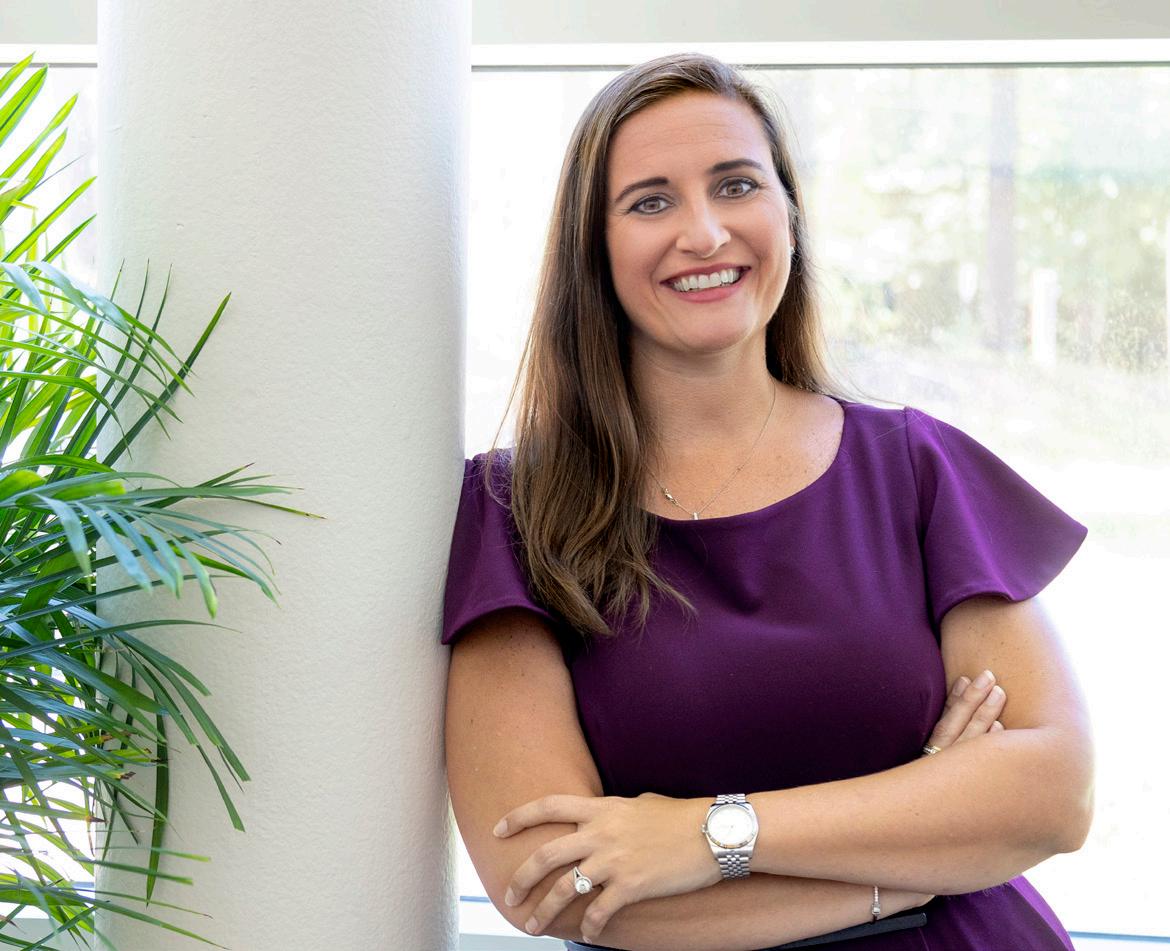
THE FUTURE IS NOW AMP spoke with several Arkansas bankers about the future of digital banking, the rise of artificial intelligence in banking and more.

NOW WHAT? The Hogs may have played their last game in Little Rock’s War Memorial Stadium. How will the state’s grand ol’ lady adapt to a new era?

Female bankers are making strides when it comes to advancing in the traditionally male banking industry, but there remains work to do.
Money management is not the career for those expecting the same out of every day. Managing assets requires the ability to ride waves of change.
Readers once again revealed to us their favorite financial advisors in the Natural State. AMP is proud to shine a light on these financial advisors.
ACHIEVERS IN THEIR FORTIES
AMP once again recognizes some of the best and brightest in the state, those business leaders who have found success and are poised to do much more.
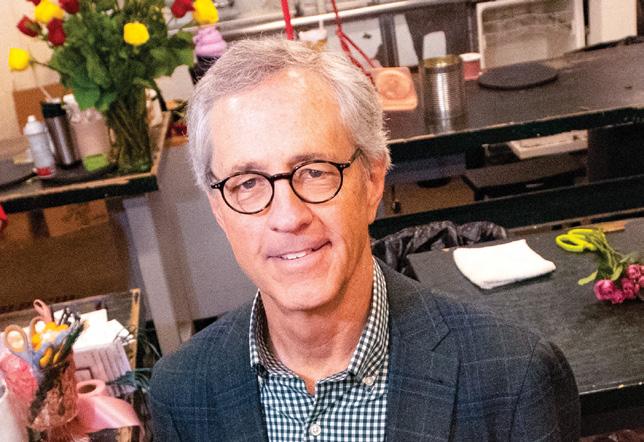
Howard Hurst is keeping his family business going strong at Tipton & Hurst, perhaps one of Arkansas’ most well-known and iconic firms.
Reimagining
The Central Arkansas Library System’s Main Library in downtown Little Rock has undergone a reimagining, including a new Boulevard Bread location.

When Jacksonville Mayor Jeff Elmore and his family purchased the former Keith & Co. Artisan Sandwich Shop, it was not something they had planned for.
Arkansas’ reputation as a haven for mountain biking and other outdoor pursuits generates significant revenue for the state.
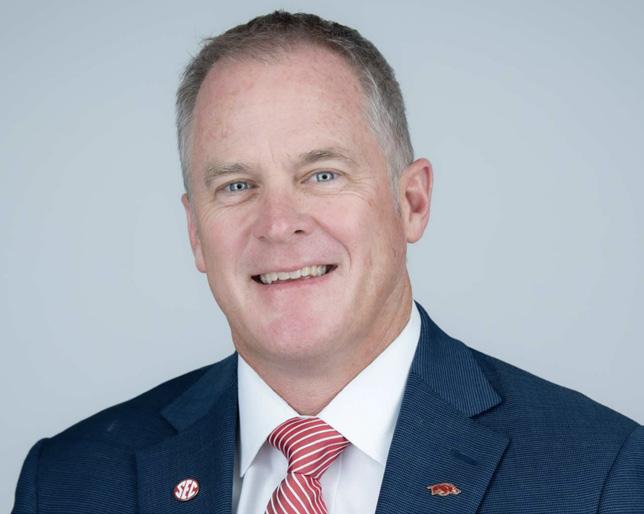
Arkansas athletics director Hunter
like his peers across the country, has had to deal with issues no one saw coming 20 years ago.
PRESIDENT & PUBLISHER
Heather Baker | hbaker@armoneyandpolitics.com
EDITOR-IN-CHIEF
Dwain Hebda | dwain@armoneyandpolitics.com
SENIOR EDITOR
Mark Carter | mcarter@armoneyandpolitics.com
ASSOCIATE EDITOR
Mak Millard | mmillard@armoneyandpolitics.com
EDITORIAL COORDINATOR
Darlene Hebda | darlene@armoneyandpolitics.com
COPY EDITOR
Sarah DeClerk | sdeclerk@armoneyandpolitics.com
STAFF WRITERS
Doug Crise | dcrise@armoneyandpolitics.com
Alex Hardgrave | ahardgrave@armoneyandpolitics.com
MANAGING DIGITAL EDITOR
Kellie McAnulty | kmcanulty@armoneyandpolitics.com
ONLINE WRITER
Kilee Hall | khall@armoneyandpolitics.com
PRODUCTION MANAGER
Mike Bedgood | mbedgood@armoneyandpolitics.com
SENIOR ART DIRECTOR
Angela Stark | astark@armoneyandpolitics.com
GRAPHIC DESIGNERS
Lora Puls | lpuls@armoneyandpolitics.com
Lee Smith | lsmith@armoneyandpolitics.com
SENIOR ACCOUNT EXECUTIVE
Greg Churan | gchuran@armoneyandpolitics.com
Michelle Daugherty | michelle@armoneyandpolitics.com
Mary Funderburg | mary@armoneyandpolitics.com
Karen Holderfield | kholderfield@armoneyandpolitics.com
Ryan Parker | ryan@armoneyandpolitics.com
Carrie Sublett | carrie@armoneyandpolitics.com
EXECUTIVE ASSISTANT
Jessica Everson | jeverson@armoneyandpolitics.com
ADVERTISING ASSISTANT
Katie Beth Smith | ksmith@armoneyandpolitics.com
ADVERTISING COORDINATOR
Lisa Hern | ads@armoneyandpolitics.com
CIRCULATION
circulation@armoneyandpolitics.com
ADMINISTRATION
Marissa Porter | ayoffice@armoneyandpolitics.com
CEO | Vicki Vowell
TO ADVERTISE call 501-244-9700 email hbaker@ armoneyandpolitics.com
TO SUBSCRIBE
armoneyandpolitics.com/subscribe
CONTRIBUTORS
Krista Langston, Cara Lank, Mary LeSieur, Sandy Starnes, Jason Burt, Nelson Chenault, Chris Scott, Scott Street
Yurachek,
The mayor’s place Women in banking









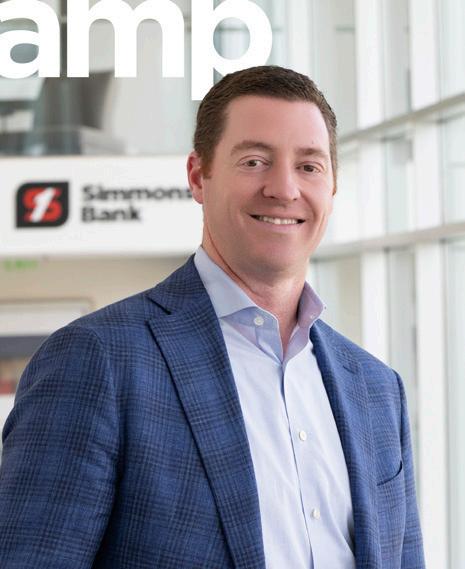
Meet The New Boss ON THE COVER
Simmons Bank President and CEO Jay Brogdon sits down with AMP to discuss the future of one of Arkansas’ largest banks. The story starts on page 16.
Photo by Jason Burt.
FEEDBACK
CHAMPIONS OF HEALTHCARE 2025: CARELINK, RANDI METCALF Wow!! Great stuff!! Congrats.
Bo Renshaw
LREA MEMBERS: HUGG & HALL
Hugg & Hall is outstanding in every way.
Charles T. Coleman
TROUTMAN JOINS SOUTHERN ECONOMIC DEVELOPMENT COUNCIL BOARD
Gary Troutman is simply first class guy.
Kevin Watson
LARKIN TO RETIRE AFTER 27 YEARS WITH ARKANSAS COMMUNITY FOUNDATION
Heather, your dedication and leadership have been truly inspiring! Congratulations! All the best in retirement!
Sandra Storment
COBURN GOSS TAKES THE HELM AT ARGENTA CONTEMPORARY THEATRE
This is so exciting! ACT is incredibly lucky to have him.
Tami Baker
NATURAL THINKING, POSITIVE RESULTS: FROM HORMONE BALANCE TO GUT HEALTH, NATURAL MEDICINE SOLUTIONS ARE TAKING OFF IN ARKANSAS
Heather Baker wonderful publication. Always amazing work.
Thank you for highlighting my friend. (Dr. Amy Beard)
Dallas Guynes
CONGRATULATIONS ON YOUR 58 APW CONTEST JOURNALISM AWARDS! You guys are the best!!
Steve Arrison
TOP ONLINE ARTICLES
Aug. 3 — Sept. 1
1 Hall of Famer Jimmy Johnson Coming Back to Arkansas
2 AMP Best of 2025
3 Outdoor Vehicle Manufacturer Gets Green Light for Arkansas
4 11 Nonstop Flights From Little Rock
5 Digs of the Deal: Castle on the Lake, Marylake Monastery
6 All for One: LREA Looks to Second 50 Years
7 Moxy Hotel Bringing Style, Social Energy to South Fayetteville
8 Natural Appeal: Tourists Flocking to Arkansas in Record Numbers
9 Moore Sports: Wess Moore Leaves Local TV for Digital Era
10 Growth Brings Big Names: Little Rock Touchdown Club Gears Up for 2025 Season

Former University of Arkansas Basketball Coach Nolan Richardson is being honored as Arkansan of the Year by the Arkansas Broadcasters Association and will be inducted during the association’s annual convention Sept. 15 at Oaklawn in Hot Springs.
arkansasrazorbacks.com


Photo:
Longtime Arkansas sports broadcaster Wess Moore stepped into the digital space with Moore Sports , a new program that launched just in time for football season.
Heather Larkin, longtime president and CEO of Arkansas Community Foundation, will retire at the end of 2025.
By Mark Carter
THE GUTTER AND THE STARS
Most of us aspire for inclusion on Santa’s nice list, but it is that devilishly tempting naughty list that grabs our collective attention and won’t let go. Pop culture revels in the tawdry, and we get sucked in like moor ponies in the Grimpen Mire.
Eyes will be drawn to headlines reporting of disaster long before those proclaiming steady as she goes. Crime-related content makes up the majority of subject matter we absorb through television and movies, virtually all of it tawdry. The genre of the decade is true crime.

It seems naughty is vastly more interesting.
Are we instinctively drawn to it? Do we climb up from the gutter to stamp our name on the nice list, or do we fall from grace onto its counterpart? From whence do we begin the journey?
The Irish author Oscar Wilde may have hinted at a response with a line from his 1892 play, Lady Windermere’s Fan:
“We are all in the gutter, but some of us are looking at the stars.” (Yes, the line was borrowed by Chrissie Hynde and the Pretenders.)
So Hobbes or Rousseau? Is mankind animalistic in nature and refined by civilization or inherently good and poisoned by it? The answer, as it usually does, lies somewhere in the murky middle (if not entirely in Paul’s Epistle to the Romans).
PUBLISHER’S LETTER
TAs Solomon wrote in Proverbs, “For as he thinketh in his heart, so is he.”
Therefore, think good thoughts, gentle reader. Real Housewives of New Jersey can wait.
***
We’re reminded of a quest for higher calling gone array in Thailand back in 2022. Every monk in a Buddhist temple was defrocked after testing positive for yaba, a version of Thai street meth. The four monks, including the abbot, were sent to rehab and replaced.
The quest for a higher calling was once again usurped by the pull of a quick high.
Meth is one of the devil’s most effective tools, and though monks — or priests, pastors, rabbis or imams — may answer a divine call, they are people first. And as the news reminds us each and every day, people come in various states of condition, good and bad.
Yaba comes in pill form and costs around 20 baht, which translates to about 50 cents. An official from the United Nations Office on Drugs and Crime told a Thai paper after the news broke that meth, particularly yaba, can easily be found on every street corner in Thailand. Supply is up, he stressed.
Demand does not appear to be lacking either. That same year, 2 tons of meth hidden in marble tiles were shipped from the Middle East to Sydney, eventually falling victim to the largest drug bust in Australian history.
We trust the monks who strayed from the path found retribution and release from addiction. The path will always be there, waiting for them. Unfortunately, so will the yaba peddlers.
By Heather Baker
THE PACE PICKS UP
he slow, leisurely pace of summer begins to vanish in August as students prepare for and then launch another school year. Then, in September, things pick up as football takes hold. This month’s issue of Arkansas Money & Politics is as busy as the fall season can seem. Inside, readers will find our annual list of “Achievers in Their Forties,” in which we recognize some of the state’s brightest upand-comers; readers’ choices for the state’s “Best Financial Advisors”; and our yearly spotlight shined on women in banking, honoring the female trailblazers in Arkansas who broke through the glass ceiling of an industry traditionally peopled mostly by men.
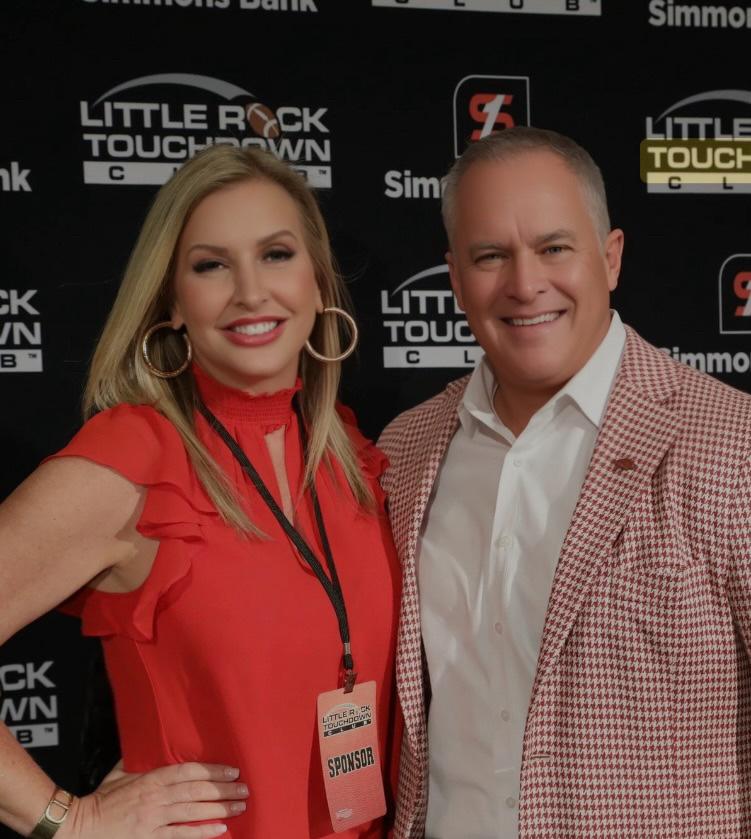
Donning the cover this month is new Simmons Bank CEO Jay Brogdon, who spoke with us about Simmon’s legacy and what’s ahead. Hunter Yurachek, who speaks to the Little Rock Touchdown Club Sept. 15, was also gracious enough to grant us an interview. (This is not exactly a slow time for him.)
Speaking with editor-in-chief Dwain Hebda, Yurachek dishes on the crazy times enveloping college athletics, how the Hogs will compete in the transfer portal/NIL age and more.
We will also look at the banking and finance industries, consider the future of Little Rock’s War Memorial Stadium, and readers will “meet the new boss” — millennials taking charge in the workplace.
There really is a lot to digest and absorb in this month’s issue, and we appreciate our readers more than ever. Hit me up with any story ideas at hbaker@armoneyandpolitics.com.
Heather Baker with Hunter Yurachek
UAMS TACKLING ARKANSAS’ MATERNAL HEALTH CRISIS WITH INNOVATION AND COLLABORATION
By Krista Langston
For too long, maternal health outcomes in Arkansas have reflected a persistent crisis, particularly for women in rural areas and those insured by Medicaid. At the University of Arkansas for Medical Sciences in Little Rock, we refuse to accept that geography, race or income should determine whether a mother survives pregnancy or receives the care she deserves. That belief is the foundation for our innovative and collaborative approach to improving maternal health outcomes across the state. We are committed to creating a system where every mother in Arkansas has access to the care and support she needs before, during and after childbirth.
One of the most direct ways we are closing the gap in care is through our mobile health units. In light of hospital closures and the reduction of obstetric services in many communities, these units serve as mobile clinics that deliver critical services directly into underserved areas. They provide well-woman exams, prenatal and postpartum care, mental health screenings and contraceptive services, all coordinated by a dedicated team of providers and community health workers. By eliminating transportation challenges and other logistical barriers, we are making high-quality maternal care available to women who might otherwise go without.
We are also expanding access to doulas, who offer compassionate and continuous support during labor and delivery. Doula care is associated with lower rates of cesarean deliveries, fewer birth complications and increased satisfaction with the birth experience. For many women, doulas often serve as essential advocates within complex health care systems. Through our partnership with the Doula Alliance of Arkansas, we are increasing the number of trained and certified doulas in the state and providing scholarships to help build a workforce that reflects the diverse communities we serve. These doulas are not only present in birthing rooms but are becoming integrated into the broader clinical care teams across hospitals.
Another key innovation addresses the issue of unintended pregnancies, which affect 54 percent of women in Arkansas. Closely spaced pregnancies and lack of postpartum contraception can lead to serious consequences, including delayed prenatal care, maternal hemorrhage, increased neonatal intensive care unit stays and even infant death. To reduce those risks, UAMS developed the Immediate Postpartum Long-Acting Reversible Contraceptive Initiative. The program gives new mothers the opportunity to receive long-acting contraception before leaving the hospital after childbirth.
Over a two-year pilot, we saw outcomes that surpassed national benchmarks. Our patients had lower rates of short-interval pregnancies and reported greater satisfaction with their ability
to plan for their reproductive futures. Those results helped pave the way for the passage of House Bill 1385 in 2023, a critical piece of legislation that now allows all birthing hospitals in Arkansas to receive Medicaid reimbursement for immediate postpartum LARC insertion. This policy shift reflects how research, patient-centered care and legislative action can come together to create long-term improvements in reproductive care.
To ensure that these innovations are adopted statewide, collaboration has been essential. UAMS works closely with the recently announced Arkansas Center for Women & Infants’ Health and the Arkansas Perinatal Quality Collaborative to build capacity and standardize care. Through the Alliance for Innovation on Maternal Health, Arkansas has adopted evidence-based clinical protocols to better manage obstetric emergencies such as hemorrhage, hypertension and complications from cesarean sections. ARPQC provides hands-on training in hospitals across the state to ensure that staff are prepared to deliver consistent, high-quality care even in highstress situations or amid staffing challenges.
In August, UAMS co-hosted the Arkansas Maternal Health Roundtable with the Arkansas Hospital Association. The event convened representatives from the 33 delivering hospitals in Arkansas and served as a catalyst for collaboration, alignment and shared accountability. Participants engaged with data, exchanged best practices, and discussed strategies for implementing both legislative changes and clinical improvements in a sustainable and patient-centered way.
Data continues to guide our work. The Arkansas Maternal Mortality Review Committee, established in 2019, has completed four years of maternal death reviews. The data is sobering: 92 percent of maternal deaths in Arkansas have been deemed preventable. This statistic demands not only our attention but our action. It reinforces the importance of the interventions we are pursuing, from Medicaidcovered contraception and doula support to emergency preparedness and mobile access.
The efforts are not just innovative — they are effective. We have already seen improved outcomes, increased engagement and greater patient and provider satisfaction across our programs.
We believe Arkansas can and must lead the way in redefining maternal health. We are proving that it is possible to build a system that honors the dignity of every mother and baby, regardless of their circumstances. We are committed to continuing our work in collaboration with partners, patients and communities who share our vision. Together, we can make Arkansas a safer and healthier place to give birth.
Krista Langston is executive director of community programs at the UAMS Institute for Community Health Innovation.
EXPERIENCE you trust.


RELATIONSHIPS you count


Building the Cornerstones of Arkansas Communities
At C.R. Crawford Construction, we believe the strongest foundations are built on more than concrete and steel—they’re built on TRUST, COLLABORATION, and PROVEN RESULTS.
From Hotel Vin to The Plaza at Pinnacle Springs—with Ruth’s Chris Steak House and Un Deux Trois Café—our work in Northwest Arkansas represents more than high-profile projects. It reflects enduring partnerships with clients who trust that their investments are protected. Every project is delivered with precision, efficiency, and lasting value—built to stand the test of time.
THE PLAZA AT PINNACLE SPRINGS Rogers, Arkansas
THE USDA’S BEST-KEPT FINANCING SECRET UNLOCKING BIG OPPORTUNITIES FOR ARKANSAS BUSINESSES
By Cara Lank
When most Arkansans hear “USDA loan,” it’s not unusual to envision endless rows of rice or industrial poultry farms, but here is the reality:
The U.S. Department of Agriculture Business and Industry Guaranteed Loan Program is one of the most versatile, underutilized and impactful financing tools available for rural economic development, and it is not for agricultural operations.
For business owners and developers looking to fund a project, whether it is expanding a manufacturing facility, acquiring a competitor or building a hotel, do not overlook the USDA B&I program. The financing terms can be more flexible, the guarantees stronger and the possibilities broader than one might expect. Through its B&I lending program, the USDA has transformed communities, funded ambitious projects and created jobs right here in Arkansas. Yet too many business owners and even bankers are unfamiliar with the program or the up to $25 million in funding that accompanies it. That is why we call it the “hidden gem” of government guaranteed lending.
The USDA’s B&I loan program focuses on rural communities with populations of less than 50,000. The goal is simple: stimulate economic growth in rural communities by funding projects that create jobs, improve infrastructure and support local economies. One of the most common misconceptions is that USDA loans are reserved for agriculture or housing. They are not. In fact, with some farm exceptions, the program is open to most for-profit businesses, nonprofits, cooperatives, tribes and public bodies. With “no restrictions on the size of the business, owner occupancy or net worth,” the B&I program seeks to reduce the number of obstacles standing in the way of rural investments.
The USDA Rural Development Guaranteed Lending Programs make it possible to finance projects that would otherwise be too risky for conventional bank lending. B&I loans can go up to $25 million with an 80-percent federal guarantee, and funds can be put toward a variety of eligible uses, including business acquisitions, expansions, debt refinancing, and the purchase of machinery, equipment or real estate. Most interestingly, eligibility is determined by geography and population density, not perception.
Using the USDA’s online mapping tool often yields surprising results. A water park in Kissimmee, Florida? Eligible. Some parts of suburban areas one might never think of? Also eligible. The
point is rural is not always as rural as one might imagine. While Arkansas is rich in rural communities that have big potential, they still face unique financing challenges. Large projects in these areas often struggle to attract bank financing because of perceived risk or lack of comparable deals. The USDA’s guarantee changes that equation, enabling banks such as Stone Bank to say yes when they might otherwise have to say no.
The result? Access to capital that drives real change. Earlier this year, the Arkansas Center for Health Improvement noted that “Arkansas leads the nation in the percentage of rural hospitals vulnerable to closure,” with nearly 50 percent of current rural hospitals at risk. Meanwhile, Stone Bank has processed B&I loans to fund medical facilities in communities where critical lifesaving resources are hours, not minutes, away. B&I loans have also made manufacturing plants, hotels and even technology companies viable in rural towns. The projects do not just help the borrower; they ripple outward, bringing jobs, boosting local tax revenue and improving quality of life.
The USDA program can appeal to both local owner-operators and largescale investors, including billion-dollar private equity funds. In fact, the program can be leveraged for projects up to $100 million through participation with other banks and lenders. The truth is USDA loans are not something borrowers want to “figure out as they go.” Success requires a lender with deep program knowledge, established contacts in Washington, and the ability to structure deals that meet both the borrower’s and USDA’s requirements. Without that expertise, projects can stall or fail to get approved.
The USDA B&I loan program is not a niche curiosity. It is a strategic tool for building rural prosperity. The biggest challenge is not convincing people it works. It is letting them know it exists in the first place.
Here is a challenge to business leaders in the Natural State and beyond: Think bigger about rural investment. Look past the stereotypes, and the next time you hear “USDA loan,” do not picture a farm. Picture your next growth opportunity.
Cara Lank is the chief credit officer at Stone Bank, which she has served since 2016. Lank has also served as chairman of the National Rural Lenders Association Government Relations Committee.




SATURDAY
OCTOBER 11
6PM


STATEHOUSE CONVENTION CENTER LITTLE ROCK, ARKANSAS




















DENISE & TIM LUFT
GALA FOR GOOD CO-CHAIRS ENTERTAINMENT BY THE BAYOU ROYALS
THE EARLIER, THE SMARTER
TEACHING TEENS TO MASTER FINANCES IS KEY
By Sandy Starnes
Financial literacy is the cornerstone of any smart relationship with money. Knowing how to budget, save, borrow and invest is as essential as knowing how to read or write in today’s economy.
Learning those skills marks the beginning of a lifelong journey of managing finances confidently. It poses an opportunity for public schools to prioritize financial literacy the way they do math, reading and science. Eighty-eight percent of adults in the U.S. did not feel prepared to manage money when they graduated from high school, and even now, only about 57 percent of them would call themselves “financially literate.”
The numbers drop even further when we look globally, at only 33 percent of the world’s population claiming to have a solid understanding of basic financial concepts. If these topics had been part of the curriculum from the get-go, perhaps those numbers might be stronger today.
Instilling practical financial literacy skills early on equips students to make responsible financial decisions, avoid highinterest debt and build a more secure financial future. The practices increase the likelihood of accruing wealth over time, setting students on a clear path toward success. Earlier generations lived in a simpler financial world. Most transactions were in cash, and only the affluent had access to loans.
Loans, credit and debit cards, and electronic transfers are the norm now, and even in brick-and-mortar stores, cash is only used for about 11 percent of the transactions. The takeaway: Establishing a solid relationship with one’s bank is more important than ever, providing the guidance and support needed to cultivate success. That is where community banks make a unique difference. Unlike larger institutions, they directly invest in the future of the areas they serve, which includes helping young people open savings accounts and teaching them how credit works.
Community banks build personal connections that make their customers feel like someone is walking beside them as they grow, something that is especially invaluable during a stage of transition.
Citizens Bank recognized how important it is for youth to foster that kind of relationship and launched its Bank in a School program at Southside Charter High School in Batesville in 2023 to help students begin their financial journeys early. The system provides participating students with hands-on experience in areas such as personal savings, credit scores, budgeting, financial management and banking operations. It was the first program of its kind in the state and is among less than 1 percent of banks nationwide to offer something like it.
The benefits of the program extend far beyond the individual. A financially literate generation strengthens the economy by preparing young entrepreneurs to launch businesses responsibly and helping new families make smarter choices. When young people understand how money works, they are better equipped to fuel economic growth and stability for their state and communities.
This October, Citizens Bank will launch its third year of the program at Southside Charter High School. The program has given students something most adults never had: a safe, immersive environment to learn money management while simultaneously running a real bank branch inside the school. Students who have graduated from the program say it gave them confidence to approach adulthood. It empowered them to move forward by opening their first savings account, being able to explain how credit works and learning to balance budgets.
They leave the program feeling prepared for life’s first big financial decisions, which have the power to either set them back for years or set them on an upward trajectory. Eleven students have gone through the program since its launch. When the program starts back up for the 2025-2026 school year, it will continue breaking new ground on Arkansas education, workforce readiness and financial security. That should be the standard, not the exception.
While several banks have followed Citizens Bank’s lead, Arkansas contains more than 300 high schools, and many students leave feeling unready to manage adulthood. Generation Alpha, an umbrella term for individuals born between 2012 and now, has been projected to turn the financial world on its head. The oldest of the group are currently 13, but even now, they realize the role money will play in their lives.
About 77 percent of them consider it cool to be financially savvy, and 91 percent believe financial knowledge and skills are necessary for meeting their life goals. An education system that meets them where they are ensures they can thrive in a modern system so significantly controlled by money.
After all, every student deserves the chance to graduate having tools that will help them in the years to come.
Sandy Starnes is a senior vice president and director of marketing at Batesville-based Citizens Bank. Starnes serves as a board member of the Independence County Public Education Foundation, IMPACT Independence County, BankOn Arkansas+ and the American Bankers Association Professional Development Advisory Board. She was also appointed to the American Bankers Association Emerging Leaders Advisory Board of Directors in 2017 as Arkansas’ sole representative.




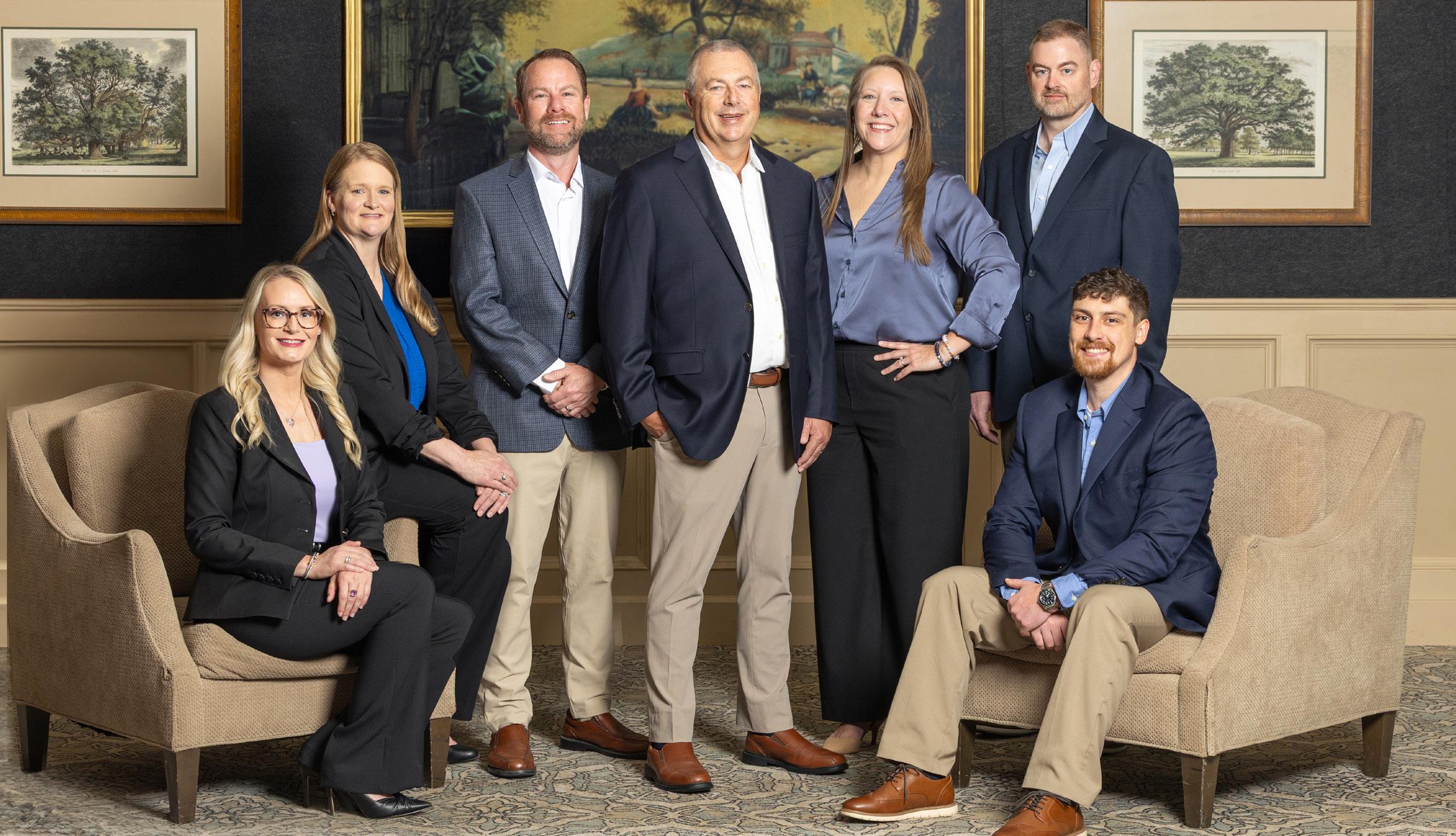
ANSWERING A NEED
ROGERS FARM MAKES A HOME IN NORTHWEST ARKANSAS
By Scott Street
In more than 30 years of health care administration, I have learned that helping children thrive starts with removing barriers for families. Too often, parents navigate a maze of appointments and multiple providers just to get the therapy their child needs. That is why at Pediatrics Plus, we have consolidated comprehensive, high-quality services under one roof — making life easier for parents who would otherwise juggle appointments across different locations while also balancing work, caring for other children and managing daily life.
Families in northwest Arkansas already know Pediatrics Plus as a trusted partner in their children’s care. Now we are taking that commitment further by opening our innovative Farm model in Little Flock, just outside of Rogers, in late September. The first-of-its-kind setting blends the clinical expertise families count on with the healing power of nature, creating an environment where therapy is as engaging as it is effective. There, children can access occupational therapy, physical therapy, speech-language therapy and applied behavior analysis, all while exploring outdoor spaces designed to spark curiosity, build confidence and support growth. It is a place where learning, healing and play naturally overlap so children feel motivated and excited about their progress.
No two children are alike. Their strengths, challenges and learning styles are as unique as their fingerprints. That is why children with developmental, behavioral or physical differences often benefit from multiple types of therapy, each addressing a different piece of the puzzle. Speech therapy helps children communicate their needs, thoughts and feelings. Occupational therapy builds daily living skills and independence. Physical therapy strengthens bodies, improving mobility and coordination, and ABA can be life-changing for children with autism and other developmental challenges, giving them tools to learn, grow and connect.
Unfortunately, those services are often siloed, leaving parents to coordinate care on their own. Our team has changed that. By offering these therapies together — with therapists collaborating daily in one location — children make faster progress and families feel more supported.
At Pediatrics Plus, we have always believed children learn best in environments that engage their minds and bodies in meaningful, real-world ways. The Farm takes that philosophy to the next level. Imagine a child practicing balance by navigating crop rows in a garden, not just a strip of tape in a therapy room. Picture speech therapy outdoors, where children learn new words by describing vegetables they have planted. Think of occupational therapy that includes grooming miniature horses and gathering eggs, allowing fine motor skills and sensory experiences to grow together.
The Farm is built on the idea that therapy can be immersive, joyful and connected to the rhythms of nature. Beyond therapeutic goals, children also learn transferrable life skills: how to nurture and care for living things and how to communicate and collaborate with others. In the process, they build friendships, practice emotional regulation and develop social skills that will serve them far beyond their time at The Farm. That type of environment supports therapy and builds community, empowering children to see themselves as capable and connected.
We have already seen the impact. Rogers joins our other operational Farm sites in Bryant, Cabot and Conway, and new ones are in development in Springdale and Searcy, as well as Tahlequah, Oklahoma. Our first Farm locations have transformed outcomes for children and families, and the model is now a core part of our vision for the future.
Opening in Rogers was intentional. Northwest Arkansas is one of the fastest-growing regions in the country, attracting families from across the state and beyond. With that growth comes an increased demand for pediatric therapy services. Building The Farm in Rogers is an investment in more than a facility. It is an investment in the children of this region, in their families’ peace of mind and in the long-term health of the community. It is our commitment to ensure caregivers do not have to choose between getting children the care they need and holding their own lives together.
When I look back on my career, I can point to moments that felt like turning points. The opening of The Farm in Rogers will be one of them — not because of the ribbon-cutting or the new facility but because of the relief in families’ faces when they realize everything their child needs is at home.
That is what happens when a community invests in its children. It is what happens when we look beyond the limits of traditional health care models and imagine something better, and it is what we at Pediatrics Plus will keep doing — in Rogers, across northwest Arkansas and in every community we call home.
On Sept. 22, we will open the gates to The Farm in Rogers. More importantly, we will open the door to new possibilities: for children to grow, for families to feel supported and for a region to see what is possible when health care innovation meets community needs — because every child deserves the chance to conquer their world, every family deserves access to the therapies their children need, and every community deserves a place where hope grows.
Scott Street is CEO of Pediatrics Plus.





Jay Brogdon
J One ONE ON
ay Brogdon leans back in a side chair at the conference table in his newly claimed office atop the Simmons Bank Tower in Little Rock.
From this spot, the banking system’s new CEO is but a few blocks from his former digs at the prestigious Stephens investment bank.
It is but a five-minute jaunt by car to get from that point on Brogdon’s career trajectory to this one. In fact, depending on which window at Simmons headquarters one looks out of, the stately glass Stephens tower is easily within sight, on this day shimmering in the roiling Arkansas afternoon heat. Brogdon’s traversing of that distance, however, took considerably more doing.
“If I may, I’ll take you back a little bit,” he said with a wry grin. “George Makris [retiring Simmons CEO and chairman] called me in 2019 and asked me to come over and join as CFO of the company. I’d had a great relationship with the bank, worked very closely with them throughout my tenure at Stephens, but it just wasn’t something that was of interest to me at that point in time in my career, so, of course, I’m very nice about it, but I just said, I’m very flattered, but no.
“The fun part of the story, and if you know George very well, nothing could be more on brand for him — I get a call from him out of the blue in January of 2021, and he says, ‘Jay, you know, I called you a couple years ago, and you told me no. I really don’t like hearing no twice.’”
Brogdon agreed to a lunch meeting, and the long and short of it is Makris, a born salesman who has succeeded in everything from beer to banking, had his man. Brogdon, for his part, once convinced of the opportunity, never looked back.
“I’ve had such a respect for this company for so long,” he said.
Former basketballer Jay Brogdon ready to run Simmons Bank
“I’m a lifelong Arkansan, born and raised here. I’ve had the great fortune of working for Stephens for a lot of my career and now Simmons. I just have a massive amount of respect for what companies like that mean to a state the size of Arkansas.
“George really laid out the kind of vision for overall succession and how there was a contingent of leaders who aren’t going to be able to do this forever and how the board wanted this company to continue to thrive as far into the future as we can see. There were no promises. The bank had to perform, and I had to perform, but as he laid out that vision and how I could fit into it, I felt like everything I had done in my career up to that point prepared me really well for some of the pieces Simmons was missing and needing to bridge to the future.”
It is not the first time Brogdon had been recruited, nor was it the first time he had faced a full-
By Dwain Hebda || Photos by Jason Burt
court press. A star basketball player at Highland High School, pride of a 1,000-soul hamlet in Sharp County, the 6-6 forward landed a basketball scholarship to Harding University in Searcy. He saw extensive playing time for the Bisons over four years, in addition to earning his degree.
Still, it was finance, not banking, that drew his attention following graduation in 2004.
“Banking had to have picked me,” he said. “My parents were schoolteachers. My dad was a basketball coach and a math teacher. My mom was an English teacher. I was interested in business. I got an accounting degree, I spent a few years at Deloitte, the global accounting firm, but I never woke up and said, ‘I want to do banking.’”
As it happened, however, many of the clients he worked with at Deloitte were banks, and by servicing them the way he did over four years, he created a business network practically by default. The pattern continued after he joined Stephens.
“It just so happened that an opportunity opened up at Stephens on the investment banking side,” he said. “Plus, and people may or may not know this, Stephens has a legacy in banking going all the way back to Jack Stephens, so I had the benefit of joining a firm with some commercial banking pedigree and a firm that had a very deep-rooted history in serving banks and growing the investment banking side to advise those banks.”
“We all stand on the shoulders of some giants, right, when it comes to that type of commitment to our communities and to our customers and to this state.”
The shoulders Brogdon refers to are indeed broad, particularly over the past 40 years of the company’s 122-year history. Founded in Pine Bluff in 1903 on first-day deposits of $3,300, the bank grew steadily locally if unremarkably statewide and beyond. By the 1980s, the bank was on shaky ground, which precipitated native Arkie and former Marine Tommy May being named president and CEO in 1987. May, an indefatigable force of nature, took a figurative machete to waste and unnecessary spending wherever he saw it, no matter how seemingly inconsequential.
“One of the things I learned is it’s not always what you do; it’s the message you send. My message then was that we need to tighten up expenses,” May told Arkansas Money & Politics for a 2023 cover story. “We had these big coffee cups with our logo on them. The first thing I did was eliminate that and get smaller ones because when people pour coffee, they drink about a third of what’s in there.
I’ve had the great fortune of working for Stephens for a lot of my career and now Simmons. I just have a massive amount of respect for what companies like that mean to a state the size of Arkansas.
That practical experience put Brogdon on Simmons’ radar, while Simmons’ impact on Main Street, in turn, struck a chord with the young executive, finally prying him loose from Stephens in 2021 after 13 years.
“The purpose and the passion that fuels me is we have such a big impact in the communities we serve and the important role that we play in the formation of businesses, the growth capital for businesses to grow, the way we show up at the school as a booster — whatever it is,” he said. “Those are things that everybody in this company is very, very passionate about, and that’s been true from those who came before us.
“Next thing we did is we took some notepads that were kind of long, and we cut them in half. You could write on that just as easily as the other while doubling your inventory. It wasn’t that we were going to save a lot, but we were wanting to send a message. A lot of what we did was sort of for show, but it worked. Even today, I have people say something to me about us tearing those notepads in half and taking the coffee cups.”
May instilled a similar steeliness in lending discipline to reduce the number of bad loans, and by 1990, he built up enough reserves to go on the offensive. Simmons snapped up a string of failed savings and loan branches to increase its footprint and, in 1992, made national news for rolling out its own credit card. By the time May handed off the leadership baton to Makris in 2013, Simmons Bank had reached $4 billion in assets.
Makris, a former Simmons board member whose family’s beer distributorship in Pine Bluff goes back generations, was faced with the same predicament as his predecessor — expand or die. Within six months, he delivered his answer with the $53.6 million cash purchase of Arkansas-based Metropolitan Bank, an opening acquisition salvo that would continue all the way to the present.
Simmons’ latest big gain — purchase of Houston-based Spirit of Texas Bank, completed in 20221 — brought a former Fortune 100 “Fastest-Growing Company” into the fold, raking
in $2.7 billion in deposits and $2.3 billion in loans. It also gained 37 branch locations and strong representation in growth-rich metros Dallas, Fort Worth, Houston, San Antonio and Austin.
As Makris told AMP in 2023 the company’s art of the deal did not lie in its ability to write the check but in the knack it developed to weed out potential suitors that did not mesh culturally.
“What we really want is to be the acquirer of choice, and over the last 10 years, most all of the acquisitions came to us, or it was mutual,” Makris said. “We’ve got, especially in our markets, a good reputation of coming in and really working with the management team and keeping their culture because it matches our own. Those are the banks we’re looking for, not somebody looking to cash out a deal.”
One primary tenet of that culture is the value Simmons places on talent and its commitment to finding and equipping the right people, placing them in roles where they can be successful. As Brogdon adds the title of CEO and board member to go with the role of president of Simmons First National Corp. and Simmons Bank he has answered to since 2023, that part of the company’s vision and values remains as sharp as ever.
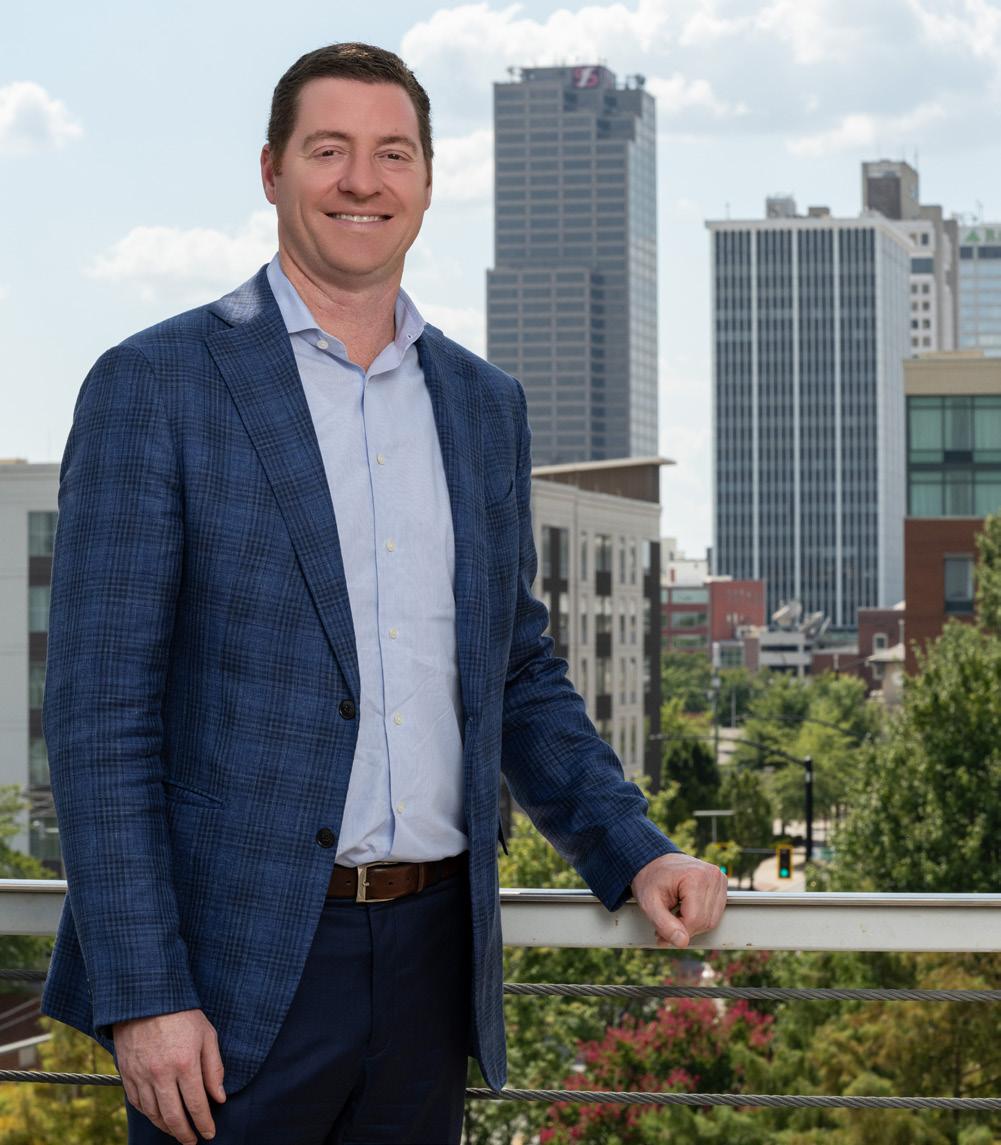
“In this role, you know, I’m not really a recruiter,” he said. “When the team has a final-round candidate for a leader position or a very high performer, my role is to come in and paint the picture of what our business is focused on and really sell, in a very authentic way, that people have an opportunity to come here and make an impact — not just be a producer at a bigger bank than they’re at but to come here and help build and leave their mark on something. We have had incredible success doing that.”
Brogdon said the future lies with the companies that can be progressive enough to not only deploy current technology but envision where such tools can take them in the future.
“Banks, in general, are dinosaurs,” he said. “I mean, banks are highly regulated and move at a really slow pace. When you think about the www. world that we live in and the size and scale that we have as a business today, that compels us to invest in the technology side in ways that will intersect in very advantageous ways, whether you’re a consumer or a small business or the largest commercial customer we work with or anywhere in between.”
Brogdon’s new role does not officially take effect until the first of the year, but he is already making an impression on the troops wherever he goes. He has traveled to various markets to put a face on the title and is known to engage random employees in conversation in hallways out of genuine interest in their jobs and opinions.
Today, Simmons Bank is a regional banking powerhouse with more than 200 locations in six states. It holds $17 billion in loans and $22 billion in deposits and $26.7 billion in assets, per its investor relations department, as of June 30, 2025.
For as impressive as it is, such stats merely serve to toe a starting line for its newest chief executive, whose exuberance makes
him seem even younger than he is for a person leading such a massive enterprise. While no one can foretell the future, of course, his history of staying put professionally suggests a refreshing stability lies ahead, providing the foundation for continued growth even as market trends shift and change surrounds on all sides.
“The industry dynamics are what they are, and they don’t all excite me, by the way,” he said. “There were 20,000 banks, and then there were 10,000 banks, and now there are 4,000 banks. It just continues to consolidate. Where we have seen ourselves as primary beneficiaries in recent history and what I expect to be a primary beneficiary of here in the near future is in the talent acquisition game versus the whole-bank acquisition. With mergers and acquisitions, you have dislocation of associates at the banks that are involved and dislocations of the clients served within those banks.
“Just in recent weeks, in both Tennessee and Texas, we’ve seen some very large acquisitions, and when we look at ourselves and the investments we’ve been making in the business, we bring a very stable platform that is attractive to good talent that just wants to serve their clients well. You look at our company’s investment and succession, the youth that we have on the team — or, as I say a lot of times, the tread left on the tire — we’ve got a lot of runway to execute and grow this business.”
Brogdon will lead a Simmons Bank that has become a regional powerhouse.
Here to Stay
With digital banking now almost exclusive, what is next?
By Mary LeSieur and Mark Carter

hometown banks, much has changed in banking overall in the last generation. Indeed, much has changed in the past decade. Has digital banking taken over completely? Turns out not quite, though it appears to be well on its way to doing so.
The Federal Reserve Bank of Atlanta issued a report this past summer that showed U.S. consumers still hanging on to their checkbooks, although checks are written much less often.
One-third of consumers surveyed in the Atlanta Fed’s Survey and Diary of Consumer Payment Choice reported having written a check in the past 30 days. That said, more than 90 percent of respondents reported preferring a method other than a written check to pay a bill, and just 6 percent of that group reported the use of a personal check in 2024.
In 2020, according to the Atlanta Fed’s research, 19 percent of American consumers paid bills by check, compared to just 7 percent in 2024. Other nuggets from the report include consumers ranking checks the second-worst option for convenience and security, ahead of only money orders and cash, respectively.
Like traditional movie theaters and cable TV, checks are hanging on, but

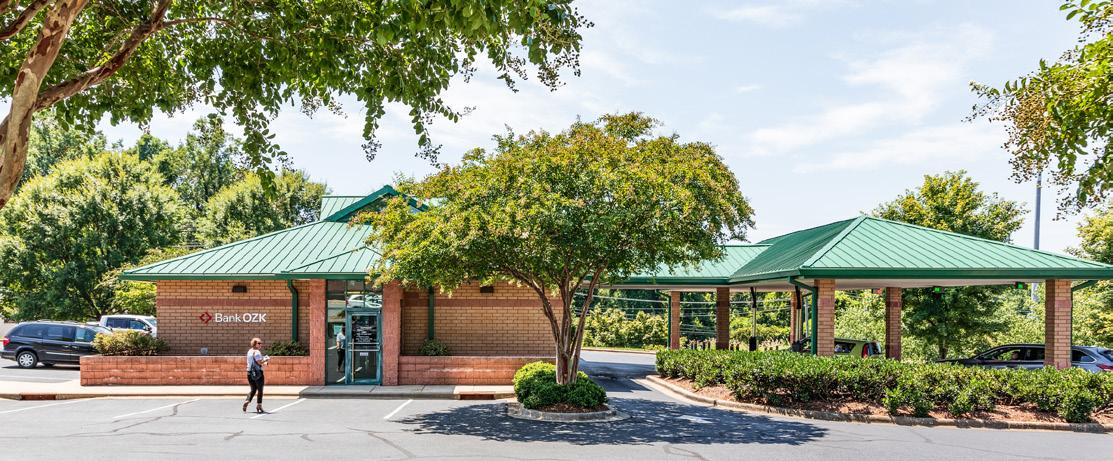
with each passing year, more consumers bounce to digital means of payment.
Arkansas Money & Politics spoke to four Arkansas bankers who oversee their institutions’ digital efforts. They dished on the digital movement, artificial intelligence, innovation and more. AMP visited with Larry Casey, senior vice president and chief information officer at Jacksonville-based First Arkansas Bank & Trust; Max Harrell, chief lending officer at Generations Bank in Rogers; Tyler Seidel, vice president of treasury management at Signature Bank of Arkansas in Fayetteville; and Jason Taylor, executive vice president and chief financial officer at Batesvillebased First Community Bank.
Arkansas Money & Politics: How dependent on digital banking are customers now? Is it even possible to “bank” anymore without some form of digital banking?
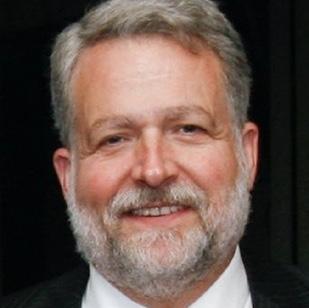
Larry Casey: Digital banking has become deeply woven into the
fabric of daily life for most Americans. From checking balances on a mobile app while waiting in line at the grocery store to paying bills late at night or transferring money to a family member with just a few taps, our customers’ expectations have evolved. The convenience, speed and accessibility of digital channels are now fundamental to how people view their financial well-being.
While it may still be possible for some to “bank” without digital tools, the reality is that digital banking is no longer a luxury or a niche. It has become a necessity for most. Even customers who prefer inperson service often use digital banking for certain transactions. The ability to view accounts, pay bills, deposit checks and even consult with financial experts online is no longer just a competitive advantage; it’s an essential part of the modern banking experience.
At FAB&T, our role is to ensure that digital banking enhances — rather than replaces — the personalized service that defines a community bank. We strive to offer choices: Those who value faceto-face conversations can still visit our
Larry Casey
branches and speak with a trusted banker, while those who prefer the convenience of digital can access a comprehensive suite of online services. In practice, most of our customers use a blend of both depending on their needs and circumstances. Our goal is to ensure that every customer feels empowered whether they engage with us digitally, in person or both.

Max Harrell: Heavily dependent on digital banking. A significant majority of our customers are enrolled in online banking. Consumers are driven more and more to digital experiences that transcend industries. The general expectation is clearly already there that the bank must offer some form of digital banking. I don’t believe we’ll see that slow down anytime soon.
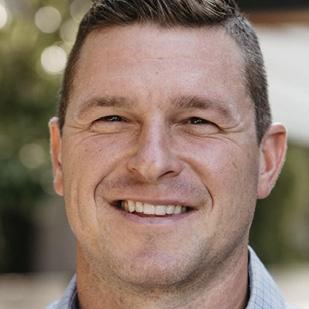
Tyler Seidel: Many customers rely heavily on digital channels — mobile apps, online banking, remote deposit, person-toperson payments, etc. — for their day-to-day banking needs. While it is still possible to bank without some form of digital banking, at Signature Bank of Arkansas, we feel it’s imperative to provide digital services to serve different generations by offering the convenience and speed that digitally native generations like Gen Z and millennials expect while also catering to the physical-first needs of other generations through a blended approach.
Digital platforms offer features like real-time alerts, personalized financial insights and 24/7 access, improving the customer experience and helping us remain competitive and loyal to a wider customer base. While banking is evolving, many of our customers still value the faceto-face interactions and tangible services that physical branches offer.
Essentially, we want our customers to enjoy the freedom of banking on their terms, so while we are heavily focused on continuing to evolve our digital banking capabilities to serve the needs of different
generations of users, we also know many of our customers love the personal, first-name-basis touch in our brick-andmortar locations and we will continue to give them that.
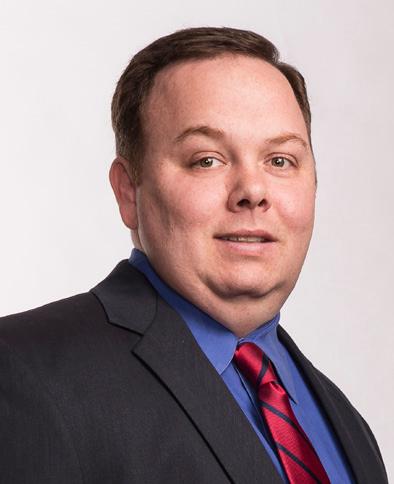
Jason Taylor: Digital banking has become the primary way many customers interact with their bank. While in-person service will always play an important role, today’s customers expect 24/7 access to their accounts for things like checking balances, depositing checks, paying bills and transferring funds. It’s still possible to bank without digital tools, but for most people, the convenience and efficiency of mobile and online banking have made them a part of everyday life.
AMP: How has your bank been out front in innovative digital banking?
Casey: As a community bank, we pride ourselves on listening closely to our customers and responding swiftly to their evolving needs. Innovation, for us, is not about chasing trends — it’s about solving real problems and making banking more accessible, secure and personal.
FAB&T has led the way in several areas of digital banking innovation. We were among the first community banks in our region to offer mobile check deposit, allowing customers to deposit checks from anywhere anytime. Our online banking platform is designed for simplicity and ease of use with an intuitive interface that puts the most important information and functions front and center. We also offer real-time alerts, customizable account views and secure messaging so customers can stay informed and connected.
One of our proudest achievements is our commitment to digital security. We have invested in advanced encryption, multifactor authentication and regular cybersecurity training for our staff. Customers can bank with confidence, knowing their information is protected at every step, but innovation doesn’t stop at technology — it extends to service. Our digital channels are supported by real people who are ready to answer questions,
resolve issues and provide guidance. We host webinars on topics like online security and financial planning, and our digital support team is available to help customers navigate new tools.
In short, we believe that the best digital banking experience is one that feels just as personal as a visit to the branch.
Harrell: We pay a lot of attention to new and innovative digital banking trends. Being a community bank, we desire to continue to support our communities, which include those who prefer a high level of digital engagement and those that prefer a high level of in-person engagement. We have taken the approach that being “out in front” or on the “bleeding edge” for innovative digital bank offerings is not what serves our communities the best. We would prefer to appropriately vet the trend or technology and see how applicable it is to our current customers and future customers while keeping the necessary digital tools and resources up to date and enabled. Focusing on offering the right digital banking services as compared to just offering generic digital banking services is something we try to focus on continuously.
Seidel: Signature Bank of Arkansas is committed to leading the way in innovative digital banking while preserving the personalized service our customers value. We’re investing in technology that makes banking faster, simpler and more secure, from real-time payments and seamless mobile experiences to advanced fraud protection and fully integrated treasury solutions for businesses. Our digital tools are designed to meet the unique needs of every generation, whether that’s mobile-first convenience for tech-savvy customers, robust online services for families or tailored treasury platforms for business owners.
By blending cutting-edge innovation with trusted relationships, Signature Bank delivers a banking experience that keeps us out front — and keeps our customers confident every step of the way.
Taylor: We’ve made intentional investments in creating a seamless digital experience while maintaining the personal
Tyler Seidel
service for which community banking is known. Our digital suite includes advanced mobile check deposit, peer-topeer payments, card management tools and other features that allow customers to manage their finances securely from anywhere. We’ve also worked to integrate financial literacy tools into our platforms, helping customers not only with access but also with making informed financial decisions.
AMP: How will the role of artificial intelligence in banking evolve?
Casey: Artificial intelligence is poised to transform banking in unprecedented ways, but at FAB&T, we view AI as a tool to enhance relationships, not replace them. The thoughtful integration of AI can help us deliver smarter, more responsive service while maintaining the human touch that sets us apart.
AI will increasingly play a role in areas like fraud detection, where machine learning can spot unusual patterns and alert both customers and staff to potential risks faster than ever before. Personalized recommendations — whether for savings, loans or financial planning — can be delivered based on real-time analysis of a customer’s habits and goals. Chatbots and virtual assistants are already making it easier for customers to get answers to simple questions anytime day or night.
However, our vision for AI is grounded in transparency and empathy. We see AI as a way to free up our staff to focus on complex, emotionally nuanced situations that require human judgment and compassion. Routine inquiries and transactions can be handled seamlessly by smart systems, while our bankers are available to support customers through big decisions, life changes or unexpected challenges.
Privacy is paramount. We are committed to using AI responsibly and ensuring that customers understand how their data is being used. Our approach is to be proactive in communicating these changes, offering education and always providing an option for customers to speak directly with a person.
Harrell: AI will have a multitude of use cases. As fraud continues to ramp up and plague the financial system, AI will be
used to combat those fraudulent-type transactions. Credit underwriting could be another use case to help predict and assess credit decisions. Ultimately, the goal of using AI will be to help create efficiencies and improve customer relations.
Seidel: AI in digital banking helps us better protect our customers’ accounts, make everyday banking easier, and gives them personalized financial insights. At Signature Bank of Arkansas, we’re exploring ways of using AI to understand our customers’ needs and offer services tailored to them — while keeping the personal relationships and trusted service they count on. Looking ahead, AI also opens the door to new opportunities, from smarter money management to advanced business banking solutions.
Taylor: AI has the potential to enhance banking by providing personalized insights and anticipating customer needs. At First Community Bank, we remain focused on approaches that maintain the trusted relationships and security our customers value. Any adoption of new technologies will be considered carefully with the priority on serving customers reliably and responsibly.
AMP: What is the next big thing in digital banking?
Casey: If the last decade has been about bringing basic banking services online, the next decade will be about creating truly personalized, seamless experiences that integrate banking into every aspect of our customers’ lives. The next big thing is a shift from “digital banking” as a separate activity to “embedded banking” that meets customers where they are, whether that’s on their phone, on a smart device or even at the point of sale.
We see the rise of open banking and interoperability as key drivers of change. Customers will soon be able to connect their FAB&T accounts securely to a host of other financial platforms, tools and services, giving them more control and flexibility. Digital wallets, contactless payments and integrated budgeting tools will make managing money effortless and intuitive. We’re also exploring ways to use data and technology to anticipate needs and offer proactive solutions — reminding
customers of upcoming bills, suggesting ways to save or offering support in times of crisis. The future is about empowerment, inclusivity and building trust.
Yet even as technology advances, our foundation remains unchanged: We are a community bank first and foremost. The next big thing is not just about what technology can do but how it can help us nurture relationships, foster financial wellness and build stronger communities. Whether through a friendly face at the branch or an app on a smartphone, our mission is to be there for our customers — however they choose to bank.
Harrell: The next big thing in digital banking is integrating personal communication with digital services. This can be done through a variety of mediums, such as online chat or video chat, in which you get a personal touch while being outside of the physical branch or bank locations. This is available, but I believe adoption will become more and more popular.
Seidel: The next big thing in digital banking is using AI to go beyond transactions and create meaningful, personalized experiences. At Signature Bank of Arkansas, we see this as an opportunity to anticipate customer needs — from protecting accounts and offering tailored financial advice to helping businesses forecast cash flow and plan for growth. By blending AI-driven insights with the personal relationships we’re known for, we’re building the future of banking that’s both innovative and community centered.
Taylor: The future will center on anticipatory banking — meeting needs before customers even ask. That could include predictive savings tools, AIdriven insights for budgeting or more comprehensive financial wellness dashboards. We also expect to see a stronger blending of digital and inperson experiences so customers can move easily between channels without losing continuity of service. Our commitment is to remain out front in these areas while keeping community, service and relationships at the heart of everything we do.

Bank of America recognizes Matthew McDaniel, Private Bank Client Manager, for being honored by Arkansas Money & Politics among the 2025 Best Financial Advisors.
At Bank of America Private Bank, we combine the client experience of a boutique private bank with access to extensive resources, institutional-quality solutions and the intellectual capital of one of the world’s largest financial services firms, including traditional, specialty asset, alternative and capital market investment solutions, as well as customized credit and banking offerings, to help maximize wealth.
(collectively
The Chief Investment Office (CIO) provides thought leadership on wealth management, investment strategy and global markets; portfolio management solutions; due diligence; and solutions oversight and data analytics. CIO viewpoints are developed for Bank of America Private Bank, a division of Bank of America, N.A., (“Bank of America”) and Merrill Lynch, Pierce, Fenner & Smith Incorporated (“MLPF&S” or “Merrill”), a registered broker-dealer, registered investment adviser, Member SIPC and a wholly owned subsidiary of Bank of America Corporation (“BofA Corp.”)
Investing involves risk, including the possible loss of principle. Past performance is no guarantee of future results. Bank of America Private Bank is a division of Bank of America, N.A., Member FDIC and a wholly owned subsidiary of BofA Corp. Trust, fiduciary and investment management services are provided by Bank of America N.A., Member FDIC and a wholly owned subsidiary of BofA Corp., and its agents. Investment products: Are Not FDIC
ARKANSAS' 75 LARGEST CHARTERED BANKS BANKING









TOP25 LARGEST CREDIT UNIONS in ARKANSAS

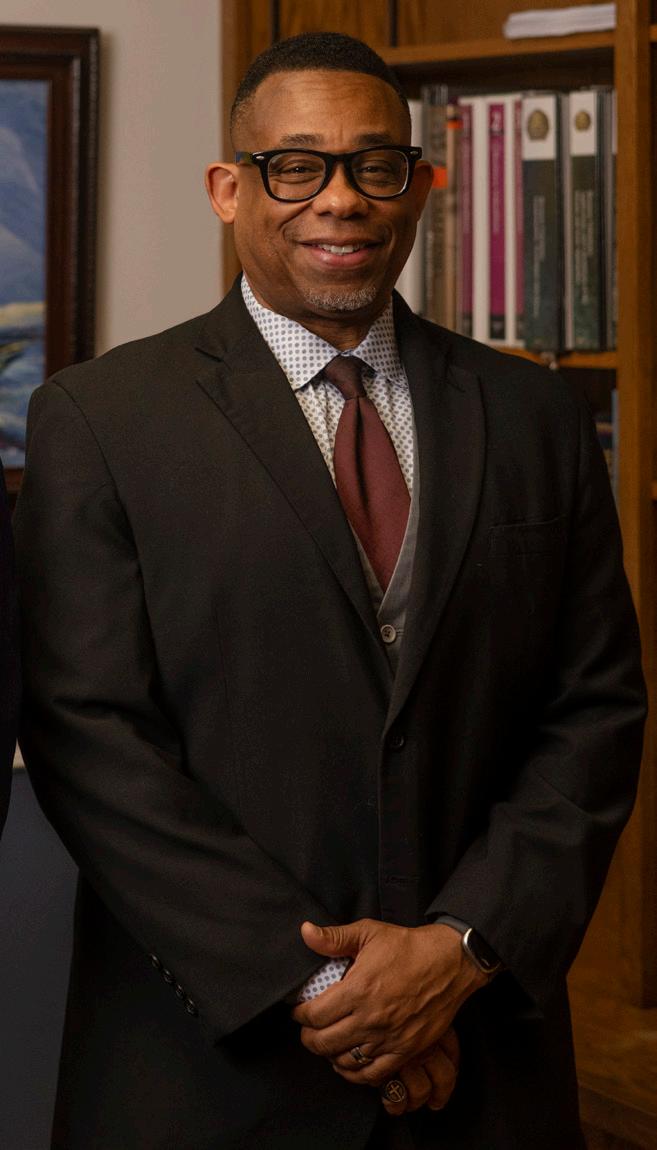

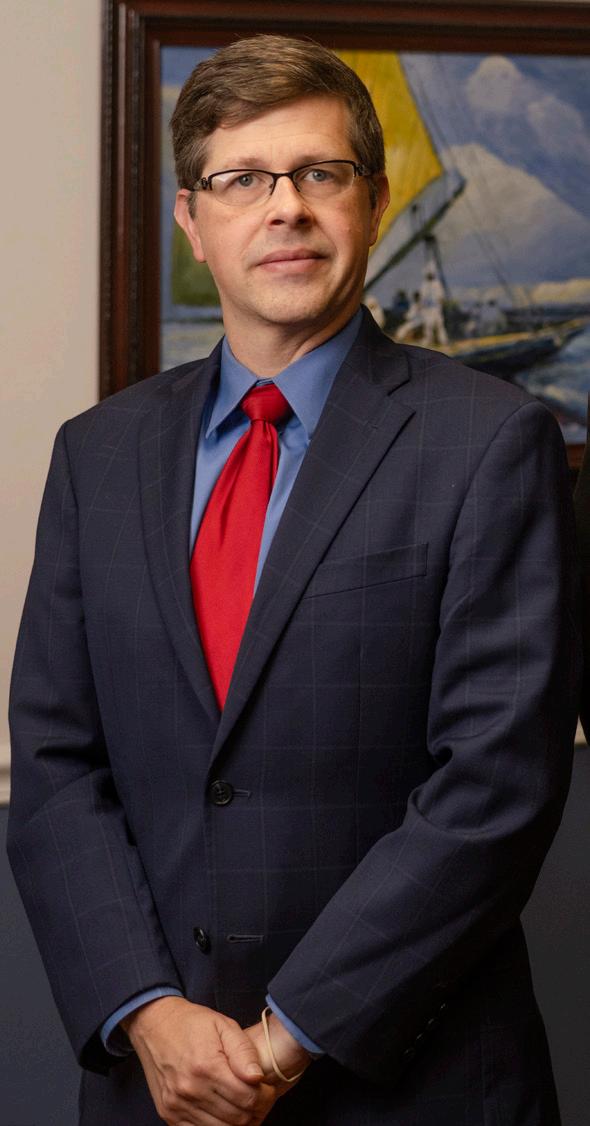

Deron K. Hamilton
C NGRATS!
AMP’s Women in Banking 2025
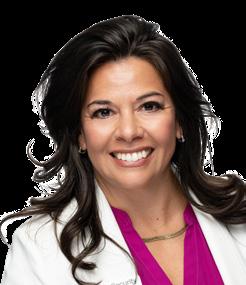
Itzel Sims
Senior Vice President, SBA Director
NMLS#2140020
AMP’s Best Financial Advisors 2025

Andy Arnold*
Senior Vice President, Director of Retirement Plan Services & Wealth Advisor



The executives named to Arkansas Money & Politics’ 2025 list of “Women in Banking” were nominated by readers. In a male-dominated industry, their perseverance, hard work and expertise have propelled them to influential positions in Arkansas banking and finance. We are proud to recognize them in this month’s issue.
Although banking has been a male-dominated industry historically, women are breaking the glass ceiling and rising to the top with the expertise, professional achievements and personal tenacity to succeed. These women in the banking industry are leaders who are making a significant contribution to the profession.

The Path Revealed

PROGRESS MAY BE SLOW, BUT IT IS THERE IN BANKING
INDUSTRY
By Mark Carter

For Latrecia Carroll, operations manager and senior vice president at Stone Bank, the obstacles women have traditionally faced in the banking industry are real but not something that cannot be overcome. Sometimes, one just needs a guide to reveal the path. That is why representation matters in the banking industry, she said.
“I’ll never forget meeting a young girl at a community financial literacy event several years ago. She approached me after my talk, eyes wide with excitement, and said, ‘I didn’t know someone like me could do what you do,’” Carroll said. “In that moment, I realized how important it is for young girls to see someone who looks like them succeeding in this field. If my journey can light the way for the next generation, then every challenge I’ve faced has been worthwhile.”
Women have always had their place in the banking industry. Unfortunately, for far too long, that place was at the teller window. In 2025, things are looking up for women in the field, but that does not mean those who reached the industry’s C-suites did not have to work longer and harder to get there. Even with the example set by Carroll and others, obstacles remain. After all, old practices can take root.
Is the climb any easier for women in banking these days?
“I’m not sure it’s ever easy to advance as a woman,” said Natalie Bartholomew, community president for northwest Arkansas at First Community Bank. “I think the better way to answer this question is that there is more awareness, advocacy and support for women to succeed than there was.”
Indeed, while many in the industry face the same obstacles that have always hindered women, pathways that were once closed are opening up. Carroll said opportunities for women in banking are expanding, and each day brings new possibilities — but progress remains slow.
“The conversation around gender equity has grown louder, and organizations are more aware of the value of diverse leadership,” she said. “While the road hasn’t always been easy, doors are opening, and more women are walking through them with confidence and purpose. Although the journey toward true equity continues, it’s inspiring to witness more doors opening and women stepping boldly through them. The increased focus on gender equity and the recognition of diverse leadership has sparked meaningful change, making the path forward brighter for everyone.”
Hillis Schild, executive director of Arvest Bank’s Arvest Opportunity Fund, sees that focus resulting in progress.
“Leadership roles can still be male dominated, and some amount of pay disparity still exists, but I believe that women have lots of opportunities in banking, and if we apply ourselves to constantly improving our banking skill set, we can go very far in the banking industry,” she said.
Although the U.S. banking industry employs more women than men, the old teller mindset remains entrenched to a degree. The annual Gender Balance Index from the Official Monetary and Financial Institutions Forum, an independent banking think tank, revealed slow progress in 2024. Of the 335 institutions it studied, the proportion of female leaders had risen from 14 percent in 2023 to 16 percent.
WOMEN IN BANKING



“While most banks tend to employ more women than men, women aren’t always represented in executive/leadership positions or in board positions,” Bartholomew said. “I do feel confident that more awareness is made toward providing opportunities for women to advance, but it truly starts with women and allies who are in a position of leadership to pave the way for the women behind them. Are they doing their part to advocate for other women? Are they improving policies and procedures to make the bank a better place for women to work? There is still a lot of work to be done, but we are making progress.”
Carroll credited much of the progress to supportive workplace cultures “with a focus on support, equity and inclusion.”
“Progress may be gradual, but with every stride, women are proving that they belong and that their leadership is both valuable and necessary for the future of the industry,” she said. “Women are not only claiming their seats at the table but are also leading conversations, making strategic decisions and shaping the future of banking in ways that were once unimaginable. Their presence and leadership challenges old views, highlights the importance of diversity and helps the industry innovate and better serve all clients and communities.”
Bartholomew has become an important advocate for women in the industry, if not an outright celebrity. Her The Girl Banker podcast and blog, launched in 2017, has become a national brand. She did so not just to advocate for women bankers but to inspire young women to consider a career in banking, she said.
“What started initially as a blog and a small social media presence has turned into the opportunity to speak on national stages, launch a podcast, a merchandise store and manage a Facebook group that has over 11,000 women in banking from all over the country as members,” she said. “At the end of the day, I’m most proud of the community of women in banking that the platform has created.”
Bartholomew will be the keynote speaker at the annual American Bankers Association Bank Marketing Conference, set for Sept. 15 to 17 in New Orleans. It will mark her third keynote address to
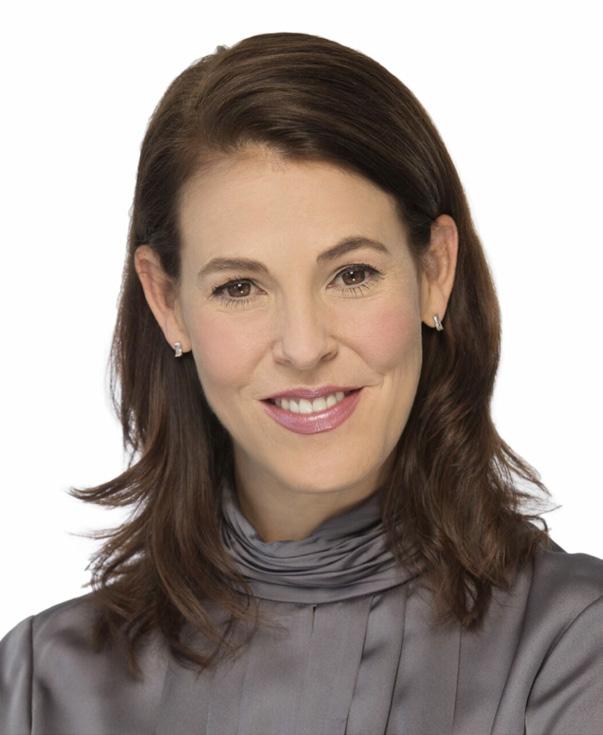
the group. The ABA x The Girl Banker Brunch, themed “Amplifying Women’s Voices,” will kick off the event.
“The idea of the brunch is to set the tone for the rest of the conference with a high energy, inspiring session that features a focus on women in banking,” she said.
Bartholomew takes her role as a banking executive “celebrity” seriously.
“It’s an honor I don’t take lightly,” she said. “I feel there is more I can do to make young women aware of opportunities in the banking industry. Typically, young women don’t seek out careers in banking. Instead, banking typically finds them.”
Schild said being a role model in the industry can be fulfilling, but the thought of inspiring young girls to seek out a banking career is humbling.
“All kids need role models they can relate to, and that’s part of the reason I teach financial education when I’m offered that opportunity,” she said. “Teaching and mentoring kids is one of my favorite things to do.”
Carroll said navigating the industry as a woman — and a woman of color at that — led to her being underestimated, overlooked or challenged simply because of her gender.
“Facing these realities has required resilience, grit and confidence,” she said. “On the other hand, I feel a profound sense of pride. My hard work, accomplishments and presence are breaking barriers and showing what is possible for young girls who might otherwise doubt themselves. For me, every career milestone isn’t just my achievement; it’s a reflection of the potential in others.”
Carroll wants girls and young women thinking about a career in banking to know that the journey is worthwhile and that despite lingering prejudices, a C-suite-level office is waiting if they work hard enough.
“When young girls see my success, I hope it affirms that doors can open, and glass ceilings can be cracked,” she said. “With hard work and perseverance, they too can step into spaces where they belong and even lead with confidence and authenticity.”
Natalie Bartholomew
Latrecia Carroll
Hillis Schild
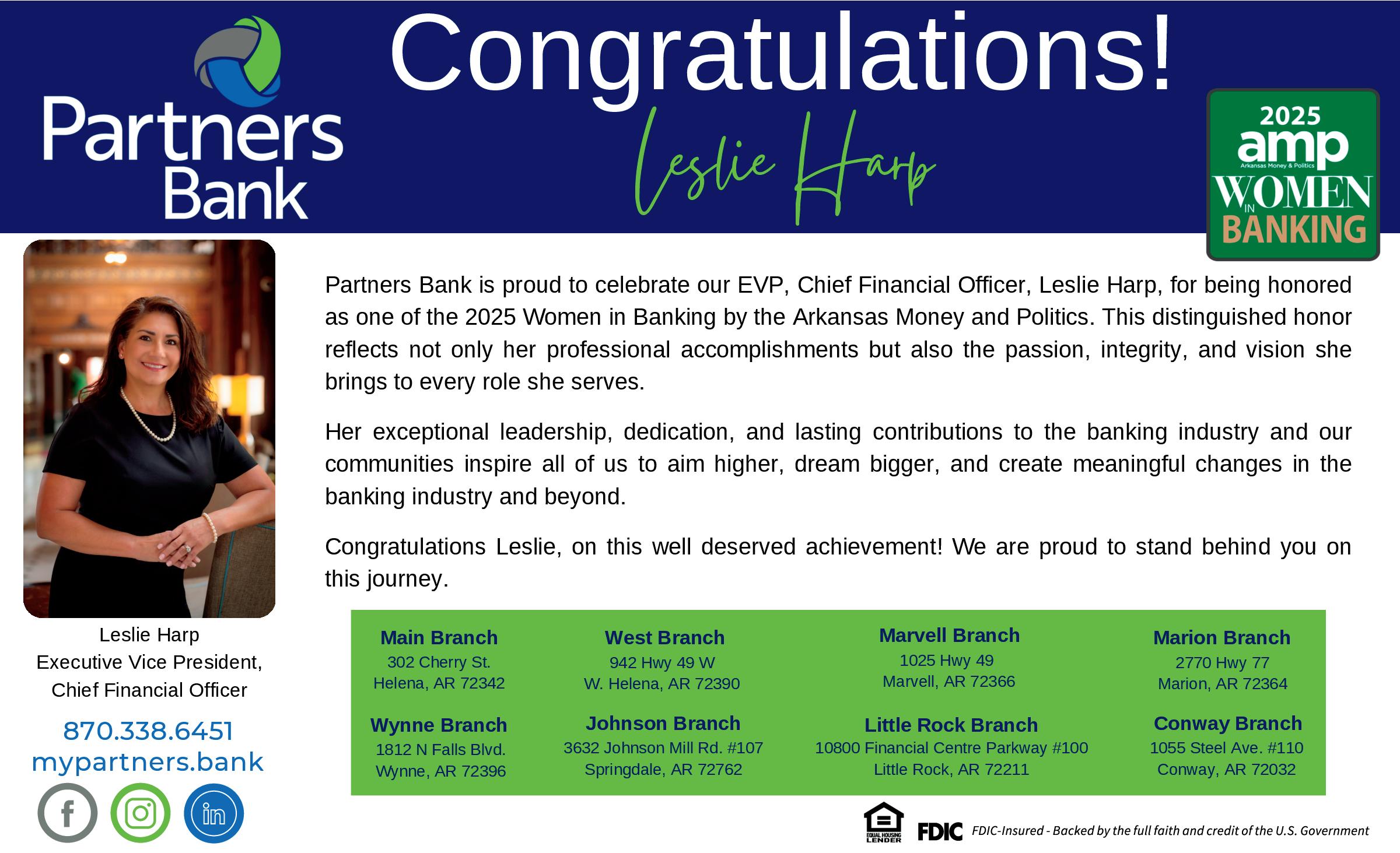
Leaders Who Inspire. Women Who Achieve.
First Financial Bank is honored to congratulate our very own Evelyn Morris and Amber Murphy, recognized among Arkansas’s most influential women in banking. Their leadership not only fuels our bank’s mission but also strengthens the communities we serve.
left to right:
Evelyn Morris | Senior Vice President | Loans Amber Murphy | Vice President | Marketing

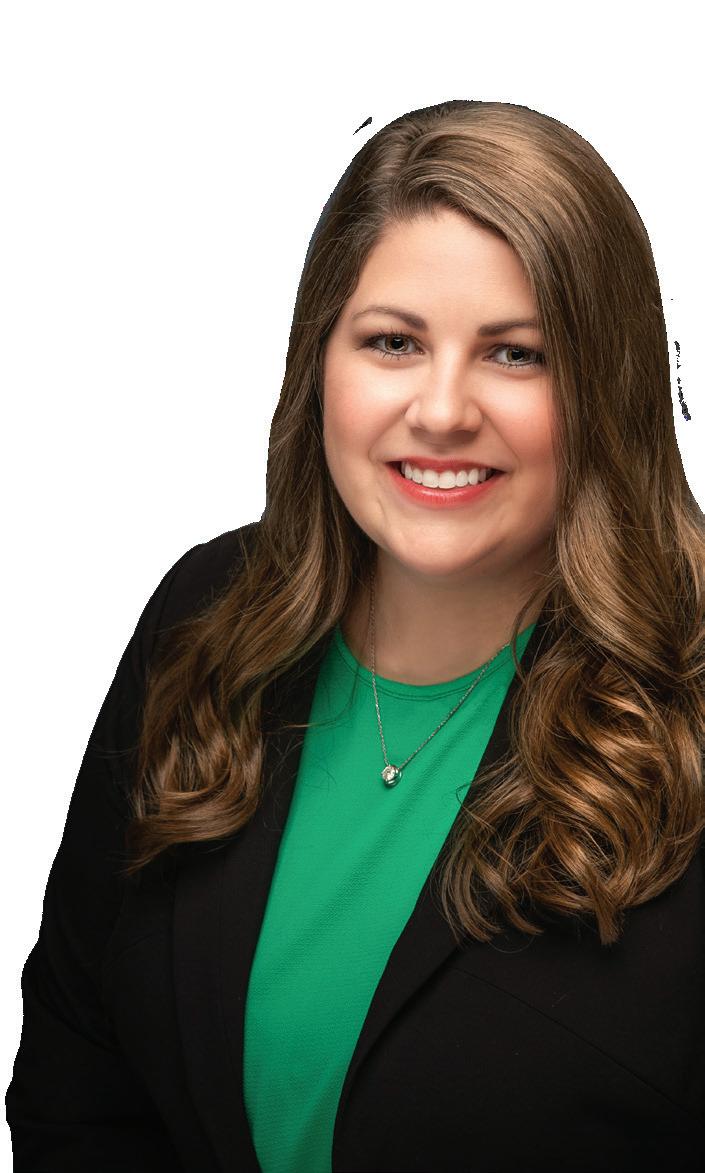

KATHERINE AGUILAR
Relationship Banker II
Merchants & Farmers Bank
BROOKE ALBERSON
VP, Compliance
Piggott State Bank
VICKI ANDERSON
VP/Human Resources Director
The First National Bank of Fort Smith
PAULA APPLEGET
Sales Executive
Bank-Tec South
ADRIANA FUENTES ARCHILA
VP, Community Development
ACC Capital
BETTY ARIVETTE
Senior Vice President
The Malvern National Bank
AMANDA ARMSTRONG
Commercial Loan Officer
Southern Bancorp
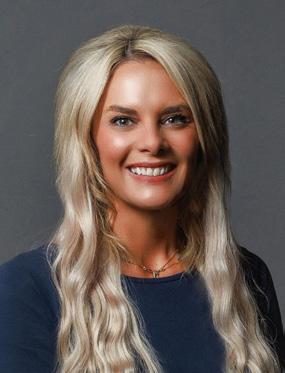
With 18 years of banking experience under her belt, Amanda Armstrong is passionate about helping people navigate their financial journeys, a mission-focused motivation that directly aligns with her role at Southern Bancorp, one of the nation’s oldest and most impactful community development financial institutions. Outside of work, Armstrong is an active member of her local community and school district, and she enjoys cheering on her kids during sports.
KELLY ASHCRAFT
President/COO
Warren Bank & Trust
KENLEA BAKER
VP, Market Operations Coordinator
Bank of Fayetteville and Farmers & Merchants Bank
LESLIE BALLENTINE
CFO
Community First Trust Co.
TIFFANY BARGER
VP, Senior Private Banker
Simmons Bank

Tiffany Barger serves as a vice president and senior private banker at Simmons Bank, where she provides concierge-level financial solutions to high-net-worth individuals, physicians, executives, and business owners. With nearly 20 years of banking experience, Barger specializes in delivering tailored banking and lending strategies designed to simplify complex financial needs. Known for her relationship-driven approach, she partners closely with clients to provide trusted guidance, personalized service and seamless access to Simmons Bank’s exclusive private banking products and services.
NATALIE BARTHOLOMEW
NWA Community President
First Community Bank
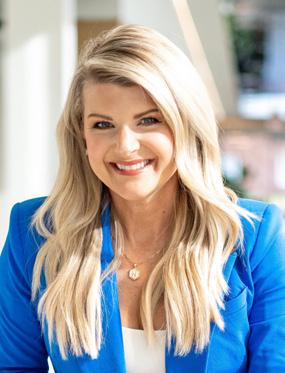
Natalie Bartholomew, a career banker with nearly 25 years of experience in the industry, is the community president in northwest Arkansas at First Community Bank. Bartholomew has a passion for philanthropy and sits on various boards and committees that serve the northwest Arkansas region. She was recognized as the 2015 Young Woman of the Year by the Greater Bentonville Area Chamber of Commerce at the NWA Business Women’s Conference, a 2020 Independent Community Bankers of America “40 Under 40: Community Bank Leaders,” a member of Arkansas Money & Politics “Women in Banking,” and a member of AY About You’s “Intriguing Women” in 2022. She was recently presented with the Young Alumni Award for the department of agricultural business and economics at the University of Arkansas in Fayetteville at the 10th Annual Distinguished Alumnus of the Year event. She received both her bachelor’s and master’s degrees from the University of Arkansas and is an alum of the Graduate School of Banking at Colorado.
She launched The Girl Banker blog in November of 2017 in hopes of creating a voice for women in banking and working mothers. The Girl Banker has been featured in American Banker, the American Bankers Association Bank Marketing newsletter, and a variety of financial industry newsletters since its successful launch. In 2019, she launched The Girl Banker podcast. She and her husband, Colt, have two sons, Brody and Witten.
KELLI BEENE
VP/Director of Human Resources
The Malvern National Bank
KORTNI BEENE
VP/Mortgage Production Leader
Southern Bancorp
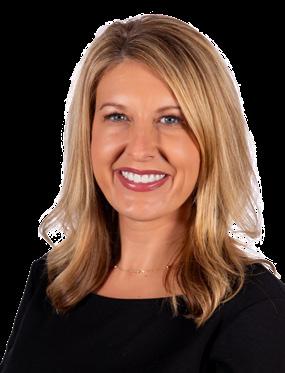
Kortni Beene has helped to lead and guide Southern Bancorp’s growing mortgage efforts for nearly 12 years, helping individuals and families across Arkansas and the Southern region open the door to homeownership no matter their zip code or financial position. She is a proud alum of Henderson State University in Arkadelphia and is a 2025 graduate of the Mortgage Bankers Association of Arkansas’ Future Leaders program.
LUCINDA BISHOP
Financial Officer
Bank of Salem
ANASTASIA BLAYLOCK
CSO
Citizens Bank
TORI BOGNER
SVP/Director of Marketing & Communications
Signature Bank of Arkansas
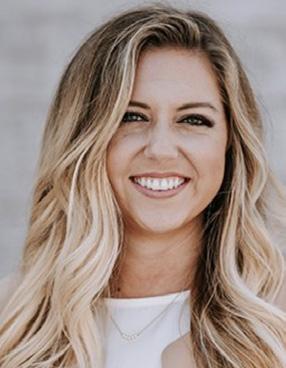
Tori Bogner serves as senior vice president and director of marketing and communications at Signature Bank of Arkansas, where she oversees marketing, communications, advertising, public relations and community engagement initiatives on behalf of the bank. Once described as “wry” by The New York Times, Bogner brings both creativity and strategy to her work while maintaining a deep commitment to the communities she serves. An active community leader, she is a sustainer of the Junior League of Northwest Arkansas, an alumna of Zeta Tau Alpha, and served two terms on the National Board of Directors for the Arkansas Alumni Association. She graduated valedictorian from the now-consolidated Weiner High School before earning both bachelor’s and master’s degrees from the University of Arkansas in Fayetteville, where she also served as student body president. Her dedication to leadership development is reflected in her completion of Leadership Fayetteville, Leadership Benton County and Leadership Arkansas.
LAURA BOGOSLAVSKY
SVP
Eagle Bank & Trust Co.
CHRISTIE BRIGGS
AVP/IT Officer
The First National Bank of Fort Smith
AMY BROOKS
Human Resources Generalist
Chambers Bank
MACHELLE BROWN
AVP/Operations Support Manager
Chambers Bank
SHELBY BRUFFETT
COO
Anstaff Bank
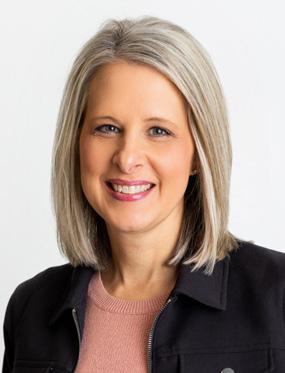
Shelby Bruffett is chief operating officer at Anstaff Bank, where she has worked for 24 years. She previously served the bank in the roles of chief administration officer, chief financial officer, and human resources administrator. A Conway native, she graduated from Conway High School before moving on to Arkansas Tech University in Russellville, where she earned a bachelor’s degree in business administration.
Celebrating Two Decades of Business
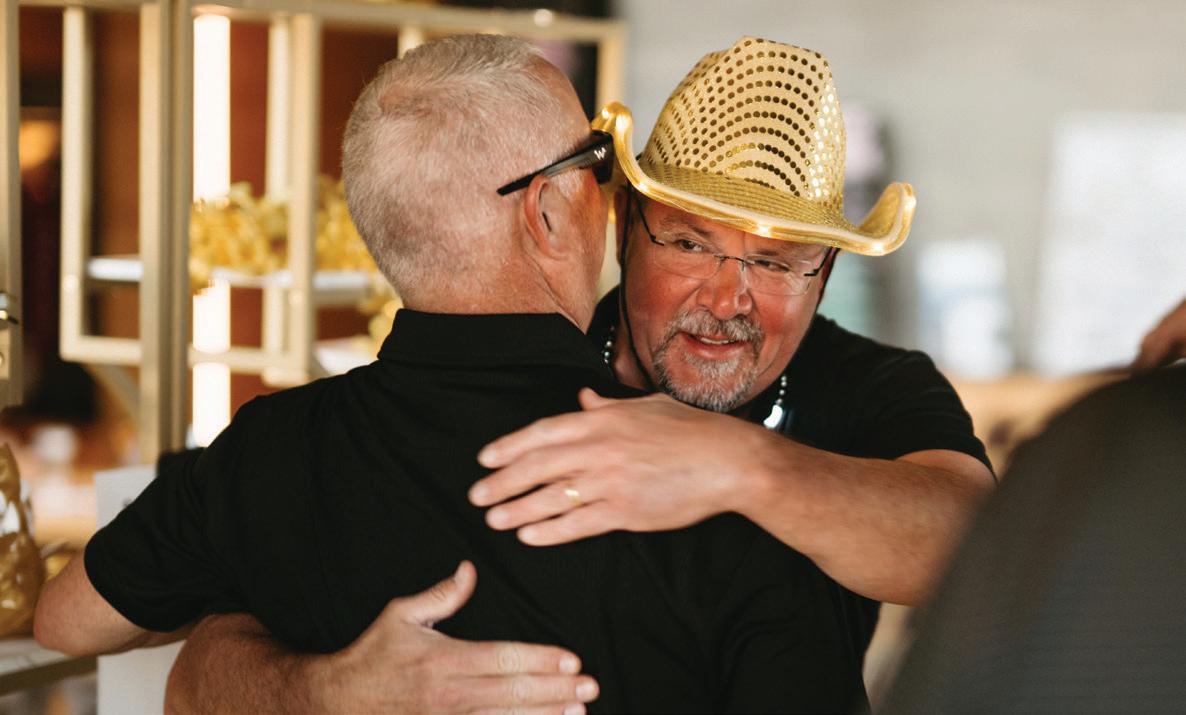
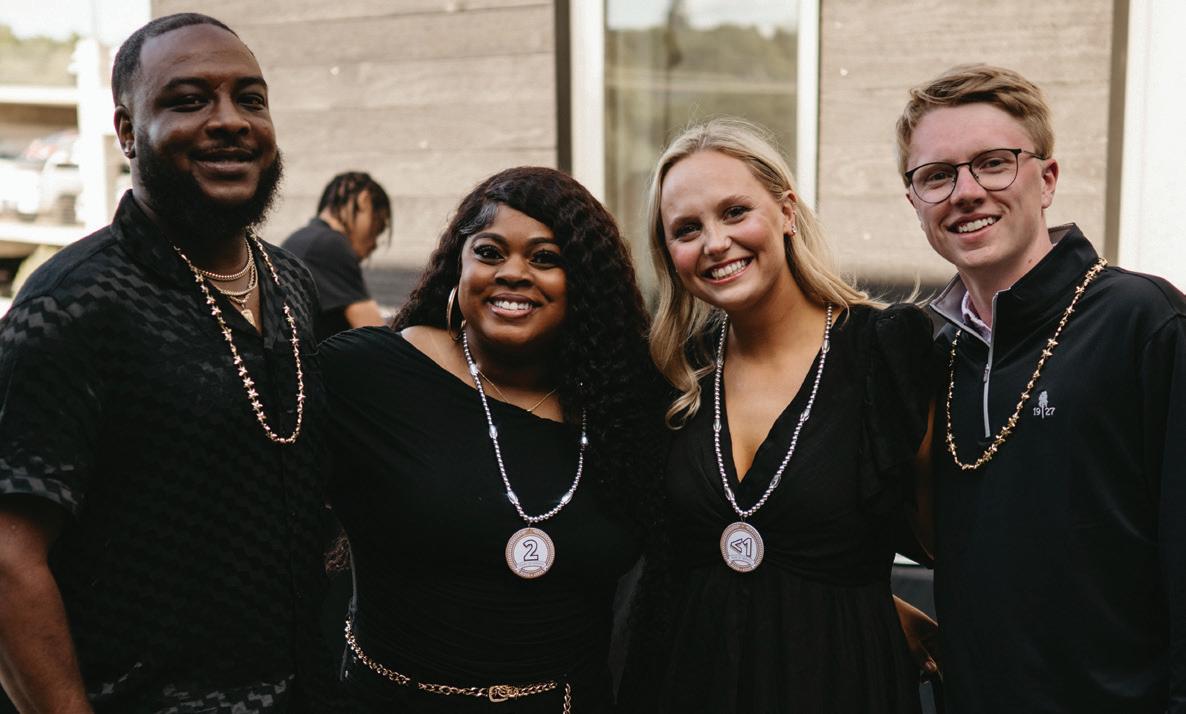


Invested In You Since 2025
Signature Bank of Arkansas opened for business on May 9, 2005.
We’re deeply grateful for your trust in choosing us as your bank. Your continued confidence in Signature Bank is a testament to the strength and tradition of community banking. It’s our honor to uphold that tradition and serve your financial needs.
Going above and beyond for our customers? That’s who we’ve been for 20 years. Here’s to the next two decades!

BREANNA BUNTJER
Assistant Branch Manager
CS Bank
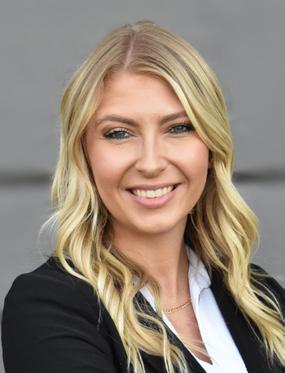
Breanna Buntjer began her banking career in May 2022 as a deposit services representative at CS Bank in Harrison, where she now serves as the assistant branch manager. She believes in the power of community banking; in building lasting relationships with customers, understanding their unique needs, and providing tailored financial solutions on a case-by-case basis.
Breanna received her Associate of Applied Science in Business Administration with emphasis in Office Management from North Arkansas College. She serves on the bank’s internal Visionary Committee and is currently attending the Boone County Leadership Institute.
HALLIE CALVIN
SVP, Commercial Real Estate Centennial Bank
DEE CAMERON
SVP/Loan Administrator/NWA Central Bank
AMY CAMP
VP/Branch Manager Regions Bank
HANNA CANADA
Co-owner Bank of England
TAYLOR CARPENTER
Senior Customer Service Rep Chambers Bank
LATRECIA CARROLL
SVP, Operations Stone Bank

Latrecia Carroll is a graduate of Little Rock Central High School and the University of Arkansas at Little Rock. She has been employed in the banking industry in central Arkansas since receiving her BA in finance. Carroll currently serves as senior vice president and operations manager at Stone Bank, where she supervises employees throughout the company’s six locations and nationwide government-guaranteed lending operation. She serves as VP and president-elect of the Arkansas Bankers Association’s Emerging Leaders Council and is presently enrolled in the American Bankers Association’s Wharton School Leadership program at the University of Pennsylvania. Her volunteer activities include Junior Achievement of Arkansas and the Tjuana Byrd Internship program of the Women’s Foundation of Arkansas.
MELISSA CASEY
EVP/CAO/CFO
CS Bank
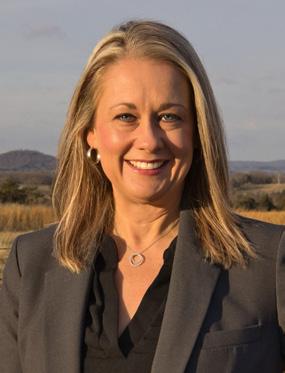
Melissa Casey is executive vice president, chief administrative officer and chief financial officer at CS Bank, where she has been a dedicated employee since 1995. In her role as chief administrative officer, a position she assumed in 2022, she oversees critical areas of the bank including information technology, compliance, data processing, accounting, human resources and overall daily operations.
Casey is deeply committed to fostering excellence within the organization and serves as both a role model and mentor to the women she works alongside. In recognition of her leadership, she was named the Arkansas Power Women in Banking by the Arkansas Bankers Association in 2023. She is also a graduate of the Graduate School of Banking for Financial Managers in Madison, Wisconsin.
KRISTI CLARK
SVP, Equity Capital Markets
Stephens
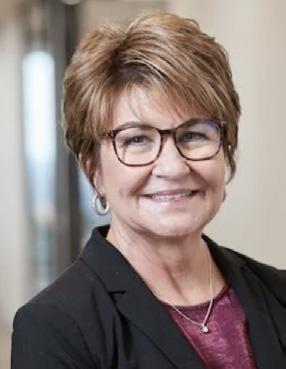
Kristi Clark has been at Stephens since 1991 and a member of the equity capital markets team and debt capital markets team since 1995. Before joining Stephens, she worked as a sales associate for a national consumer products company. Clark received a Bachelor of Science in business administration from the University of Arkansas in Fayetteville in 1983.
J. LYNNE COAN
EVP/COO
First Western Bank
KAMI COLEMAN
VP, Professional Development
Arkansas Bankers Association
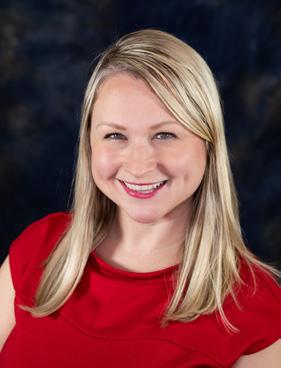
Kami Coleman joined the Arkansas Bankers Association, the state’s largest and oldest banking industry organization, in 2004. In her role as vice president of professional development, she is dedicated to contributing to the professional development growth and the needs of Arkansas bankers and their careers. Her focus includes overseeing all professional development offerings and committees including the state bank convention and the emerging leaders section council. She is passionate about the banking industry and helping to develop Arkansas’s community bankers with continuing education and opportunities within the field.
JENNIFER CROW
BSA Officer
Gateway Bank
KIM CULLUM
EVP/CFO
First Arkansas Bank & Trust
JOY DAILEY
Mortgage Loan Officer
Arvest Mortgage

Joy Dailey is a native Arkansan who grew up in Little Rock and graduated from the University of Arkansas in 2005. Her love of helping people, community, educating others and constant learning serve her well in her role as a mortgage lender. She entered the industry in 2020 and proudly joined the Arvest team in 2022. She is best known for her compassionate, easy going yet professional personality, and desire to create a mortgage experience that is less transactional and more personable, providing customized elite service.
ELIZABETH DANIEL
Managing Director, M&A
Stephens
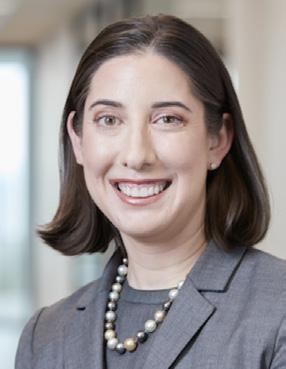
Elizabeth Brotman Daniel joined Stephens in 2016 as part of the mergers and acquisitions group. She advises companies on buysides, sellsides and shareholder activism. Prior to Stephens, Daniel worked at Wells Fargo Securities in the middle market group where she worked on a broad range of transactions, including buyside, sellside and joint venture opportunities, as well as equity and debt transactions. Previously, Daniel worked at Johns Hopkins University in Baltimore, where she was a senior staff member in biomedical engineering and cardiology including responsibility for international programs. Daniel earned a Bachelor of Arts from Johns Hopkins University and a Master of Business Administration from the University of North Carolina at Chapel Hill’s Kenan-Flagler School of Business.
GLENDA DANZY
VP/Commercial Loan Officer
Southern Bancorp
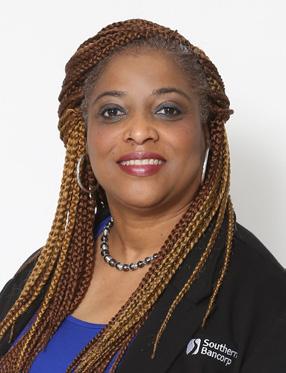
With 37 years of banking experience, Glenda Danzy brings trusted expertise and a heart for service to her role at Southern Bancorp, through which she helps families and entrepreneurs in her community achieve their financial dreams and build solid financial futures no matter their zip code or starting point. Outside of work, Danzy is a devoted wife, mother and grandmother and is an active member of her local church and the Kiwanis Club of Crossett.
KARYN DAVIS
President/CEO
Arkansas Federal Credit Union

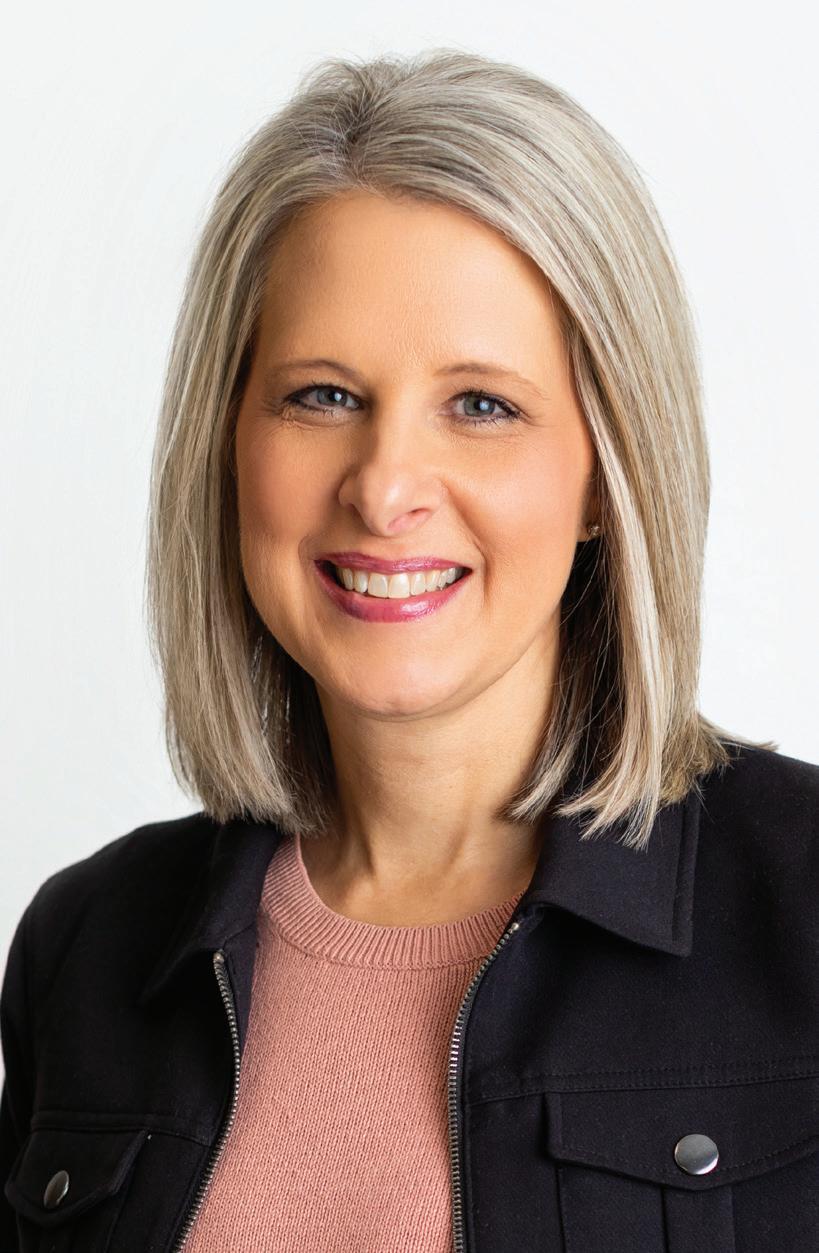
CONGRATULATIONS
Shelby Bruffett Chief Operating Officer
for receiving the prestigious Women in Banking recognition! Her leadership and dedication continue to inspire excellence in banking and beyond.

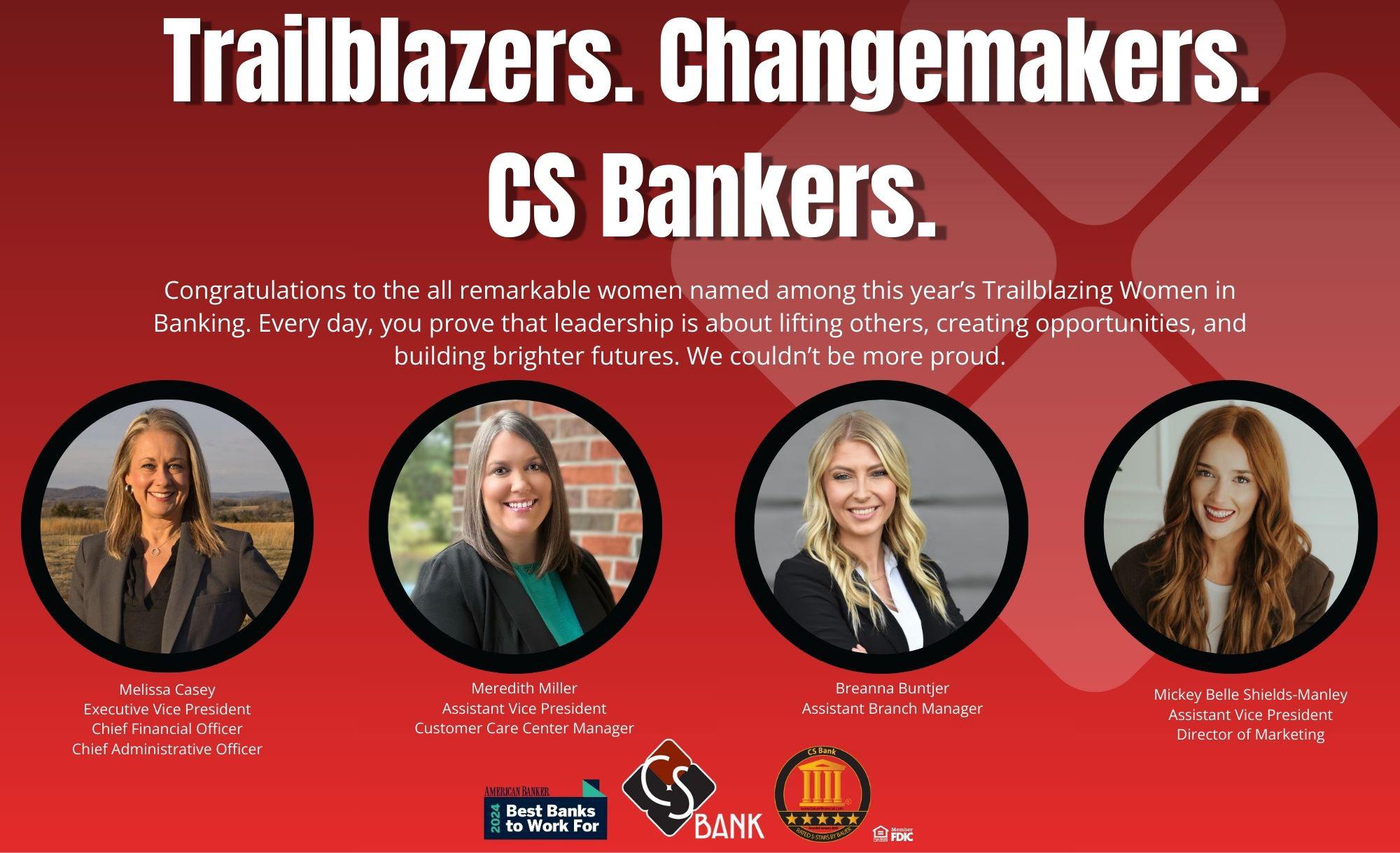
TAMMIE DAVIS
SVP, Community Strategy and Performance
Simmons Bank
VICKEY DAVIS
SVP, Corporate Secretary
Relyance Bank
SHELIA DE ARMOND
SVP, Trust Manager
First Arkansas Bank & Trust
PAIGE DUGAN
Deposit Ops Manager
Chambers Bank
MYRA DUNN
VP, Consumer Loan Officer
Generations Bank
JENNIFER DURAN
COO
Bank of Little Rock

TAMMY ENGLE
President Arvest Bank

Arvest Bank’s Tammy Engle was promoted to president of the Siloam Springs region, which includes nine locations in Siloam Springs, Gentry and eastern Oklahoma, in 2019. She began her career at Arvest in 1998 as a part-time teller while attending John Brown University. She was then promoted to loan assistant before spending more than 20 years in various roles from credit analyst to loan manager. She earned her B.B.A. with a pre-law minor from John Brown before graduating from the Graduate School of Banking at Colorado.
VALERIE ERKMAN
auditor through Independent Community Bankers of America. She is a graduate of Leadership Jonesboro. She serves as clerk for the Arkansas State Association of Free Will Baptists. Fitzgerald is married to Chuck Fitzgerald, who serves as pastor of First Free Will Baptist in Pocahontas. They have two daughters and three grandsons.
TASHA FLANAGIN
SVP, Human Resources/Marketing Bank of 1889
CLARINDA FOOTE
SVP/CAO
Citizens Bank
KELLI FRANKS
VP, Secondary Market Priority Bank
MARLIZ GARCIA
Consumer Loan Officer
Southern Bancorp

Jennifer Duran is chief operating officer at Bank of Little Rock, where she oversees deposit operations, information technology and information security for the $275 million community bank. A career banker, she began at age 16 as a file clerk and built her expertise on the deposit side of community banking. Duran is also a certified community bank technology officer, leading a high-tech team with a high-touch approach to customer service. Her leadership ensures Bank of Little Rock delivers efficient, secure and innovative banking experiences for its customers.
MEGAN ELLER
CEO
Farmers Bank & Trust
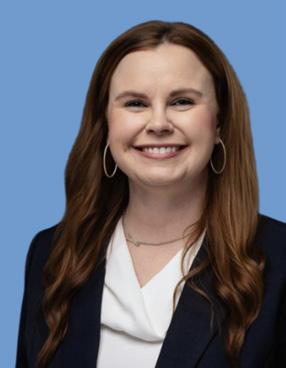
Megan Eller is chief experience officer at Farmers Bank & Trust, where she leads initiatives to enhance customer service and support across the bank’s footprint. She began her career with Farmers 17 years ago as a part-time teller while attending Southern Arkansas University in Magnolia, where she earned her bachelor’s degree in business administration with an emphasis in finance. Over the years, Eller advanced through positions in retail banking, including branch manager, branch administrator and branch administration manager before being named to the executive team. She was part of the inaugural branch administration team created in 2018, a pivotal step in strengthening support for Farmers’ retail staff. She and her husband, Jacob, live in Texarkana with their son, Kade, and enjoy family time together, often shooting hoops in the driveway or making their favorite stop at Dave & Buster’s.
TRACY ELLIOTT
VP, Commercial Lending Centennial Bank
VP, Marketing
Arkansas Federal Credit Union
AMBER FARLEY
Partner/EVP, Brand Development
Financial Marketing Solutions
DANA FERGUSON
VP/Consumer Loan Officer
Generations Bank
KIM FINLEY
VP, Lending
Signature Bank of Arkansas

Kim Finley is a vice president of lending at Signature Bank of Arkansas in Jonesboro. She was part of the founding team who brought Signature Bank to the northeast Arkansas market in 2022. With 27 years of experience in the industry, she is an asset to the Jonesboro team and organization as a whole. Finley was born and raised in Pocahontas and attended Black River Technical College before transferring to Arkansas State University in Jonesboro, where she now resides. She is also a 2023 graduate of the Arkansas Bankers Association banking school.
AMY FITZGERALD
CFO
First National Bank of Commerce

Amy Fitzgerald has served as chief financial officer at First National Bank of Commerce in Walnut Ridge for 10 years, managing the financial operations of the bank. She has worked in banking for 25 years in positions that include vice president-controller, vice president-internal audit manager, vice president-loan officer and associate vice president-assistant controller. Prior to banking, she worked as an auditor for an accounting firm for three years.
Fitzgerald earned a bachelor’s degree in accounting from Arkansas State University in Jonesboro. She is a certified community bank internal
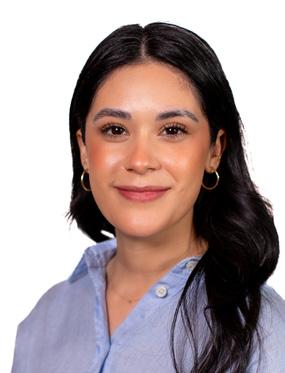
A native of Glenwood, Marliz Garcia is a bilingual consumer loan officer at Southern Bancorp. She is a 2019 graduate of Henderson State University in Arkadelphia, where she earned a bachelor of business administration in accounting. Garcia is deeply involved in and committed to her local community both through her active service in the Glenwood Chamber of Commerce and as a member of the Glenwood Revitalization Group.
SUSAN GUNDERMAN
EVP, Lending Service
Petit Jean State Bank
ROBIN HACKETT
COO
First Service Bank
DONNA HALL
CFO
Bank of Little Rock
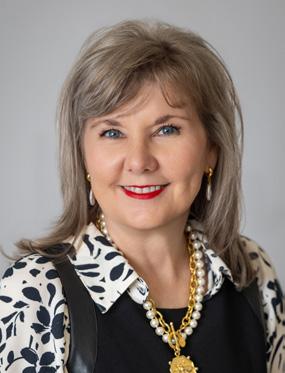
Donna Hall, a certified public accountant, certified regulatory compliance manager and community association management specialist, is chief financial officer at Bank of Little Rock, where she leads financial strategy, regulatory reporting, accounting and human resources for the $275 million community bank. With more than three decades of banking experience, Hall has managed, audited or led nearly every area of the industry, from commercial lending and operations to marketing and information technology. Since joining Bank of Little Rock, she has guided the institution through capital restructuring and growth initiatives while championing the role of community banking in changing lives.
JESSICA HALL
Mortgage Loan Originator
Arkansas Federal Credit Union
MEGAN (ROBINSON) HALL
CIO
First National Bank



JENNIFER HARDIN
COO
The Bank of Fayetteville and Farmers & Merchants Bank
LESLIE HARP
EVP/CFO
Partners Bank
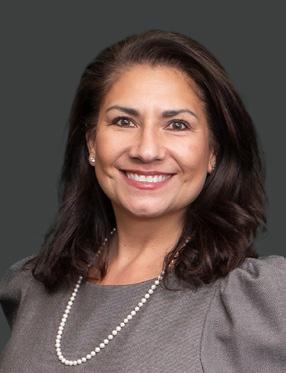
For more than two decades, Leslie Harp has dedicated her career to banking, driven by a passion for helping organizations thrive and communities grow. Since joining Partners Bank as chief financial officer in 2021 and board member in 2022, she has played a key role in guiding the company’s financial strategy, bringing both vision and expertise to her work. A Bentonville native and a graduate of the University of Arkansas in Fayetteville, Harp is currently located at the bank’s Little Rock office. Her leadership reflects the growing impact of women in banking and the lasting difference they make in their communities and organizations.
JULIE HARRELSON
SVP/Office Manager
Encore Bank
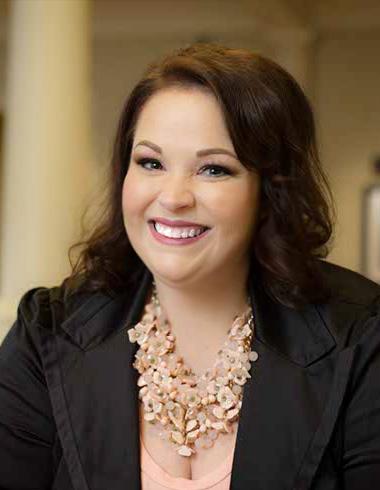
Julie Harrelson serves as senior vice president and office manager at Encore Bank, bringing more than 24 years of banking experience to her role. She believes strong relationships are the foundation of great banking and is dedicated to building genuine connections with her clients. Passionate about service, Harrelson delivers the concierge-style care that defines Encore Bank’s unprecedented commitment to its clients.
Throughout her career, Harrelson has held leadership positions at Metropolitan National Bank and OneBanc, where she established her reputation as a trusted partner in financial services. She is actively engaged in the community, volunteering with the Arkansas Foodbank and Goodwill Industries of Arkansas and serving as a financial literacy educator for Bryant Public Schools. To Harrelson, the key to being a good banker is simple: Connection is everything. Always be confident in one’s abilities, always be kind to people, and make sure there is an excellent team at one’s back.
A proud Saline County native, Harrelson values family. She is the proud mother of her son, Stayton, and dog mom to a Cavapoo, Kingston.
KIMBERLY SHAW HARRIS
SVP, Retail Banking
Gateway Bank
SUZANNE HARTMAN
EVP/CFO
Petit Jean State Bank
JACLYN HENDERSON
Market Executive, Northwest Arkansas and Southwest Missouri/Commercial Banking Leader
Regions Bank
DANITA HIGH
SVP, Culture & Employee Development
First Community Bank
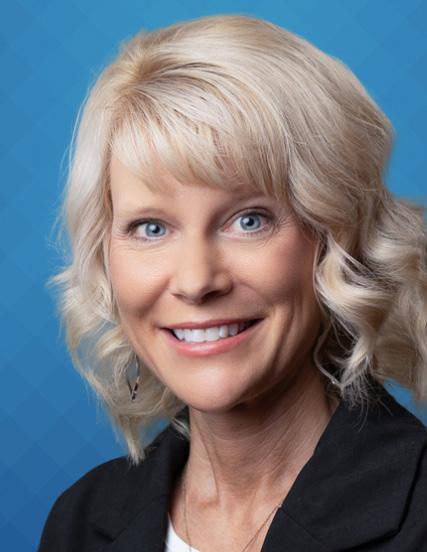
Danita High currently serves as senior vice president of culture and employee development at First Community Bank. She has served in the banking industry for more than 25 years, along with having roles leading and serving women’s ministry programs both nationally and locally, as well as previous work with various nonprofits. After decades of providing spiritual counsel and encouragement, High stepped out with a goal of becoming a certified life coach. She successfully completed her certification and began coaching on a personal basis.
In the fall of 2022, High was asked to bring her passion for coaching in-house through her position at First Community Bank with the development of a management coaching program. In this role, High works with leaders to help them become their B.E.S.T. Balance, Efficiency, Support & Trust.
CINDY HOLLOWAY
SVP
Riverside Bank
ASHLEY HOPKINS
SVP, Retail Banking
Central Bank
ANGELA HORTON
Sales Manager
Generations Bank
SHANNON HOWLAND
Mortgage Lending Supervisor
Arvest Mortgage
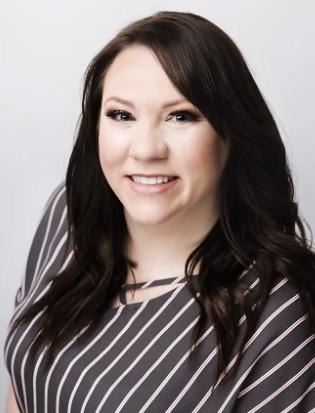
Shannon Howland is passionate about serving her clients with the same attention and care as helping her own family and friends. With her extensive background in mortgage processing and closing, Howland is able to provide in-depth knowledge to help faciliate a smooth closing for her clients. Being in the mortgage industry since 2004, she understands that each client has unique circumstances that require attention to detail and thorough questions, along with a desire for a tailored experience to home buying. She is a graduate of Colorado State University with a Bachelor of Science degree in Business Management and a Master of Science degree in Organizational Leadership.
KASEY JARACZ
VP, Loan Operations
First Service Bank
GLORIA JOHNSON
SVP/Director of Human Resources
First Arkansas Bank & Trust
HEATHER JONES
President/SVP/Senior Relationship Manager
Bank of America Arkansas
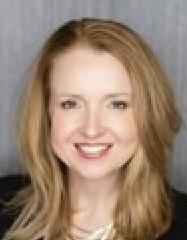
Heather Jones is president of Bank of America Arkansas. As the senior executive for the state, she is responsible for connecting clients, teammates and communities to the full power of the franchise, driving integration across eight lines of business spanning wealth management, consumer, smallbusiness and commercial banking among others. Since assuming her role, Jones has overseen the distribution of $2 million to nonprofits across the state. Based in Little Rock, Jones joined Bank of America in 2005 as a credit analyst in the global commercial bank and has served in several roles within commercial credit and relationship management. She received her undergraduate degree in economics and finance from Arkansas Tech University in Russellville and her Master of Business Administration from University of Central Arkansas in Conway. She also has Financial Industry Regulatory Authority certifications for Series 7 and Series 63 securities licenses.
REAGAN JONES
AVP/Regional Retail Manager-Central Chambers Bank
ALISA KELLY
SVP/Director of Audit
Chambers Bank
PAULA KINNAMON
EVP
Priority Bank
APRIL LAFFERTY-PRATER
Small Business Banker
Arvest Bank-Cabot

April Lafferty-Prater started her professional banking career as a teller, moving to manager, ending the first phase as a loan assistant to the senior vice president. After leaving to work with special needs students in Cabot schools, she returned to banking as a teller before being promoted to assistant manager, commercial loan assistant at Arvest and finally, small business banker in Cabot. She received her associate’s degree in business administration and management from Arkansas State University-Beebe.
KATIE LAMBERT
Consumer Banking Market Leader
Bank of America
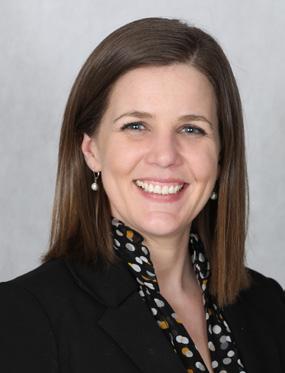
Katie Lambert is vice president and consumer banking market leader at Bank of America Arkansas. In her role, Lambert works with her team to grow and protect the financial well-being of clients and the communities the bank serves by providing the right solutions to help them improve their

financial health. She joined Bank of America in 2017 after spending 15 years in the retail clothing industry. She earned an undergraduate degree in English literature and education from the University of Colorado and a Master of Business Administration from Oklahoma State University. She is also a Society for Human Resource Management Certified Professional.
ANDREA HOGAN LEWIS
Community Reinvestment Act Officer VP
First Security Bank
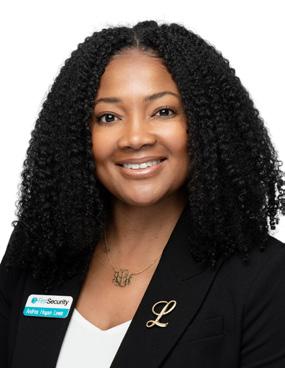
Andrea Hogan Lewis, community reinvestment act officer Vice President at First Security Bank, is very active in identifying and meeting the credit services needs within the community. Lewis has a passion for educating youth on the importance of saving money and increasing financial literacy amongst her local school districts and nonprofit organizations. She is a strong leader in the Little Rock community as a board member of Economics Arkansas, Sistas-N-Law and RISE by Respectfully Social. She is an advocate for the Arkansas Foodbank and is the Little Rock city director for Ward 6.
SHEILA LILLY
EVP
Priority Bank
ALEXANDRA LUNDELL
SVP Stephens

Alexandra Lundell joined Stephens in 2014 and currently serves as a senior vice president in the firm’s industrial distribution and services group. Prior to joining the ID&S group, she was an analyst working with the specialty finance and industrial distribution and services investment banking groups where she participated in a wide variety of mergers and acquisitions and capital-raising transactions. Lundell received a Bachelor of Business Administration in banking and finance from the University of Georgia, from which she graduated summa cum laude.
STEFANIE LYLES
Branch Manager/Mortgage Banker
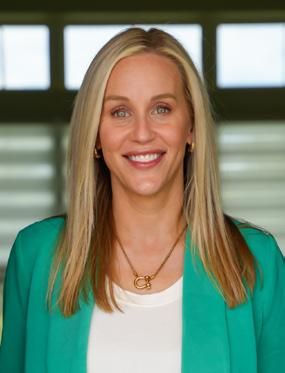
KIMBERLY MARKLAND
President/CEO
Bank of Little Rock

Kim Markland is president and chief executive officer at Bank of Little Rock, leading the $275 million community bank with a focus on growth, service and innovation. She began her career as a state bank examiner, gaining valuable insight into the financial system before moving into community banking. Over the years, she has held leadership roles in lending, retail, audit and executive management, giving her a broad perspective on the industry. Under Markland’s leadership, Bank of Little Rock has navigated capital restructuring and strengthened its balance sheet while staying committed to customers, employees and the local community.
SUSANNAH MARSHALL
Commissioner and Securities Commissioner
Arkansas State Bank Department
ASHLEY MARTIN
Personal Banker
First Community Bank

Ashley Martin serves as a personal banker at First Community Bank, where she assists customers with their daily banking needs and helps individuals and families open new accounts to reach their financial goals. She began her banking career in 2019 and joined First Community Bank in 2021, bringing with her six years of experience in customer service and account management. Martin proudly served in the Army National Guard for six years, an experience that instilled in her a deep commitment to service and community. That commitment carries over into her volunteer work with the City of Hope Outreach, a nonprofit organization dedicated to serving the less fortunate. She serves on CoHO’s housing committee, where she plays a role in the Hope Village project, which is building tiny homes for veterans and those experiencing homelessness.
MEREDITH MILLER
AVP/Customer Care Center Manager
CS Bank
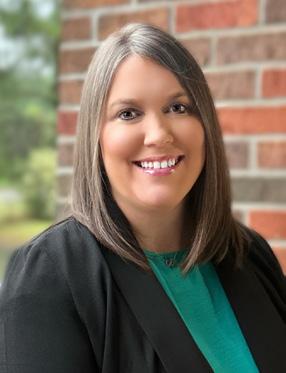
Meredith Miller serves as AVP and customer care center manager at CS Bank in Eureka Springs. With over a decade of service at CS Bank and additional early experience as a teller, Meredith brings a deep understanding of community banking. She played a key leadership role in launching the bank’s Interactive Teller Machines (ITMs), now serving customers at 12 ITMs across 7 locations in northwest Arkansas and southwest Missouri. A passionate community advocate, she is a past president of the Huntsville Chamber of Commerce and has actively supported Huntsville athletic booster clubs for the last seven years. Miller holds a bachelor’s degree in early childhood education from the University of Arkansas and a Master of Science in Education from Arkansas State University.
KATHERINE MITCHELL
SVP, Bank Services
Relyance Bank
MELISSA MOORE
SVP/Regional Executive Bank OZK

Melissa Moore brings more than two decades of experience in consumer and smallbusiness banking in the Arkansas River Valley region. In her current role as senior vice president regional executive at Bank OZK, Moore has served in leadership roles in commercial banking, credit and small-business lending. Along with years of experience with financial analysis, Moore also brings a strong commitment to customer service in every aspect of the banking business. She graduated from Arkansas Tech University in Russellville with a bachelor’s degree in banking and professional studies.
PAULA MORAN
Mortgage Loan Officer
Relyance Bank
The Lyles Team - Sente Mortgage Stefanie Lyles has more than 17 years of mortgage experience and works to make sure that her clients’ financial goals are met. She has the ability to provide personalized, informed mortgage planning while getting clients to the closing table with as little stress as possible. She specializes in Veterans Affairs, U.S. Department of Agriculture, Federal Housing Administration and conventional financing.
A dedicated mother of four children ages 15, 9, 6 and 4, Martin values her role both at home and in the community. She is passionate about helping others, whether by guiding customers through their financial journey, supporting local veterans or contributing to initiatives that create lasting change.
GWEN MASSINGILL
SVP, Marketing & Community Relations
Petit Jean State Bank
DARLA MCJUNKINS
SVP, Commercial Loans & Risk Management
First Service Bank
LEAH JO MORE
EVP/COO
Grand Savings Bank
EVELYN MORRIS
SVP, Loan Operations
First Financial Bank
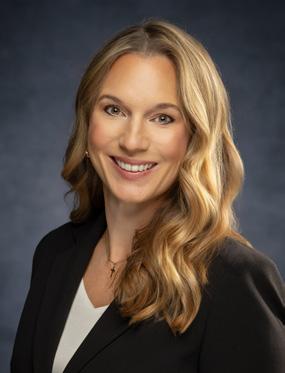
Evelyn Morris joined First Financial Bank in 2014 and led the development to streamline and centralize loan operations across the bank’s national footprint. Morris started her banking career more than 20 years ago at the Arkansas State Bank Department, where she worked as a senior bank examiner. In 2025, she was promoted



LEADERSHIP IN BANKING
Julie’s dedication reflects the very best of Encore Bank. We are honored to celebrate her achievements and the positive impact she makes every day.



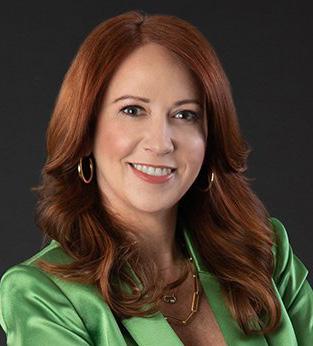
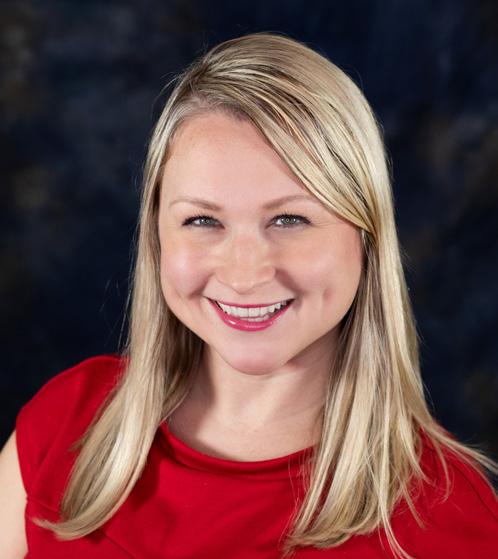


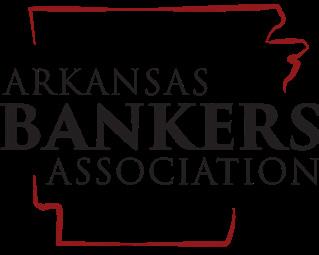

to senior vice president of loans at First Financial Bank. She is a graduate of the University of Arkansas in Fayetteville and the Barret School of Banking in Memphis. She was named to the Independent Community Bankers of America “40 Under 40: Community Bank Leaders” list in 2021 and was a 2022 recipient of the Arkansas Bankers Association’s Power Woman in Banking award. She also shares her leadership and expertise outside the workplace, serving as the El Dorado Salvation Army board president and on the El Dorado Chamber of Commerce Board. She is a past board member of the Arkansas Bankers Association Emerging Leaders Council and the United Way of Union County.
AMBER MURPHY
VP, Marketing
First Financial Bank

Amber Murphy has been at First Financial Bank since 2013 and leads the bank’s brand strategy, marketing, communications and community engagement efforts as vice president and marketing director. A graduate of the University of Arkansas in Fayetteville and the American Bankers Association Bank Marketing School, Murphy brings both expertise and energy to the banking industry. She is chairman-elect of the Arkansas Bankers Association Ascending Bankers Section, where she helps champion the next generation of leaders, and serves as vice president of the Boys & Girls Clubs of Union County Board of Directors, reflecting her commitment to giving back and creating opportunities in her community.
SARAH MYERS
Agricultural Loan Officer II
Farmers Bank & Trust

Sarah Myers has been serving her hometown of Nashville, Arkansas, since 2022, when Farmer’s Bank & Trust established a full-time banking branch. Myers brings with her 13 years of banking experience and graduated from Southern Arkansas with a Bachelor of Arts in agriculture business. When not working with the Nashville community, Myers enjoys spending time with her husband, Mark, and their two daughters, Claire and Avery. Myers has also served as a member of the Nashville Rotary Club.
ANDREA NICHOLSON
SVP/CFO
First State Bank
AMBER OFFUTT
SVP/Controller
Gateway Bank
CATHY OWEN
Chairman
Eagle Bank & Trust Co.
ERICA PRESTON
CBO Chambers Bank
KATHY RAMSEY
City President
Southern Bancorp

With more than 42 years of banking experience, Kathy Ramsey is a trusted lender who brings both expertise and heart to every customer interaction. As city president, Ramsey leads Southern Bancorp’s lending efforts in Malvern and the surrounding areas, helping the institution fulfill its mission to provide responsible and responsive financial services to underserved communities. Ramsey has been honored by local publicationsand has served on the Baptist Medical CenterHot Spring County Board of Directors, the City of Malvern Revolving Loan Fund Committee and the Hot Spring County Economic Development Board.
BRANDI RAY
AVP/Senior Loan Officer
Farmers Bank & Trust

Brandi Ray has found a home at Farmer’s Bank & Trust. Based in Malvern, Ray started with Farmer’s in 2010 as a loan assistant. Now with more than a decade of experience, she works closely with customers to walk them through the sometimesdaunting mortgage process. Ray’s commitment to the Malvern area runs deep. She was a graduate of nearby Poyen High School and began her career path as a teller at Malvern National Bank in 2005. Ray has also served on the Arkansas Bankers Association Board of Directors. She and her husband, Nathan, are the proud parents of two daughters.
PHYLLIS RIGGINS
Managing Director/Head of Media
Stephens
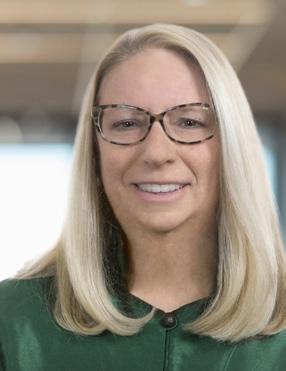
Phyllis Riggins joined Stephens in 2008 as a managing director in the media group. Most recently, she was a managing director at Bluffview Capital, an investment banking boutique firm in Dallas. Previously, Riggins was a managing director and group head of the global media and telecommunications corporate and investment banking group of Banc of America Securities, formerly NationsBanc Montgomery Securities. There, she was responsible for the coverage of U.S. and European relationships in the cable/broadband, broadcasting, publishing, out-of-home media, content, and wireline and wireless telecommunications sectors. She spent more than 20 years at Banc of America and its predecessors, working with clients on a variety of strategic alternatives and solutions, including mergers and acquisitions, private and public equity, and private and public debt. She is also a former director
of Clear Channel Communications. Riggins graduated Phi Beta Kappa and magna cum laude with a Bachelor of Arts from Vanderbilt University in Tennessee and received an Master of Business Administration from Southern Methodist University in Texas.
LORI ROSS
Arkadelphia President
Citizens Bank
HILLIS SCHILD
Director of Communications and Community Development
Arvest Bank

Hillis Schild is a longtime resident of Little Rock where she began working in the banking industry more than 29 years ago. She is the director of communications and community development for Arvest Bank for northeast, southwest and central Arkansas. Her role focuses on internal and external communication, as well as assisting the bank in meeting expectations of the Community Reinvestment Act. She currently provides technical and financial advice through service on the following organizations’ board of directors or advisory committees: Arkansas Coalition for Housing and Neighborhood Growth and Empowerment, SoMa 501, Junior Achievement of Arkansas – Central Advisory Board, Arkansas Access to Justice Foundation, Pulaski County Brownfield Revolving Loan Committee, University District Development Corporation, the Federal Reserve Bank of St. Louis Community Development Advisory Council, and the Heartland Renaissance LowIncome Advisory Committee.
MICKEY BELLE SHIELDS-MANLEY
AVP/Director of Marketing
CS Bank

Mickey Belle Shields-Manley is assistant vice president and director of marketing at CS Bank, a $610 million community bank headquartered in Eureka Springs. A young leader in financial marketing, she directs the bank’s brand, market, and community development strategy. She attended Arkansas Tech University and later completed the American Bankers Association Bank Marketing School, where she achieved the CFMP designation, the industry’s top certification for bank marketers. Shields-Manley serves on the ABA Bank Marketing School Advisory Board, the ABA Marketing and Member Engagement Committee, and the ABA Ascending Bankers Advisory Board. Her leadership has been recognized with the Arkansas Bankers Association’s 2023 Bill Holmes Emerging Leader Award and as one of Arkansas’s Future 50 leaders to watch. She also helped guide CS Bank to national recognition as ICBA’s 2023 Best Community Bank to Work For and American Banker’s 2024 honoree.

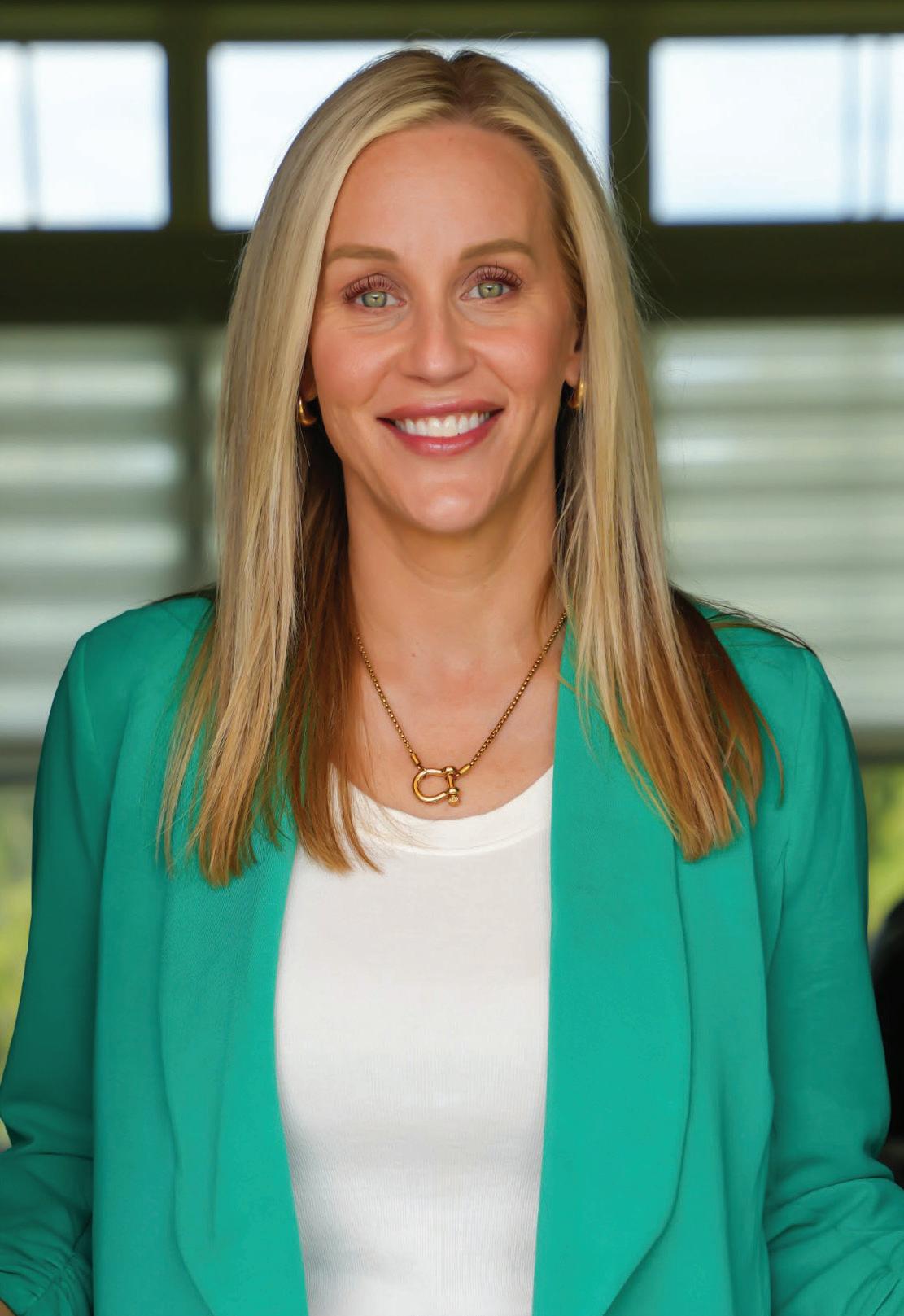





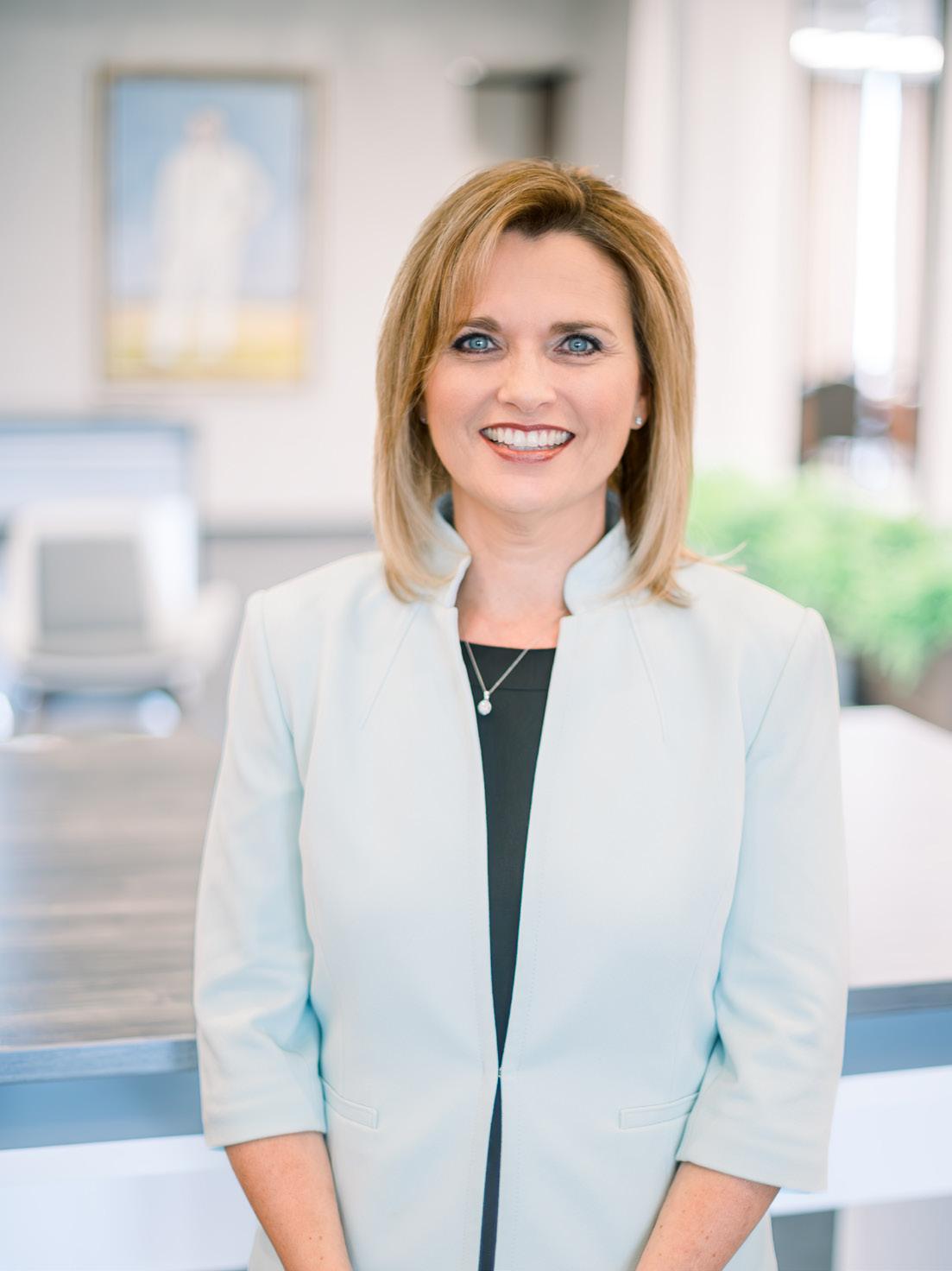




KRISTI SHUSTER
VP/Commercial and Consumer Lender
Bank of Little Rock
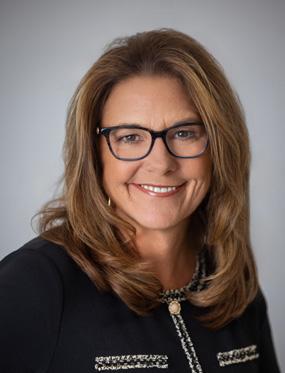
Kristi Shuster is vice president and commercial and consumer lender at Bank of Little Rock, where she has built lasting relationships with customers through more than three decades of service. She began her career in banking 42 years ago and has grown alongside the bank, developing expertise in retail banking, security and lending. Known for her customer-focused approach, Shuster has become a trusted partner for local business owners and a cornerstone of the bank’s success. Her dedication reflects the mission of community banking at its best.
DANA SILASKI
Managing Director
Stephens
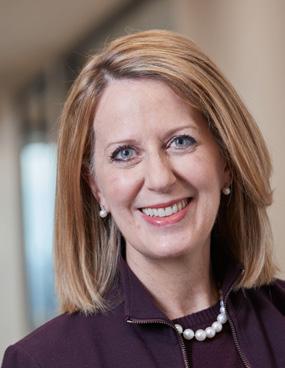
Dana Silaski joined Stephens in 1994. She is a managing director in the private capital markets group and leads the private company advisory team. Throughout her career, Silaski has advised private and familyowned companies, often multigenerational, as they consider financing alternatives and paths to maximize value. Silaski has played a key role in structuring and negotiating private capital transactions for Stephens’ corporate clients across a broad range of industries and with a variety of capital sources, including family offices. Her experience includes minority and control transactions and preparing for and executing merger and acquisition transactions, as well as debt, equity and equity-linked financings. Prior to Stephens, Silaski managed equity and fixed income portfolios at a regional trust company. She is a chartered financial analyst and earned a Bachelor of Science in Business Administration with high honors in finance at the University of Arkansas in Fayetteville.
ITZEL MEADOR SIMS
SBA Director
First Security Bank

Itzel Sims serves as the Small Business Administration director at First Security Bank, overseeing all facets of SBA loan operations. With a robust 25-year background in small business lending, Sims has excelled in empowering small businesses and addressing challenges that traditional financing often overlooks. Sims leads efforts for loan origination, processing, servicing and liquidation of SBA loans. Her skills to empower small businesses is evident in her success in securing more than $700 million through SBA loan programs.
SIMONE SINGH
Commercial Loan Officer
The Bank of Fayetteville and Farmers & Merchants Bank
TRACEY SNELL
Consumer Banking Manager
Regions Financial Corp.
LAUREN SANDERS STATON
AVP, Treasury Management Administration & Sales
Relyance Bank
PAULA COFFIELD STYERS
SVP, Commercial Lending
Relyance Bank
CHERYL TAYLOR
SVP, Business Solutions
First National Bank
SARAH LYNCH TEFTELLER
VP/Commercial Loan Officer
Generations Bank
JUDY THOMPSON
Accountant Relationship Manager
Gateway Bank
DONNA TOWNSELL
Director of Investor Relations
Centennial Bank
LORRIE P. TROGDEN
President & CEO
Arkansas Bankers Association

Lorrie Trogden serves as the president and CEO of the Arkansas Bankers Association. She leads the association’s strategic initiatives including planning, member services, governance and legislative affairs at the state and federal level. Trogden has a Bachelor of Arts in political science, a Master of Science in operations management and is an American Society of Association Executives Certified Association Executive. She serves as a trustee for the Graduate Schools of Banking at Louisiana State University and Wisconsin, as Economics Arkansas vice chairman, on the Arkansas Capital Corp. Executive Committee, and on the boards of the Arkansas State Chamber of Commerce/Associated Industries of Arkansas, Arkansas Society of Professional Lobbyists and Arkansas State Business Executives.
JAMIE WALLER
VP/Loan Officer
Peoples Bank
MARET CAHILL WICKS
SVP
Arvest Bank

As SVP and marketing manager at Arvest Bank, Maret Cahill Wicks, CFMP, leads a team focused on building meaningful connections within the community while driving strategic growth across the market. With a background in nonprofit leadership and more than 10 years of experience in marketing, she specializes in aligning campaigns with business goals, supporting sales strategy and ensuring regulatory compliance, including CRA. Wicks is passionate about financial education, inclusive outreach and creating programs that truly make an impact. She is CFMP-certified and a proud board member of the Arkansas Single Parent Scholarship Fund.
RHEA WILLIAMS
VP/CRA/Compliance Officer
First Arkansas Bank & Trust
EVELYN WITHAM
Mortgage Loan Originator
Arkansas Federal Credit Union
NATALIE WOMACK
SVP, Lending Operations
Simmons Bank
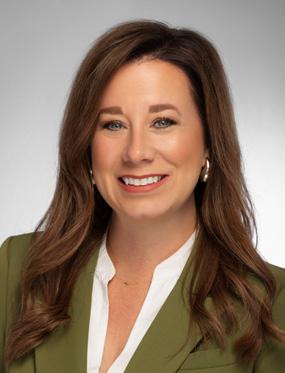
Natalie Womack serves as the senior vice president of lending operations at Simmons Bank, where she leads the strategic direction and execution of the bank’s consumer loan origination, servicing and default operations across a six-state footprint.
Since joining Simmons in 2016, she has led the transformation of the consumer default servicing function with a strong emphasis on regulatory and legal compliance, risk mitigation and operational controls. In 2018, her role expanded to include consumer loan servicing and loan origination, where she continues to drive performance results through process optimization and team development.
A proud alum of the University of Arkansas in Fayetteville with more than 18 years in mortgage servicing and 7 years in consumer loan origination, Womack has successfully led through complex regulatory environments while driving innovation and operational excellence across the lending operations.


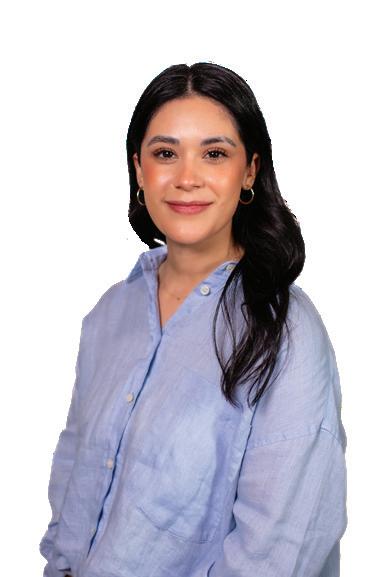



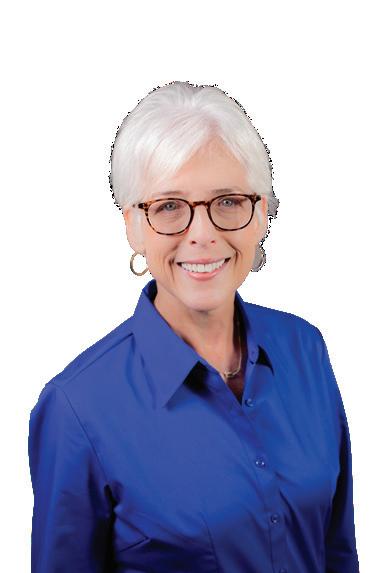



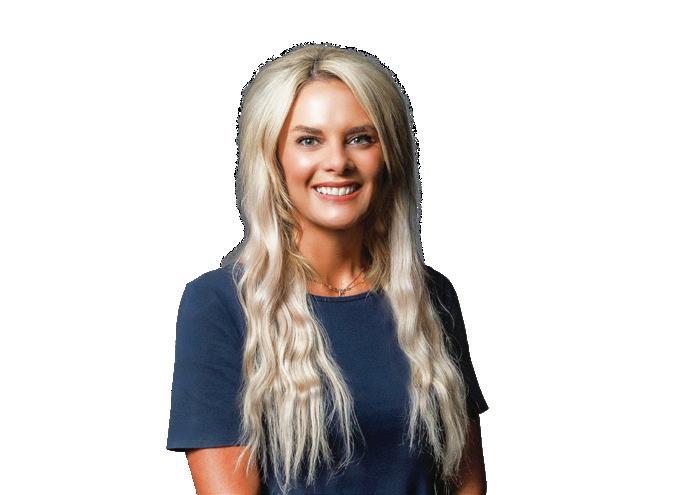


STRINGPURSE S

By Mark Carter
Inuncertain times, people tend to clutch their purse strings a little tighter.
Arkansas Money & Politics spoke with three local financial advisors Beckie Comstock, chartered retirement planning counselor and financial advisor at Brown Comstock Private Wealth Advisors in Hot Springs; Marshall Moon, principal at Meridian Investment Advisors in Little Rock; and Scott Daniel, accredited investment fiduciary and certified exit planning advisor, Little Rock-based managing director and investment advisor for WealthPath Advisors for their thoughts about the current market, advice for pending retirees and young adults just starting to build their nest eggs, trends, and more.
Arkansas Money & Politics: In this market, what questions should clients and potential investors be asking, and what should be their biggest concerns?
Beckie Comstock: In any market, I feel like the fundamental questions should remain consistent:
•What’s my time horizon? The longer you have until retirement, the better you can weather market volatility.
• Am I properly diversified? Changes in the economy and macroeconomic conditions might warrant periodic adjustments to your allocation.
• Do you have enough easily accessible cash for emergencies? Liquidating investments for emergencies is not always ideal, so it’s important that you have enough set aside to cover those immediate needs.
• Am I focusing on the bigger picture (retirement) rather than reacting to current headlines? Working with a professional financial advisor can help maintain perspective and avoid impulsive decisions.
Marshall Moon: In the current economic climate, the focus should be on understanding and mitigating risk and aligning their portfolio with their long-term financial plan. It’s important to understand not only their tolerance for risk, but also their capacity for risk, so not only do they need to understand how much risk they can handle from an emotional perspective but how much risk and volatility they can mathematically absorb according to their financial plan.


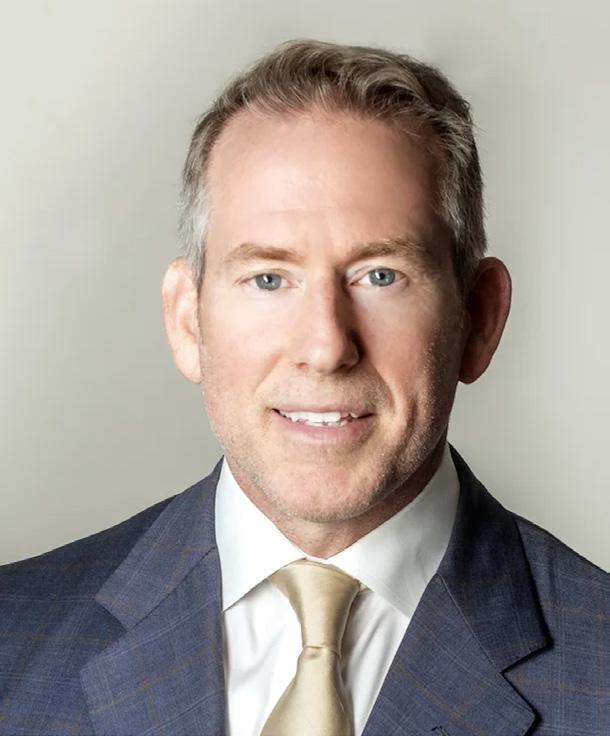
Beckie Comstock
Marshall Moon
Scott Daniel
Questions that clients and potential investors should be asking are: How does my portfolio’s current allocation align with my risk tolerance and time horizon? How liquid are my investments? How can my portfolio be positioned to handle ongoing inflation? How are these investments going to support my retirement goals?
Scott Daniel: In today’s market, clients and potential investors should be asking questions and considering risks across several key areas — economic conditions, interest rates, geopolitical instability and emerging technologies. On biggest concerns, there’s a lot to digest: interest rate volatility, valuation risk in equities, credit and liquidity risk, geopolitical flashpoints, consumer weakness, climate and ESG risks.
AMP: What specific advice would you give someone getting close to retirement?
Moon: Meet with a financial professional and get a comprehensive financial plan in place. Retirement should be one of the most joyous parts of anyone’s life. It’s where ample time meets endless opportunity. At Meridian, our motto is “investing for a rich life, realizing what you value.” One of the greatest joys of what we do is giving people the confidence to retire and freeing up their time and emotions to live out their best days however they see fit. Even if you’re competent enough to handle your own investments, I’d encourage you to reconsider so that you can spend more time doing the things that give you meaning, purpose and joy.
Daniel: If someone is getting close to retirement — say, within five to seven years their financial strategy needs to shift from accumulation to preservation and distribution. The focus should be on reducing risk, locking in income and building flexibility to handle uncertainty. Lots of options to review and discuss.
Comstock: Start by understanding how much you’re spending each month, separating needs from wants. Meet with your financial advisor early to start planning and making any necessary portfolio shifts. Also, we can help you plan for things such as tax-efficient withdrawal strategies, retirement plan rollover options and running projections tailored to your specific scenario. If you don’t have a trusted financial advisor, find one. Ask your friends or family for recommendations, and interview a few to see if they are a good fit. Most of the time, there is no cost to do so.

AMP: Same question, but for young adults just launching their careers.
Daniel: Great question. Starting young gives you the single biggest advantage in retirement planning — time for compounding.
Comstock: Time in the market beats timing the market, so start early. Take advantage of employer-sponsored retirement plans especially if they offer matching contributions. (That’s free money!) If they offer a Roth option, consider using it, especially if you’re young and early in your career. It can offer tax-free growth. It’s tough, but don’t panic when the market dips. Think long term. If you’re consistently contributing during these periods, you’re essentially buying in at a discount. Focus on building a diversified long-term portfolio, and avoid chasing fads or the latest “hot stock.” A trusted professional financial advisor can help guide you through this process.
Moon: For young adults, time is their single greatest asset. The advice is simple: Start now, be consistent, and leverage the power of compounding. Make saving for retirement a nonnegotiable part of your budget.
Additionally, I’d encourage young adults to track their expenses closely. In the end, financial health comes down to how much comes in (income) versus how much goes out (expenses). Spending less than you make is a foundational piece of personal finance.
AMP: How much of a nest egg does one need to live comfortably in retirement?
Comstock: There’s not a magic number because there are many different factors to consider:
•Your expected expenses
•How long your money needs to last
•Whether you plan to relocate to another state or buy a second home
•Whether you plan to leave money to heirs
These are just a few considerations that should be part of a personalized plan.
Moon: The answer to this question can vary widely, but I’ll give a baseline for how you can think about it, and then you can adjust based on your personal needs or beliefs.
In 1994, William Bengen published a study — now the famed 4 percent rule — in the Journal of Financial Planning that attempted to answer the question: How much of my savings can I spend each year without outliving my money? After studying financial data dating back to the 1920s and running hundreds of scenarios, he found that a balanced portfolio of stocks and bonds lasted at least 30 years under all historical scenarios tested. If he were to run the same study today, he would arrive at the same conclusion.
Given this information, you might consider a target nest egg of 25 times your projected annual retirement expenses. For example, you might need $2.5 million to support your retirement lifestyle if you expect your first-year retirement expenses to be $100,000 — 4 percent of $2.5 million. What this doesn’t consider is other income sources such as Social Security or pension income, which could greatly decrease the amount of savings needed.
Daniel: That’s one of the big retirement questions, and the answer depends on lifestyle, health and where you live. Most people need 70 to 80 percent of their preretirement income to live comfortably, since housing, commuting and work expenses may drop. We normally discuss taking 4 to 5 percent from retirement savings for retirement income. Therefore, if you have $1 million, you can draw $40,000 to $50,000 from your retirement “nest egg.” Need more at retirement to be closer to your working year’s income? Then, you will need to save more.
AMP: How much should young adults be putting away each month to ensure a comfortable retirement?
Moon: As a goal, young adults should target a savings rate of 10 to 15 percent of their annual income. This is also dependent on individual circumstances. The best and most effective way to do this is through their employers’ retirement plan. Now don’t forget that this 10 to 15 percent in-
cludes money put into their retirement plan by their employer, so if their employer is contributing 3 percent on their behalf, the employee might only need to contribute 7 to 12 percent of their own money.
Daniel: Great question — this is exactly where starting early really pays off. The “right” monthly amount depends on income, age and retirement goals, but we can work with some common guidelines. If you use the “Rule of 72,” then you have an idea of what dollar amount you might end up with at the end of each 10 years. This might be a little simplistic approach, but it’s a good starting point to see what kind of dollar amount you need to save per month. The earlier you start, the smaller amount you would need to save. I think compounding should be included in the Seven Natural Wonders of the World.
Comstock: As much as they can! Even small amounts can compound into significant savings over time. A general rule of thumb is 15 to 20 percent of your annual income if starting in your 20s. Lastly, I would recommend that you revisit your financial plan regularly. Life changes and your strategy should too. Even a 30-minute check in can make a big difference.
AMP: What trends are you seeing?
Comstock: A major trend in the financial services industry is a shift from commission-based transactions to fee-based advisory models. I believe it’s a positive development for everyone involved. Fee-based models are more transparent, which aligns more closely with the clients’ best interests. It gives the client predictability in cost, which, in turn, helps build trust with the advisor. For instance, instead of earning commission on a product sale, advisors are compensated for ongoing guidance. It puts us all on the same side of the table. When the client succeeds, we succeed.
Moon: A huge trend in wealth management right now is alternative investments. These are nontraditional investments that the everyday investor hasn’t had access to until recently (e.g. hedge funds, private equity, private real estate, etc.). This asset class has provided great returns over the last 15 years in an ever-expanding economy, but investors need to understand the risks associated with them. These risks include but are not limited to less liquidity, less regulation and higher complexity. Having exposure to this asset class could very well make sense, but it’s important that investors are well educated before allocating significant capital to it.
Dale E. Colclasure Jr. Outside the Box
By Mak Millard
Dale E. Colclasure Jr. has been witness to much change in the financial services industry since he began in 1998. While the profession looks different in some ways, there is still plenty of room for improvement and, by extension, more than enough space to set oneself apart.
“I believe that the industry as a whole has progressed towards more holistic planning efforts, but I believe many tinue to focus on boxed solutions as opposed to personalized advice,” Colclasure said.
Fortunately, the early years gave him a strong foundation on which to build. He started out at planning first, not just investment he said. After honing his skills mentor” at his first firm, Colclasure ent conversations throughout the years made him realize that most of the issues preretirees faced were not being adequately addressed, if addressed at all, by the industry.
“Medicare planning, Social egies, legacy planning, drawals, tax-loss harvesting, sequence of returns, volatility and risk management are all buzz topics but never integrated into real life,” he said. “I devel oped a need to help clients build a predictable path to and through retirement that they could put their hands on and understand.”

That drive to be different is what brought Colclasure and RetirePath co-founder Mark Smalling into business together in 2017. The pair had worked separately with common clients for years. Smalling’s area of expertise was primarily Social Security planning and Medicare solutions, Colclasure said, while his own lay in financial planning, investments and insurance solutions. After referring clients to each other and to other advisors for tax preparation, estate planning and ancillary services, it became clear that a combined approach would best serve both the duo and their clients.
“We began to realize there was no overall coordination of services, and oftentimes, referred-out services were never completed and definitely weren’t coordinated with the client’s overall plan,” Colclasure said. “We knew there had to be a better way, and thus was born RetirePath.”
At RetirePath, the better way hinges on the firm’s mission and unique, comprehensive process, Colclasure said. The group’s aim is to cultivate a family-like atmosphere and provide easy-to-understand guidance for individuals and families as they approach and make their way through the retirement red zone the five years
before and after retirement begins. Avoiding missteps during that window is especially crucial, he said, and RetirePath utilizes a personalized calendar for clients that helps them steer clear of any pitfalls. From Medicare and Social Security to estate planning documents, the firm’s approach keeps individuals on a strategic schedflexible in the face of change. grown from two financial advisors trying to make a better way to coordinate and accomplish tasks for service-starved clients to a thriving team coordinated to serve the ever-growing needs of preretired and retired individuals and their families,” Colclahas other approaches to getting people the tailored advice they need, such as the program Arkansas Money Talk. Hosted by Colclasure and Smalling, each episode covers pressing topics for retirees and soon-to-be retirees. In the particular is contained the universal, as the saying goes, and the show has received much positive feedback because it avoids generalizations specific circumstances created by everyday life, Colclasure said. By digging into the real-life complexities of particular scenarios, they are able to not only help a client with that specific issue but untold numbers of others who now understand their own situations a little better — or at least are better equipped to ask the right questions.
“Arkansas Money Talk was created to provide solid, thoughtful and often unconventional financial education to the people of Arkansas,” Colclasure said. “We want to educate the populace and help them make better financial decisions.”
In many ways, Colclasure and Smalling are setting the example for where they would like to see their industry peers continue to move. While the shift towards holistic planning has been palpable throughout the profession, Colclasure said he hopes the next five to 10 years will see wealth management and financial planning become even more comprehensive and provide simpler solutions to clients. RetirePath exists to make good on its name, clearing the way for retirees and their families.
“The public needs more quality, individualized financial education,” Colclasure said. “There is so much general advice from the so-called gurus that is wrong for most situations, but so often, folks are fearful to ask for help because they fear an unknown future or outcome. We are here to help solve this issue.”

Dale E. Colclasure Jr., CFP® PRESIDENT OF WEALTH MANAGEMENT
Dale E. Colclasure, Jr., CFP® has spent over 30 years guiding clients through the transition from wealth accumulation to retirement income. Raised in an entrepreneurial family, married for thirty years, and raising four children with his wife Amanda, Dale has always had a strong work ethic and a heart for building lasting relationships.
As President of RetirePath, he creates personalized financial plans that secure predictable lifetime income, optimize Social Security and tax strategies, address Medicare and long-term care, and help efficiently pass legacies to the next generation or charities. After years climbing the corporate ladder, Dale found his true calling in helping others achieve financial confidence and peace of mind.
We celebrate Dale’s recognition as a 2025 Best AMP Financial Advisor, honoring his decades of expertise and dedication to clients.
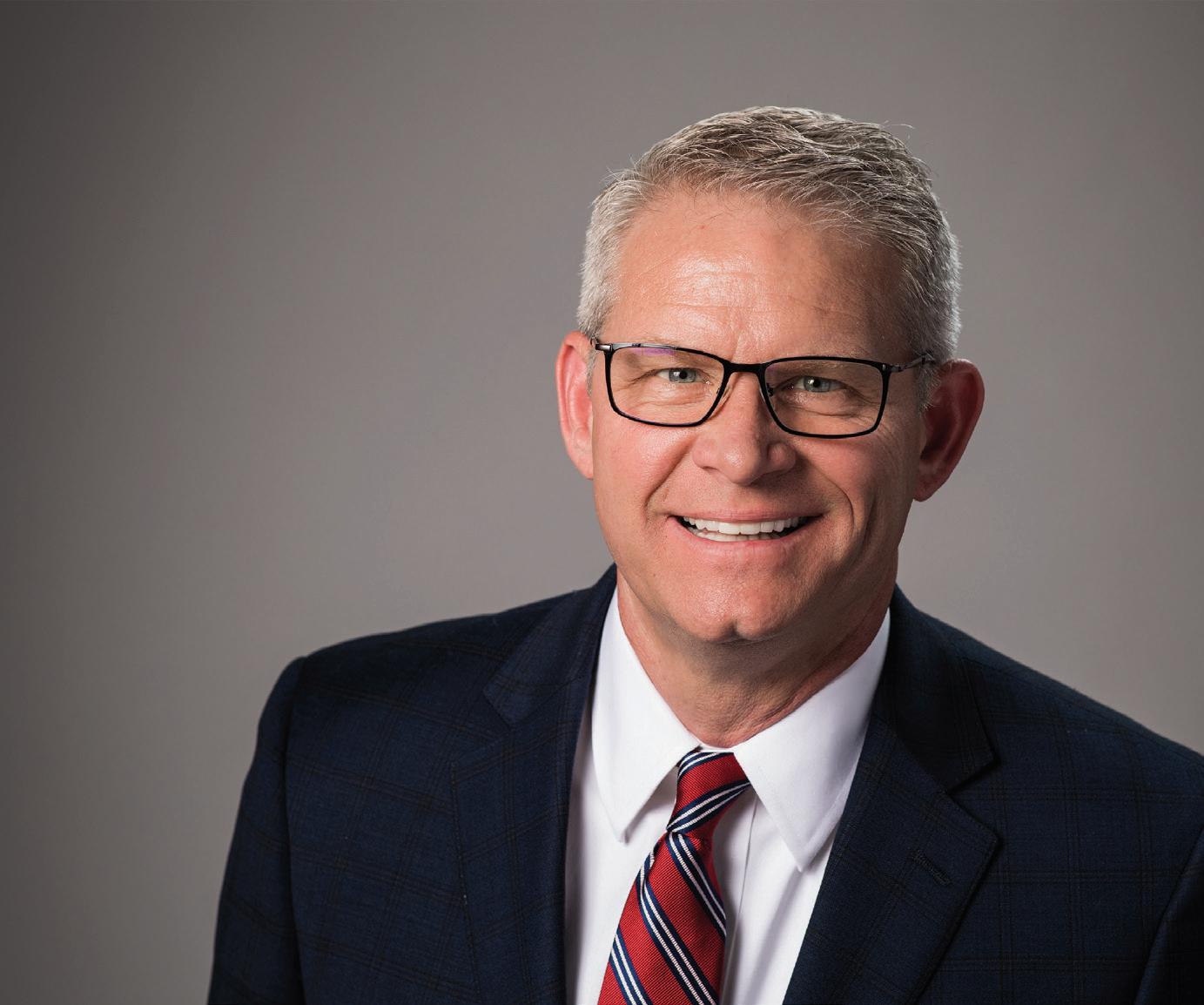


Investing for a Rich Life
Realizing what you value.
From the way your parents handled money to your plans for Retirement-many factors can impact the way you view your wealth. We take the time to understand who you are, your vision of your future, and what you need from your financial partner. From there, we develop solutions that are as unique as you are. We make it easy to work with us so your life is less complicated, and you can enjoy what you value most.


Marshall Moon, CFP Principal
A Steady Hand

For financial advisors, it is still a people business
ByDougCrise

Money management is not the career for those expecting the same out of every day.
In fact, managing assets, whether those of an individual or a large corporate entity, requires the ability to ride waves of change. Whether navigating the shifting needs of an individual client or a commercial entity facing new demands and regulations, moving on the fly is vital.
That does not begin to include parsing the staggering amount of financial data now available, much less figuring out the role artificial intelligence might play in that and more.
It is very little surprise then that Arkansas’ top wealth managers hang their hats on customer service before anything else. That may seem like a somewhat old-fashioned throwaway line, but in a rapidly shifting world, it is also the one thing those in the industry know they can control.
If properly serving a client means less money made on the advisory end, then so be it, said Sarah Catherine Gutierrez, founder and CEO of Aptus Financial in Little Rock.
“If you can get somebody who has $3 million in assets at the end of their career and you’re going to manage that money through retirement, the first year alone, you’re making $30,000 on that person charging a 1 percent fee,” Gutierrez said, “so you can see where the money really is and why people want to go after it, but that doesn’t inspire me.”
Gutierrez wants to throw the doors open to the world of financial advising — and probably not a moment too soon. The term “wealth management” itself conjures up images of well-heeled clients looking for caretakers for their substantial investments.
Aptus Financial is looking to change that.
It all begins, Gutierrez said, with a relatively unique approach to how her team of advisors is compensated. Clients are charged a flat fee for Aptus’ services, helping to eliminate the conflicts of interest that can arise when an advisor is paid through commission.
For example, a “comprehensive plan” at Aptus is $3,480. With that, clients get two two-hour Zoom meetings with an advisor plus an additional eight hours of planning time outside the meetings.
In addition, Aptus carries a core value of simplicity. It is not enough for advisors to know the ins and outs of money management. Being able to effectively communicate those concepts to clients is key.
“I really thought — and I do think to this day — that people need to be doing financial plans at the beginning of their careers or as early as possible,” Gutierrez said. “I wanted to have a place where people could come and just pay for that. It’s not complicated.”
Larry Middleton operates with the same ear towards clients’ needs, albeit on a much larger scale. As an executive vice president at Stephens, Middleton’s advisory work touches on everything from pensions to family offices and all points in between.
FINANCE
“I think our investors come to Stephens for advice and guidance across all markets,” Middleton said. “We take that responsibility seriously. I think when clients are making a determination of how they’re going to select an investment advisor, they look for trust and experience. They look for a firm that has a history of providing good advice to clients over many market cycles.”
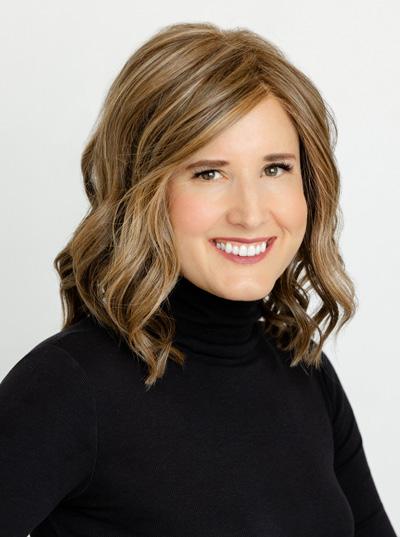
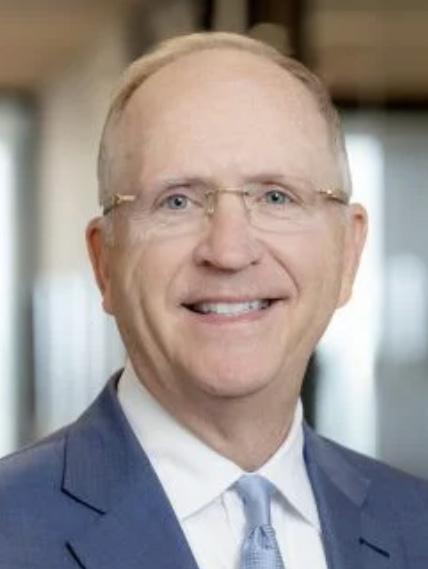

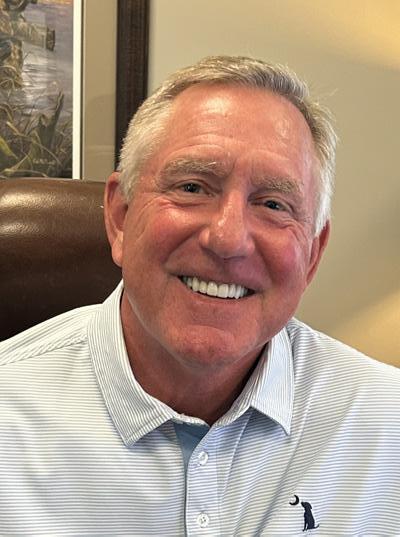
Middleton has worked in money management for most of his adult life and has been with the venerable investment firm based in Little Rock since 1990. Experience and long-range thinking have long been a selling point for Stephens, and a sense of “been there, done that” comes through in both the planning and investment stages.
Middleton, to speak plainly, has seen just about everything over four decades in finance, including the bursting of the dot-com bubble and the 2008 subprime mortgage crisis. Having worked through those market cycles and more, he represents a steady hand and a numbersbacked faith in the market.
“It’s interesting,” Middleton said. “If you look at the parallels between all those market downturns, by and large, they had the same level of adjustment. There’s actually more parallels to those market downturns than you would think from an economic perspective.”
In other words, even major market corrections tend to exist in an 18- to 32-month window. Maintaining longterm planning and avoiding “playing the market,” Middleton said, is a cornerstone of financial success.
Third-party sources researched and provided by Stephens back that up. Take, for example, an investment of $10,000 in the S&P 500 over the course of 20 years, starting in January 2005. Remaining fully invested over that time period would result in growth of $224,278 by 2024. That 20-year stretch includes numerous market downturns, including the 2008 crisis, widely regarded as the nation’s deepest financial correction since the Great Depression.
“We believe it’s the time [spent] in the market, not the timing of the market, that drives return experiences over the long term,” Middleton said. “I think that’s really meaningful because that means it’s independent of market variations.” Middleton is not alone when it comes to advising a wide array
of clients. Little Rock-based investment firm Crews & Associates may have started in Arkansas, but thanks to a reputation of strong personal service, it has grown to serve people in all 50 states.
“We have three core values that Crews stands for,” said Luke Brown, head of sales. “Work hard, do the right thing, and treat everyone with respect. We have those values internally, and we extend those same values to our customers. Forming relationships, exceptional customer service and looking after the well-being of our customers is what sets us apart.”
All the qualities of a sound financial advisor — listening, market knowledge and the ability to translate complex concepts — do not grow on trees, nor do they form overnight. For anyone new to investing, the sheer number of wealth managers offering their services can be overwhelming. Who, for instance, is in the business for the right reasons? Who can be trusted?
For Bill Sowell, those questions sparked a mission, one that began in 2001 when he founded Sowell Management with his wife, Cindy. Since then, Sowell Management has blossomed into offering comprehensive guidance for independent financial advisors backed by a staff grounded in the areas of investment, compliance and business transitions.
In other words, Sowell Management advises the advisors.
“I’ve never intended to do what we’ve done,” Sowell said. “We kind of got led down this path and just kept on filling a need and filling a niche.”
That is not to say Sowell has walked away from managing other peoples’ assets. His financial planning business, Trek Wealth Solutions, is literally next door to his North Little Rock office, but Sowell Management’s “niche” is now an all-encompassing advisory service for wealth managers that employs numerous experts from areas ranging from Securities and Exchange Commission compliance to marketing.
“We have an advisor solutions team that does everything for advisors, from getting accounts open to doing maintenance on accounts,” Sowell said. “We’ve got over 25,000 accounts that we get data on every day.”
The way that data is culled and refined has evolved over the years, artificial intelligence replacing the tried-and-true method of manually entering numbers into spreadsheets. That means a much quicker turnaround when it comes to making a game plan for advisors running their own business,
“We take that data, and based on what an advisor is trying to do, we aggregate all that data into one system so an advisor has a dashboard,” Sowell said. “They literally can log in and see every piece of information about their own personal business.”
Visit with Sowell, and it is easy to see why he still embraces the work that comes with overseeing two companies. His enthusiasm for financial consulting shines through whether he is talking about advising individual clients or doing consulting for financial planners.
Cut through all the numbers and all the data, and what remains is a people business at heart.
“For me, I have a passion to help people,” Sowell said. “I can tell you there’s no greater reward. To start with a client 35 years ago and to see them accomplishing goals that they never thought they could, it’s just magical.”
Sarah Catherine Gutierrez
Larry Middleton
Luke Brown
Bill Sowell
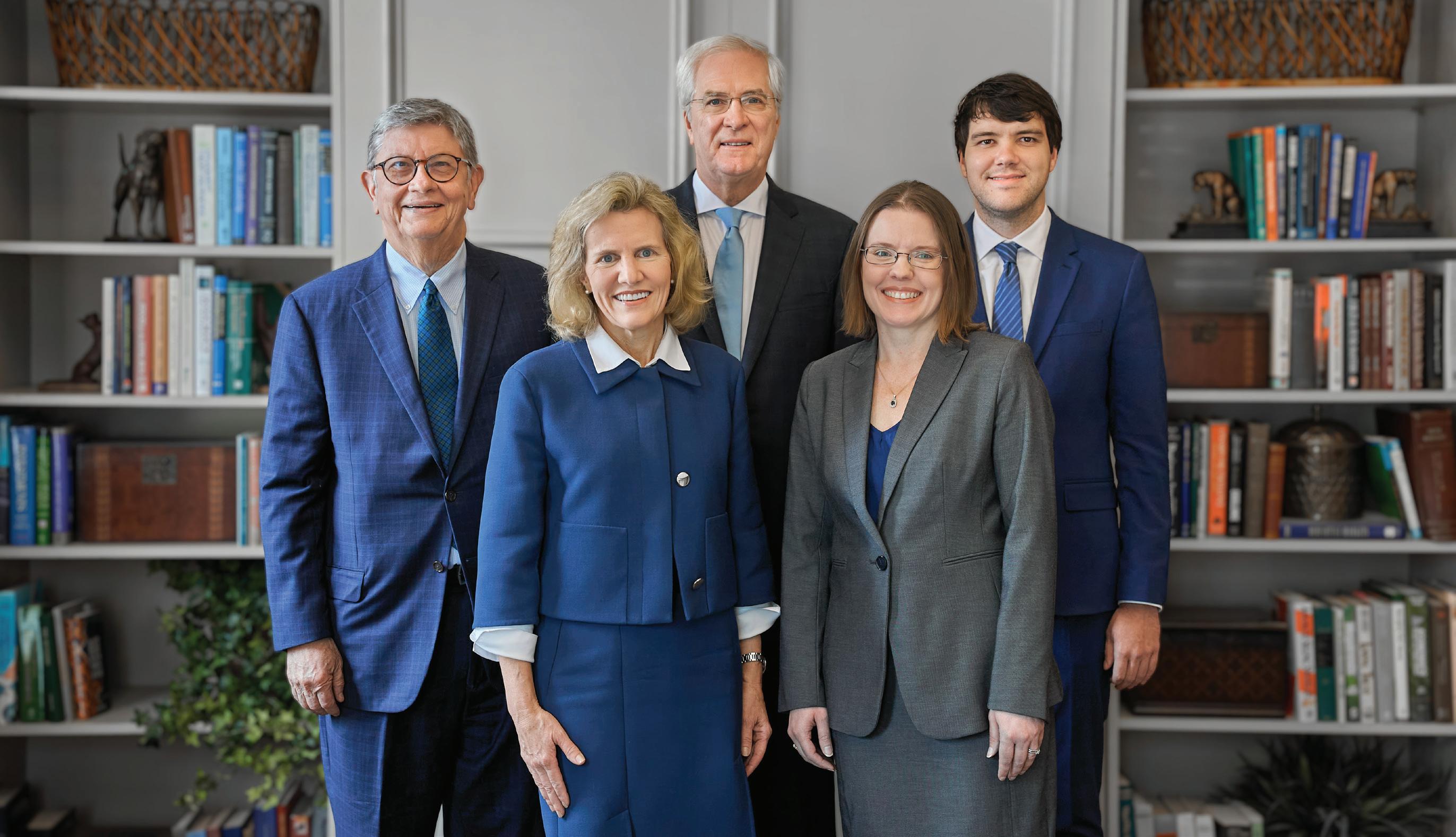
We’re grateful for AMP’s special recognition. As fiduciaries, all our advice is based on our client’s best interest and as a fee-only adviser, we never charge commissions.
We look forward to continuing to bring our best to all of our clients.

Left to right: Rick Adkins, CFP ® , ChFC, Founder and CEO, Kristina Bolhouse, CPA/PFS, CFP ® , President, Dr. Ralph Broadwater, M.D., CFP ® , Shareholder, Mary McCraw, CFP ® , Shareholder, Jake Spradlin, CFP ®
Brantley Foster Fostering Financial Freedom
By Alex Hardgrave
Little Rock financial advisor Brantley Foster said he entered the field to give back to the community members he grew up around. Raised on a farm in England, Arkansas, he knew he wanted to help farmers. Now he works with all types of clients, including physicians, business owners, corporate executives, as well as farmers, to help them build financial security.
“I first got started by having a desire to help the family farmer with their finances,” he said.
He started working at Ameriprise Financial before he even graduated from the University of Arkansas in Fayetteville and has worked there ever since, marking his 28th anniversary with the company this year.
“A lot of people don’t understand how heavily I am involved with even their dayto-day financial decisions,” he said. “I have
Along with giving back to the community by serving his clients, he also gives back through work with Camp Aldersgate in Little Rock, a nonprofit that provides summer camp experiences for individuals with special needs.
The firm also does a lot of work with Habitat for Humanity and the Arkansas Foodbank in Little Rock. The firm has an annual “day of service” event at the Arkansas Foodbank in which staff and clients participate.
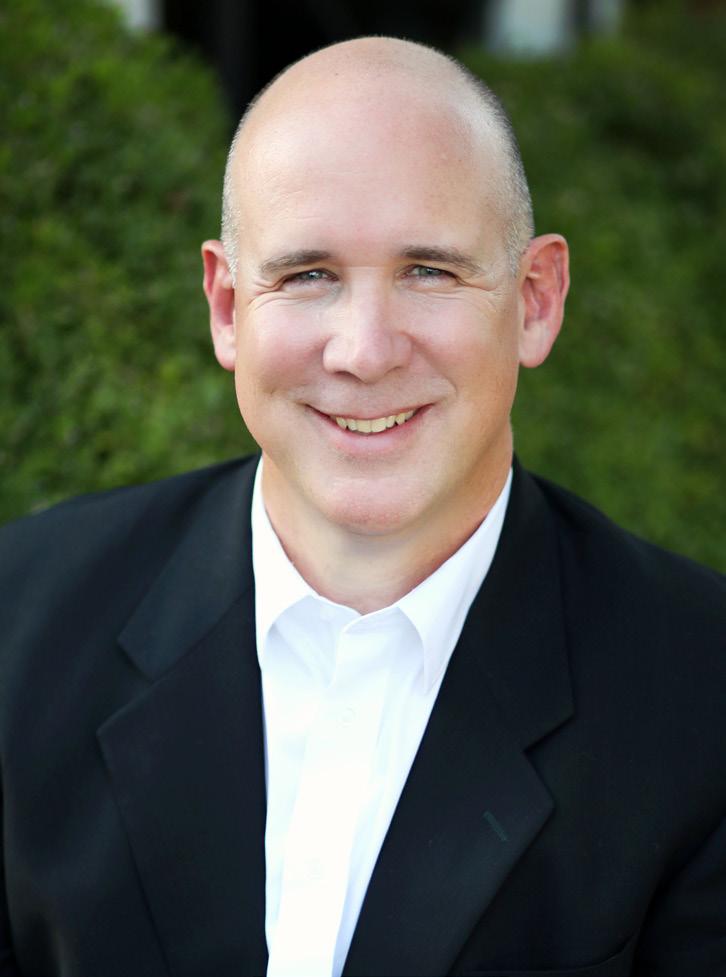
Foster said his clients keep him in the field year after year, and he prides himself on his close relationships with them.
“Client service is a top priority,” he said.
He added that he has even been in clients’ weddings and a pallbearer at clients’ funerals. He said he is now working

clients on a daily basis calling to discuss buying a home, buying a farm, selling a business. There are a lot of strategies.”
He works jointly with each client’s tax attorney and accountants to form a financial plan and then meets periodically to make sure the plan stays on track.
“There is a lot more to it than just managing assets,” he said. His favorite part of the job is the clients and helping them to achieve their financial goals.
“Most of my clients have been with me for decades,” he said. “There are always phone calls and communication throughout the year to serve our clients’ needs.”
with some third-generation clients, helping them build and manage generational wealth.
“I generally become very close with the family,” he said. “Multigenerational planning is part of what we do.”
His hard work has gained him recognition and accolades throughout his career, including being named a Forbes bestin-state financial advisor and appearing multiple years on the Arkansas Money & Politics “Best Financial Advisors” list.
Foster is currently accepting new clients and encourages people looking for sound financial planning to reach out to the firm.
Brantley Foster
Financial advisors help put their clients in a position to make money work for them instead of chasing it their entire lives. Arkansas Money & Politics asked readers to reveal their favorite financial advisors, and they delivered. The professionals listed in this special section are committed to guiding their clients through the sometimes intimidating world of investments and transforming finances from a potential source of stress to a golden opportunity.
AARON ADAMS
Adams Insurance and Financial
RICK ADKINS
Arkansas Financial Group

In addition to founding AFG and serving as CEO and shareholder, he’s helped clients meet their financial goals for well over three decades. Rick has been deeply involved in the development of Financial Planning as a profession, serving as Chair of the Board of Governors and Board of Practice Standards for the profession’s regulatory body, the Certified Financial Planner Board of Standards.
DAVID ALEXANDER
Farmers Bank & Trust
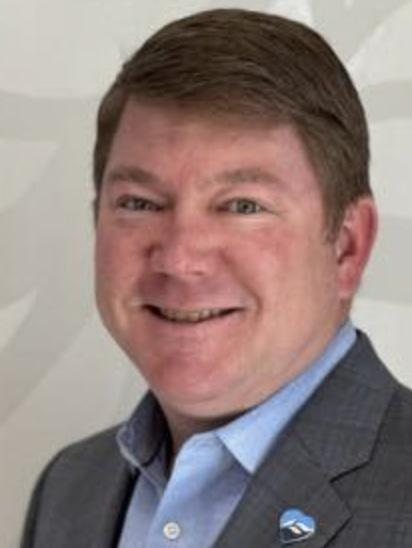
David Alexander, a Certified Financial Planner, is chief risk and strategy officer at Farmers Bank & Trust, where he helps guide the bank’s long-term growth while ensuring its strength and stability by providing leadership that balances innovation with sound governance.
He oversees enterprise risk management, internal audit, compliance, and the bank’s information security program. Since joining the bank in 2015, Alexander has strengthened internal controls, developed its enterprise risk framework and advised executive leadership about decisions shaping the bank’s future. Previously, he worked in public accounting as a senior auditor with Frost. He is a certified public accountant, a graduate of the University of Arkansas in Fayetteville and the
Graduate School of Banking at the University of Colorado. Away from the office, he enjoys hunting and fishing, as well as spending time in the kitchen with his daughters, Mary Grace and Anna Claire. He and his wife, Ginger, also stay busy supporting the girls in softball, basketball and cheerleading.
STACEY ALSTON
Edward Jones
ANDY ARNOLD
First Security Bank

Andy Arnold, with more than 25 years in the financial service industry, is the director of retirement plan services and wealth advisor senior vice president at First Security Bank. His commitment to oversee retirement plan services is proven through his experience in consulting committees and institutional and high-net-worth investors as a financial planner and Certified Private Wealth Advisor. With an abundance of knowledge and certifications in financial planning, Arnold guides his clients through the world of investments that can reshape their financial situation into an opportunity of success.
JAMES ERIC ASHBURN
Ameriprise Financial
J. DAVID ASHBY
Mustard Seed Wealth Management
BEN BAILEY
TMB Capital Partners of Raymond James
MAC BARNES
IQonic Wealth Management

RYAN BARTHOLOMEW
Small Wealth Management

Ryan Bartholomew, a Certified Financial Planner, Chartered Retirement Planning Counselor and Accredited Portfolio Management Advisor, is a private wealth advisor and vice president of Small Wealth Management. He works closely with clients to create holistic financial plans that align wealth strategies with life goals. Bartholomew brings deep expertise in investment management, retirement planning and portfolio construction with an emphasis on clarity and education. By helping clients understand their options and strategies, he empowers them to make informed decisions about their financial futures. As vice president, he also helps shape the direction of the firm, supporting a team-wide focus on innovation, service and trust.
ROBERT BASS
Bass and Bell
CHRISTOPHER BELL
Bass and Bell
SCOTT BENNINGTON
Heritage Oak Wealth Advisors
RAYMOND BERTASI
IQonic Wealth Management
MATTHEW BLACK
Merrill Lynch/Pierce, Fenner & Smith
GWENDOLEN “WENDY” BLAIR
Empire Financial Architects

KRISTINA BOLHOUSE
The Arkansas Financial Group
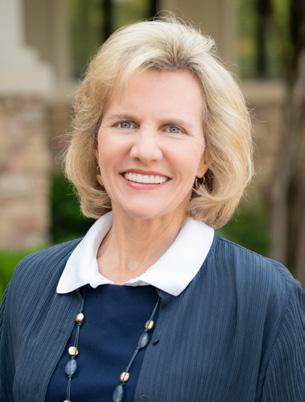
Kristina Bolhouse is president of The Arkansas Financial Group in Little Rock and a shareholder. After she graduated cum laude from Western Michigan University, she began her career as a licensed certified public accountant in the Lansing, Michigan office of Ernst & Young. She later switched her area of focus to taxes and personal financial planning and has been serving clients for more than 25 years.
JEREMY BOOE
Edward Jones
TAMI BORLAND
ClientFirst Wealth Management
DR. RALPH BROADWATER
The Arkansas Financial Group
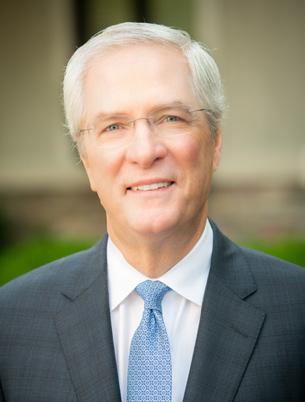
As a retired surgeon and educator, Dr. Ralph Broadwater’s practice identifies the unique needs of physicians with a focus on wealth creation, money management and wealth management in retirement. He graduated magna cum laude from Southern Methodist University in Dallas and was elected to Phi Beta Kappa. He completed a two-year fellowship in surgical oncology at the M.D. Anderson Cancer Center in Houston before returning to Arkansas to establish his surgical oncology practice, from which he retired in 2020 after a 35-year medical career. In addition to serving clients as a financial advisor, Broadwater is a vice president and shareholder in the firm. He also serves as chief investment officer.
CLETE BREWER
NewRoad Capital Partners
BOBBY BROWN
Brown Comstock Private Wealth Advisors
LORI BROWN
L.M. Brown Wealth Management of Raymond James
MICAH BROWN
Ifrah Financial Services
MOLLY BUENROSTRO
Gratus Wealth Management
MARSHALL BUTLER
Pinnacle Advisors

Marshall D. Butler is a seasoned financial advisor with a wealth of knowledge and experience in the world of finance. Butler’s specialization lies in business financial management, efficient portfolio management, and mergers and acquisitions for small businesses. His strategic insights and financial solutions have made him a trusted advisor for businesses seeking to optimize their financial performance and navigate complex financial transactions, as well as the individual owners for their personal planning. One of Butler’s most rewarding engagements comes with Lyon College in Batesville as interim vice president of business and finance. Lyon’s new institute of health sciences will encompass both the school of veterinary medicine and school of dental medicine.
PHILLIP BUTTERFIELD
Stephens
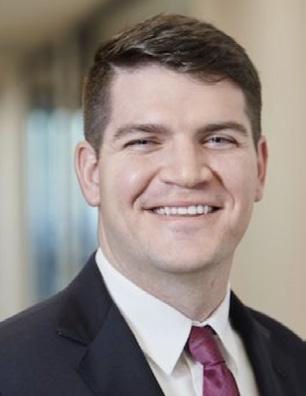
Since joining Stephens Private Client Group in 2014, Phillip Butterfield focuses his practice on the holistic financial picture, considering clients’ finan cial goals, risk tolerances and personal motivations. Butterfield received his Bachelor of Science in finance with a minor in accounting from Arkansas State University in Jonesboro in 2012, where he was also a team captain of the university’s football team. He continued at the university to receive his Master of Business Administration two years later.
BRIAN CANALES
Edward Jones
CHAD CARLSON
Simmons Investment Services
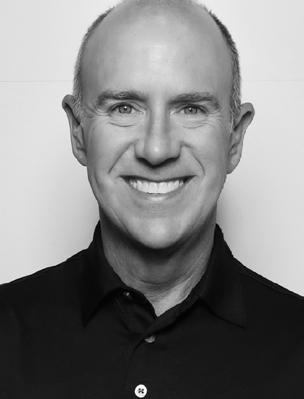
TARA COBB
Small Wealth Management
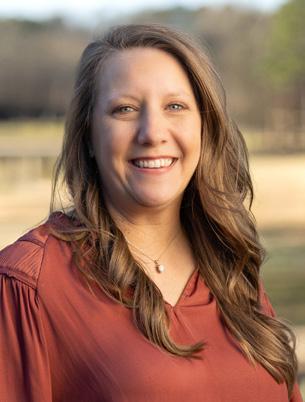
Tara Cobb, a Certified Financial Planner, Accredited Portfolio Management Advisor and Chartered Retirement Planning Counselor, is a private wealth advisor at Small Wealth Management. She is passionate about guiding individuals and families through every stage of their financial journey, from building wealth to preparing for retirement. Cobb focuses on creating tailored strategies that balance today’s needs with tomorrow’s goals, emphasizing personalized planning, retirement readiness and wealth management. She is recognized for her approachable style and ability to translate complex financial concepts into clear, actionable guidance. Her work reflects the firm’s mission of building lasting relationships rooted in trust, collaboration and client success.
DALE E. COLCLASURE JR.
RetirePath
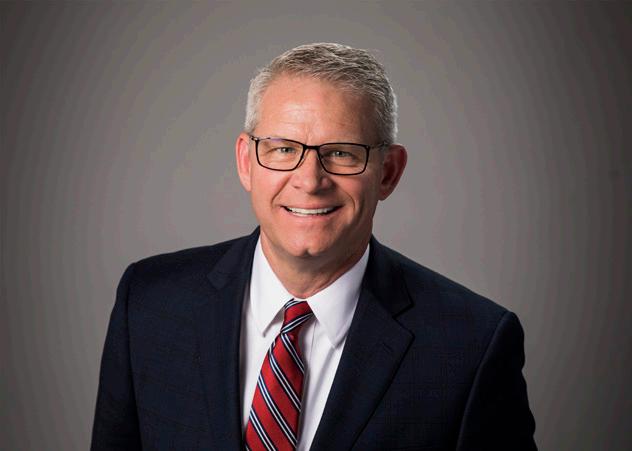
Chad Carlson is a trusted guide for affluent families, helping them tackle tricky financial matters with sound, time-tested advice. He’s known for his warm, approachable style and knack for truly listening to what clients want. With almost 30 years of experience, Chad manages every part of a clients wealth, keeping risks in check while making complex ideas feel simple and clear. His goal is to give clients and their families peace of mind, ensuring they feel confident about their decisions and their plan.
CARRIE CARR
ARIA Wealth Management
LARRY CHANCE
Merrill Lynch/Pierce, Fenner & Smith
Dale E. Colclasure Jr., a Certified Financial Advisor and Accredited Investment Fiduciary, is chief information officer, chief compliance officer and principal wealth advisor at RetirePath Wealth, an Arkansas-registered investment advisory firm. Colclasure has spent the past three decades developing successful solutions for the unique needs of the pre-retired and retired community. He works as a retirement income specialist, a fiduciary who focuses on the entirety of needs of those transitioning from the asset accumulation phase to the income creation and distribution phase of investment management. Along with his RetirePath co-founder Mark Smalling, he has built a holistic financial planning firm that offers guidance and solutions for each step of retirement transition. Colclasure is an industry leader in helping clients create predictable lifetime income, considering the specific tax implications of retirement plan distributions, Social Security claiming strategies, along with tax-free and capital gains taxable streams. Roth conversion options required minimum distribution planning, charitable considerations, Medicare options and filing, long-term care planning, tax preparation, and estate preservation strategies are all covered in the “Your RetirePath” process.
BECKIE COMSTOCK
Brown Comstock Private Wealth Advisors
BARRY CORKERN
Corkern & Co.
BILL CRISWELL
Garland & Greenwood Wealth Advisors
ANDREW CRONE
Transitions Wealth Management



LAURA CROWELL
Edward Jones
KRISTIN N. DANIEL
Parity Financial Group
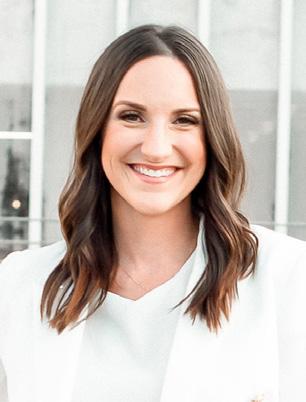
Kristin N. Daniel is founder and managing partner at Parity Financial Group, a wealth management and financial concierge firm headquartered in Bentonville with offices in Little Rock, Fort Smith and Fayetteville.
Parity serves clients both in Arkansas and across the country, providing high-touch financial strategies for high-net-worth families, business owners and executives. An Arkansas native, Daniel built her career on the values of hard work, honesty and service. She began in financial services in 2009 and officially founded Parity in 2019, later relocating the firm’s headquarters to Bentonville in 2020. Today, she focuses on aligning with clients who value strategic planning, collaboration and impact — helping them scale their businesses, preserve their legacies and give back to the communities they care about. Beyond her business, Daniel serves as president of the board of the Helen B. Walton Children’s Enrichment Center and chairs the Justin Moore St. Jude Golf Classic, which has raised more than $2 million for St. Jude Children’s Research Hospital in Memphis.
SCOTT DANIEL
WealthPath Investment Advisors
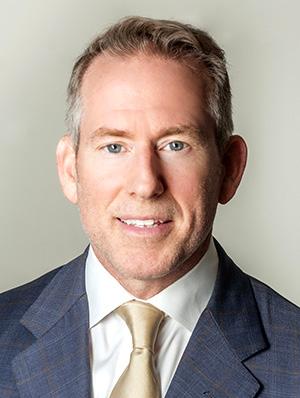
Scott Daniel, Certified Exit Planning Advisor, is a managing partner and financial advisor at WealthPath’s Little Rock office, where he brings unique experience in advising a wide range of clients with personalized strategies. After earning a degree in business and managerial economics from Lyon College in Batesville, Daniel began his career as a financial consultant at PaineWebber & Co. He then went on to establish his own firm, which he ran for 17 years before joining WealthPath in 2015. Daniel is Series 7, 63, and 65 registered, is an accredited investment fiduciary, and has life, health and disability insurance licenses. He was honored as one of AdvisorHub’s “Top Advisors to Watch Under 1 Billion” in 2022 and 2023. Daniel is also an active member of several other organizations, serving as executive finance committee board member at the Museum of Discovery in Little Rock, board president of the Breakthrough T1D Arkansas Chapter, a trustee of Lyon College, and commissioner at Little Rock Parks and Recreation.
STEPHEN DESALVO
Ifrah Financial Services
JACOB DUKE
Rivertree Wealth
JOE EMMANUEL
NewRoad Capital Partners
AMBER FONSECA
Edward Jones
BRANTLEY L. FOSTER
Ameriprise Financial
ELI FREEMAN
Mach 1 Financial Group
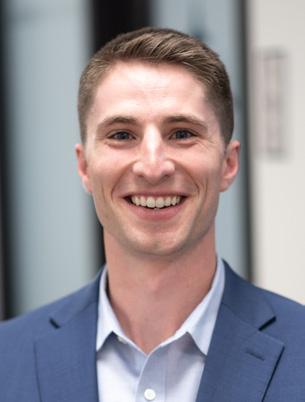
Eli Freeman, a Certified Financial Planner, is vice president of planning at Mach 1 Financial Group, where he focuses on helping clients pursue their unique financial goals. He prides himself on tailoring each plan to the individual, ensuring strategies are both practical and purpose driven. His client first approach is grounded in technical skill and a genuine passion for service. For him, the greatest reward is building lasting relationships and providing peace of mind, making it his joy to care for the families he serves.
DREW GAINOR
Catalyst Financial
GILBERTO GARCIA
Gratus Wealth Management
OSMAR A. GARCIA
Gratus Wealth Management
JOHN GAUDIN
Argenta Wealth Management
JASON GERBER
Prime Capital Financial
SYDNEY GILBERT
Sagebridge Wealth Management
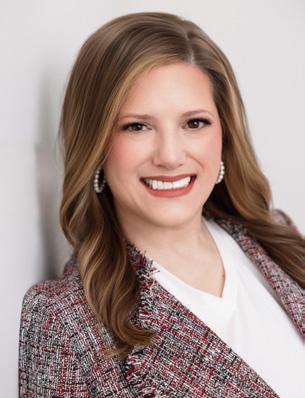
Sydney Gilbert, managing partner at Sagebridge Wealth Management in Little Rock, is a third-generation financial advisor. She joined her father, Roger Louis O’Quin, in his practice in 2005. She works with female decision-makers and the next generation of investors. Gilbert finds that many women do not feel they know enough about their financial situations, and for her, it is rewarding to provide educational and supportive advice to other women, especially in times of transition. She is married to Luke, the family and young adult minister at St. Mark’s Episcopal Church in Little Rock. The Gilberts have a son named Andrew. Gilbert enjoys volunteering her time in the community through her son’s school, her church and Rotary.
NATHAN GREEN
Simmons Investment Services

Nathan Green, a Certified Financial Planner, joined Simmons Investment Services in 2015 and has more than 10 years of previous experience in financial planning and wealth management. He received a bachelor’s degree in business administration from Harding University in
Searcy. Outside the office, he is an active member of his local Rotary Club and loves to fish, camp, play basketball and coach youth sports teams.
CORY GRUMMER
Stephens

Cory Grummer, a Certified Financial Planner, is seniorvice president and leader of the wealth planning team at Stephens. She has a background working as a financial analyst in private equity and in the public sector. In 2013, she joined Stephens, where she now works with clients to create comprehensive financial plans for various stages of life. She particularly enjoys estate planning and helping families create strategies to achieve their legacy and charitable goals. She is inspired by seeing the empowerment clients gain and the success they enjoy from having a long-term financial plan.
SARAH CATHERINE GUTIERREZ
Aptus Financial
JIMMY HACKELTON
Edward Jones
RUSH “BUDDY” HARDING IV
Carty, Harding & Hearn
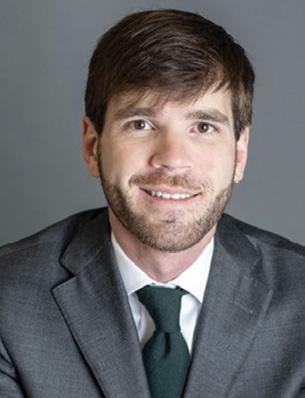
Rush “Buddy” Harding IV joined the Carty, Harding & Hearn team in 2022 as a senior vice president, stockholder, director and manager of the Little Rock office. After playing basketball on scholarship at the University of Arkansas at Little Rock, Harding received his Bachelor of Science in health sciences and began his successful tenure at Crews & Associates. Since 2008, he has specialized in fixed income sales and trading to institutional and retail investors. In the past, he served on several boards, including UA Little Rock athletic board and strategic planning committee, the athletic board at Arkansas Baptist College in Little Rock, Junior Deputy Baseball and The Centers.
MATTHEW HARRIS
Argenta Wealth Management
ROBERT HARRIS
Ifrah Financial Services
GREG HARRISON
Harrison Financial Management
CHRISTOPHER HENRY
Bank OZK
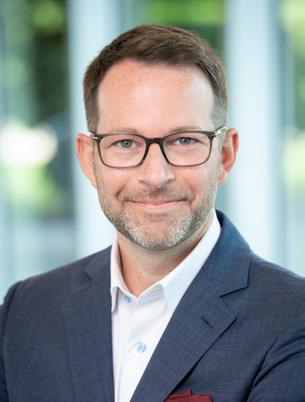
Christopher Henry joined Bank OZK’s team in 2022 and works as president of trust and wealth. In that role, he has grown the bank’s services in trust and wealth management, including estate planning, administration and settlement. Prior to joining the

team at Bank OZK, Henry served as senior vice president and managing director of First Bank and Trust Company’s trust and wealth management division and as a private wealth advisor with Bank of America Private Bank and SunTrust Private Wealth Management. Henry is a graduate of Virginia Tech.
CHASE HODGES
Gratus Wealth Management
ABIGAIL HOLLAR
Hollar Wealth
JONATHAN HURD
Wells Fargo Advisors
SCOTT INMAN
GenWealth Financial Advisors
MARSHALL IPSEN
Ipsen Advisor Group

Loren Marshall Ipsen is a Certified Financial Planner and founder of Ipsen Advisor Group in Little Rock. With more than 20 years of experience in investment planning, wealth management, retirement strategies and risk management, Ipsen helps individuals, families and business owners pursue long-term financial security. He simplifies complex financial concepts so clients feel informed, offering strategies that balance growth with protection. Ipsen’s client-first approach emphasizes professionalism, trust and ongoing collaboration to ensure plans adapt as life and markets change. Beyond managing assets, he strives to provide clarity, direction and peace of mind through every stage of life. Whether planning for retirement, funding education or navigating life transitions, Ipsen provides the guidance and support needed for clients to move forward with confidence.
MATT JONES
Legacy Capital
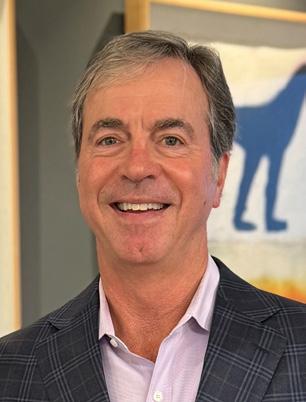
Matt Jones began working in the wealth management industry in 1994 after receiving his undergraduate degree from the University of Arkansas in Fayetteville and his law degree from University of Arkansas at Little Rock William H. Bowen School of Law. Having completed the requirements to become a Certified Financial Planner, Jones worked locally for both Morgan Keegan and Stephens. In 1997, he joined the late Frank McGehee to form what is now Legacy Capital. Legacy is one of the state’s largest independent registered investment advisors and has more than $1.3 billion in assets under management. In addition to leading Legacy Capital, he serves as an advisor to ultra-affluent families through the U.S. and works with some of Arkansas’ wealthiest families.
FRANK KELLY
Ifrah Financial Services
JOHN KELLY
Ifrah Financial Services
MORGAN KEYES
Wells Fargo Advisors
NATHAN KINARD
IQonic Wealth Management
PAUL KROGER
Northwestern Mutual
GUS LEEPER
Stephens
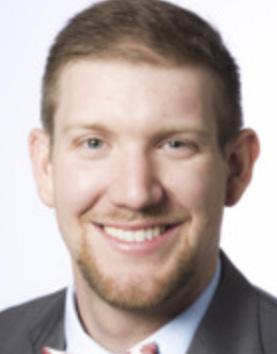
With more than five years of experience, Gus Leeper is a financial consultant in The Blagg Group, where he works with the team’s senior partner and Hot Springs Branch Manager Rick Blagg on helping clients define, set and achieve their financial goals. This comprehensive program prepared him in the development of investment plans and strategies and for consulting with clients. He graduated from the University of Arkansas at Little Rock in 2015 with two degrees. He received two Bachelors of Business Administration, one in general management and one in international business, with minors in finance and Spanish. He was a member of the Trojan basketball team from 2010 to 2015. He is also a Certified Financial Planner, a certification awarded by the CFP Board. The certification encompasses areas such as financial planning, tax planning, estate planning, income and retirement planning, and investment management.
AMANDA LEIJA
Edward Jones
JIM LILES
Crews & Associates
DAVID LUKAS
Lukas Total Wealth
EDWARD MAHAFFY
ClientFirst Wealth Management
JAMES MARTIN
Transitions Wealth Management
KATELYN B. MARTIN
Edward Jones
CHADD MASON
The Cabana Group
LESTER PHILLIP MATLOCK
Natural State Private Wealth Group
MARY MCCRAW
The Arkansas Financial Group

Mary McCraw joined The Arkansas Financial Group in Little Rock in 2008 and is a vice president and shareholder. She also serves as chief compliance officer. She works with a variety of clients including young professionals and families just starting out. Prior to
joining AFG, she worked for a boutique wealth management firm in Los Angeles, preparing financial plans for clients in the entertainment industry. She attended the University of North Texas in Denton, where she obtained a bachelor’s degree in finance with an emphasis in personal financial planning.
MATTHEW MCDANIEL
Bank of America
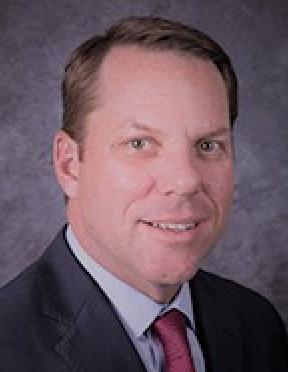
Matthew McDaniel is senior vice president and private client manager at Bank of America Private Bank in Little Rock. He works closely with high net worth clients to develop tailored wealth management strategies that reflect their personal priorities. McDaniel is skilled in helping families resolve the financial complexity that can accompany significant wealth. Working in concert with other Private Bank specialists, he addresses a range of client needs: investment management, trust and estate planning services, customized banking and financing, and philanthropy. He leverages the expansive resources of Bank of America Private Bank to streamline a client’s financial life, addressing day-to-day issues and long-term initiatives. He also spearheads clear communication with a client’s external tax and legal advisors, as appropriate, facilitating a synergy of effort. McDaniel has been an investment and banking advisor to high net worth clients for 25 years and holds the Certified Financial Planner certification awarded by the Certified Financial Planner Board of Standards. He received a finance degree from the University of Central Arkansas in Conway.
KEITH MCGEORGE Retirement Advisors of Arkansas
JAMES NICK MERRIWEATHER Ipsen Advisor Group

James Nick Merriweather is a Certified Financial Planner at Ipsen Advisor Group in Little Rock. He helps clients build, protect and sustain wealth through every stage of life. He teams up with emerging professionals and rising leaders to design investment strategies, manage financial obligations, navigate debt and lay the groundwork for lasting retirement security. He also works with families, retirees and business owners on complex needs such as income planning, legacy strategies and wealth transfer. Skilled in working with multiple generations, Merriweather provides continuity and a coordinated approach to long-term goals. He simplifies financial concepts into clear, personalized advice. His client-first philosophy emphasizes transparency, trust and ongoing collaboration.
Outwork and Outhustle
Rush “Buddy” Harding IV, Carty, Harding & Hearn
By Alex Hardgrave
Rush “Buddy” Harding IV has had many people in his life who shaped him into the hardworking professional he is today. From coaches to his grandpa to his father — Rush Harding III — he has followed their examples and made a name for himself in the financial world, now serving as senior vice president and managing director at Carty, Harding & Hearn’s Little Rock office.
“All those people had a big impact on how I view each day and try to go through life,” he said. “They all brought me different perspectives on that.”
From the time he was little, Harding has known the financial world thanks to his father, who co-founded Crews & Associates in 1979.
“I’ve been spending summers on the trading floor for my entire life,” Harding said. He was close to his grandfather, as well as his father, growing up, and knew he wanted to follow in one of their footsteps. His grandfather was a basketball, football and track coach at Clarendon High School.
Harding played basketball throughout high school and for the Little Rock Trojans under Steve Shields. After graduation, Harding looked at two career paths, coaching or the financial field, and ultimately chose to join Crews & Associates in early 2008.
A regular day at the office can entail anything from analyzing portfolios to buying and selling fixed-income municipal bonds and talking with retail and individual customers. When Harding is not working, which is not very often, he spends time coaching and playing basketball and fishing with his sons, Rush “Five” Harding V and Wilder Harding.

“There’s been a lot of work in the last three or four years,” he said. “If you’re trying to be great at something, there is not a balance.”
Being the best is what Harding strives for in his career.
“If I was a basketball coach, I think I would be one of the best basketball coaches there are,” he said. “I’m trying to be the best there is in this industry. I’ll outwork and outhustle anyone there is to get there.”
Throughout his time at Crews & Associates and Carty, Harding & Hearn, Harding has relished the opportunity to work alongside other talented professionals. He pointed to colleague Edmond Hurst, senior managing director and head of capital markets and public finance at Carty, as a force in the field.
“Not only do I think he’s the best in Arkansas; I think he’s, if not the best, then one of the best in the industry,” Harding said.
He said he has learned from his coaches and mentors to “have
“I’m trying to be the best there is in this industry. I’ll outwork and outhustle anyone there is to get there.”
— Rush “Buddy” Harding IV
In 2022, he moved to what was then Carty & Co., now known as Carty, Harding & Hearn. In a truly full-circle situation, Shields, Little Rock’s winningest men’s basketball coach, now works for the firm, as well.
“He recruited me to come play basketball for him, and I spent about six months recruiting him to come work for us,” Harding said. “I got a lot of my work ethic from watching Coach Shields. He brings that same tenacity and mindset into this business, which has been fun to watch.”
a relentless pursuit and an unyielding drive to outwork everyone at anything that you do.”
“I don’t think there is anybody in the industry who can outwork us at what we do, from myself to Edmund to Steve Shields,” Harding said. He has also learned to embrace the uncomfortable and not to shy away from adversity.
“Instead of shying away, face it head on, fix it and battle through it and come out the other side,” he said. “There is good that comes from any and every situation.”
Rush “Buddy” Harding IV



JIM MITCHELL
Stephens

Jim Mitchell joined Stephens Private Client Group in 2000 and has more than 30 years of industry experience. Prior to joining Stephens, he was a financial advisor with Merrill Lynch, Pierce, Fenner & Smith for six years. He also worked at Barnes, Quinn, Flake & Anderson Investment and American Transportation Co. He graduated from the University of Arkansas in Conway with a Bachelor of Science in Business Administration and majored in accounting. He has an Master of Business Administration from the University of Central Arkansas in Conway. In addition, he is a graduate of Stephens University, an advanced wealth management program offered through Wake Forest University in North Carolina. He is also a Certified Financial Planner, a certification awarded by the CFP Board. The certification encompasses areas such as financial planning, tax planning, estate planning, income and retirement planning, and investment management.
JOSHUA MONTANEZ
Northwestern Mutual-Montanez Wealth Advisors
MARSHALL MOON
Meridian Investment Advisors
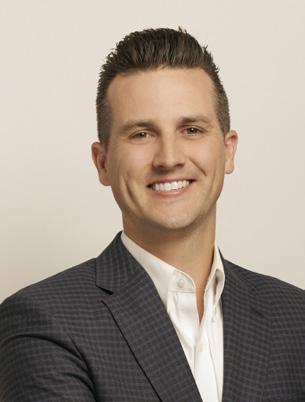
Since joining Meridian Investment Advisors in Little Rock in 2015, Marshall Moon has served as senior investment advisor and chief equity strategist. He earned his finance degree from the University of Central Arkansas in Conway and became a Certified Financial Planner in 2020. In January he became a named partner. As principal, he leads investment strategy, oversees equity research and remains a trusted advisor to clients. He is passionate about helping people feel confident about their financial futures and takes pride in offering openminded, personalized guidance.
SAM NAGHER
Edward Jones
LESLEY NALLEY
Nalley & Associates
GEOFF NIEBAUM
Mendel Capital Management
BRIANT NOLAND
Stephens
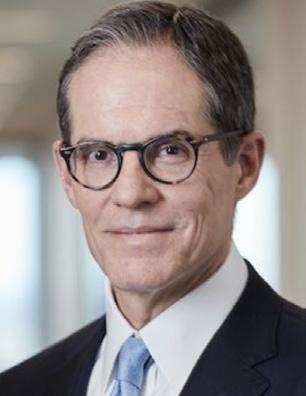
With more than 30 years of industry experience, pragmatism and expertise are the cornerstones of Briant Noland’s approach to wealth management. When developing investment plans, his methodology marries client data with behavioral analysis. He joined
Stephens Private Client Group as a vice president in 2004 and, since 2008, has been a member of the Stephens Leadership Circle, an award that is given to consultants for excellence in wealth management. Prior to Stephens, Noland was an advisor at Merrill Lynch, Pierce, Fenner & Smith. He graduated from Centenary College of Louisiana with a Bachelor of Arts in economics and a minor in history. Noland has also completed Stephens’ advanced wealth management program, Stephens University, at Wake Forest University in North Carolina. He is also a Certified Financial Planner, a certification awarded by the CFP Board. The certification encompasses areas such as financial planning, tax planning, estate planning, income and retirement planning, and investment management.
ANDREW NORRIS
Red Dog Investment Group
PATTY NUOVO
Signature Private Wealth
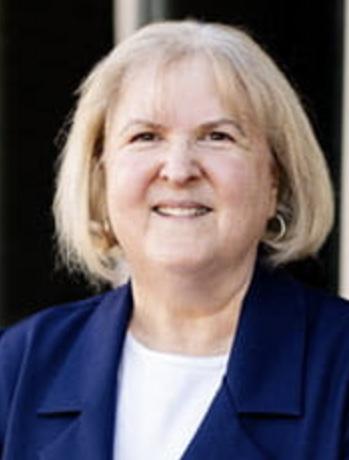
Patty Nuovo started her career at Shearson Hayden Stone, which became Shearson Loeb Rhodes, in the institutional operation department. After passing her Series 7, she became the first female stockbroker hired at Janney Montgomery Scott in Philadelphia, where she excelled in the financial world in the Northeast. Today, Nuovo is a Certified Financial Planner, a financial advisor and an investment advisor representative working at Signature Bank, Private Wealth Management for Raymond James in the Bentonville branch.
MARCO OSORIO
Prime Capital Financial
WADE PARTRIDGE
Mariner Wealth Advisors
DEBI PIERCY
Transitions Wealth Management
GREG PILLOW
Conway Wealth Management
KYLE PITTS
Ifrah Financial Services
APRIL POLLARD
Edward Jones
CHARLIE PORTER
Stephens
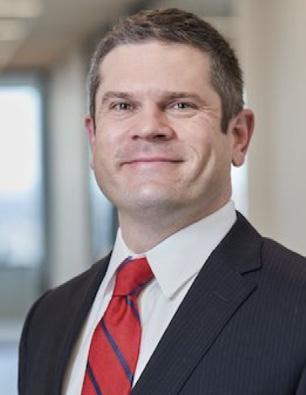
Charlie Porter joined Stephens Private Client Group in 2007 to partner with his father, Rob Porter, in providing comprehensive wealth management planning services. This father-son partnership gives them a differentiating perspective when working with families. Prior to joining Stephens, Porter was a branch manager at First Security Bank, where he worked in the lending division. He has a Bachelor of Science in advertising and public relations from the Uni-
versity of Arkansas in Fayetteville. He also completed Stephens’ advanced wealth management program, Stephens University, offered through Wake Forest University in North Carolina. Charlie is a Chartered Retirement Planning Specialist. The designation from the College for Financial Planning signifies that Porter has met initial and on-going experience, ethical education and examination requirements for the retirement planning process, including meeting multiple financial objectives, sources of retirement income, personal savings, employer-sponsored retirement plans, retirement cash flow, asset management, estate planning and more.
LISA RABATIN
Simmons Investment Services
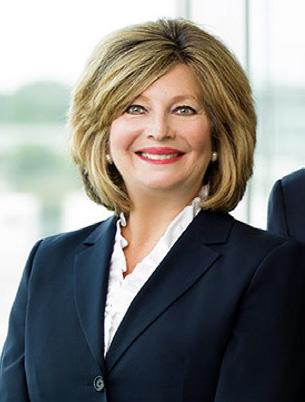
Lisa Rabatin is a Certified Financial Planner at Simmons Investment Services. Rabatin has four decades of investment experience and has been with Simmons since 2008. She began her career with Merrill Lynch, Pierce, Fenner & Smith in 1982 after obtaining her bachelor of business administration from the University of Arkansas at Little Rock. After joining Dean Witter Reynolds in 1985, she spent 20 years with Morgan Stanley. Rabatin then joined Northwestern Mutual in 2005 to further her holistic planning approach. In 2008, she joined Delta Trust Investments, which was later bought out by Simmons Bank. Rabatin obtained her Certified Financial Planner designation in 2002.
STEPHEN RABORN
Raymond James
BRAD RAINES
Applied Capital
LARRY ROOT
Ameriprise Financial
ERIC ROWND
Ameriprise Financial
TODD SADOWSKI
Strong Tower Wealth Management

Todd Sadowski is a selfproclaimed “money nerd” who delights in serving as a financial advisor. He has been in the industry for more than 30 years and founded his own firm, StrongTower Wealth Management in Hot Springs, in 2018. He is known for serving his clients with a unique faith-based approach in which a person’s faith and finances intersect. His process allows his clients to not only invest for potential growth but also make a positive impact on the world. Todd has been voted as a top financial Planner in Hot Springs by local publications. He hosted a radio show on AFR for many years and has been showcased on Victory Television Network.
Honoring Marshall Butler

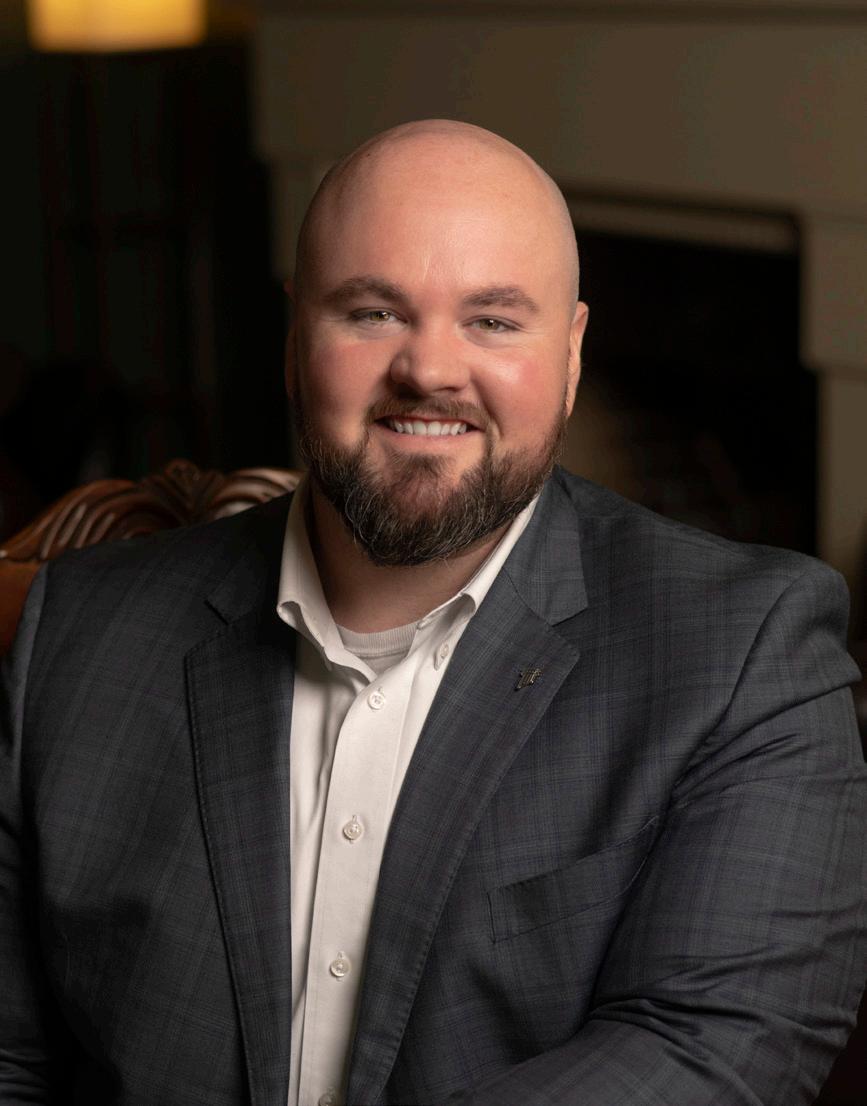
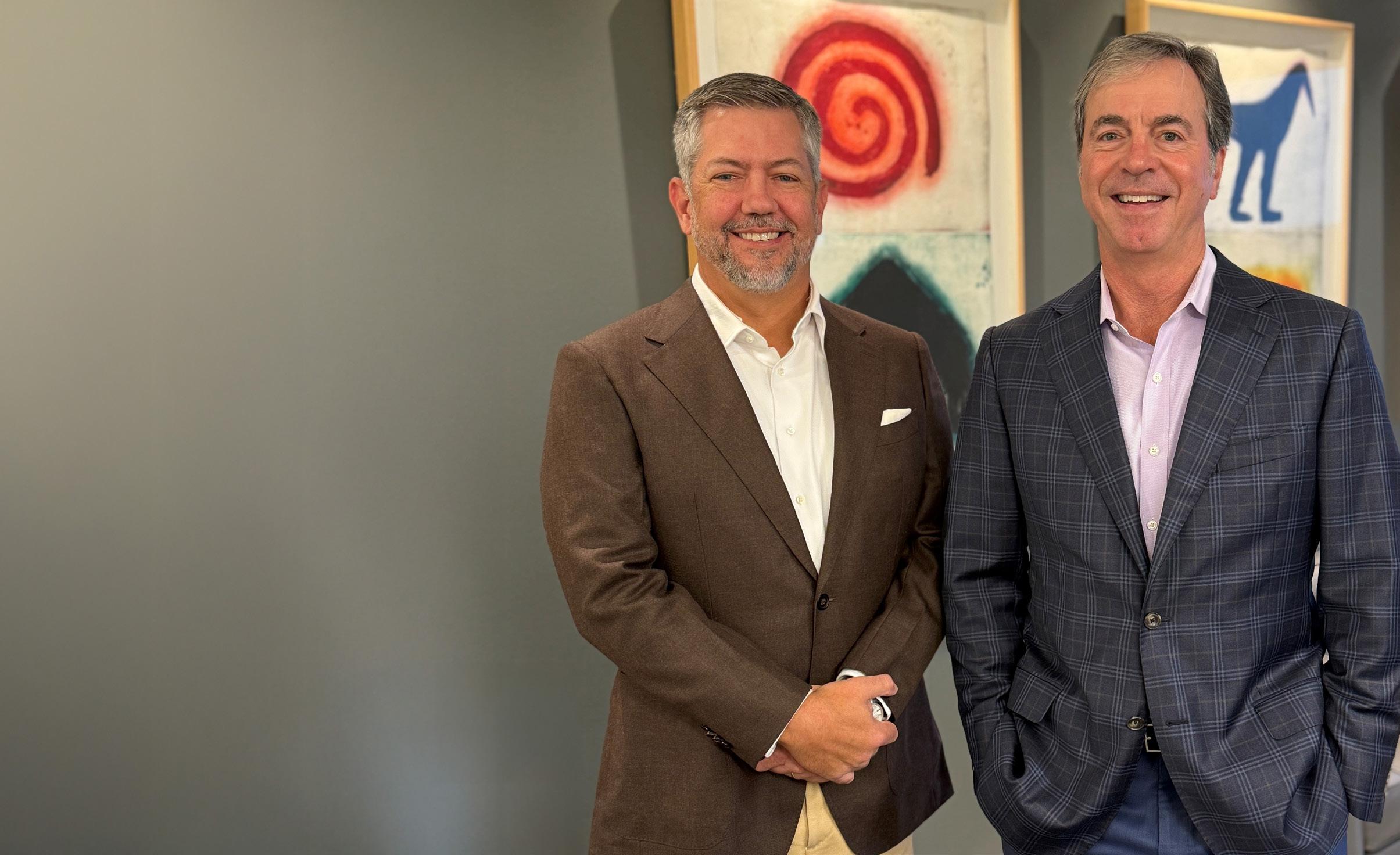
LEGACY CAPITAL
SETTING THE BAR
John Sidery, Olympus Wealth Strategies
By Mak Millard
John Sidery’s previous wealth management experience runs the gamut of operations big and small, from one of the largest financial firms in the world to a local, independent office. After more than a decade deepening his expertise, Sidery set off this year to found Olympus Wealth Strategies in Little Rock. In opening his own firm, Sidery was determined to set an example for what the relationship between client and advisor could really be. Olympus, he said, is built on the belief that wealth management should feel personal, not transactional.
“Olympus Wealth Strategies was inspired by delivering holistic wealth management to all families and doing so with our standard of family-level service,” he said.
Sidery has previously described the wealth management field as a commoditized one where “competency and access to a robust suite of investments are now table stakes.” That makes it even more crucial to distinguish oneself in other ways. For Sidery, that means a genuine, authentic approach. A truly great financial advisor, in his estimation, takes the time to get to know the client’s situation and needs.
invested in the same cookie-cutter portfolio.”
A native of Westfield, Indiana, Sidery learned the importance of relationships and that timeless entrepreneurial philosophy “service after the sale” while watching his own family run a business. He moved to Arkansas with his wife, Aubrey, in 2021 for a job opportunity. Once in the Natural State, the couple knew it was where they wanted to put down roots. They have become active in the Little Rock community since then. Sidery was a member of the golf team at alma mater Centenary College of Louisiana and now mentors young athletes and coaches the golf team at Catholic High School for Boys in Little Rock.

“Great advisors bring solutions to the table that intertwine with a client’s beliefs, align with their family dynamics and help accomplish their goals,” Sidery said. “Solutions should be tailor-made, and you only get that by truly understanding the client as a person.”
Over the course of the past decade, Sidery said he has seen the industry shift from a transactional business to a relational one. Clients have increasingly demanded a more personalized experience, carefully customized portfolios and even tax advice. Through his firm’s partnership with independent advisor platform Uptick Partners, Sidery said he is proud that Olympus can deliver on those tax-related requests in-house. Peering ahead, he does not see much change in course on that front either.
“Investments and taxes are so intertwined, and clients are wanting to no longer play middleman,” Sidery said. “Gone are the days of talking with your financial advisor once a year and being
John Sidery
Sidery has also wielded his professional talents in the service of others outside the office. He is an avid believer in improving financial literacy, which he called “a serious problem in this country.” From understanding the basics to knowing what questions to ask — regardless of if one utilizes a wealth manager at all — Sidery previously said he believes that “increasing education in this space can help change the outcome of a family for generations.”
“Olympus helps to educate people through weekly podcasts, bringing on industry experts for various financial topics,” he said. “We also produce weekly our own content to break down big topics into bite-sized pieces. Personally, I volunteer weekly to educate individuals who are incarcerated [about] the basics of financial planning to have a better chance at thriving by staying out and becoming better men in our communities.”
Sidery has laid a strong foundation for his new firm, hiring more talent and growing his team’s impact. Front of mind for him, however, is being careful not to prioritize size over substance. Sidery said Olympus Wealth Strategies will continue to stand apart by bringing family-level service, clear education and real solutions.
“You’ll never hear us talk about how much [in] assets we want to have under management,” he said. “We have a standard that has been promised to every single one of our clients, and we will not deviate from that standard or pass people off because of their account size. We will continue to add services that enhance the experience for our clients, like tax preparation and proactive tax advice.”
Olympus Wealth Strategies was inspired by delivering holistic wealth management to all families and doing so with our standard of family-level service. John Sidery,



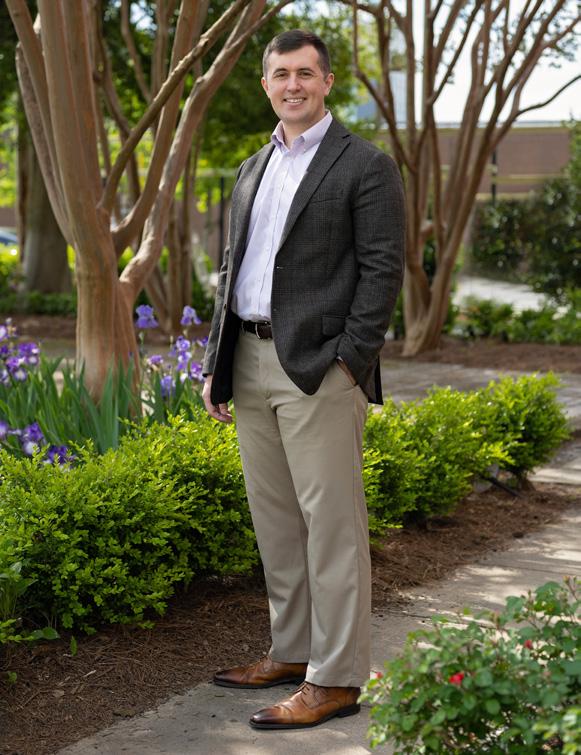


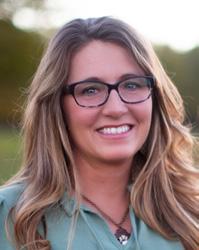

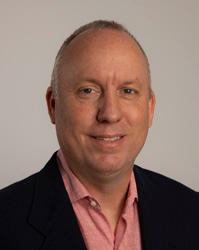
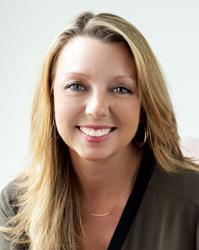

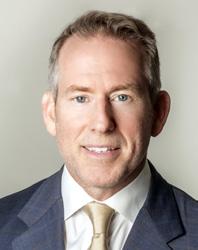

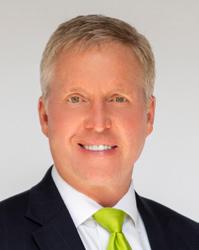


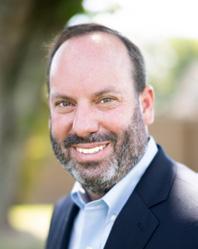





STEVEN SCHMITT
Willow Financial

Since 2007, Steven Schmitt has been helping northwest Arkansas residents experience those wonderful ‘aha moments’ when their financial future becomes clear. As Willow’s managing partner, Schmitt brings together his extensive credentials — including Certified Financial Planner, Accredited Estate Planner, Accredited Investment Fiduciary (no comma after), and Master of Science in Financial Services — with a passionate belief in teamwork to transform local clients’ lives. His leadership style combines deep expertise with genuine care for each client’s journey, taking particular joy in breakthrough moments when northwest Arkansas families gain complete clarity about their financial path forward.
MARNIE SHARP
Raymond James
PEYTON SHARP
Gratus Wealth Management
THOMAS SHURGAR
Oak Crest Wealth Management
JOHN SIDERY
Olympus Wealth Strategies
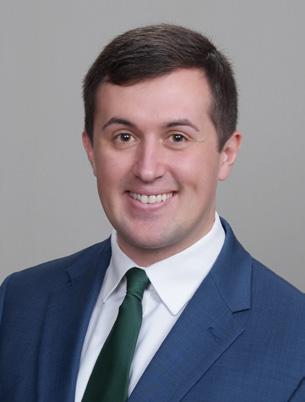
John Sidery, a Certified Financial Planner and Certified Private Wealth Advisor, is the founder of Olympus Wealth Strategies, an independent wealth management firm based in Little Rock. Recognized for his authentic, client-first approach, he focuses on comprehensive financial planning, investment management and tax-smart strategies for families, business owners and executives. He launched Olympus, in partnership with Uptick Partners on the belief that clients deserve proactive advice and the experience of a modern family office — integrating investments, tax and holistic planning under one roof. He is passionate about helping clients pursue financial independence, create lasting memory dividends, and live with greater clarity and confidence.
JOEY SMALL
Small Wealth Management
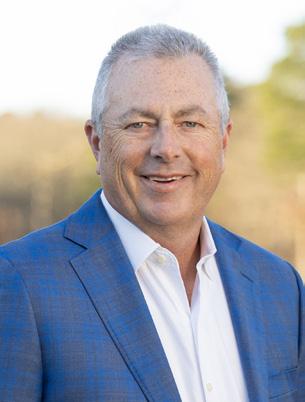
Joey Small, a Chartered Retirement Planning Counselor and Accredited Portfolio Management Advisor, is a private wealth advisor and president of Small Wealth Management. With more than two decades of experience, he leads the firm’s mission to deliver thoughtful, personalized financial strategies that help individuals and families plan for the future with confidence. Small specializes in comprehensive retire -
ment planning, investment management and wealth preservation strategies tailored to each client’s goals. His approach blends technical expertise with a strong commitment to long-term relationships, ensuring clients feel supported through life’s biggest financial decisions. As president, he fosters a culture of collaboration and integrity, guiding the Small Wealth team in providing exceptional service across Arkansas and beyond.
ALEX SMITH
NewRoad Capital Partners
KIMBERLY SMITH
Trek Wealth Solutions
DOUG SPENCER
Ifrah Financial Services
JAKE SPRADLIN
The Arkansas Financial Group

Jake Spradlin began his career in banking compliance, but his passion for helping families achieve their financial goals led him to a new path. He joined The Arkansas Financial Group in Little Rock in 2023, initially serving as a paraplanner before earning his Certified Financial Planner certification in 2024. He has a bachelor’s degree with a major in finance from the University of Central Arkansas in Conway, where he graduated magna cum laude in 2019.
CANDICE STANLEY
GenWealth Financial Advisors
HANNAH STANLEY
New Wave Wealth Advisors
JAY STRICKLAND
Legacy Capital
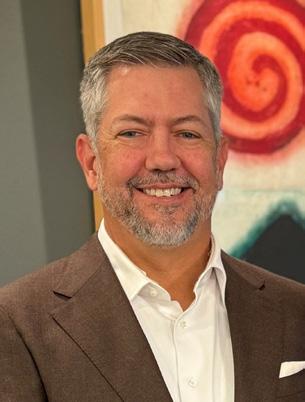
Jay Strickland is a Certified Financial Planner with more than 20 years of experience in investments and financial planning specializing in asset allocation, risk management and retirement planning. Soon after graduating from the University of Central Arkansas in Conway, he began his financial services career serving in trading and research roles before transitioning into working directly with clients and institutions to develop and execute comprehensive financial planning strategies. He is also a member of Legacy Capital’s investment committee, which provides him with direct input into the firm’s due diligence and investment selection process. That knowledge is then directly applied to each client’s unique circumstances to help guide them toward their financial goals.
TRAVIS TEAGUE
Landmark Financial
ALEXANDER VARELA
Rock Wealth Management
VICTOR S. WERLEY
Pinnacle Advisors
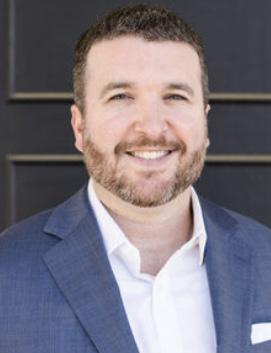
Victor Werley is a native of Fort Smith, and a graduate of Lyon College in Batesville. He has served on Lyon College’s board of trustees for nine years and currently serves as the chairman of the board. With more than 20 years of experience as a financial consultant, he leads Pinnacle Advisors in Little Rock, a consulting practice specializing in business valuation, startups, growth strategies, exit planning and litigation support. He has several prestigious certifications, including Certified Financial Planner, Chartered Financial Consultant, Certified Divorce Financial Analyst, Certified Valuation Analyst, Master Analyst in Financial Forensics, Certified Fraud Examiner and Certified Exit Planning Advisor.
JARED ZEISER
Zeiser Wealth Management

Careers often hit a sweet spot a decade or two down a certain path. You are settled in, comfortable, feel as though you have mastered your craft, but you have more, maybe even much more, to contribute.
Arkansas Money & Politics recognizes those business leaders in Arkansas who have hit that sweet spot, who fill the gap between young bucks and a gold watch. Our list of Achievers in Their 40s shines a light on those professionals at a midpoint in their careers — who have achieved a certain amount of success — yet are positioned for much more.
Vanessa Cash Adams

With 18 years of experience in consumer and business bankruptcy litigation, Vanessa Cash Adams is playing a key role in helping Arkansas families and small businesses navigate the complexities involved in debt reorganization and asset protection.
Alongside various speaking roles addressing the nuances and evolving issues in bankruptcy law to other lawyers in the state, Adams served as past president of the Arkansas Association of Women Lawyers and the debtor-creditor division of the Arkansas Bar Association, where she was recognized by the Arkansas Bar for her work in organizing and implementing the bankruptcy conference during the COVID-19 pandemic.
Taking a step back from leadership roles to focus on her three children (ages 16, 13 and 8), Adams continues to
remain an active member of several bar organizations and serves as a volunteer and member of the 20th Century Club’s Lodge, Hope Away from Home, which provides no-cost housing to cancer patients in Arkansas who are in financial distress. A true leader in the legal field and her community, Adams’ career has been marked by nothing short of achievement in her 40s.


.
Lexicon proudly salutes Randi Strode, recognized as one of AMP’s Achievers in Their Forties. As our Director of Financial Planning and Analysis, Randi brings more than 20 years of experience in financial leadership. Her vision and dedication strengthen not only our company, but also the communities we serve.
Congratulations, Randi, on this well-deserved honor.

/ Lexicon-Inc.com
honored as a 2025 AMP Achiever in their Forties ! With more than 25 years of experience, she continues to create spaces
Founders in Their 40s Founders in Their 40s
Time was when hitting the age of 40 meant, for many, hitting the wall on one’s career, especially when it came to entrepreneurism, which, in the digital age particularly, was considered a young person’s game.
By Dwain Hebda

Well, not anymore. In study after study, the evidence has been clear — if startups are a horse race, bet on the older jockeys to win every time.
A recent Harvard business study found the average age of successful Silicon Valley entrepreneurs, at the time of their company’s founding, was 42 years of age. That is not a new phenomenon, either; according to an older study by the Massachusetts Institute of Technology, Northwestern University in Illinois, Wharton School at the University of Pennsylvania and the U.S. Census Bureau, the average age of 2.7 million successful founders, measured between 2007 and 2014, was also 42.
Even more counterintuitive, the mean age of tech founders and those behind high-growth unicorn startups is even older, 43 and 45, respectively, the MIT survey found. Even the patron saints of the young wunderkind movement in tech — Steve
Jobs, Jeff Bezos and others — did not achieve their culture-defining success until they hit their stride after 40.
The reasons for this are what most people would logically expect.
As much as youthful audacity, energy and imagination count for in the world of entrepreneurism, such attributes do not actually get someone very far without the hohum fundamentals of business networking, work experience and the wisdom of age. Having a few doors slammed in one’s face, dealing with real-world problems and, yes, even failing the first time out pay enormous dividends for those who would take a lesson from them.

as primary teachers as they launched and led their respective endeavors.
Arkansas Money & Politics reached out to several Arkansas founders in their 40s to learn how time and experience have served
Eric Howerton Co-founder, AdFury.ai Bentonville
Anyone surprised at Eric Howerton’s success in the digital space has not been paying attention. The Jonesboro native has been launching successful businesses for more than 25 years, including WhyteSpyder, an e-commerce software and digital merchandising company that provided retail managed services to more than 80 enterprise brands trading on Walmart.com. The venture sold for an undisclosed amount to Londonbased Ascential in 2021.
What might surprise people, however, is the lack of entrepreneurial role models Howerton had growing up or the decidedly
analog nature of some of his first ventures.
“I started my first business, called Get Out magazine, which was an outdoor magazine,” he said. “I had been a whitewater raft guide. I went out to eastern Tennessee, and then I went out to Colorado as a summer camp counselor for kids. During those summers in my travels, I was just enjoying nature, and I came back to Arkansas and recognized the beauty of it and just had a passion to tell the story.
“I really didn’t have, necessarily, [an entrepreneurial] role model back then. Growing up, I was always a little bit rebellious and cutting my own cloth, you know, not really knowing what I was doing.”
Roots in the world of print publishing might seem incongruous with the digital ventures that would follow, but Howerton said looking back, he can see certain fundamental threads running through his entire career. That continues with AdFury. ai, his latest venture, an advertising agency specializing in mobile app marketing.

“The whole saying, ‘Fail fast. Fail often,’ really is true. You can’t fear a little bit of failure.”
— Eric Howerton
“I’ve always had a strong passion for content, whether that was photos, written words, telling stories visually or with text,” he said. “I’m a big believer that humans need communication. We’ve been doing it since the dawn of time — it just looks different than it once did. I’m impatient enough but also very optimistic enough to be constantly innovating. That’s what’s brought me from starting a magazine at age 22 to going through all the digital changes, e-com and then now into [artificial intelligence], new media and digital video communications.”
Howerton may not have had any entrepreneur role models during his childhood, but as an adult, he has benefited

from a range of mentors, among them serial founder Mark Zweig, now entrepreneur-inresidence at the University of Arkansas in Fayetteville, and the late Cameron Smith, founder and CEO of Cameron Smith & Associates in Rogers. He said both men served as great sources of counsel, and as the blitz pace of technology advancement continues to provide multiple challenges to many in the digital and information technology space, their words of wisdom commingle with his own experience as he seeks to shepherd others.
“The whole saying, ‘Fail fast. Fail often,’ really is true,” he said. “You can’t fear a little bit of failure. You cannot plan and strategize for a specific product, for a specific market, for a specific price and all this type of stuff because a lot of that stuff’s out the window. You literally have to have a general vision about a market, and then you are just testing and putting things out there for people to buy.
“You have to be willing to really throw things out there and then just chase it when you start getting a little bit of momentum with it and then keep adding new stuff to it. The entrance of competitors is so intense, once you start something, you have to keep building and improving.”
*** Jennifer Jones is a testament to following
one’s instincts rather than the status quo. The founder of Stilo, she initially grew the business into a thriving traditional hair salon. Everything looked rosy, but the success of the business felt empty.
“I would see eight to 10 clients a day, and as a hairstylist, I’d just be mentally and physically sucked dry all day long,” she said. “It’s hard, and the burnout is real. I had reached a point where I hated doing hair. I hated all of it, you know?”
Three years ago, Jones took a dramatic step to reclaim her purpose in the industry, shutting down the business and going back to the drawing board.
“When I made that decision, I didn’t know what [the business] was going to look like, I just wanted to be able to provide a different way of doing things,” she said. “I completely changed everything that I was doing, the way I was doing it, how I was doing it. I let everyone that worked for me go, and I worked for a year by myself. Most of all, I just got really quiet, and it was all about like, ‘Lord, how do you want me to serve?’”
The answer came in a new kind of company, a salon and head spa that elevates hair care into a wellness experience. Stilo features organic, low-toxic products to care for scalp and body and offers rejuvenating head spa services to help relieve daily stress via physical and spiritual cleansing techniques. Microscopic scalp analysis, guided breathwork and stretching, and purifying shampoo with massage are all leveraged to bring the client total rejuvenation.
“I think a driving factor in that was me wanting to have my own very specific and clear vision on how to serve the client,” she said. “For most women, the only thing that they regularly do for themselves is to get their hair done, so I believe that it should be an experience.”
The company’s staff takes this ethos so seriously no element of a session is left to the ordinary.
“I’ve had a shampoo room for years, even before Stilo,” she said. “All of our shampoo rooms are private. You’re on a lay-down bed that looks like a massage table with a bowl attached to it. It’s heated in there. It’s dark. It’s quiet. There’s steam going. It’s just a whole experience.”
“I don’t feel like a lot of other people see the importance of that, and so that’s
Jennifer Jones Owner, Stilo Little Rock
another reason why I’ve always had to do my own thing. I’ve just thought a little bit differently.”
The results of this dramatic pivot speak for themselves. The new concept has grown into three employees and a 3,000-squarefoot space. Looking back over her journey, Jones said entrepreneurs should learn to trust their instincts above all.
“A lot of people thought I was nuts three years ago, like, what is she doing? I just knew that I was being called for something different,” she said. “When I got quiet and I quit listening to everyone else and I listened to myself and I listened to the Lord, you know, it’s been far greater than anything that I could have ever imagined.
“You walk through the doors that are opened, you know, and pay attention to the ones that closed. If your heart and your gut is calling you to make a pivot, listen.”
Marshall Ipsen has only had two false starts in his professional life. One was selling cars right out of high school. The second was while attending college, when a faculty member in the finance department asked him why he was majoring in accounting.
“I told him I wanted to be an accountant because I wanted to help and guide people, I was really good with numbers, and I wanted to make lots of money,” he said. “[The professor] said, ‘You know, Marshall, you either need to be a portfolio manager or a financial planner.’ That stuck with me ever since.”
Ipsen had the maturity to make needed changes without reservation in both instances, and after graduating college, he joined Ameriprise Financial, in part for the path the company showed him toward owning his own firm.
Three years ago, Jones took a dramatic step to reclaim her purpose in the industry, shutting down the business and going back to the drawing board.

and complexity, but the unprecedented conditions he walked into off the start developed resilience enough to weather every storm.
“My timing in entering the industry was humbling,” he said. “I was fully licensed and legally able to start calling people and soliciting investments on Sept. 8, 2001. That next Tuesday was 9/11. “The market was down every day for four months, and when that happens, you learn a lot. You learn how to call people to try and drum up business, even though we’re
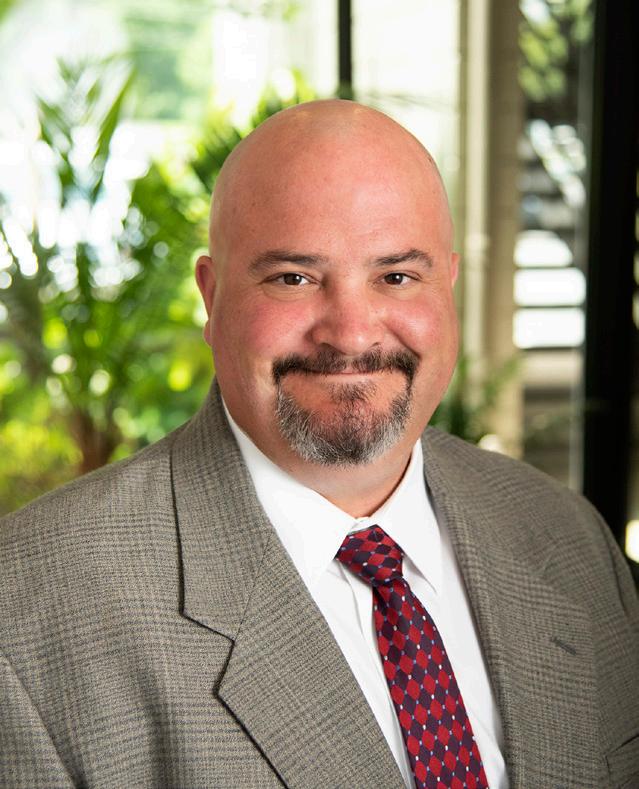
Marshall Ipsen CEO, Ipsen Advisor Group
Little Rock
“I knew I wanted to own my own business, and the other broker dealers and the big banks I interviewed with all offered me jobs, but I knew I wouldn’t have my own business going that route,” he said.
For nearly 20 years, Ipsen operated as a branch of Ameriprise Financial before opening his registered independent advisory firm five years ago. The years have shown him a great deal of change
in this recession and this once-in-alifetime market situation.”
It was during these trying times that Ipsen’s conservative mindset was cast, an investment strategy that he has maintained all these years.
“We try to figure out what return people are comfortable with and what return they need, not necessarily the best return out there,” he said. “We don’t try to do the best return because that’s when you’re taking the most risk.”
Ipsen paired his conservative investment mentality with a healthy respect for legal compliance, an attitude he gained from meeting and marrying his wife, Amy, who was a compliance officer and still rides herd over such matters as Ipsen Advisor Group’s chief compliance officer.
The years have also taught the couple a lot about the art of working alongside one’s spouse and how to make things work even when the market turns against the business. Marshall said for anyone who endeavors to work with family, showing respect and understanding the others’ strengths and weaknesses sit at the top of the list of must-dos, as does separating work and home life.
“We both love our work. We both love our roles. We love our clients. We love the outcome of what we’re able to accomplish, but one of the things is you have to separate those lives,” he said, “That works for us. I remember 12, 13 years ago, we had a much smaller space, and she and I actually were sharing not only an office, but we shared a desk for nine months. I tell people, ‘If you can work with your spouse at the same desk for that amount of time, you can do anything.”

“I knew I wanted to own my own business, and the other broker dealers and the big banks I interviewed with all offered me jobs, but I knew I wouldn’t have my own business going that route.”
— Marshall Ipsen, Ipsen Advisor Group

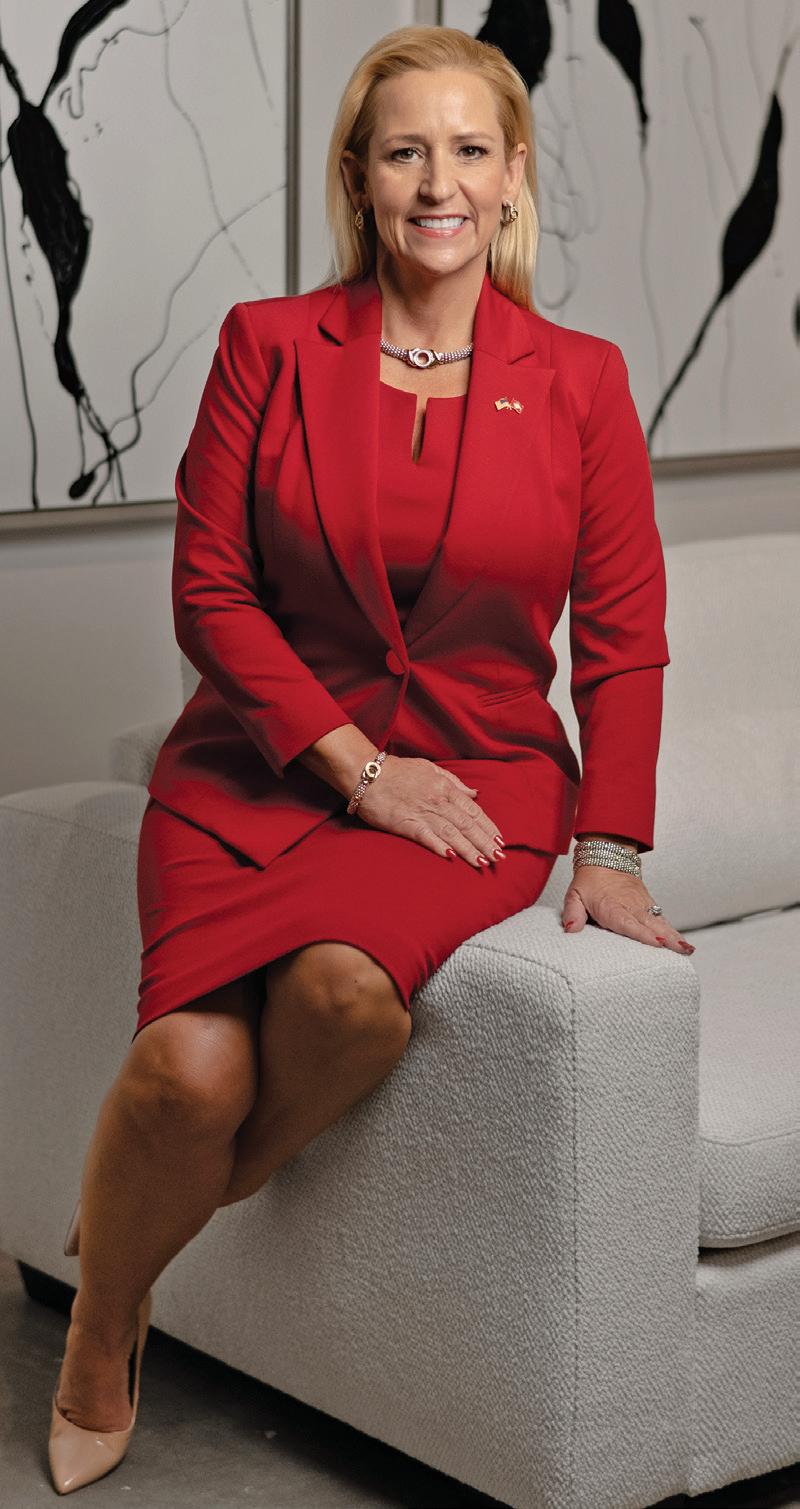





REVOLUTIONIZING DIRT WORK


COMPLETE SITE SOLUTIONS
CIVIL CONSTRUCTION
Complete site solutions that do more than grade and drain. We engineer smart earthwork with advanced technology to deliver sites that are ready to build — fast, clean and accurate.
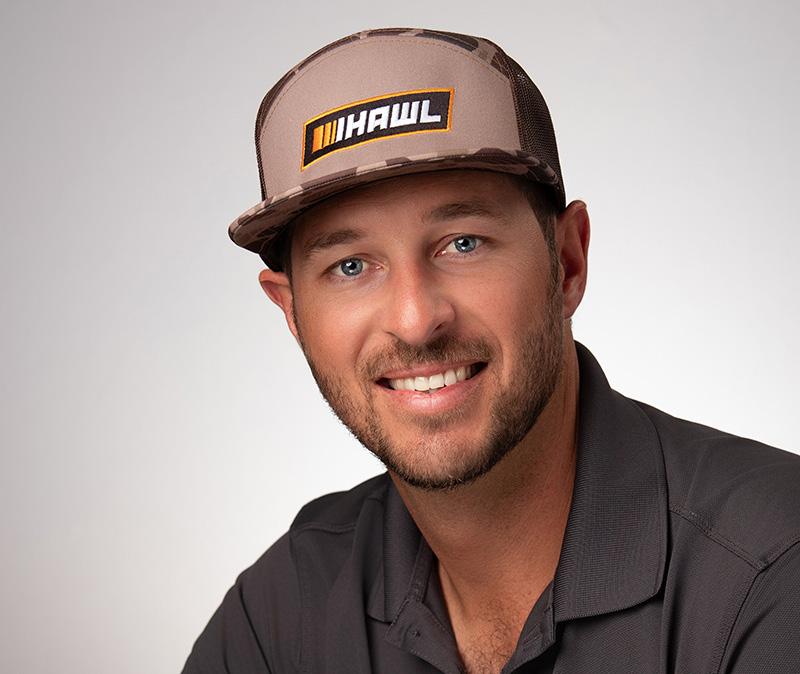

STRATEGIC DIRT WORK ASPHALT WORK

From prep to finish, we handle asphalt with durability in mind. Our teams partner with leading providers to lay down strong, reliable surfaces that hold up under pressure. PREMIUM SCREENED TOPSOIL TOPSOIL SERVICES

INSTALLATION AND REPAIR UTILITY SERVICES
Stephan Van Der Merwe, CEO
Not all dirt is created equally. We screen, refine and supply premium topsoil that keeps landscapes thriving and construction projects strong.
Water, storm, sewer, power — we bring critical utilities online with precision and safety. Every trench, every pipe and every wire is installed to last.
THE FROM VIEW HILLTHE
WOMEN IN THEIR 40S
TALK LEADERSHIP,
BALANCE AND WHAT IT MEANS TO BE IN ONE’S FOURTH DECADE
By Sarah DeClerk
There was a time when turning 40 was known as “going over the hill.” Celebrated with gag gifts such as crutches and denture cleaners, the message was clear — one’s best days now in the rearview, the swift descent into old age begins. For women, whose looks and youth have traditionally been prioritized more than for men, the sentiment cut even deeper.
Well, put away those black balloons. Far from slowing down, women in their 40s are just hitting their stride. In many cases, children are growing up, new leadership opportunities are emerging, and as women become more established in their career and personal lives, they also gain a greater understanding and acceptance of the self.
Here are four women in fields ranging from health care and industry to government and economic development who show that 40 is not just a number; it is an experience.
RANDI STRODE LEXICON
Randi Strode, director of financial planning and analysis at Lexicon, may have earned a degree in accounting, but she has carved out a niche in strategic planning and analysis. For her, she said, it is all about solving the puzzle.
After graduating from the University of Arkansas at Little Rock, she started a nearly 20-year career at Vestcom that took her from senior accountant to director of accounting, revenue and project management office.
About a year ago, she had the opportunity to start a new chapter of her career helping develop an SP&A structure at Lexicon.
“I had felt like I had just done all that I could at Vestcom,” she said. “I had a great career there, a great experience and really was just being open to looking for change and knew that it had to fit all the perfect boxes, and Lexicon did that.”
Not only did the family-owned company provide the kind of culture that appealed to her, she added, but helping launch a new department allowed her to make full use of the skills she had learned thus far in her career.
With the ultimate goal of providing a comprehensive story of the company’s finances, the department has conducted deepdive reviews of profit and loss, built balance sheet reviews into company processes and implemented a new software platform to help keep everyone on the same page.
Although most of the team’s work has involved conducting reviews to date, Strode said she would like to eventually provide forward-looking projections to help predict things such as capital expenditure.
“Our goal would be to look forward, do projections and get a better idea of what’s coming down the pipeline versus looking
back,” she said, “so that’s kind of our long-term goal.”
Understanding the business lifecycle is key, she added, and that is no mean feat at Lexicon. With a family of companies ranging from fabrication, construction and industrial maintenance to energy services and even golf course construction, renovation and management, there are multiple lifecycles to consider.
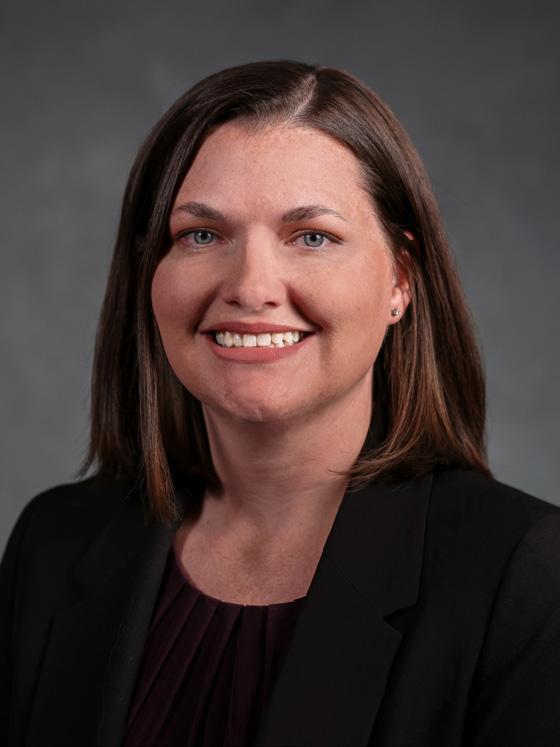
Taking the reins at a new company with a new team, Strode said she has embraced an “in-the-trenches” leadership approach as she gets to know everybody. She added that although she works in a male-dominated industry, she has had great mentors and feels she has a voice.
A mother of six, Strode spends much of her time away from the office cheering on her children’s sports teams. Her oldest son has special needs, which has led the family to support Easterseals. Now 42, she said she feels more confident than ever and advised other women to embrace their season of life.
“I think a lot of women are scared to turn 40,” she said. “They’re afraid of what that looks like. I’m no longer 20. I’m not going to look like I’m a 20-year-old, I’m not going to be able to act like a 20-year-old, but I’ve really made an effort to embrace the age that I’m in.”
Randi Strode
JESSICA DEWBERRY
CONWAY REGIONAL
For Jessica Dewberry, 49, director of therapy services at Conway Regional Health System, one’s 40s are all about homing in on what is most important.
“In your 30s, it’s a great time to be able to take opportunities, say yes, try some things out so that when you do get into your 40s, you’ll have a really good understanding of where you want to focus your time and energy,” she said. “You do kind of learn to say no.”
Dewberry studied speech pathology at the University of Arkansas for Medical Sciences in Little Rock and then spent a year working as a speech pathologist in Indiana before taking a position at Baptist Health Medical Center-Little Rock. She joined Conway Regional Health System as a speech therapist in 2004.
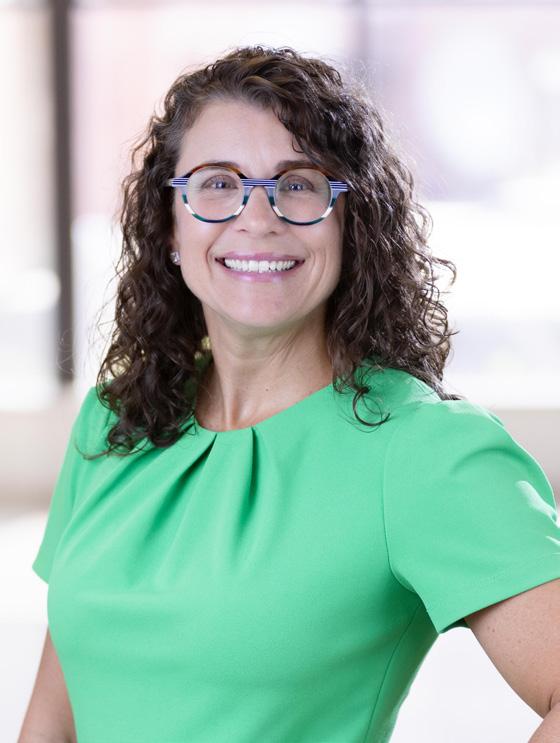
When she first transitioned into the director role, she identified a need for more formal management training. However, with two children at home, she said she was concerned about balancing her career and family obligations. Earning a Master of Business Administration at Western Governors University proved to be the ideal fit.
“I felt like that program would be a really good balance of giving me the education I needed to help me do my job better and be a better leader while continuing to raise my kids and participate in activities and work full time,” she said, “and so it was a good time, I think, in their lives and mine to be able to go back and get my degree.”
Despite making a career out of helping others speak, Dewberry said her biggest challenge has been finding her voice. She added that therapy provides great opportunities for women because it allows them to take their careers in many different directions.
“There’s lots of flexibility,” she said. “There’s the flexibility for the women that want to work full time and move up and have leadership roles and lead a team, and then there’s flexibility for those that see a lot of value in wanting to stay home with their kids but still work a little bit and be able to balance that.”
Dewberry said she used to put a lot of emphasis on worklife balance until she heard an interview with Marcy Doderer, president and CEO at Arkansas Children’s, in which Doderer said she does not subscribe to the idea.
“I loved that because I had struggled on trying to figure out what that meant for me,” Dewberry said. “It made me just realize I didn’t have to be so balanced, that there were going to be times that I needed to work more, that there were things I needed to focus on in the office, and that was OK, and then there were times when I needed to step away and take care of myself and decompress from all the things going on at work and home, and then there were times I needed to step away and be there for my kids and husband.”
TONI LINDSEY ARKANSAS STATE CHAMBER/AIA
Growing up, Toni Lindsey learned from her mother that it is nice to be important, but it is more important to be nice. Now 47, she said the lesson continues to resonate.
Lindsey studied political science and communication at the University of Arkansas in Fayetteville with a goal of running for office. Instead, she spent 17 years working in public relations for the Razorbacks.
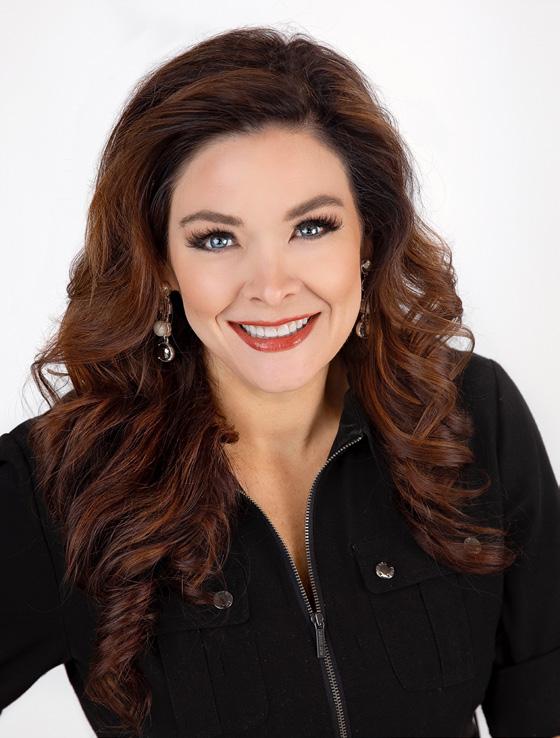
“I was one of very few females at the time that was not in a secretarial position, and overcoming those obstacles and shattering glass ceilings, if you will, pushing boundaries allowed for a lot of personal and professional growth, but it was definitely a challenge,” she said. “There weren’t a lot of female role models at the time that I could look up to or work closely with to learn from. There’s so many more in the department now, and I love to see that change.”
In addition to providing her with a wide range of experience, her work with the university athletics department allowed her to attend Leadership Arkansas, which she now serves as program director, in addition to being director of governmental affairs at the Arkansas State Chamber/Associated Industries of Arkansas.
“I very much enjoyed that program and got so much out of it,” she said. “I tell people now it’s the best professional and personal development program I’ve ever been a part of. It actually truly changed my life.”
Jessica Dewberry
Toni Lindsey (Photo by Michelle Roberts)
“I THINK THAT NO MATTER THE AGE, YOU SHOULD TRY NEW THINGS, YOU SHOULD FOLLOW YOUR PASSIONS”
-TONI LINDSEY, ARKANSAS STATE CHAMBER/AIA
Although she no longer has any political aspirations, she said she enjoys working behind the scenes to help facilitate economic development in Arkansas. She also takes pride in watching graduates of Leadership Arkansas apply the skills they learned in the program to the real world.
“I’m like a proud mom when these business leaders take even the tiniest nugget that they learned in Leadership Arkansas and do something with that,” she said.
Lindsey is a proud mother in the literal sense, as well. She and her husband, Michael, have a 6-year-old son, Thomas. Shortly after he was born, Thomas required open-heart surgery and was treated at Arkansas Children’s, where Lindsey has long been a volunteer, even serving as president of the Arkansas Children’s Northwest Auxiliary.
“It’s wild how things work, that I was working on an event and fundraising for a hospital that I truly had no idea we would need,” she said, “but now we’re even more motivated than ever to be champions for the hospital.”
She is also active in the American Heart Association, Chi Omega and Miss Arkansas. Lindsey said she plans to continue her work at the chamber and her community service activities while being present for all of Thomas’ “firsts.”
“I think that no matter the age, you should try new things. You should follow your passions,” she said. “The other thing I would say is that family is so important, and so your job is a job, and it is your career, and it’s your passion, and it’s important, but make sure to make time for your family and work in an environment that supports that.”
LT. GOV. LESLIE RUTLEDGE
Not even 50, Lt. Gov. Leslie Rutledge has already secured a place in Arkansas history. Not only is she the state’s first female lieutenant governor, but she was the first Republican and first woman elected attorney general in Arkansas. She and Gov. Sarah Huckabee Sanders are also the first women in the United States to be independently elected and serve as governor and lieutenant governor.
Growing up in Batesville as the daughter of an elementary school special education teacher and a father who worked as a circuit judge and prosecutor, Rutledge understood early on the value of giving back. She began her career as a law clerk for former Arkansas Supreme Court Justice Josephine Hart, then a judge in the Arkansas Court of Appeals, from whom Rutledge learned the value of a diligent work ethic.
It was a lesson also instilled in her by Mike Huckabee, now ambassador to Israel, who Rutledge served as counsel during his time as governor and during his 2008 presidential campaign. Rutledge also worked at the Lonoke County Prosecutor’s Office and with the Arkansas Department of Human Services prior to being elected attorney general in 2014.
“It was no surprise that I would be in public service,” she said. “I just never knew that the good Lord and the people of Arkansas would give me the opportunity to serve the entire state of Arkansas in these two ways, and I feel very blessed.”

As lieutenant governor, she said she is committed to supporting Sanders’ work to make Arkansas a better place to live, work and raise a family. Her own background of being raised on a cattle and timber farm and her husband’s work as a row-crop farmer has given her a special interest in promoting the state’s agriculture, as well.
“We worked behind the scenes quite a bit at the attorney general’s office and the incredible team, the biggest law firm in the state that I had with me,” she added. “Now we get to really be in on the action, and it’s been a lot of fun.”
At 49, Rutledge said she has experienced many incredible moments during her 40s, the most important being the birth of her daughter in 2018. There is nothing better than being a mother, she said, adding that she and her husband both make time to be present for their child’s school and extracurricular activities.
Seeking to be a better wife, mother, daughter and public servant, Rutledge said she draws inspiration from Psalm 90:12 — ”Teach us to number our days, that we may gain a heart of wisdom.” The verse is a reminder to enjoy the moments she has with her loved ones, she added, even if it means interrupting a work call to answer a call from her father.
“I don’t want to miss that phone call,” she said. “I don’t want to miss that moment with my daughter, and I think time is of the essence that we serve out our purpose for whatever God has in store for us and to look forward and not think it’s almost over. Think: ‘I get more time to do this.’”
Lt. Gov. Leslie Rutledge
▶
▶
▶
▶
▶
▶
▶
▶
▶
▶
▶
▶
▶
▶
▶
▶
▶
▶
▶

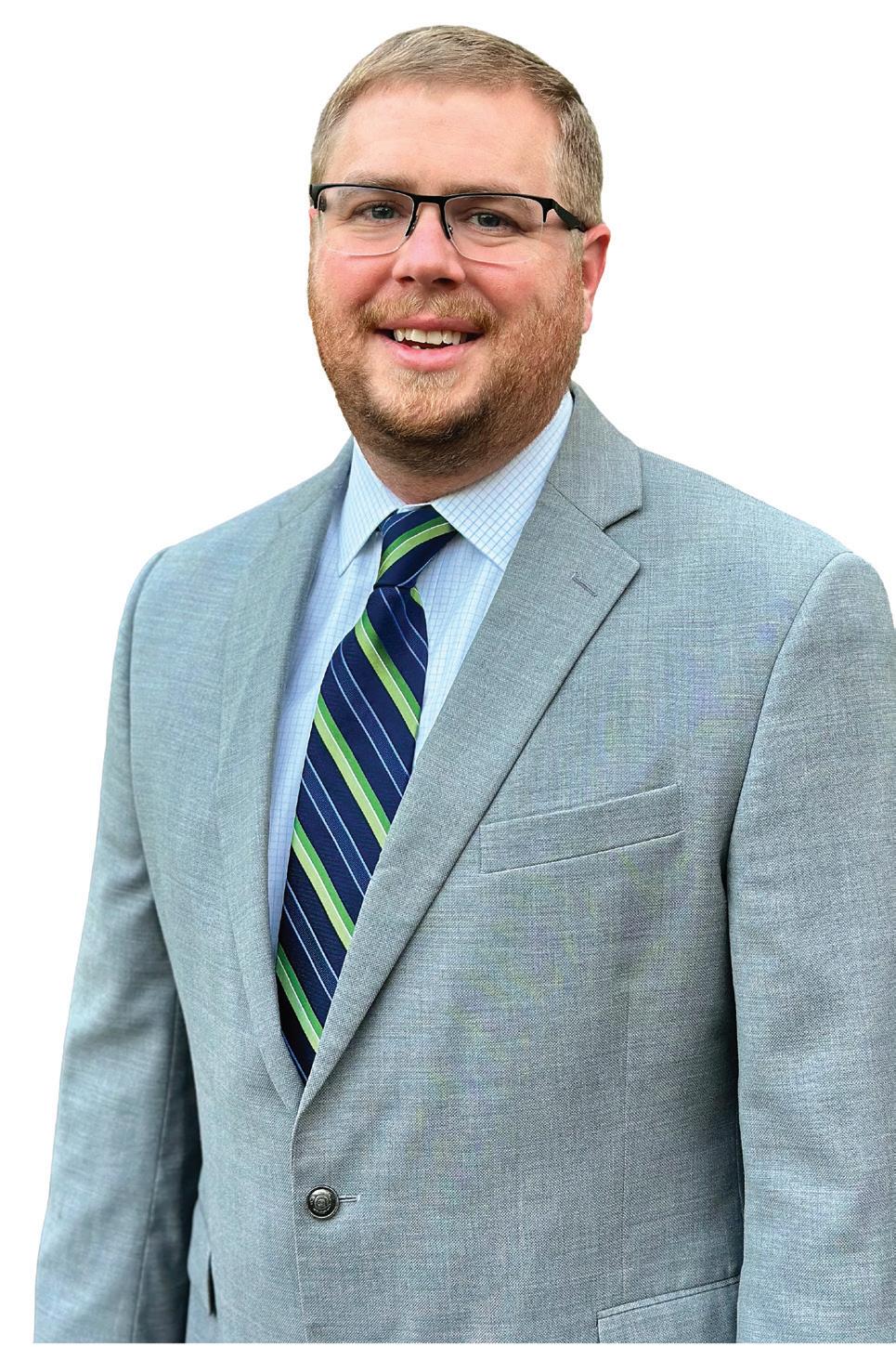




Photo by: Bailey burton
Changing lives through education, training and employment
At Goodwill Industries of Arkansas, we believe opportunity changes everything. Every donation and every purchase at Goodwill fuels programs that help Arkansans build brighter futures.
Arkansas’ only tuition-free adult high school, offering adults the chance to earn a diploma and open doors to better careers.

Affordable, accelerated training programs that equip Arkansans with industry-recognized credentials for high-demand jobs.
Paid training and support for individuals reentering the workforce after incarceration, providing a path to stability and success.
Personalized guidance, job search support, resume assistance, and interview prep to connect Arkansans with meaningful employment opportunities.
Congratulations to Lane Gammel for being voted one of AMP’s Achievers in Their 40s.
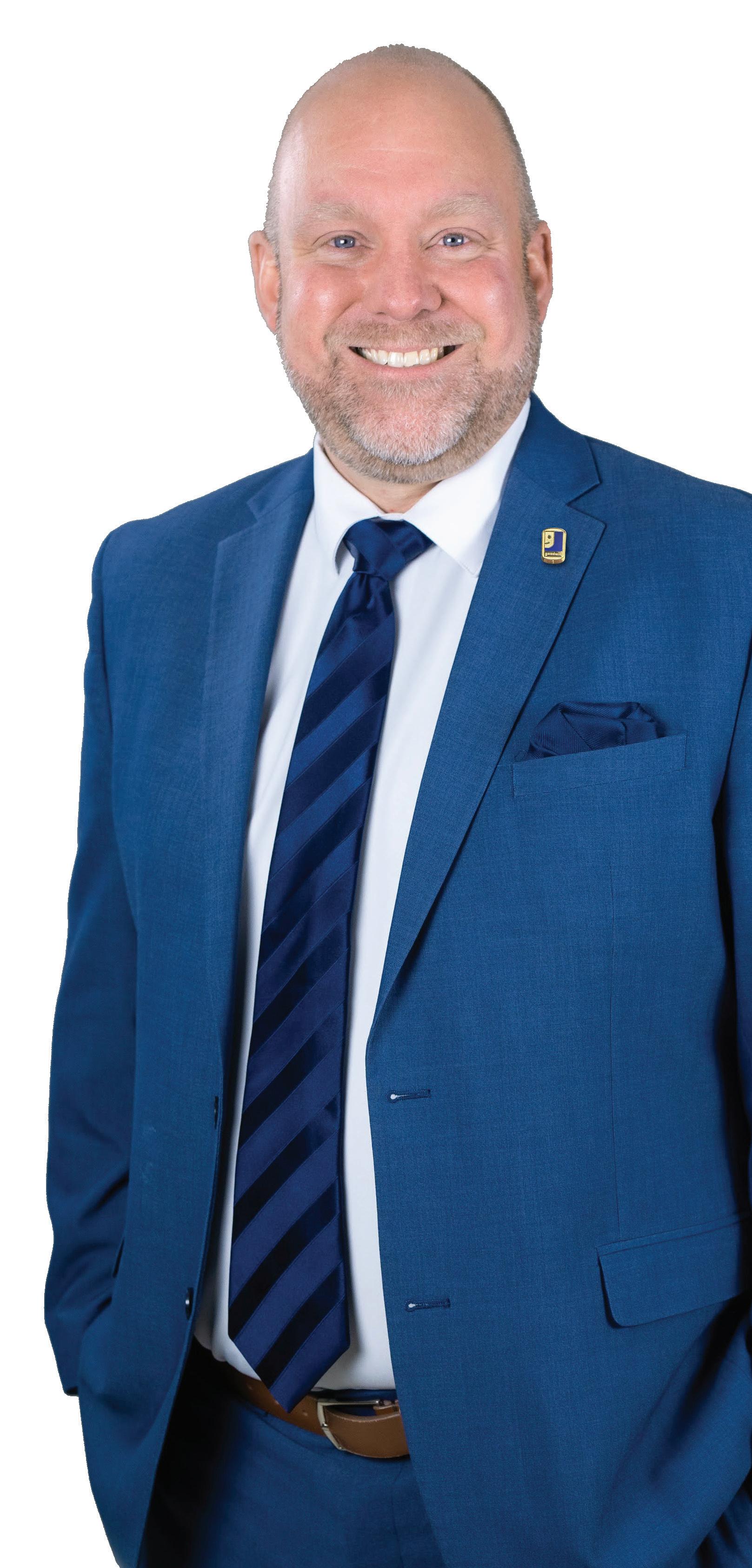
NEXT GENERATION TAKES OVER THE
By Alex Hardgrave
Millennials have been subject to some nasty assumptions from both older and younger generations, such as being lazy or entitled. However, as millennials come into positions of power and leadership, they are proving naysayers wrong.
From academia to construction to entrepreneurship, people aged about 30 to 44 years old are in leadership positions and improving the Natural State.
One leader is Casey Rockwell, associate professor in the marketing and advertising department and assistant director of the school of business at the University of Arkansas at Little Rock.
She earned a degree in education policy from Hendrix College in Conway. Then she went to law school and pursued a doctorate of education at the same time. Later, she added a master’s from the Clinton School of Public Service in Little Rock. After schooling, she went to work in the public education system, where she taught for three years.
“I loved those experiences,” she said. “I
learned a lot about the classroom and the opportunities that we have to better those classroom experiences.”
After her time there, she moved to the University of ArkansasPulaski Technical College in North Little Rock and worked as the degree audit coordinator. In that role, she did a lot of different jobs for the university, including helping with financial aid verifications, reviewing contracts and working with the development office.
“A little bit of everything,” she said, “so it was a great experience.”
From there, she moved into the deputy director of federal program role at Arkansas Tobacco Control. She then went back into education, taking the role of dean of learning at College of the Ouachitas in Malvern, now Arkansas State University Three Rivers. Finally, 11 years ago, she came to UA Little Rock.
She said she feels education is powerful, which is what brought her back to the field.
“The biggest way to impact and improve a state is through an educated population,” she said. “I always knew I wanted to contribute to education in some way.”
She has also always been surrounded by education. Her mother and stepfather were both college professors, and her father returned to college in his 50s.
Every day at her job is a bit different, especially at the beginning of a new school year.
“The biggest thing is we want to teach them what they need to know in the classroom. We want to support them all the way
MILLENNIALS LEADERS DISCUSS WHAT THEY HAVE LEARNED, OFFER ADVICE
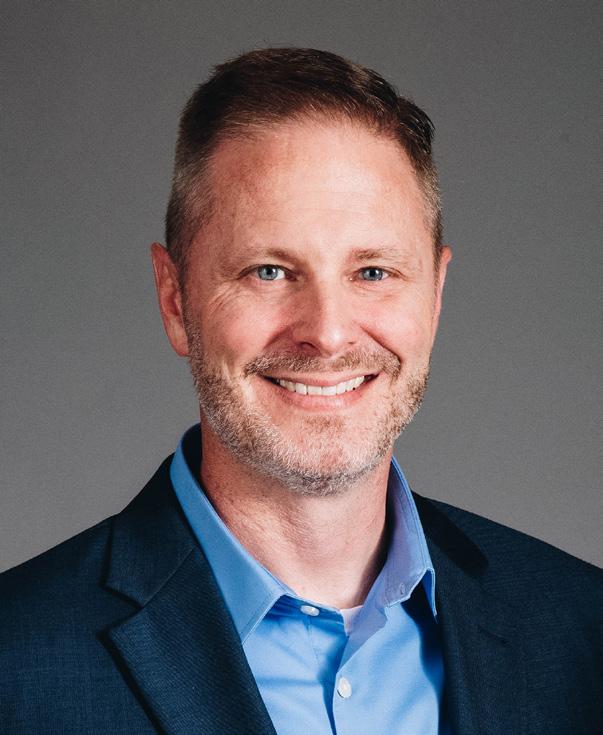
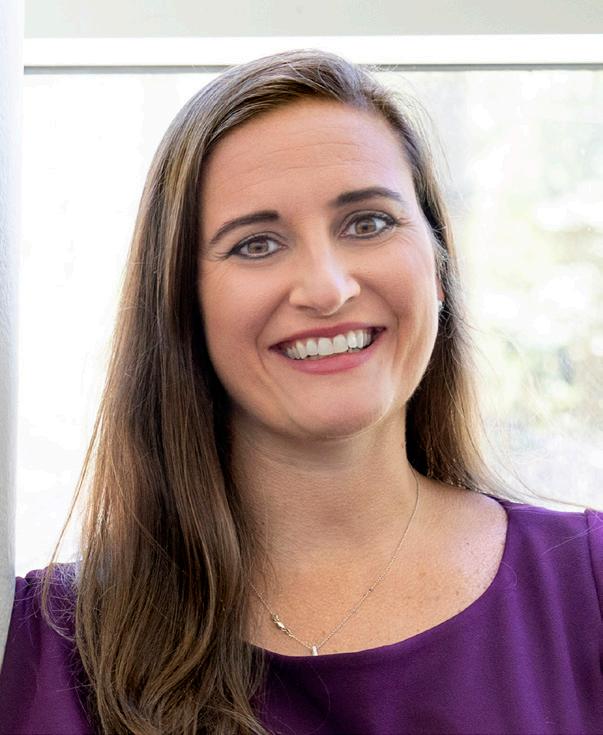
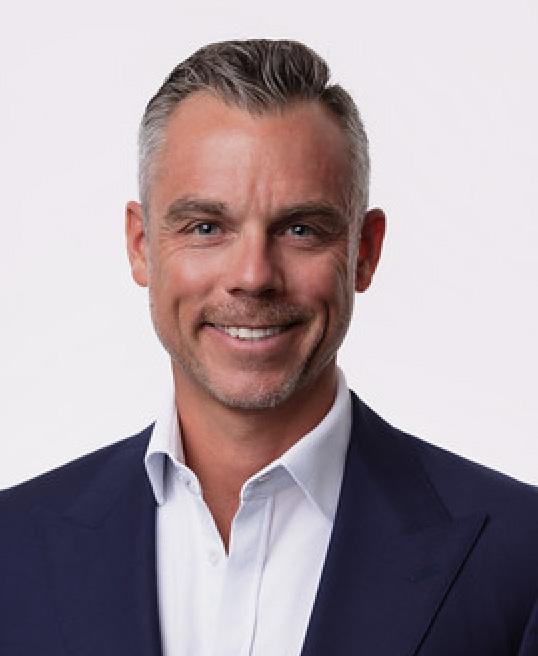
through graduation, but we also want to support them in the community once they get there,” Rockwell said. “We want them contributing to society. We want them putting the skills that we taught them to good use.”
She said the happiest days of her profession occur when she sees a student’s status change on LinkedIn after they get a job or promotion.
Outside of her work, she has a farm where she and her family enjoy spending time.
“Arkansas being the Natural State, it seems like such a waste if you don’t go out and enjoy it,” she said. “You’ll find us [on the farm] a lot.”
Throughout her time in her career, she has learned many lessons about work and leadership. One that she shared is to “save your best yes.”
“You’re going to be presented with a hundred opportunities,” she said. “Really evaluate those opportunities that help you get to where you want to be, and think about what to say yes to.”
She also wants younger professionals to know that their career path does not have to be linear, and said she is an example of that.
“I’ve had the opportunity to do a lot of different things,” Rockwell said. “My law degree has allowed me to open some doors
and allowed me to try different things.”
In her position, she gets to work with people of all ages, bridging the gap between younger and older learners.
“I would say the best part of my program is that I work with people who are 19 and 90,” she said.
Overall, she said she wants people to know how valuable learning is.
“While you’re earning your degree, you’re also learning a skill set,” Rockwell said. “You’re changing your lens. Just because I was an attorney doesn’t mean I couldn’t do tobacco control. It’s just using your skill set in a new way.”
Another young leader in the state is Sean O’Keane, president of Garrett Excavating. He started his career after graduating from Stanford University in California through a Cat executive Master of Business Administration program. Then he worked for Riggs Cat, a Caterpillar-dealing company in Arkansas, and was president there for about 10 years. He transitioned to Garrett Excavating in 2022.
Along the way, there were several mentors who helped him to become the successful leader he is today. One mentor named Larry Mills taught O’Keane about value-based leadership.
O’Keane explained value-based leadership as understanding that “everything starts with you.”
Sean O’Keane
Casey Rockwell Cole Rodgers
“To lead others, you effectively have to lead yourself,” he said. “Those leadership principles and tools he taught me were really a key in my life to understand how to accomplish my career goals and, at the same time, have the balance to achieve my goals with my family.”
O’Keane has been married for 25 years to his high school sweetheart, and they have two children, an 18-year-old and a 15-year-old.
He has had to learn how to best balance family life and work life and said it is all about intentionality. He tries to plan his family life the same way he plans his work life.
“I cannot necessarily offer my family quantity, but I can offer quality,” he said.
Outside of his job, he is a part of many organizations and boards, including WallBuilders, the Arkansas Game and Fish Foundation Board, and a couple of faith-based ministries.
Garrett Excavating also has a nonprofit called the IMG Share It Forward Foundation. O’Keane said he has prioritized giving back for the past two decades after asking himself one day why he was given what he had been given in life.
“From that point forward, I felt like it’s incredibly important that we demonstrate love and care for people,” he said. “At the end of the day, money doesn’t fix our problems. Success doesn’t fix our problems. The ultimate purpose and what we’ve all been called to do is love.”
Similarly, the biggest lesson he said he has learned in his career is to not pursue profit over people.
“When you love people and care, profit will come,” he said.
“I’m an entrepreneur at heart,” he said. “Since I was a child, I’ve always had a heart to serve.”
Prior to founding the school, he underwent a simulation of Navy SEAL Hell Week after realizing he needed to make changes in his life.
“If you want to achieve something you’ve never achieved before, you have to become somebody you’ve never been before,” he said. “At the time, there was a portion of me that had to die to be able to grow.”
He also lost a friend, Kirk Deligiannis, which made him stop and consider his life.
“He showed me what it truly meant to live,” Rodgers said.
Rodgers said he wanted to help men who were suffering, so he founded the School of Man to mentor and teach men to become their best selves.
“It’s been incredible, the lives we’ve been able to impact in our own unique way,” Rodgers said.
“There are different values placed on the environment and leadership culture than there were in previous generations.”
— Sean O’Keane Garrett Excavating
His advice for other leaders is to know that you cannot fix everything but instead need to help people learn how to help themselves.
As a leader in his 40s, he has seen a shift in what workers want from leaders in their workplace.
“A difference I see in my generation of leaders is that there are different values placed on the environment and leadership culture than there were in previous generations,” he said, “so if there is a difference I see in my generation of leaders, it’s that we’re more in tune with people wanting to be seen and heard and be a part of a team.”
Another local leader is entrepreneur Cole Rodgers. He works as a workforce benefit strategist at McGriff and also founded the School of Man.
The School of Man’s work goes even deeper through its foundation, which helps to combat suicide among men.
He said mentoring helped him to grow himself. Now he prioritizes his family and health above his work. When he is not traveling for his job, he spends time with his family. Beyond that, he has things he enjoys doing, such as Brazilian Jiu-Jitsu but said he sees the way he lives and works as a hobby.
“I don’t look at anything as work for me,” Rodgers said. “My hobbies are the life I live.”
Throughout his career, he said, he has never felt underestimated for being a young leader but rather went into things with an underdog mindset.
“I’ve never looked at my age as a prohibitor or where I am on the scale of experience,” he said. “I’ve never experienced imposter syndrome. Through all the adversity and challenges of things, I just knew that this is what I was called to do.”
He said every time he has grown, it is because he placed himself in a hard situation. Beyond going through Navy SEAL training, he trained for and holds the world record for the most Murphs. A Murph is an exercise routine popularized by CrossFit that entails a 1-mile run, 100 pullups, 200 pushups and 300 air squats, all while wearing a 20-pound vest. Rodgers completed that circuit 19 times and started on the 20th round.
“I enjoy healthy stress,” he said. “I enjoy pressure.”
His advice for other leaders is to “do hard things.”
“If you’re the best in the room, find another room,” he said.
Invested in the Natural State
In Arkansas, we invested more than $1.2 billion in our network infrastructure from 2020–2024 to connect more communities to more opportunity.
attconnects.com/Arkansas

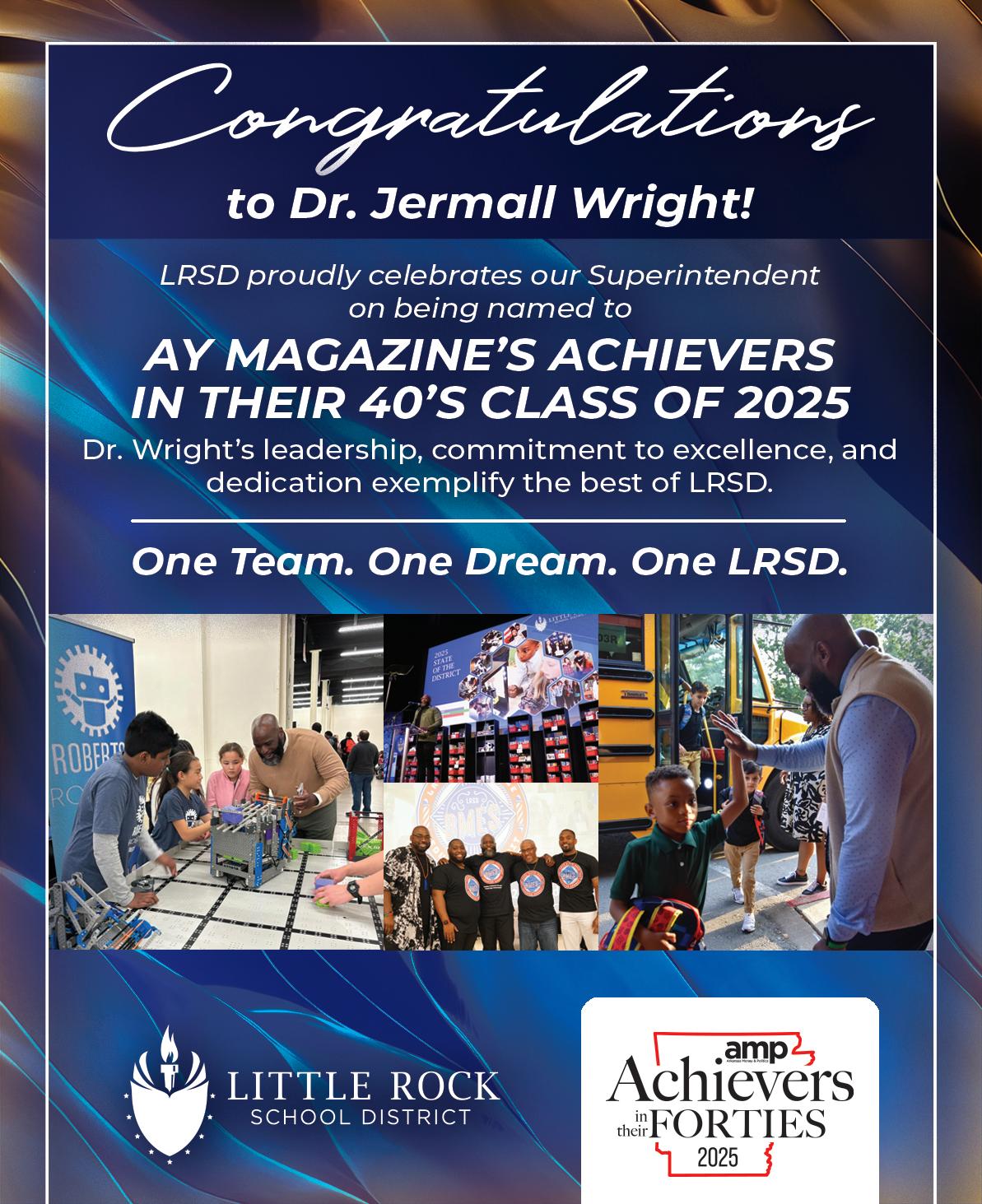


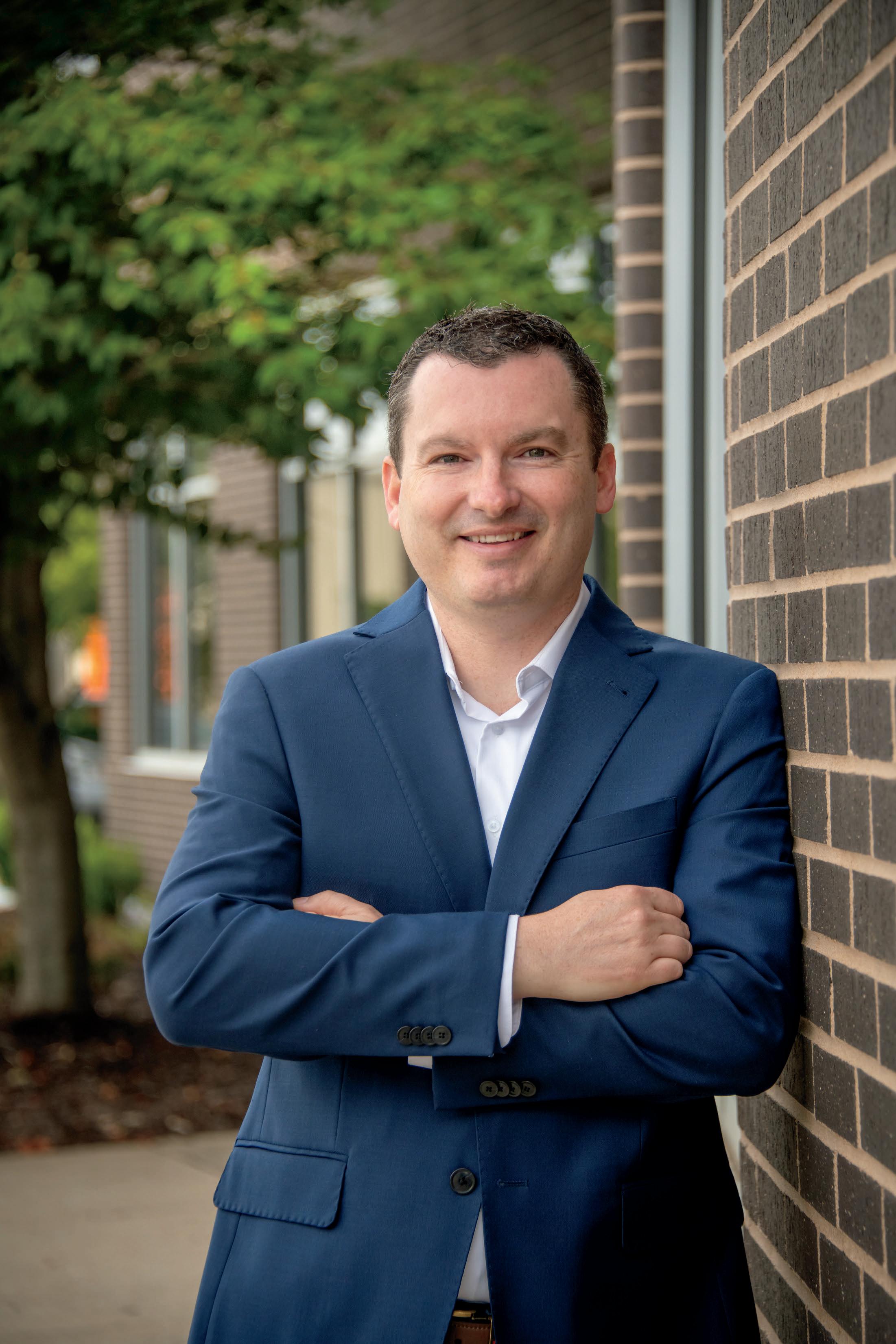
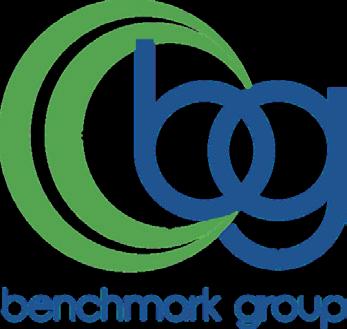
Congratulations to Jason Dodson, Engineering Program Manager, on being recognized as one of the “AMP Achievers in Their Forties”!
Your leadership, innovation, and commitment to excellence continue to inspire your colleagues and drive success at Benchmark Group. Benchmark Group is an employee-owned, full-service A&E firm licensed in all 50 states, D.C., Puerto Rico, and the U.S. Virgin Islands.


Vanessa Cash Adams
Attorney


Vanessa Cash Adams graduated from the University of Arkansas at Little Rock William H. Bowen School of Law in 2007 and was admitted to the Arkansas Bar that same year. Her undergraduate degree in journalism at the University of Arkansas in Fayetteville gave her a strong foundation in communication, while other essential skills have come through hands-on experience. Over the course of 18 years in private practice, Adams has focused primarily on consumer and business transactions, negotiations and bankruptcy. Adams is past president of the Arkansas Association of Women Lawyers and president of the Debtor-Creditor Bar of Central Arkansas. She is also a proud volunteer with the Little Rock School District, serving on the PTA board for Pulaski Heights Elementary School.
David Alexander
Chief Risk and Strategy Officer
Farmers Bank & Trust
David Alexander is chief risk and strategy officer at Farmers Bank & Trust, where he has worked more than 10 years. He previously worked as an audit senior at Frost. He studied agricultural economics at the University of Arkansas in Fayetteville and later attended the Graduate School of Banking at Colorado. He is a certified public accountant.
Vianca Armstrong-Jordan
AVP/Branch Manager
Stone Bank
Ashleigh
Buckley
Managing Partner
The Buckley Firm
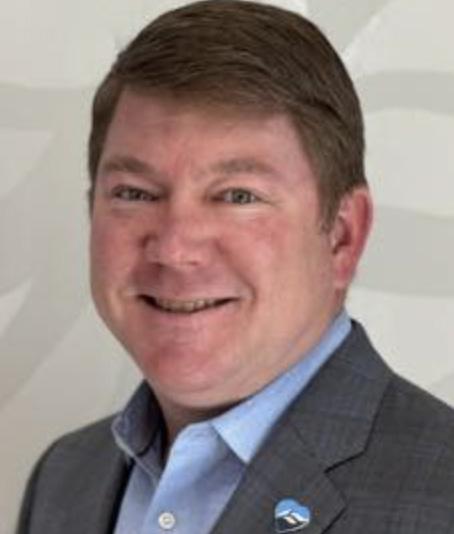

Vianca Armstrong-Jordan is a dynamic leader whose career reflects her passion for both finance and community wellness. She focuses on empowering others inside and outside the workplace. Armstrong-Jordan has been involved in financial services for almost 20 years and is now managing Stone Bank’s largest and newest branch on Chenal Parkway in Little Rock. In that role, she leads a phenomenal team of bankers with a focus on financial literacy, customer empowerment and creating meaningful community partnerships. She is also very involved in the fitness industry and has built a wellness consulting business that offers fitness training, nutrition guidance and financial wellness programs.
Matt Barrett
Advertising Director/Sales Manager Riser Ford
Yeargain Bequette
General Superintendent, Excavation
Nabholz
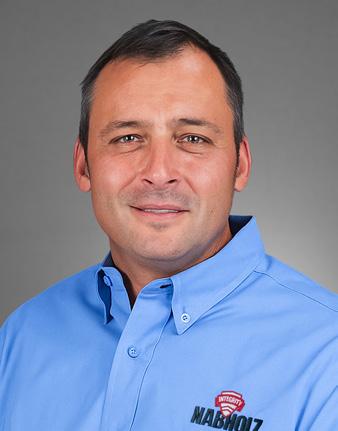
With more than 21 years of experience in civil construction, Yeargain Bequette has built a career defined by leadership, integrity and an unwavering commitment to quality. As general superintendent for Nabholz’s excavation team based out of Rogers, Bequette is responsible for overseeing every aspect of on-site production — from coordinating skilled craft professionals and subcontractors to managing scheduling, material deliveries and equipment. He has an Occupational Safety and Health Administration 30-hour certification, as well as CPR/First Aid and Competent Person training. Partners describe him as a steady leader who brings out the best in his teams while always keeping the client’s goals in sharp focus. He continues to shape the future of construction in Arkansas and beyond.
Greg Alan Brownderville
Author
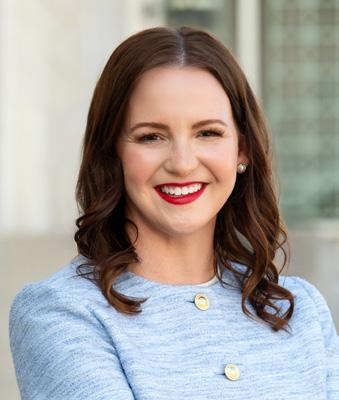
Ashleigh Buckley is a Fort Smith lawyer currently running for Circuit Court judge of Division 5 in Sebastian County. Buckley and her husband, William, practice law at The Buckley Firm in Fort Smith, where they help individuals, families and small businesses in civil litigation and personal injury cases. Buckley’s career first began in Memphis with the law firm of Leitner, Williams, Dooley & Napolitan, where she gained valuable courtroom experience representing large corporations and Fortune 500 companies in complex litigation. She later served as a deputy prosecuting attorney for Sebastian County and as a federal prosecutor with the U.S. Attorney’s Office for the Western District of Arkansas, working in the Project Safe Childhood division to protect exploited and abused children. A graduate of the University of Arkansas School of Law in Fayetteville, Buckley also completed her undergraduate studies at the University of Arkansas Honors College, where she graduated magna cum laude with a degree in political science.
Kelly Capps
Project Engineer
Ross Construction Group
Sam Carrasquillo
Realtor
iRealty Arkansas
Dale E. Colclasure Jr.
Principal Wealth Advisor
RetirePath
Dale E. Colclasure Jr., a Certified Financial Planner and Accredited Investment Fiduciary, is the chief in formation officer, chief compliance officer and prin cipal wealth advisor at RetirePath, an Arkansas-regis tered investment advisory firm. He has spent the last three decades developing successful solutions for the unique needs of the pre-retired and retired community. He works as a retire ment income specialist, a fiduciary who focuses on the entirety of needs of those transitioning from the asset accumulation phase to the income creation and distribution phase of investment management. Colclasure, along with his RetirePath co-founder Mark Smalling, has built a holistic financial planning firm that offers guidance and solutions for each step of retirement transition. Colclasure is an industry leader in helping clients create predictable lifetime income, considering the specific tax implications of retirement plan distributions and Social Security claiming strategies, along with tax-free and capital gains taxable streams. Roth conversion options required minimum distribution planning, charitable considerations, Medicare options and filing, longterm care planning, tax preparation and estate preservation strategies are all covered in the “Your RetirePath” process.
Kami Taylor Coleman
VP, Professional Development Arkansas Bankers Association
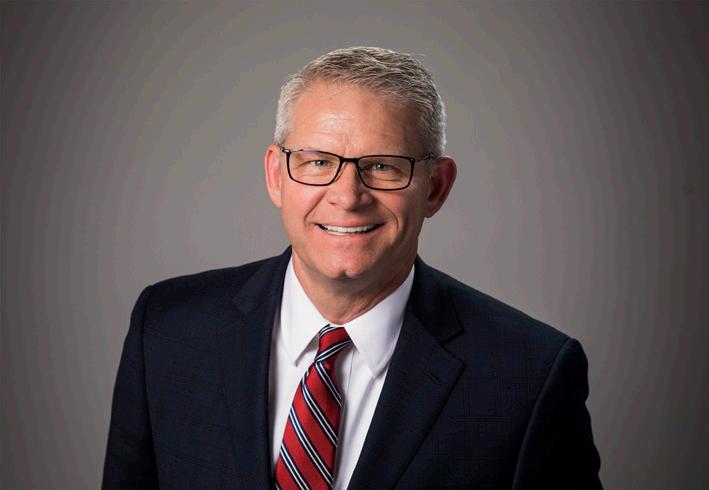

Kami Coleman has more than 20 years of experience in the banking industry and leads professional development for the Arkansas Bankers Association, the state’s largest and oldest banking industry organization. In her role as vice president of professional development, she is dedicated to contributing to the professional development growth and needs of Arkansas bankers and their careers. She oversees all banking professional development events, including the state bank convention and the Ascending Bankers Section Council. Hailing from a banking family in which her father and uncle were both state bank CEOs, she is passionate about the banking industry and helps to develop Arkansas’ community bankers with continuing education and opportunities within the field around the state.
Since founding DILKS LAW FIRM in 2013, Lyndsey has been a trusted advocate for Arkansans facing financial challenges. Focusing on bankruptcy, debt negotiation, and mortgage matters, she has guided thousands through difficult times with compassion and expertise. A native of Gillett and a proud Bowen School of Law graduate, Lyndsey’s recognition as an AMP Achiever reflects her dedication
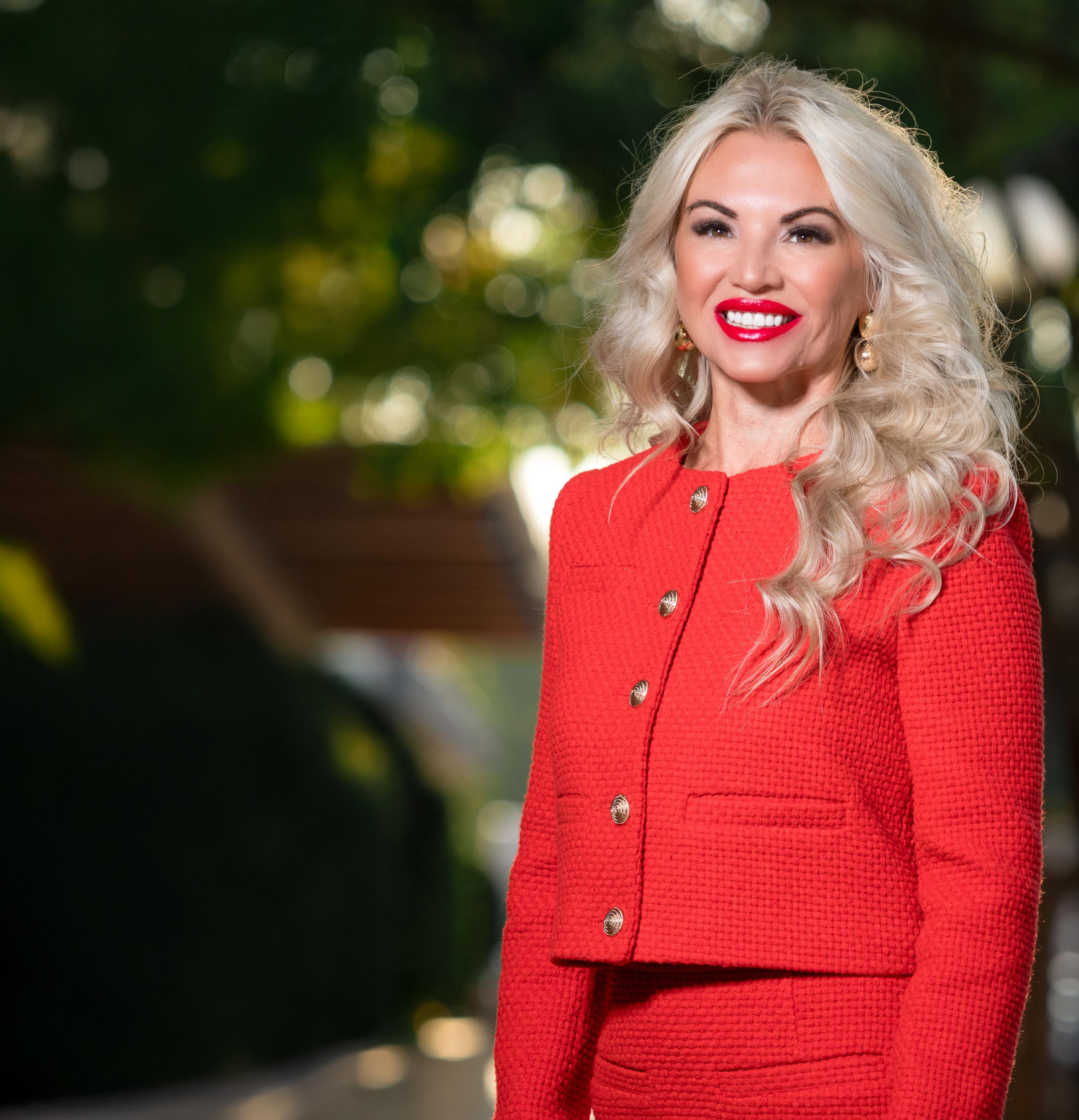













Ashleigh Buckley has stood in nearly every role the justice system offers, from prosecutor to criminal defense attorney to civil litigator representing both plaintiffs and defendants of all sizes. After more than fifteen years practicing law, she is ready to take the next step in a career spent seeking justice, serving others and contributing to her community.
“I’m running for Sebastian County Circuit Court Judge because I believe every person deserves a courtroom that is fair, impartial and respectful,” Buckley said. “I understand how deeply the decisions made in our courts impact people, families and businesses. Our community deserves a judge who will listen carefully, apply the law with thoroughness and integrity, and lead with steady, principled judgment.”
Born and raised in the River Valley, Buckley completed her Juris Doctorate at the U of A School of Law in 2010 before diving into private practice in Memphis, Tennessee. She soon found herself back in Sebastian County, where her career has been marked by service within the courtroom as well as out of the courtroom. As deputy prosecuting attorney for Sebastian County and, later, federal prosecutor for the Western District of Arkansas, Buckley focused on crimes against children and domestic abuse, putting numerous child predators in prison for decade-long sentences.
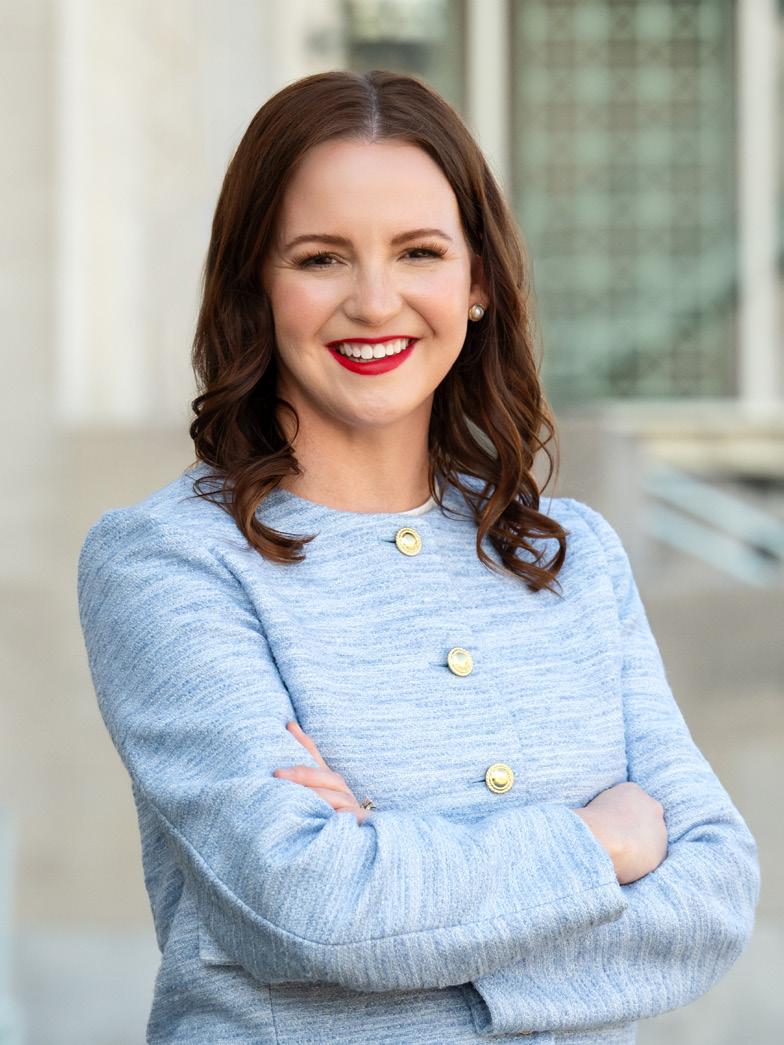
Smith, as well as a prosecuting attorney in DWI Court and RISE Court, two specialty courts that provide mental health and substance abuse treatment for participants in alternative sentencing programs.

Buckley moved back into private practice in 2017 to join her husband, William, in forming The Buckley Firm in Fort Smith. She has represented individuals and families in various civil legal matters such as real estate, probate, construction, contracts and personal injury, in addition to criminal defense of individuals charged with federal financial crimes. Buckley has also served as an interim prosecuting attorney for the City of Fort

Outside of her practice, Buckley has committed her time to bettering her city, region and profession in a number of ways. She is a former president of the Junior League of Fort Smith, where she founded the JLFS College Scholarship for Youth in Foster Care. She is current president of the Sebastian County Bar Association, serves as coach to the Southside High School Mock Trial team, and previously taught legal ethics and legal research and writing as an adjunct faculty member at the University of Arkansas-Fort Smith. She is also heavily involved with several other organizations and causes, including the Fort Kids Children’s Museum, Mercy Health Foundation, Girls Inc., Grace’s Toy Closet, Community Services Clearinghouse and the Arkansas Animal Rescue Foundation.
“The best thing about Sebastian County is the people who live here, and I would be honored to serve them as Circuit Court judge,” Buckley said. “I believe in the value of hard work and will dedicate my time and best efforts to thoroughly reviewing every case to ensure the most fair and just outcome. The people of Sebastian County deserve nothing less.”
Learn more about Ashleigh Buckley at buckleyforjudge.com or email ashleigh@buckleyforjudge.com.
Learn more about The Buckley Firm at buckleyfirm.org.
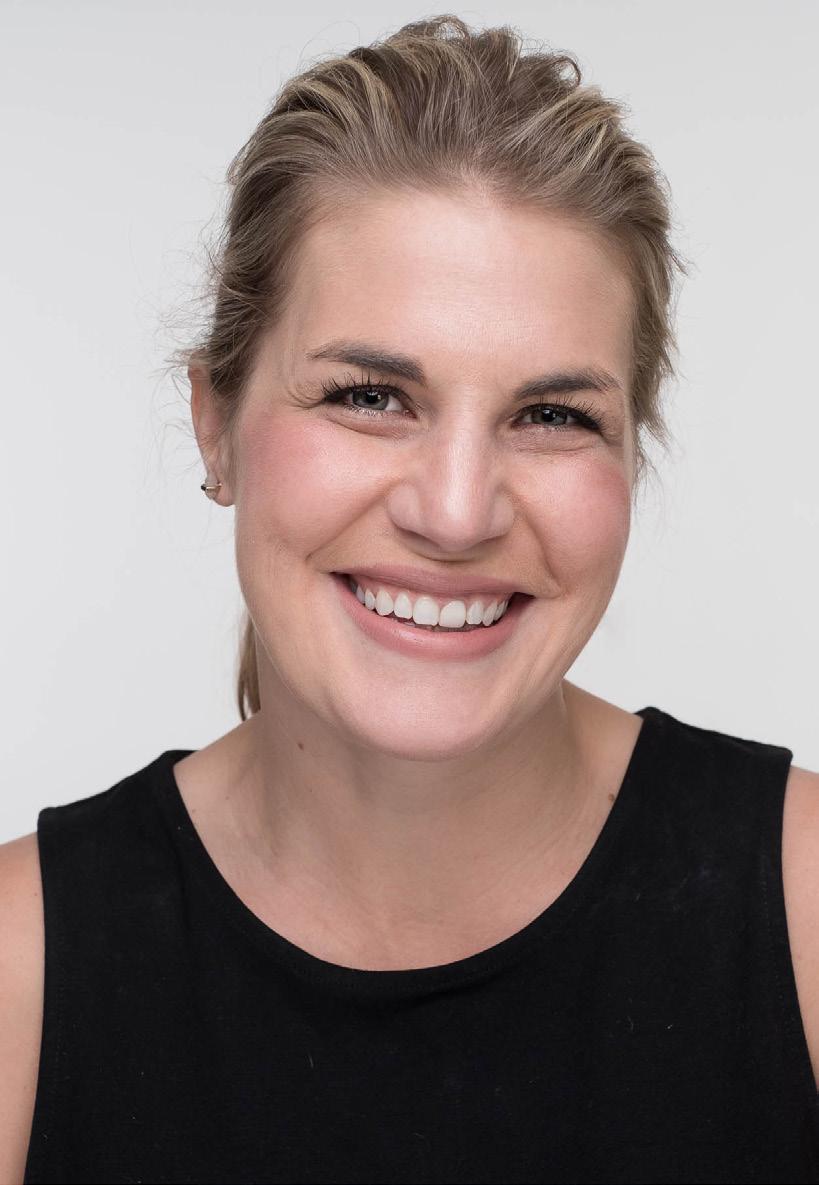

JESSI FORSTER
Executive Director of Operations at eStem Public Charter Schools
Jessi Forster is the Executive Director of Operations at eStem Public Charter Schools, where she has been instrumental in the district’s growth since 2008. Starting as a classroom teacher, she advanced to school director and now executive leader, giving her a unique perspective on both instruction and operations. Known for fostering strong school cultures and developing leadership from within, Forster is skilled at aligning people with roles that maximize their strengths. A graduate of the Arkansas Leadership Academy’s Executive Leadership Empowerment program, she blends strategy and creativity to make work purposeful and enjoyable. Guided by her motto, “People don’t care how much you know until they know how much you care,” she exemplifies people-first leadership.


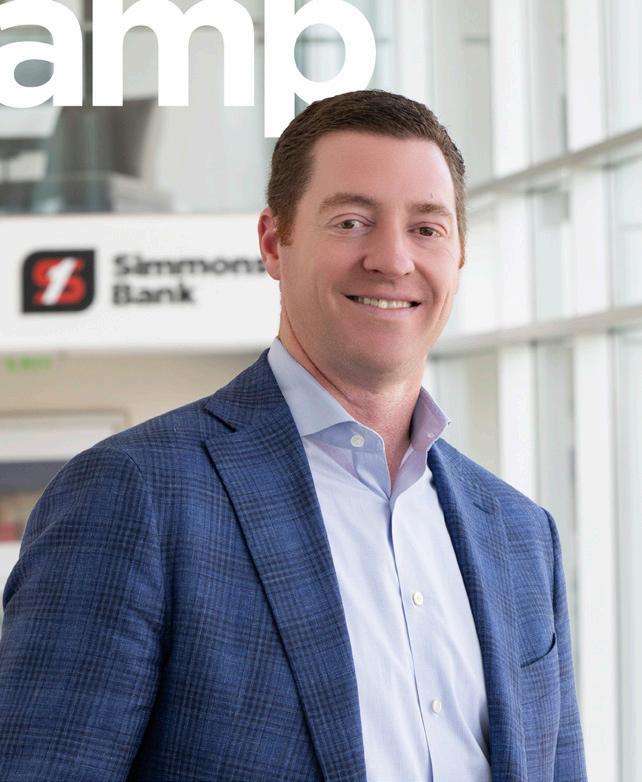
















Matt Coleman
Account Executive
Network Services Group
Matt Coleman is an account executive at Network Services Group, where he works closely with a lot of Arkansas’ most prominent businesses across the state consulting with them on their information technology and cybersecurity needs. He has become a crucial asset for his clients by not only ensuring their efficiency through technology but preparing for future expansions.
Chris Cook
Region Manager, Customer Service
Entergy Arkansas
Brande Daniels
Founder Ageless Aesthetics

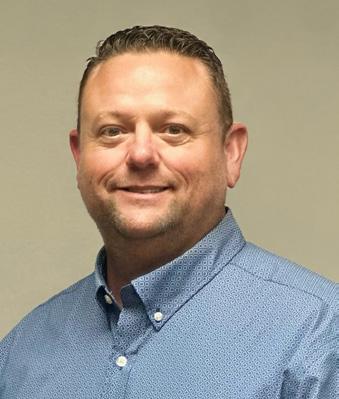
sity of Arkansas in Fayetteville in 1998, and her Juris Doctor from University of Arkansas at Little Rock William H. Bowen School of Law in 2006. After clerking for the U.S. Bankruptcy Court, she entered private practice and started the bankruptcy division at The Brad Hendricks Law Firm in Little Rock. Since opening her own firm in 2013, Dilks has earned a reputation for handling complicated bankruptcy matters. She assists families, individuals, businesses and farmers facing financial difficulties. She is very active in her legal community and in the city of Hot Springs, where she resides with her 2-year old daughter.
Jason Dodson
Engineering Program Manager
Benchmark Group

Brande Daniels established Ageless Aesthetics of Arkansas in 2019 with the goal of offering a high-end approach to facial aesthetics and wellness. With a background in plastic surgery and extensive handson experience in surgical procedures, she has gained a deep understanding of facial anatomy and nonsurgical rejuvenation techniques. Her passion for aesthetics has made her one of the most sought-after injectors in Hot Springs. Her journey in aesthetics began in 2007, when she mentored under Dr. Jeffrey Herrold, and since then, she has cultivated her expertise in the field. She envisioned Ageless Aesthetics as a luxurious space where cutting-edge medicine meets advanced facial rejuvenation, and she brought that vision to life in Hot Springs. Her commitment to excellence ensures that every client receives the highest level of aesthetic care.
Matías de Matthaeis
Executive Chef
Red Oak Steakhouse at Saracen Casino Resort
Jason Decker
President
General Transportation
Jessica Dewberry
Director of Therapy Services
Conway Regional Health System

Jessica Dewberry serves as director of therapy services at Conway Regional Health System, where she oversees physical, occupational, speech, core and pelvic therapy, as well as cardiac rehabilitation, across seven clinics and inpatient care. A licensed speech therapist by training, she earned her Master of Science in communication disorders from the University of Arkansas for Medical Sciences in Little Rock and her Master of Business Administration in health care management from Western Governors University. With more than 13 years at Conway Regional, Jessica is recognized for her innovative leadership, business development expertise, and passion for advancing patient care, team productivity and departmental growth in Conway and the surrounding communities.
Lyndsey D. Dilks
Founder Dilks Law Firm

Lyndsey D. Dilks, founder of Dilks Law Firm in Little Rock’s downtown historic district, practices bankruptcy, debtor/creditor law, debt negotiation, student loan discharge, foreclosure defense and civil litigation. Raised in Gillett, she graduated from the Arkansas School for Mathematics, Sciences and the Arts in Hot Springs in 1995, earned her bachelor’s degree from the Univer-
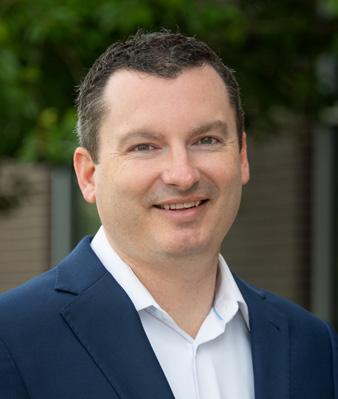
Jason Dodson is an engineering program manager at Benchmark Group recognized for his leadership, technical expertise and ability to drive innovation. Since starting his career at Benchmark as an electrical designer, Dodson has advanced into a key leadership role, where he focuses on delivering efficient, high-quality projects and guiding teams to success. His strong ability to build and maintain relationships both within the organization and with external partners has been instrumental in fostering collaboration and supporting business development. Above all, he is genuine, a collaborative team player, a skilled networker and a dedicated professional committed to the success of his team and clients.
Mike Duley CEO/Founder
The Duley Group
Lyndsey Dumas VP, Education
Arkansas Hospital Association
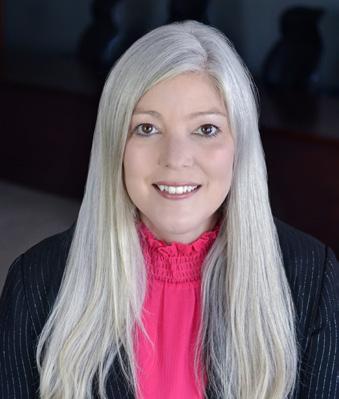
Lyndsey has dedicated 21 years to the Arkansas Hospital Association, serving the past 11 years as Vice President of Education. As a member of AHA’s Senior Leadership Team, she is responsible for planning, coordinating, and delivering educational programs both in-person and virtually, to the Association’s 105 member hospitals and health care organizations. She also serves as the primary administrator for the Association’s membership engagement management system, which facilitates communication and connection with member hospital employees. In addition, Lyndsey oversees AHA’s emergency preparedness initiatives, collaborating closely with the Arkansas Department of Health and various federal and state partners to support readiness efforts. She holds both a bachelor’s degree and a Master of Business Administration from the University of Central Arkansas in Conway. Lyndsey currently serves on the boards of both the Arkansas Society of Association Executives and ACHE of Arkansas. She also serves as the AHA liaison with the Hospital Preparedness Program Regional Leaders coordinated through the Arkansas Department of Health and actively participates on committees for the Allied Association Emergency Readiness Group and Allied Association for Education, both national networks of hospital association representatives. Lyndsey has been recognized with a Service Award from the American College of Healthcare Executives (ACHE).
Jennifer Emerson
Deputy Director/EVP, Operations Arkansas Economic Development Commission
Shining a Spotlight on BRANDE DANIELS
BSN, RN, CEO & Founder of Ageless Aesthetics of Arkansas
Brande has been named a 2025 AMP Achievers in Their Forties! With 18 years of plastic surgery experience using lasers, she brings unmatched expertise to the aesthetics field. Since founding Ageless Aesthetics in 2019, Brande has combined her surgical background and passion for aesthetics to create a luxurious space for advanced facial rejuvenation and wellness. Her dedication to excellence has made her one of Hot Springs’ most sought-after injectors and a true leader in her field.


“Our team of experienced professionals at Ageless understands the unique needs and concerns of each individual. We take pride in providing personalized care and creating a warm and welcoming environment where you can feel completely at ease.”
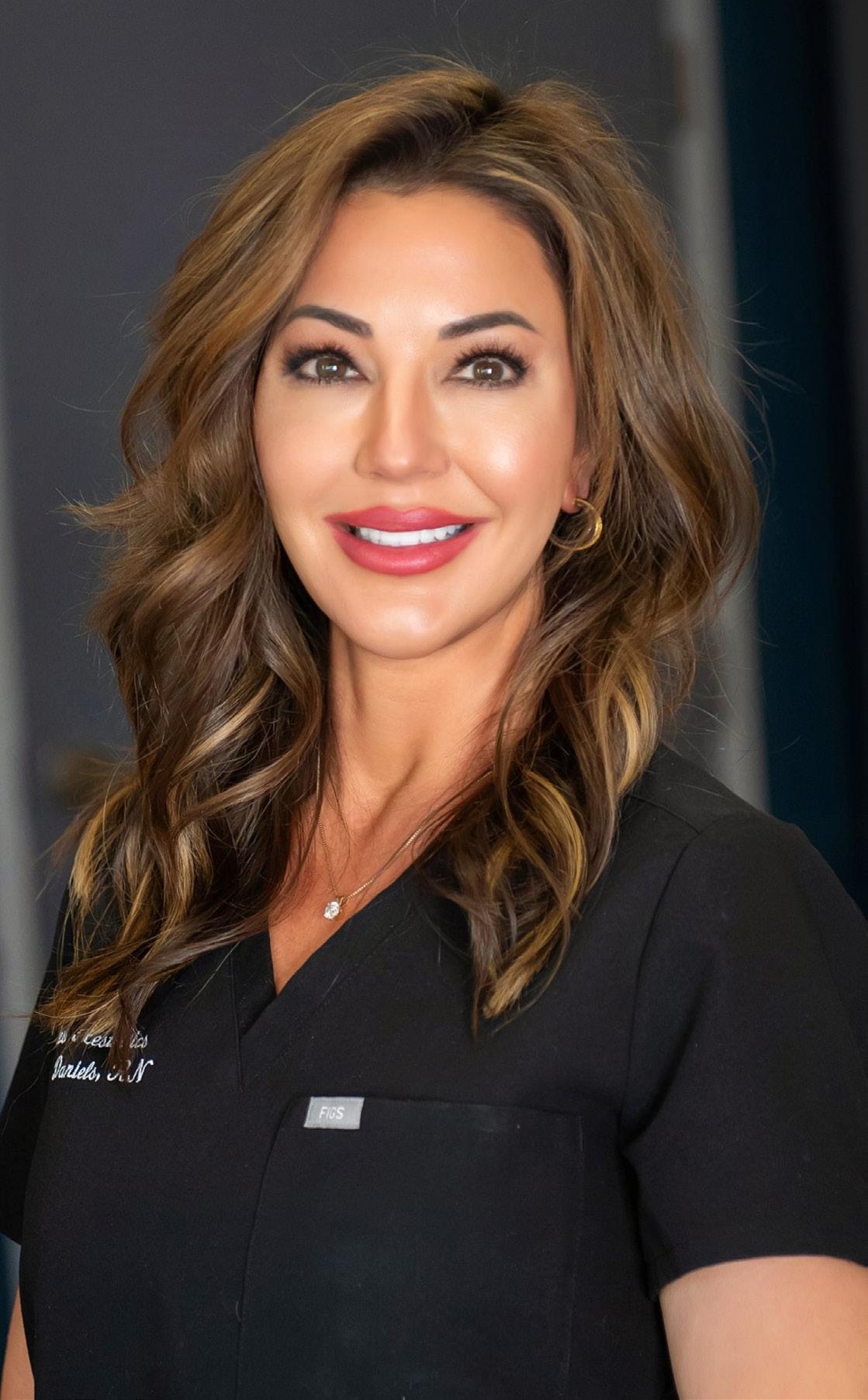
Indulge in our collection of advanced treatments, designed to rejuvenate and refine:
• State-of-the-art laser therapies
• Botox® and Dysport® injectables
• Dermal fillers & Sculptra®
• Silhouette-enhancing thread lifts
• Body contouring solutions
• CoolSculpting® Elite & CoolTone®
• Morpheus8® & radio frequency skin tightening
• Radiance-boosting chemical peels & DiamondGlow® facials
• Ultherapy® for lifted, youthful contours …and so much more.
From front left: Michelle Auld, APRN; Ronda Klatt, RN; Tammy Hughes; Jennifer Shafto, RN; Brande Daniels, RN, CEO; Laney Scroggins; Ashton Toland, RN; Bristen Westbrook and Kandi Garrison, Esthetician

SydneyCommendingGilbert!
Named a 2025 AMP Achiever in their Forties and recognized in 2025 AMP Women in Banking. As a third-generation leader in her family’s financial firm, Sydney carries forward a legacy of service while championing women’s financial management. Her dedication and vision continue to strengthen clients, families, and the community she serves.

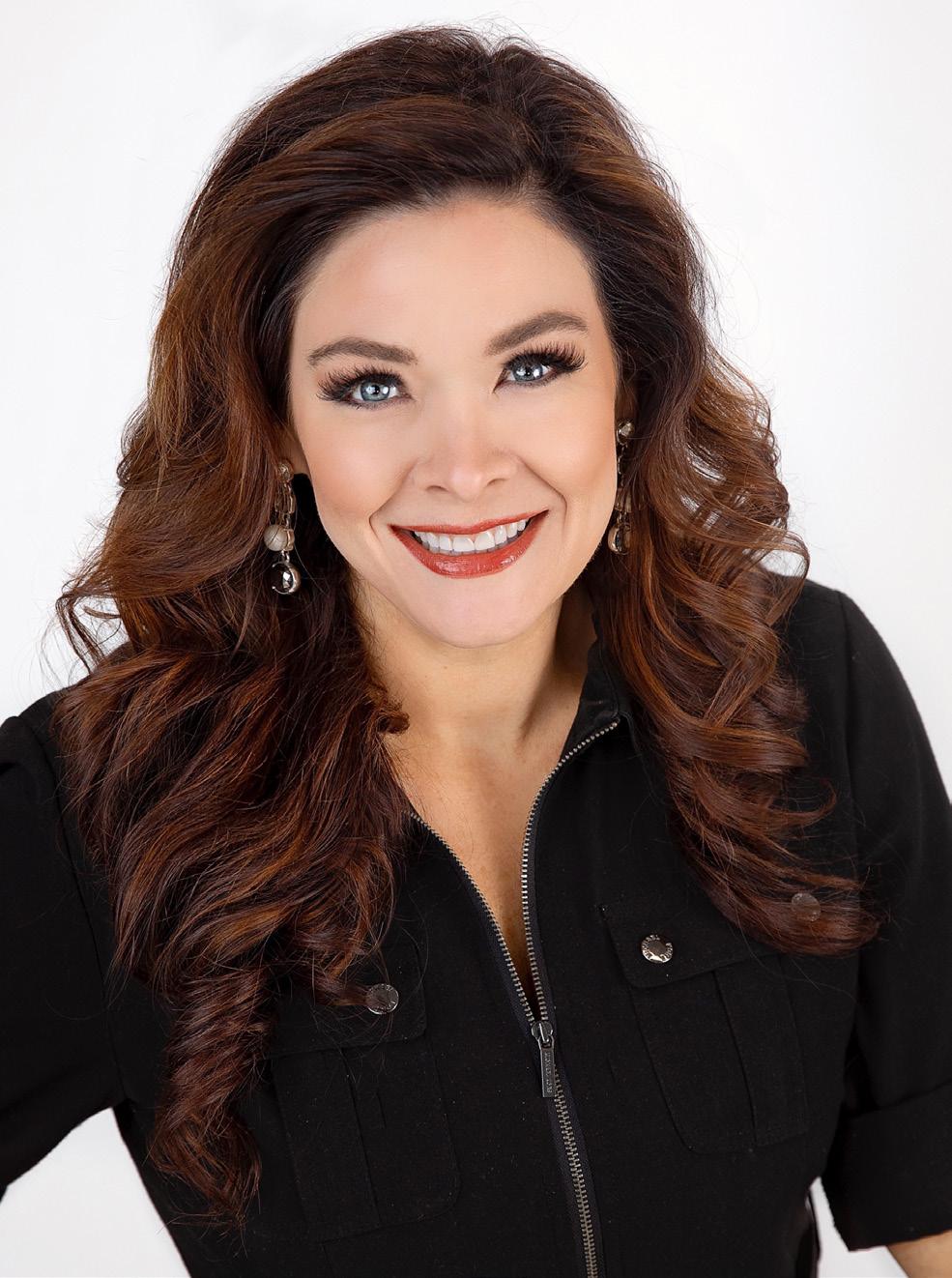
Congratulations to Toni Lindsey on being named an Achiever in Their Forties. Your leadership moves Arkansas forward — and we’re grateful you lead with us.

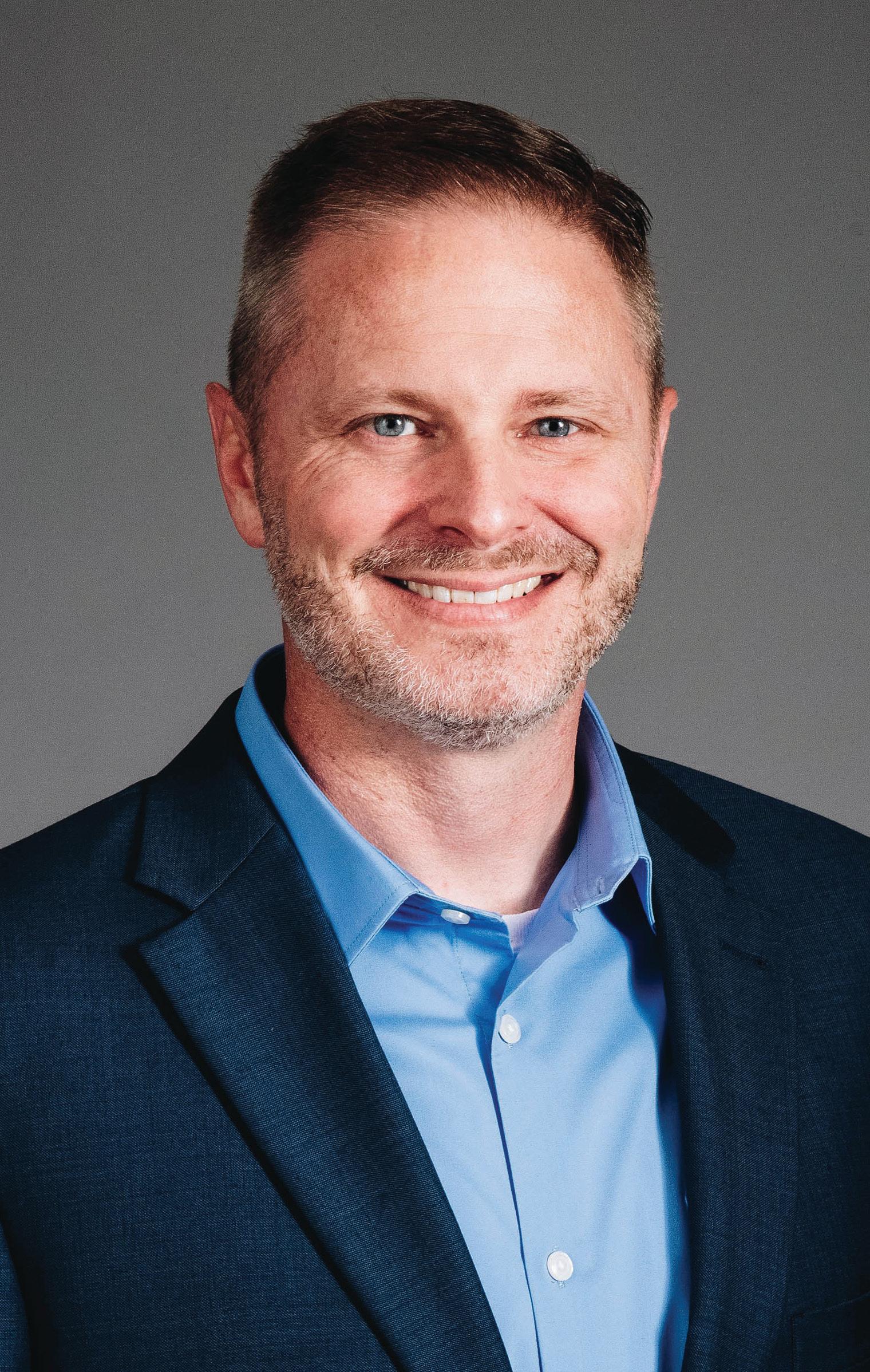

Sean O’Keane
As President and Partner of Garrett Excavating , Sean O’Keane has led the company to new heights since 2020, fostering a culture of excellence that makes Garrett one of Arkansas’s top-performing excavation firms. He’s known for integrity, hard work, and dedication to clients and colleagues. Outside the office, Sean enjoys life in Arkansas with his wife Amanda, their two children, and time outdoors together.

Jessi Forster
Executive Director of Operations
eStem Public Charter Schools
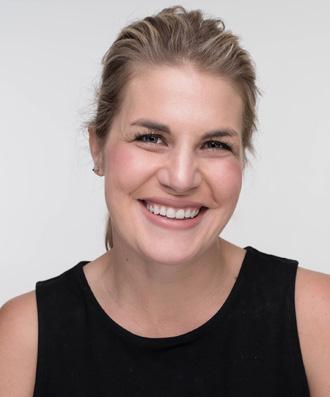
Jessi Forster is executive director of operations at eStem Public Charter Schools in Little Rock, where she has been instrumental in the district’s growth since 2008. Starting as a classroom teacher, she advanced to school director and now executive leader, giving her a unique perspective on both instruction and operations. Known for fostering strong school cultures and developing leadership from within, Forster is skilled at aligning people with roles that maximize their strengths. A graduate of the Arkansas Leadership Academy’s Executive Leadership Empowerment program, she blends strategy and creativity to make work purposeful and enjoyable. Guided by her motto, “People don’t care how much you know until they know how much you care,” she exemplifies people-first leadership.
Jonathan Foster VP/COO
Weaver-Bailey Contractors
Lane Gammel
Director of Communications
Goodwill Industries of Arkansas
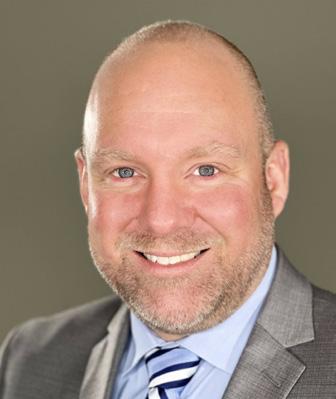
Lane Gammel serves as director of communications at Goodwill Industries of Arkansas, where he leads strategies in marketing, public relations and brand engagement to amplify mission impact. He originally joined Goodwill in 2022 as director of marketing and community engagement before spending the 2023 NFL season as director of communications for the Carolina Panthers. He returned to Goodwill in 2024 to continue advancing the organization’s mission of changing lives through education, training and employment. Before Goodwill, he spent 24 seasons with the Seattle Seahawks, including 12 as director of communications, overseeing public relations, publications and national broadcast partnerships.
Jacob Garrett
Director of External & Legislative Affairs
AT&T
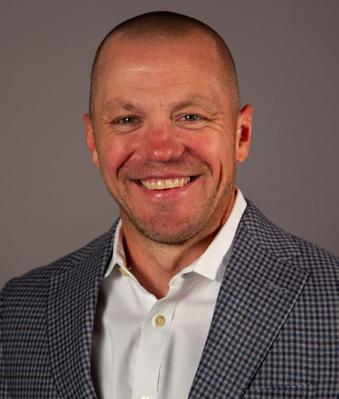
Jonathan Foster began working with Weaver-Bailey Contractors in 2012. He currently serves the company as vice president and chief operations officer. Foster oversees all operations in the field as well as a team of project managers and engineers in the office. While at Weaver-Bailey, he worked as a project manager and estimator before becoming vice president. Prior to Weaver-Bailey, Foster worked at the Arkansas Department of Transporation as a civil engineering intern for two years. He then worked full-time after graduating from Oklahoma State as a pipe foreman, surveyor, estimator and project manager at Harris Co. in Fort Smith. He then went into business as a partner with Foster, Files & Harris for four years before working for Manhattan Road & Bridge as a project manager for more than a year. Foster has been involved with Associated General Contractors of America at the state level, as well as the American Concrete Paving Association. He desires to see competition of pavements in urban areas within Arkansas.
Tina Gabbard
Market VP
Cox Communications/Cox Mobile
Chad Gallagher
Founder
Legacy Consulting
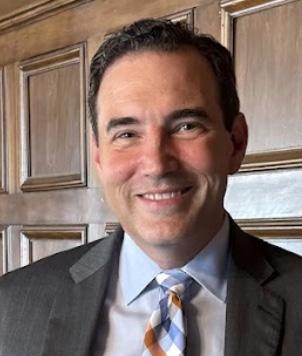
Chad Gallagher is a home-state success story, blending entrepreneurial vision with a love for Arkansas. As founder of Legacy Consulting in Little Rock, he is a premier strategist in public relations and government relations, advising Fortune 500 companies and high-profile clients such as Loretta Lynn and U.S. Ambassador Mike Huckabee. Gallagher has served Huckabee through multiple roles, including political director and presidential campaign advisor. His lobbying and campaign expertise help clients navigate government complexities and political challenges, to achieve policy wins. His ventures embody his Arkansas roots. With his wife, Jessica, he owns Magnolia Meadows, an expansive grass-fed beef ranch in Sevier County serving premium beef to regional markets. Their real estate company restores historic properties for rental investments. His Stilwell’s Restaurant in De Queen, renowned for homemade desserts, is set for expansion into new markets. As church leaders, Chad and Jessica founded Legacy Academy, a thriving Christian school in southwest Arkansas.
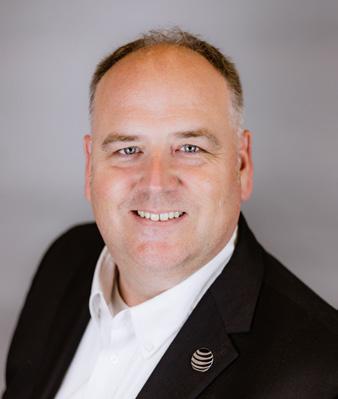
Jacob Garrett is a third-generation AT&T employee with more than 25 years of experience in the telecommunications industry. Throughout his career, he has had key roles in various areas, including retail, billing, network, innovation, national staff, and external and legislative affairs. He currently serves as director of external and legislative affairs for Arkansas at AT&T. He is a graduate of Arkansas Tech University in Russellville. Garrett has earned several internal and external awards recognizing both his innovative leadership and his dedication to volunteer service. He is a past chair of ARKUPS and a proud graduate of Leadership Arkansas Class XIX. Garrett serves on the boards of Big Brothers Big Sisters of Central Arkansas, the Sherwood Chamber of Commerce, the Academies of Central Arkansas Foundation, the Arkansas Tech University Professional Studies Advisory and the Vilonia School Board.
Jennifer Gerber
Film Program Director
Low Key Arts
Amber Glaze Owner
GLĀZD House of Entertainment
Clay Gordon President
Kinco Constructors
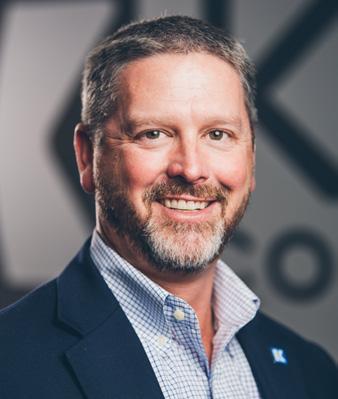
Clay Gordon has more than 25 years of industry experience and served as vice president of Kinco Constructors for eight years before being named president in 2023. He leads the company’s strategic planning and implementation as well as project acquisition efforts, but his relationship with clients does not end there. He regularly works with clients and team members from preconstruction to completion and beyond, ensuring that all expectations meet or exceed the Kinco mission.
Gordon also supports team members in developing their skills and abilities so everyone can continuously improve on an already strong foundation. He graduated from the University of Arkansas at Little Rock with a Bachelor of Science in construction management and has career experiences in roles as a laborer, estimator, project manager, business development and vice president.






Conway Regional congratulates orthopedic surgeon for being named a Arkansas Money & Politics’ 2025 ACHIEVER IN THEIR FORTIES
JAY HOWELL,
MD



Conway Regional congratulates
JESSICA DEWBERRY Director of for one of Arkansas Money & Politics’ 2025 ACHIEVER IN THEIR FORTIES
JESSICA DEWBERRY
JESSICA DEWBERRY
Conway Regional congratulates Director of Therapy Services for being named one of Arkansas Money & Politics’ 2025 ACHIEVER IN THEIR FORTIES
Director of Therapy Services for being named one of Arkansas Money & Politics’ 2025
ACHIEVER IN THEIR FORTIES
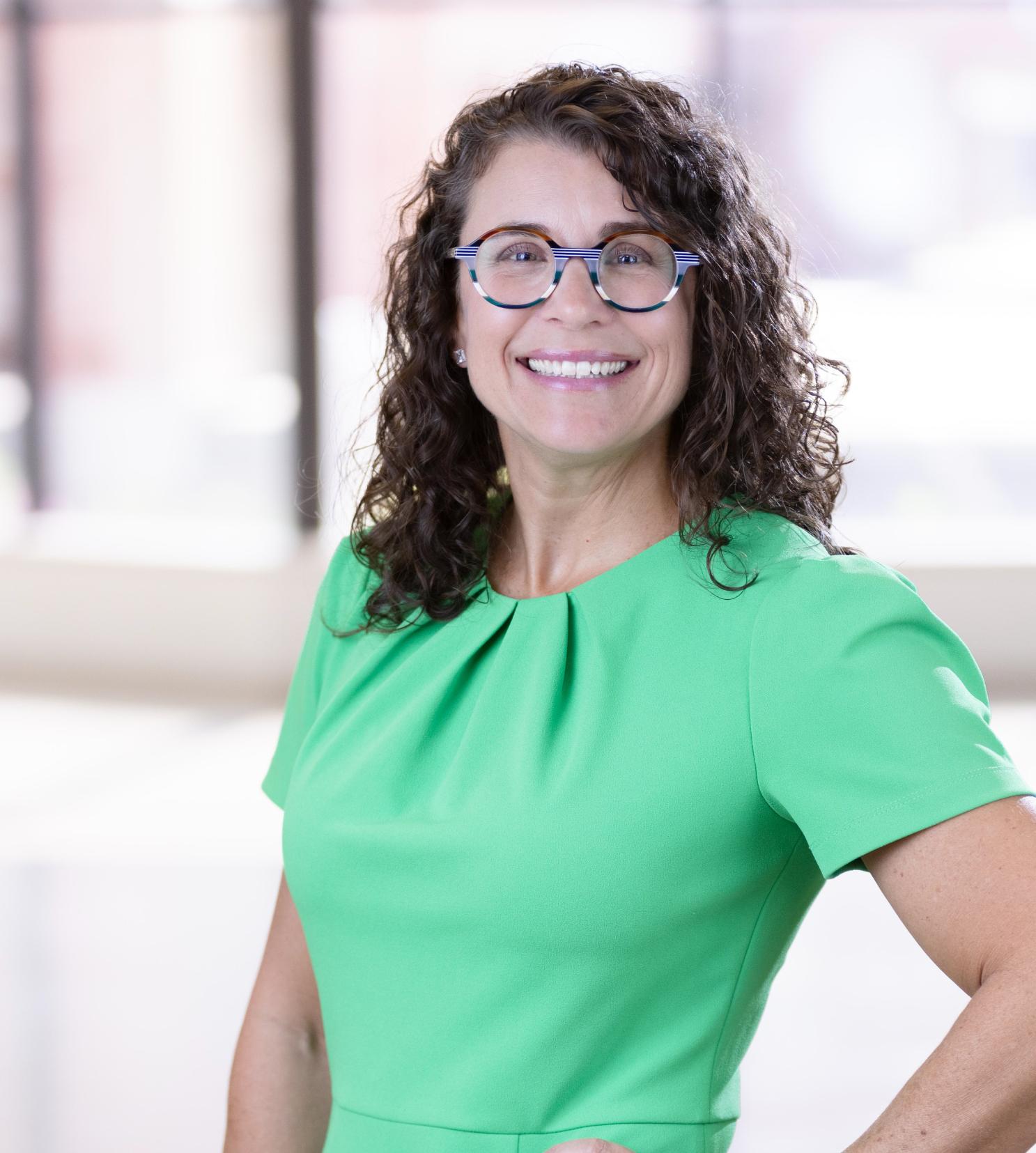


ACHIEVERS

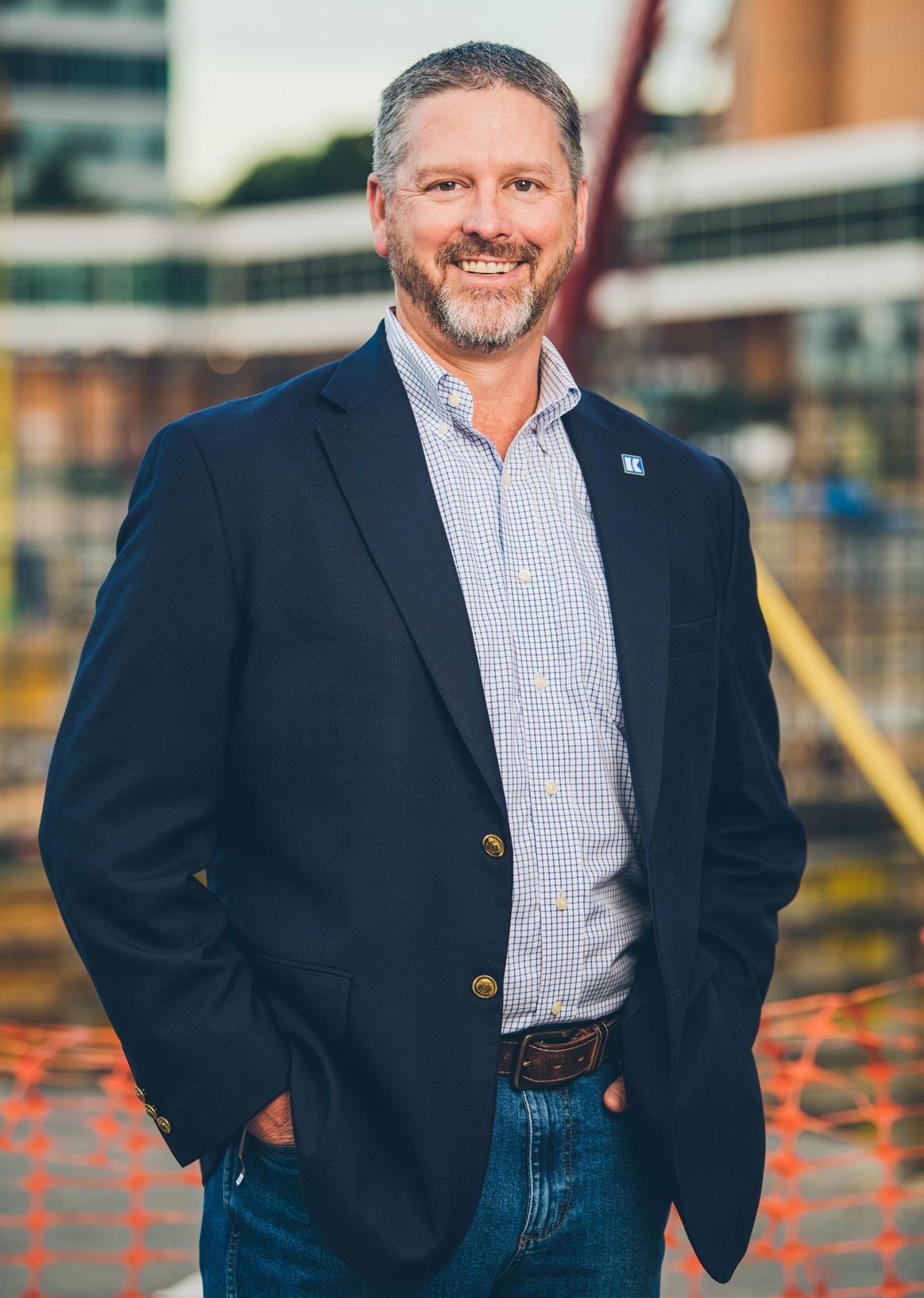
Clay Gordon, President
Kinco, established in 1973, has grown to be one of the state’s leading construction companies. Kinco’s mission is to be the constructor of choice in its market, providing the most value for clients, team members and industry partners.
12600 Lawson Road, Little Rock | 3803 Kelley Ave., Springdale 501-225-7606 479-751-8606
With more than 25 years of experience, Clay Gordon has become a respected leader both at Kinco Constructors and among his peers in the Arkansas construction industry. Gordon was named president in 2023 after eight years serving as vice president of the general contracting and construction management firm. He leads the development and implementation of Kinco’s strategic plan, project acquisition efforts, business development and project executive roles, along with helping manage other aspects of the business. Gordon regularly works with clients and team members throughout the project timeline, from preconstruction to completion and beyond, ensuring that all expectations meet or exceed the Kinco mission.
Gordon has experience across a number of construction roles at every level, from laborer and estimator to project manager and business development posts. That background gives him the firsthand knowledge he needs to lead with confidence and support team members as they grow in their own abilities. He demonstrated his leadership potential and skill even while completing his bachelor’s degree in construction management at the University of Arkansas at Little Rock, where he earned the program’s Excellence in Student Leadership Award and graduated with cum laude honors.
Active in bettering his profession and his community, Gordon currently chairs the Arkansas chapter of Associated General Contractors of America, previously chaired the UA Little Rock Construction Management Advisory Program and is a member of the UA Little Rock Engineering Information Technology College Leadership Council. He has completed both the Faulkner County Leadership and Leadership Arkansas programs, in addition to the Associated General Contractors of America Advanced Management Program. Gordon is also on the board of the Arkansas State Chamber/Associated Industries of Arkansas, the Methodist Family Health Foundation, and he is a trustee of First United Methodist of Conway.




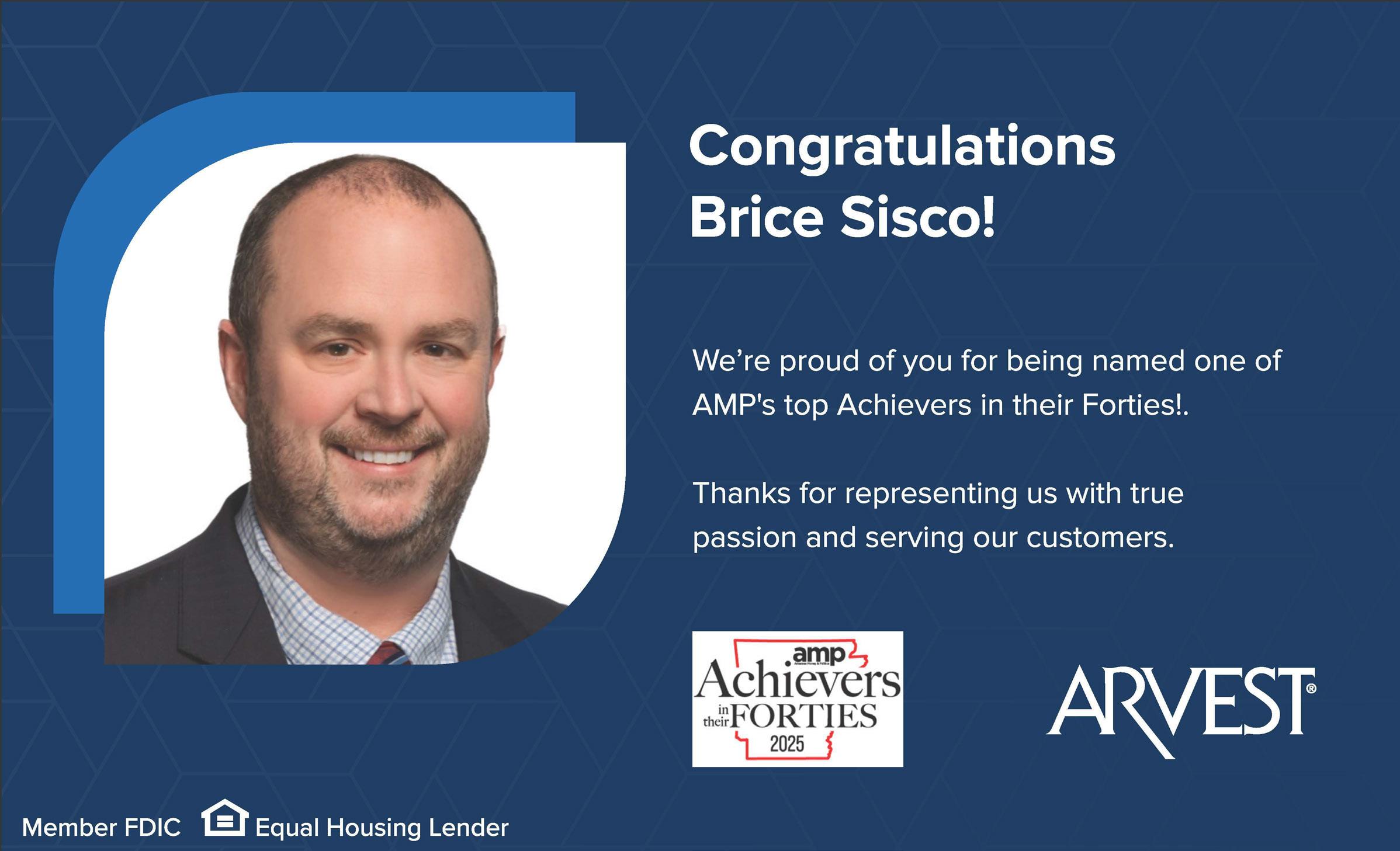


Congratulations!
Arkansas Money & Politics Achievers Award Recipient 2025

Reaching a high level of success in one’s forties is both rewarding and impactful. It brings accomplishment, influence, and the chance to inspire future leaders. Arkansas Money & Politics is proud to recognize business professionals who have reached this milestone—celebrating their achievements while motivating others on their career journey
Brandon Gorman CFO
Arkansas Rural Health Partnership


Brandon Gorman is a certified public accountant with a Bachelor of Business Administration in accounting and a proven track record of strengthening the financial health of rural health care organizations. Since 2019, he has served as chief financial officer at the Arkansas Rural Health Partnership, where he oversees cash flow management, budgeting, expenditure approvals and financial reporting to the board of directors. He also provides financial management of grant funding and works with the CEO to ensure fiscal responsibility. In addition to his core duties, Brandon provides financial consulting to ARHP member facilities, helping them develop stronger internal key performance indicators, tighten financial controls, identify revenue growth opportunities and reduce costs.
Jessica Gray
VP, Corporate Business Development
Signature Bank of Arkansas

Jessica Gray is vice president of corporate business development at Signature Bank. She is a native of Fayetteville and a graduate of the University of Arkansas. Gray is passionate about giving back to her community and supports several nonprofits. She serves on the boards of directors for Peace at Home, Theater Squared Corporate Council, Fayetteville Public Library Foundation and Arkansas Advocates for Children and Families Committee. She is a Leadership Arkansas and Leadership Fayetteville alum.
Traci Hampton
Director of Marketing & Administrative Services
Highlands Oncology
Alex Harper
GIS Manager
Central Arkansas Water
Michal D. Harris
Founder
Ikarus Youth Outreach
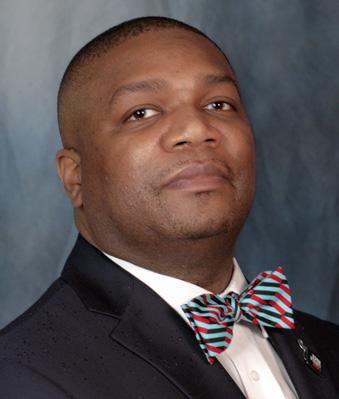
Michal D. Harris is an accomplished nonprofit executive with a longstanding commitment to youth empowerment. In his role as executive director of the Ikarus Youth Outreach Program, he advances the organization’s mission to “train our leaders of tomorrow for their role in society.” He oversees programs that support adolescents ages 7 to 17 in achieving academic success, engaging in community service, developing leadership skills, promoting cultural competence, and enhancing both health and financial literacy. Under Harris’ direction, Ikarus emphasizes achieving 100 percent high school graduation and postsecondary acceptance rates and extends opportunities such as internships and scholarships to enhance career preparedness. The program’s initiatives include signature events such as the annual Thanksgiving and Santa’s Family Give Back programs. Harris also leads Break the Silence, a public forum that addresses pressing topics such as opioid abuse, suicide prevention and domestic violence, providing critical space for community dialogue and healing.
Allison Hestand
Director of Economic Development/CEO
Paragould Regional Chamber of Commerce
Karen Hicks
VP, Membership & Events
El Dorado-Union County Chamber of Commerce
Kelly Hines
Co-Owner
Hines Homes
Erin Holliday
City Director
City of Hot Springs
Dr. Jay Howell
Orthopedic Surgeon
Conway Orthopedic & Sports Medicine Center
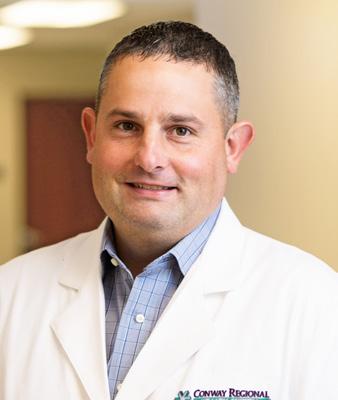
Dr. Jay Howell is an orthopedic surgeon at Conway Orthopedic & Sports Medicine Center with a practice focused on hand and upper extremity care. In practice since 2011, Howell completed a fellowship in hand and upper extremity surgery at the University of Alabama School of Medicine in Birmingham. He earned his medical degree from the University of Arkansas for Medical Sciences in Little Rock and completed a five-year orthopedic residency at Hamot Medical Center in Erie, Pennsylvania, before returning to Arkansas to care for patients in his community.
Eric Howerton
Co-founder/CGO AdFury.ai
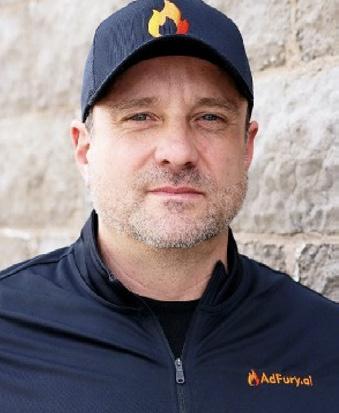
Eric Howerton is the co-founder and chief growth officer at AdFury.ai. The company is a retail and tech company based in northwest Arkansas. He is also the owner of Doing Business in Bentonville and podcastvideos. com. He previously co-founded WhyteSpyder, a digital shopper agency, which was acquired by London-based Essential in 2021. He has more than 25 years of experience in marketing, technology and digital strategy and continues to build platforms for retail.
Loren Marshall Ipsen Founder
Ipsen
Advisor Group

Loren Marshall Ipsen is a Certified Financial Planner and founder of Ipsen Advisor Group. With more than 20 years of experience in investment planning, wealth management, retirement strategies and risk management, he helps individuals, families and business owners pursue long-term financial security. He simplifies complex financial concepts so clients feel informed and offers strategies that balance growth with protection. His client-first approach emphasizes professionalism, trust and ongoing collaboration to ensure plans adapt as life and markets change. Beyond managing assets, he strives to provide clarity, direction and peace of mind through every stage of life. Whether planning for retirement, funding education or navigating life transitions, Ipsen provides the guidance and support needed for clients to move forward with confidence.
Paul James President Advanced Electrical Supply
Jennifer Jones Founder Stilo
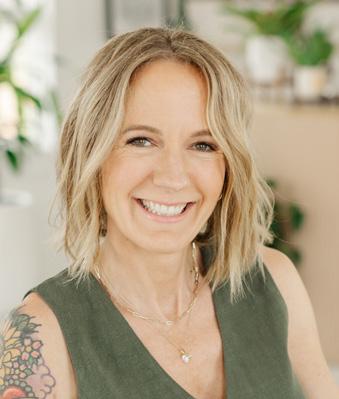
The founder of Stilo, a holistic hair, head spa and wellness center in Little Rock, Jennifer Jones is elevating hair care into a full-body wellness experience. A master hair stylist, scalp specialist and integrated health practitioner, Jones learned about the damage that can be done by toxins frequently found in beauty products after experiencing her own health challenges. Understanding the harm that chemicals in hair care and coloring products can do to the body, scalp and hair, Jones made the switch to organic, low-tox products. Jones founded Stilo to pro-

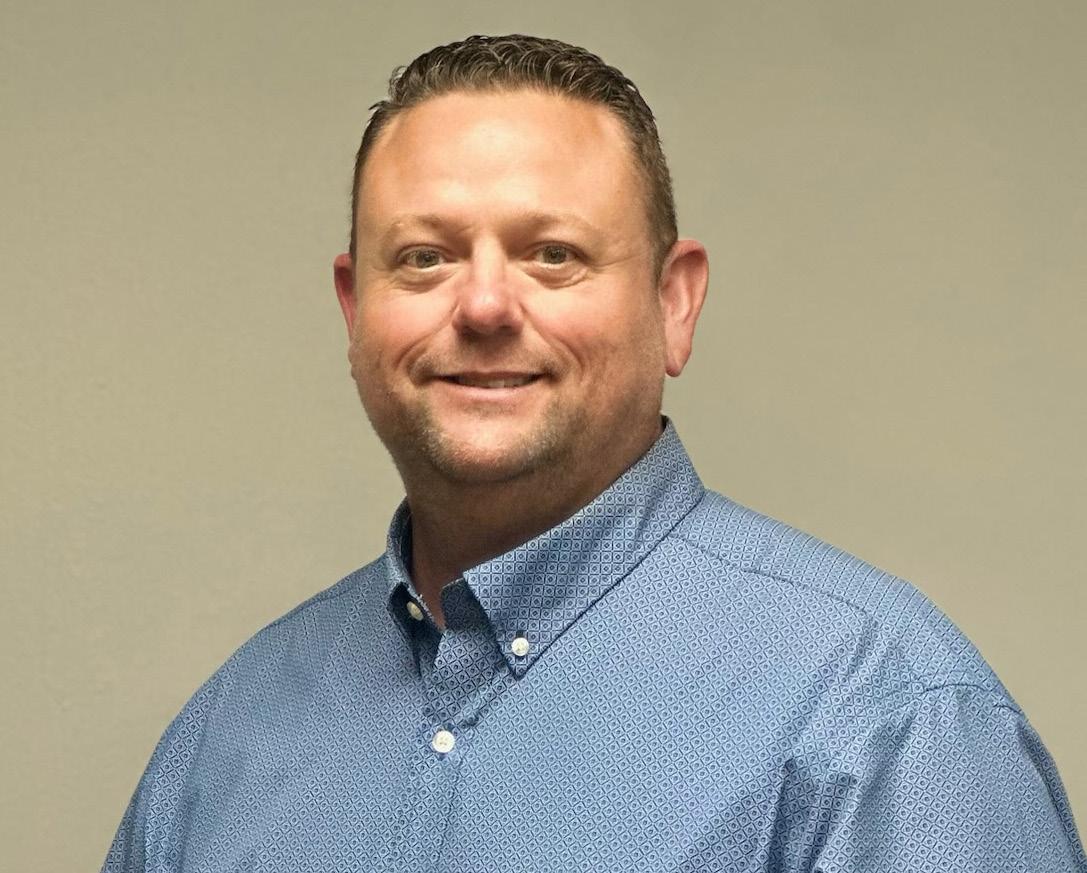
CONGRATULATIONS MATT COLEMAN


vide a new kind of salon and head spa experience that leaves clients feeling totally rejuvenated. Microscopic scalp analysis, guided breathwork and stretching, purifying shampoo rituals, and organic hair color sessions all work together to ease daily stress and support physical, mental and spiritual wellness.
Korey Keith Chair
Bodcaw Bank
Toni Lindsey
Director of Governmental Affairs
Arkansas State Chamber of Commerce/ Associated Industries of Arkansas

Tina Miles
CFO/Principal
Cushman & Wakefield | Sage Partners
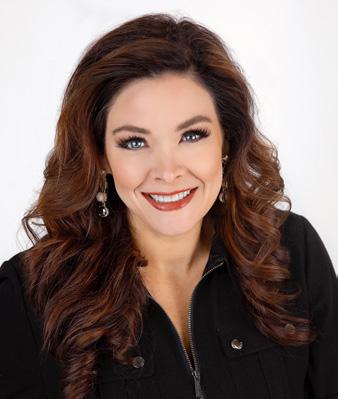
Toni Lindsey serves as the director of governmental affairs for the Arkansas State Chamber of Commerce/Associated Industries of Arkansas and the program director for Leadership Arkansas. She is responsible for fostering community relations with local chambers/chamber members and elected officials in northwest Arkansas, while representing the positions of the State Chamber/AIA before entities that include the following: committees, boards, various state agencies, the governor’s office and the legislature. She previously worked at the athletic department at the University of Arkansas in Fayetteville for nearly 17 years as director of special events, television show coordinator for the head football and basketball coaches’ shows and in several other capacities. She earned a Bachelor of Arts degree in political science and communication from the University of Arkansas in 2000 and has completed coursework for a master’s degree in communication from the UA.
Stefanie Lyles
Producing Branch Manager
The Lyles Team/Sente Mortgage

Stefanie Lyles has dedicated her career to helping Arkansans achieve homeownership since 2000. As a producing branch manager, she has built a thriving team of nine professionals and consistently ranks among the top mortgage producers in the state of Arkansas. Her leadership philosophy centers on collaboration and team building, fostering an environment where both colleagues and clients succeed. With nearly 25 years of industry expertise, Lyles has developed a reputation for guiding clients through the complexities of mortgage lending with clarity and a practical, common-sense approach. She views homeownership as more than a financial milestone — it is a key to long-term stability and wealth-building, and she is committed to making that opportunity accessible to families across the state. Beyond her professional success, Lyles has contributed her time and leadership to organizations such as Lonoke County Safe Haven and Court Appointed Special Advocates, supporting survivors of domestic violence and advocating for children in foster care. Her career and community service reflect a shared purpose of empowering others to build stronger futures.
James Meyer
Partner
TAGGART Architects

Tina Miles is chief financial officer and principal at Cushman & Wakefield | Sage Partners, bringing more than 25 years of experience in accounting across private business, the service industry, manufacturing and nonprofit sectors. She joined the company in 2016, building on a career that includes three years as an auditor for Schneider Downs, the largest regional firm in Pittsburgh, and 10 years as CFO at BioBased Technologies. She has a Bachelor of Science in Business Administration in accounting from Robert Morris University in Pittsburgh, where she graduated cum laude. Her financial leadership drives the company’s success and strategic growth.
Justin Mitchell Co-founder Ferndale Market
Marshall Moon
Principal
Meridian Investment Advisors
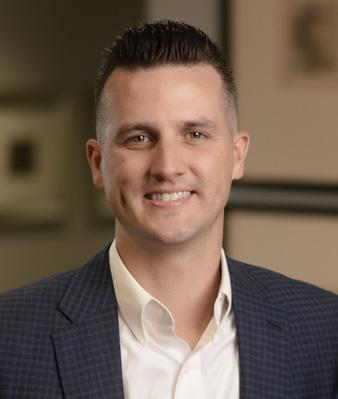
Since joining the firm in 2015, Marshall Moon has served as senior investment advisor and chief equity strategist. Marshall earned his finance degree from the University of Central Arkansas and became a Certified Financial Planner in 2020. In January 2025, he became a named partner. As principal, he leads investment strategy, oversees equity research and remains a trusted advisor to clients. He is passionate about helping people feel confident in their financial futures and takes pride in offering open-minded, personalized guidance. Moon understands that every financial journey is unique — and he is committed to helping clients pursue their goals with clarity and purpose.
Wes Nickels
Chief of Staff/Instructor/Program Manager Forge Institute
Sean O’Keane
President/Partner
Garrett Excavating
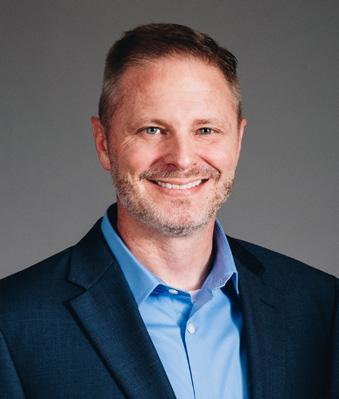
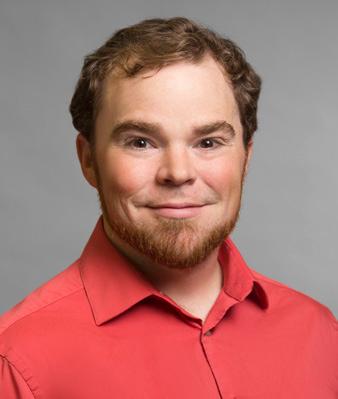
Since joining TAGGART Architects in 2016, James Meyer has made a lasting impact on both the firm and the community, ultimately stepping into his role as partner. His portfolio spans award-winning projects in urban design, higher education, hospitality and world-class office buildings, reflecting both versatility and vision. Beyond practice, he has been a dedicated advocate for the profession through service with the American Institute of Architects at local, state, regional, and national levels. As a founding member and past chairman of studioMAIN in Little Rock, he champions design outreach and communitycentered work that enriches culture and civic life. Away from the office, he enjoys weekends with his wife and two children balancing professional dedication with family life
Sean O’Keane serves as president and partner at Garrett Excavating, joining the company in 2020 and bringing extensive leadership experience and strategic vision. In recent years, Garrett Excavating has continued to grow as one of Arkansas’s top-performing excavation companies. O’Keane fosters a culture of excellence, empowering team members to thrive and contribute to the company’s success. He earned his Bachelor of Business Administration in business and finance from James Madison University in Virginia and has been recognized by local publications. Outside of work, he enjoys spending time with his wife, Amanda, their two children, golfing with his son, and training their golden retriever with his daughter.
Sydney O’Quin-Gilbert
Financial Advisor
Sagebridge Wealth Management
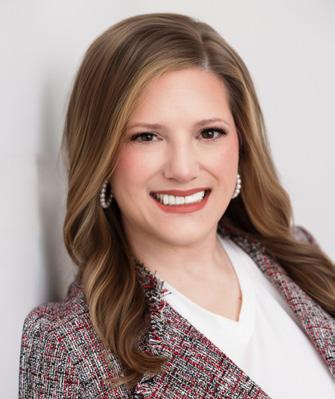
Sydney O’Quin-Gilbert of Sagebridge Wealth Management in Little Rock is a third-generation financial advisor, joining her father, Roger Louis O’Quin, in his practice in 2005. She works with women decision-makers and the next generation of investors. Gilbert finds many women do not feel they know enough about their financial situation, and for her, it is rewarding to provide educational and supportive advice to other women, especially during times of transition. She is married to Luke, the family and young adult minister at St. Mark’s Episcopal Church in Little Rock.

TINA MILES
Cushman & Wakefield | Sage Partners, CFO, Principal


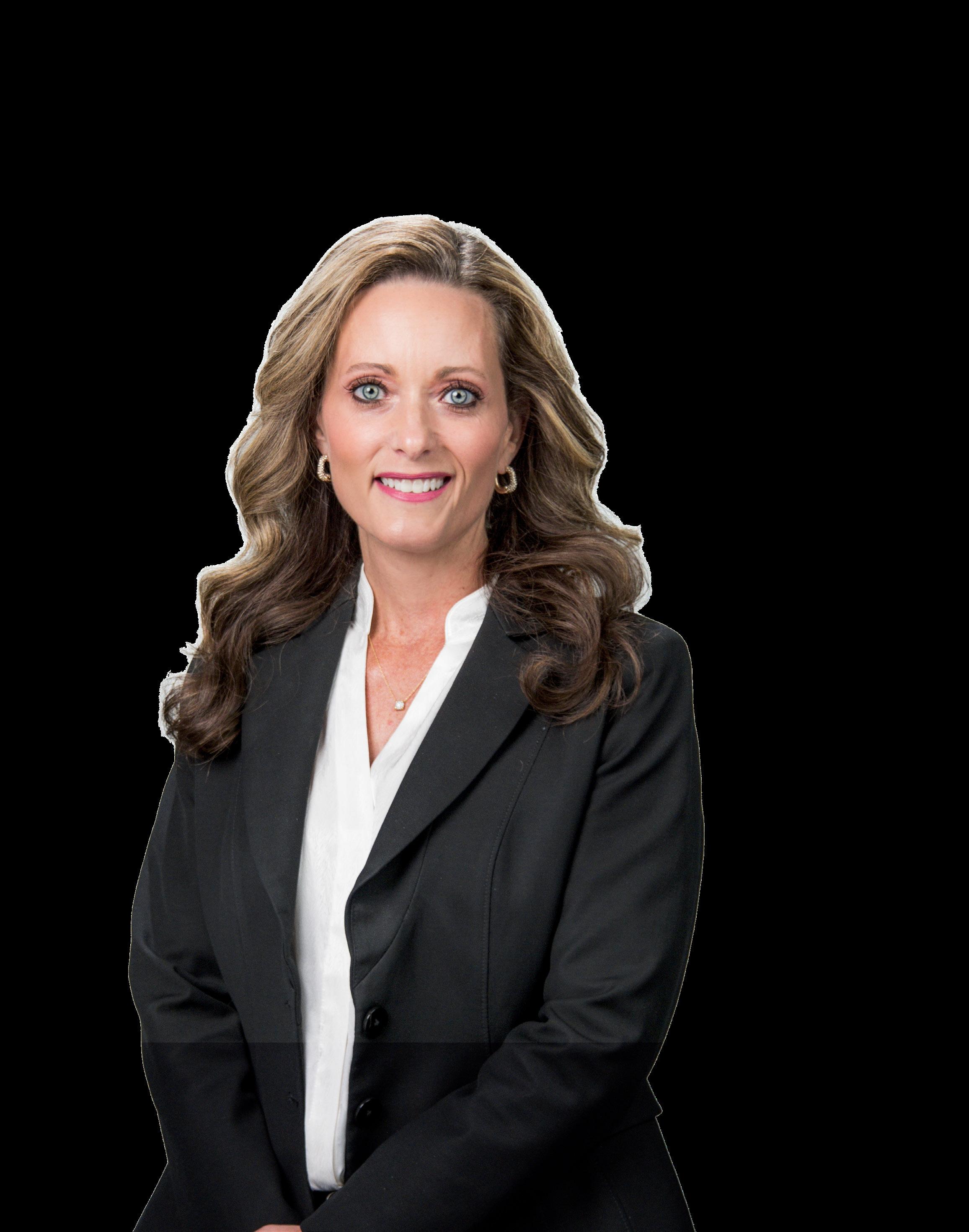
Kelly Phillips
Shareholder/Tax Department Leader
Bell & Co.

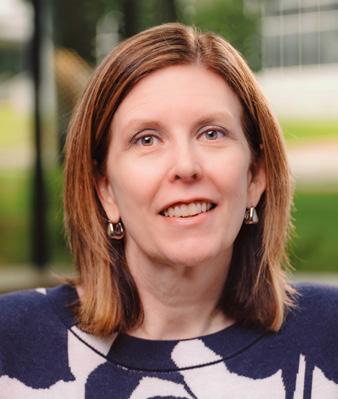
Kelly Phillips is a shareholder and leader of the tax department at Bell & Co., a top-500 accounting firm headquartered in North Little Rock. Since joining the firm in 2009, she has become known for her technical expertise, client-focused approach and commitment to developing staff. Phillips plays a key role in driving the firm’s growth and is recognized as one of the first of the next generation of shareholders shaping Bell & Co.’s future. Her leadership emphasizes collaboration, client service and innovation, ensuring the firm continues its more than 40-year tradition of delivering trusted accounting and advisory services across Arkansas and beyond.
Lynette Pierce
Clinical Liason
Encompass Health
Ashley Pifer
Director of Water and Wastewater Halff Engineering
Rachel Pilgrim Scholarship Coordinator NorthWest Arkansas Community College Foundation
Misty Morse Poole
Co-owner
Steamatic of Arkansas
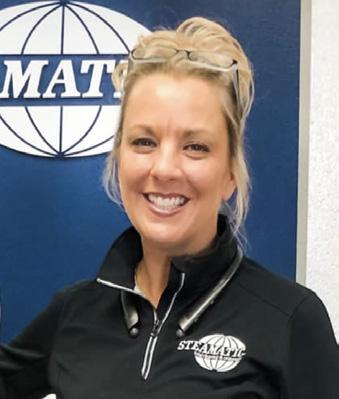
Misty Morse Poole, co-owner of Steamatic of Arkansas, has built a legacy of service and integrity. After earning a psychology degree, she helped rebrand her family’s Razorback Vacuum into Steamatic in 2001, broadening its scope to air duct cleaning, water and fire restoration and mold remediation. Her leadership, marked by strategic vision and empathy, embodies the motto, “We treat your family like our family.” Her community outreach led to Steamatic earning the Small Business of the Year award from the Greater Hot Springs Chamber of Commerce. Guiding a team of 27, including Timber, the cherished office dog, her blend of emotional intelligence and strategic insight distinguishes her in both business and community spheres, creating a lasting impact.
Susan Erwin Prowse
Co-owner
Big Red Dog Productions
Susan Erwin Prowse is a touring artist, entrepreneur and co-owner of Big Red Dog Productions, the umbrella company for her international country duo
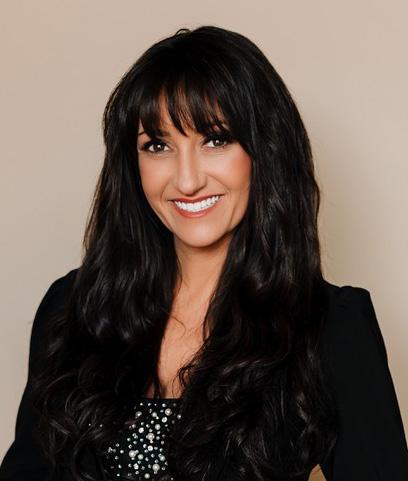
Cliff & Susan, event and festival production, marketing services and artist education through the Entertainers Academy. Performing more than 200 shows annually, Cliff & Susan have charted Top 40 on the Apple Country Albums chart and were named 2025 Arkansas Country Music Awards Entertainer of the Year. Susan is also the founder of Piano Ladies, a global nonprofit sisterhood supporting women in piano entertainment.
Stephanie Quillen
CPO
7 Brew
Billy Ray
Senior Human Resources Director
Arkansas Foodbank
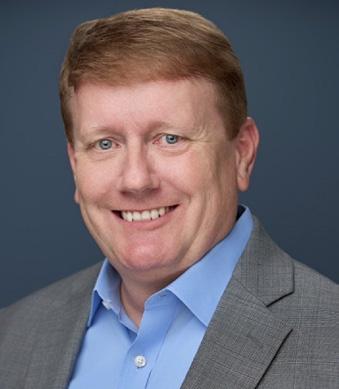
Billy Ray is senior human resources director at Arkansas Foodbank in Little Rock. After receiving his education at Phillips Community College of the University of Arkansas in Helena and, later, Arkansas State University in Jonesboro, Ray worked in marketing and HR for Mississippi casinos before being hired as HR manager for Saracen Casino Resort in Pine Bluff, where he was later promoted to director of HR administration. Ray joined the team at Arkansas Foodbank to help fight hunger insecurity for fellow Arkansans in the organization’s 33-county footprint. In his current role, Ray oversees all HR initiatives and operations for a workforce of more than 80 mission-driven, dedicated employees. Ray has a professional certification as a Senior Professional in Human Resources, is a graduate of the Arkansas State Chamber of Commerce’s Leadership Arkansas program as a member of Class XVII, for which he was selected as Class Representative, is a graduate of Little Rock field office’s FBI Citizens Academy and serves as vice president of its Alumni Association Board, and currently serves as president of the Keep Arkansas Beautiful Foundation.
Kymberlie Reed
Private Wealth Advisor
Small Wealth Management
Kymberlie Reed, a Chartered Retirement Planning
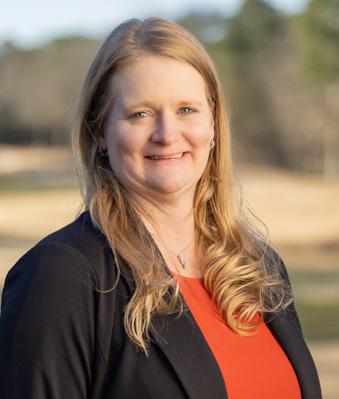
Counselor, Accredited Portfolio Management Advisor, Certified Military Financial Advisor and Accredited Wealth Management Advisor who has a Master of Science and a Certification for Long-Term Care and completed her Master Planner Advanced Studies, is a private wealth advisor at Small Wealth Management, where she brings a wealth of knowledge and an advanced skill set to client planning. With multiple professional designations and a master’s degree in financial services, she offers specialized expertise in retirement planning, estate strategies, risk management and multigenerational wealth planning. She is deeply committed to helping clients navigate the complexities of financial decision-making with confidence and clarity. Her approach combines technical precision with a strong focus on client relationships, ensuring strategies are as personal as they are effective.
Dr. Kirk Reynolds
President OrthoArkansas
Casey Rockwell
Assistant Professor Marketing and Advertising University of Arkansas at Little Rock
Cole Rodgers
Founder/CEO School of Man
Leslie Rutledge
Lieutenant Governor State of Arkansas
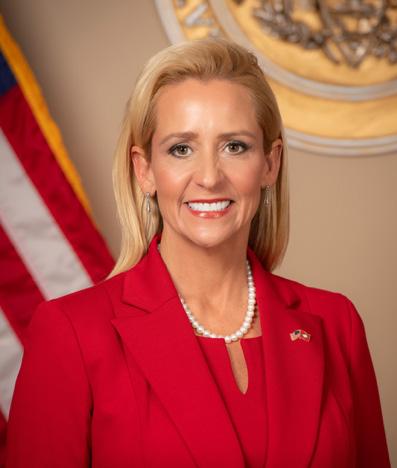
Leslie Rutledge became Arkansas’ 21st lieutenant governor in 2023 and is the first woman to hold the office. She was also the first woman and first Republican to serve as state attorney general, an office she held from 2015 to 2023. Together, Rutledge and Gov. Sarah Huckabee Sanders are the first independently elected women to serve together as governor and lieutenant governor of a state in U.S. history. A seventh-generation Arkansan, she grew up on a cattle farm in Independence County and graduated from the University of Arkansas in Fayetteville and University of Arkansas at Little Rock William H. Bowen School of Law. She has served as legal counsel to former Gov. Mike Huckabee.

• Carpet Cleaning Experts
• Air Duct Cleaning
• Hard Surface Floor Cleaning
Misty Poole,
A 2025 AMP ACHIEVER IN THEIR FORTIES!
As co-owner of Steamatic of Arkansas, Misty carries forward her family’s legacy of excellence in cleaning and restoration. From emergency fire and water recovery to state-of-the-art rug and floor care, she leads with dedication, innovation, and a commitment to serving Arkansas families when they need it most.
• Rug Cleaning Specialists
• Furniture Cleaning Services
• Restoration Services


Eric Scroggins
Manager
Roto-Rooter
Rocklin Senavinin
President/Co-founder
Fiduciary Wealth Management
Kevin Simpson
VP, Lending/Branch Manager
AgHeritage Farm Credit Services

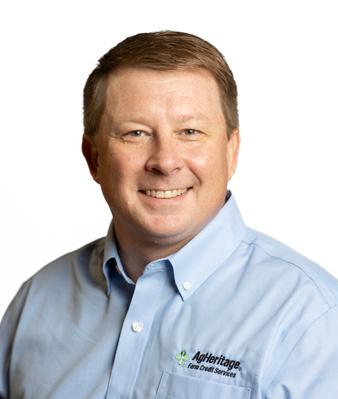
Kevin Simpson joined AgHeritage Farm Credit Services in 2007 as a lender at the Brinkley branch. In 2018, he was promoted to vice president of lending and branch manager. He is passionate about agriculture and rural Arkansas, and he enjoys assisting AgHeritage’s customer-owners with their financing needs. In his spare time, he enjoys the outdoors, golf and watching his girls compete in horse shows.
Brice Sisco
Sales Manager
Arvest Bank Mortgage Division
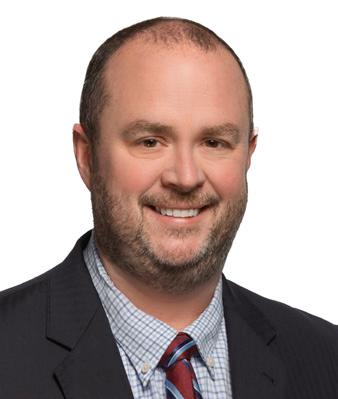
Brice Sisco is an accomplished sales manager at Arvest Central Arkansas. He brings more than 23 years of extensive experience in the financial industry, with 18 years in management roles. His career journey has taken him through various esteemed financial institutions, including Bank of America and Merril Lynch, before he joined Arvest Bank in 2015 as a private banking manager. He later expanded his leadership responsibilities to oversee mortgage and private banking at Arvest Central Arkansas. He graduated with a degree in business administration management from the University of Arkansas at Little Rock. In 2024, he furthered his education by completing the Graduate School of Banking program at Louisiana State University. Brice actively contributes to his community as a board member of the Women’s Foundation and the University of Arkansas at Little Rock School of Business.
Blake Smith
CFO
Birch Tree Communities
Tsanko Stoev
Director of Data and Application Architecture
USAble Life
Randi Strode
Director of Financial Planning and Analysis
Lexicon
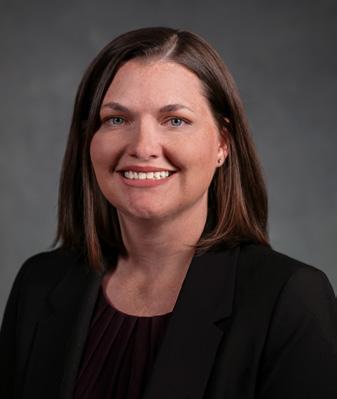
Randi Strode is the director of financial planning and analysis at Lexicon. For that role, Strode oversees Lexicon’s financial planning function, including budgeting, forecasting and financial modeling, providing strategic insights to support business objectives and ensure operational excellence. Prior to joining Lexicon, Strode served for 20 years in financial leadership positions for Vestcom, an Avery Dennison company. Over her two decades at Vestcom, Strode held several positions, including director of accounting, revenue and project management office and director of financial planning and analysis. Her extensive experience in contract management and financial reporting will position her to significantly contribute to Lexicon’s strategic growth initiatives.
Ashley Thompson
Executive Director
Ouachita Children, Youth & Family Services

Ashley Thompson is the executive director for Ouachita Children, Youth, & Family Services, an organization that dates back to the late 1800s. OCYFS provides emergency shelter, prevention education and supportive services for runaway, homeless, abused and at-risk youth, as well as victims of domestic violence and those experiencing or at risk of experiencing homelessness. Through programs like the Ouachita Children’s Center, Ouachita Youth Center, Ouachita Family Center, Homelessness Prevention Programs and community outreach efforts, OCYFS empowers individuals with the tools they need to build safer, more stable futures.
Rich Thompson
Athletic Director
National Park College

Rich Thompson, Olympian, is a former professional baseball player and current athletic director at National Park College in Hot Springs. A 15-year professional athlete, he earned an Olympic Silver Medal with Team Australia in 2004, was an MLB Postseason All-Star in 2011, and played with the Los Angeles Angels, Oakland Athletics and Toronto Blue Jays. Since transitioning into leadership, Thompson has guided 180 student-athletes and 10 athletic teams to national and regional success, including a 2024 Men’s Basketball National Championship. As head baseball coach, he has mentored NJCAA Academic and Athletic all-Americans while leading his teams to more than 1,000 annual community service hours. Beyond the college, he and his wife, Ashley, own The Practice Field in Hot Springs, a sports facility that develops young athletes and supports college placement. Thompson also serves on local sports boards, including Majestic Park, and organizes national MLB youth initiatives, continuing his lifelong commitment to athletics, education and community.
Stephan van der Merwe
Founder iHawl Land Specialist

Stephan van der Merwe arrived in Arkansas from South Africa with nothing but one bag of clothes, faith in his heart, and the grit to keep going. With no money but relentless determination, he worked his way up, proving that hard work and belief can build more than a business — they can build a dream. Just four years later, he is living the American Dream as the founder of iHawl, leading a team that transforms land into lasting foundations. A devoted husband and father, he brings the same commitment to his family as he does to his work: building with purpose, leading with heart, and leaving a legacy that lasts.
Brian Wagers Founder Wagers Capital
CONGRATULATIONS
Rebecca Walker on being named one of AMP’s Achievers in Their Forties!


CONGRATULATIONS
Chad Gallagher
Principal Consultant and Founder of Legacy Consulting on being named a 2025 AMP Achiever in their Forties! A recognized strategist and innovator, Chad has built a career of service to others across government, business, and community. A trusted advisor who has demonstrated his commitment to his faith, his family, and making a difference for the next generation.


Rebecca Walker
Director of Preconstruction
Boen Kemp Construction


Rebecca Walker knew from an early age that she was destined for a career in construction. Though she never met her grandfather, she came to know him through the enduring buildings he left behind, a legacy that inspired her to pursue a life of building structures and relationships that stand the test of time. Walker earned her Bachelor of Science in civil engineering from the University of Texas and began her career as a structural engineer. While that role sharpened her technical expertise, she soon realized her true calling was in construction itself. Following that passion, she transitioned into preconstruction, where she found the ideal blend of technical knowledge, creativity and client collaboration. What drew Walker to Boen Kemp was its integrated approach which allows her to apply her full knowledge base across every facet of a project. Beyond execution, she plays a critical role in shaping which projects and client relationships the company pursues, ensuring alignment with its vision and DNA. Today, as director of preconstruction at Boen Kemp Construction, Walker thrives on helping clients realize their vision while reinforcing the principles Boen Kemp was founded on: precision, collaboration, measured growth and lasting relationships.
Jamie Jones Walsworth
Partner
Friday, Eldredge & Clark
Adam Webb
Director
Garland County Library
Ben Wellons
President/Lead Developer
Wellons Real Estate
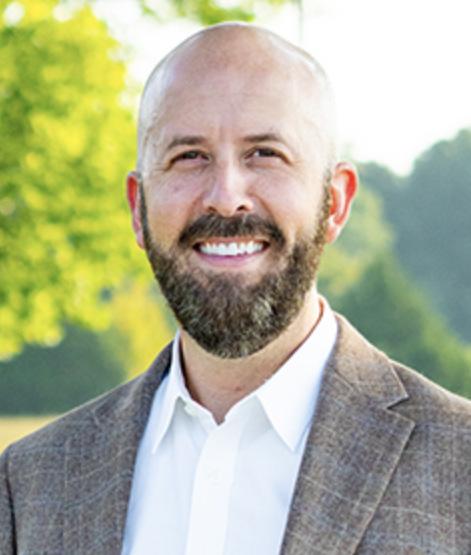
Ben J. Wellons, an Accredited Land Consultant, is president and lead developer of Wellons Real Estate in Little Rock, specializing in agricultural farmland, recreational properties and timberland. A native Arkansan, Wellons has received top commercial-broker awards for land sales in Arkansas — including some of the state’s top waterfowl tracts — and ranks among the top 20 land brokers in the U.S. In 2024, Wellons Real Estate was named National Broker of the Year for Recreational Land Sales by the Realtors Land Institute. The firm was also recognized as among “America’s Best Brokerages” by Land Report magazine in both 2024 and 2025. Wellons attributes his company’s success to his team’s unique approach to partnering with clients to create a vision and implement development strategies for their properties.
Victor Werley
Founder Pinnacle Advisors
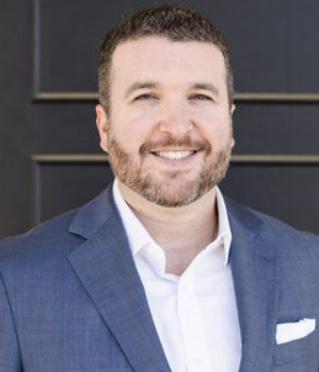
Rudy Woodward IT Program Manager
Arvest Bank

Rudy Woodward, a graduate of Lamar University in Texas, brings more than two decades of leadership in information technology and program management. His career began at Walmart distribution centers before he advanced to NASA’s Johnson Space Center, where he supported information technology service management and later served as IT liaison and identity management consultant for the International Space Station program. After relocating to Arkansas and transitioning into project management, he has since driven technology initiatives across diverse industries, including financial services, health care and global enterprises. His consulting work has delivered high-impact ServiceNow implementations for Intuit, SAP, Cisco and other Fortune 500 companies, consistently achieving top client satisfaction scores. Currently, he serves as IT program manager at Arvest Bank while also leading Zao Solutions, a consulting firm specializing in ServiceNow. He is an advocate for lean, continuous improvement cultures that accelerate organizational success. He has also self-published two fiction novellas: Let’s Circle Back and Chase is a Race
Jeremy Woody CLO
Legacy National Bank
Jermall Wright Superintendent
Little Rock School District
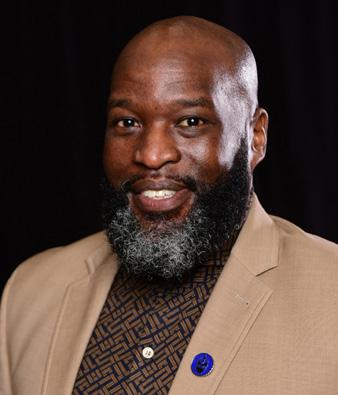
Jermall Wright, a nationally certified superintendent and accomplished educator, is a strategic leader with a passion for teaching and a commitment to equity in education. Most recently, he was named a Google GSV Education Innovation Fellow, further recognizing his forward-thinking leadership in the field of public education. In 2024, District Administration named him one of the “Top 100 Education Influencers.” Since 2022, Wright has served as superintendent at the Little Rock School District, guiding the nearly 20,000-student district with a focus on innovation, academic excellence and community engagement. With almost three decades of experience in public education, he continues to champion equitable opportunities and actively collaborates with stakeholders to support student success.
Erica York Owner EY Custom Homes
Victor Werley is a native of Fort Smith, and a graduate of Lyon College in Batesville. He has served on Lyon College’s board of trustees for nine years and currently serves as the chairman of the board. With over 20 years of experience as a financial consultant, Werley leads Pinnacle Advisors, a consulting practice specializing in business valuation, startups, growth strategies, exit planning, and litigation support. He holds several prestigious certifications, including Certified Financial Planner, Chartered Financial Consultant, Certified Divorce Financial Analyst, Certified Valuation Analyst, Master Analyst in Financial Forensics, Certified Fraud Examiner, and Certified Exit Planning Advisor.


BLOOM
WHERE YOU ARE
PLANTED
By Dwain Hebda

Photos by Steve Lewis
Howard Hurst
THIRD-GENERATION OWNER OF TIPTON & HURST HAS BUILT A CAREER ON MAKING LIFE’S EVENTS MORE BEAUTIFUL

There is precious little that remains the same from Howard Hurst’s first engagements with the family firm, Tipton & Hurst, but what there is is significant.
No, flower stock does not arrive by rail car to be picked up at the train depot anymore as it did when Hurst, as a boy, tagged along with his father. No, the company does not maintain a downtown location as
Tipton & Hurst began in June 1886 with greenhouses in the Little Rock Central High School neighborhood and a retail presence in the downtown business district. The company is among the oldest in Arkansas, and to fully appreciate that, consider how far the company predates some of the places that, for most people, generally call for fresh flowers. For instance, St. Vincent Infirmary, now CHI St. Vincent,
“I always knew I was going to take over Tipton & Hurst. I was the third child, and there was none after me, and so it was either me or nobody.”
Howard Hurst, Tipton & Hurst
it did through its first century or so, and no, the Tipton family is no longer present in anything past the name above the door.
At its heart, however, what remains and has preserved Tipton & Hurst for 139 years is the attention to detail, level of customer service and constant innovation that has grown the company into one of Arkansas’ most recognized brands. That, as Hurst said with pride, remains as glorious now as the day it first bloomed and has only grown stronger during his four decades at the helm.
“I always knew I was going to take over Tipton & Hurst,” he said. “I was the third child, and there was none after me, and so it was either me or nobody. That’s one big reason why companies don’t pass on through the generations — because there’s nobody to pass it to. A lot of [the next generation] don’t want do it, so that’s why they sell.
“For me, it was a little bit of both loving the business and the obligation to carry it on. The legacy part was huge. I wanted to work with my family. I watched my dad, and I thought, ‘You know, that’s a pretty good life. He gets to do a lot of different things.’ As an entrepreneur, you just wear a lot of hats, and I liked that. I didn’t want to do one thing and be in one little niche every day for my whole life.”
did not open until 1888; Baptist Health Medical Center-Little Rock, where the florist would eventually have a retail location, did not open until 1920; Roller Funeral Home would not appear in Little Rock until the mid 1950s; and Griffin Leggett Funeral Home, now Griffin Leggett Healey & Roth, did not open until 1964.
As each of those entities came online, as well as legions of individual households looking to accentuate special family events from weddings and christenings to holidays and just because, the company grew, offering expert advice, talented floral arrangers and unparalleled customer service. That required expansion, and with that came the challenge of maintaining across multiple locations the ethos and standards of a single store run by the owners.
“Florists tend to serve an area, not unlike a neighborhood restaurant,” he said. “Obviously, you can ship things, but traditionally, you’ve got a certain area, and once you’ve covered an area or covered a community, like Little Rock, the only way you’re going to expand into new markets is by having a physical presence.
“A strong brand is very important. If you think about Dillard’s, you know, the Dillard family runs it, but you’re going there because Dillard’s is a brand that you’re familiar with. When you’re a small boutique, you don’t
have that, and I always wanted to make sure that we grew big enough so that we became a brand. We’ve evolved in that way.”
The company’s longevity also gave it multiple opportunities to innovate and challenge the status quo. The company’s diversified inventory of gifts to go with the fresh flowers dates back to the very beginning and still stands out from many competitors today.
“According to my dad, it was my grandmother in the 1920s who started going to market and buying gifts,” he said. “She had china and tabletop, a lot of different things. It’s been part of the product mix for a long time, and even today, we’ve got a much larger mix of gift items than almost any florist. Not very many do all the things we do.”
Hurst continued that legacy of innovation by nudging the company into the digital age with a robust web presence over the past decade. He said while one has to be careful not to chase every fad that comes along, companies that do not pay attention to legitimate business trends are setting themselves up for failure over the long haul.
served in the store, working in a variety of customer-facing and back-office roles. Talking about it, a detectable note of fondness comes into Hurst’s voice.
“My earliest memories are of going with [Joe] to pick up flowers for the store,” he said. “I remember going to the railroad station and picking up flowers off of refrigerated railroad cars. That’s the way they used to ship them. I’ll never forget the carnations were from Denver, Colorado, and we’d call them Denver carnations. Then, of course, we had greenhouses, too, and we grew
busy during holidays, when other people are slow, for example. You kind of have to wrap your arms around that.”
Hurst also made a point of affiliating with other successful business owners both in the floral industry and other businesses in Arkansas and elsewhere to glean as much information as he could about various aspects of business. That was particularly important considering how young he was when he was named president.
“As CEO, you want to surround yourself with people who are better than you and who know this field and are specialists in what they do, and then you just work to try and put them all together. That, to me, is what makes a good leader and a good entrepreneur.”
— Howard Hurst, Tipton & Hurst
“My father was 39 when I was born,” he said. “He was at the University of Arkansas, and Pearl Harbor happened when he’s a junior business student, and like everybody else, he joined up. When I turned 26, he turned 65, and that’s when he decided, ‘I’m going to take Social Security. You’re going to become president. I’m going to start slowing down.’ For me, it was, ‘Wait a minute. I don’t know anything about this.’
“Never say never,” he said. “I would tell you one of the reasons why we’re so diverse is because our business can be very seasonal. Christmas comes along, and Christmas is very busy because we’re decorating homes and commercial buildings, and we’re a holiday store. Valentine’s Day and Mother’s Day, there’s a lot of deliveries, along with the weddings and sympathy and events of all kinds.
“When you’re very diversified, if any one thing goes up or down, you’re not going to go under because all your eggs aren’t in one basket. It’s harder to run a business that has a lot of different things, but overall, the valleys and peaks are smoother.”
Hurst has come to all of these business strategies via a combination of learning from his father, Joe Hurst, and decades
flowers at 14th and Park, so I’d go there and work on that or go with him to do weddings in churches and reception halls. There was always a need for a lot of extra help.
“I put all my friends in high school to work helping us deliver or cut flowers or whatever. They were always like, ‘Man, you get to work with your dad all the time. My dad is a banker. I can’t go help him,’ so I always thought that was kind of neat to be able to work with my father.”
Hurst augmented his real-world education with his studies at the University of Arkansas in Fayetteville, where he earned a degree in business and learned the formal blocking and tackling of commerce and management.
“In many ways, our business is the same as everybody’s, you know? Everybody’s got finance and accounting and sales and expenses, no matter what you’re doing,” he said. “You’ve got to hire and fire people, do marketing just like every business does. It’s just a different product mix and, in our case, a different timetable. We’re really
“That got me started in peer groups at an early age. One group I belong to to this day has eight or 10 of us florists who are noncompeting around the country, and we get together and share finances, buying tactics, which is a huge thing. We share everything you know? What’s going on? What’s working for you? How do you set up your organization? How are you managing your people?”
At age 67, Hurst can today look back with pride and look forward with hope now that his daughter, Josie Hurst Clark, is pursuing her Master of Business Administration with plans to become the fourthgeneration owner of the family business. The idea that the firm will remain in family hands brings a smile to his face, but until then, there are brides to serve and tables to dress and a business plan that keeps unfolding. The company is set to christen its first northwest Arkansas store in Rogers to join locations in Little Rock, located in the Heights since 1966, North Little Rock, Conway and Pine Bluff.
“I’m very excited about my daughter and our legacy going forward,” he said. “Change is inevitable, but I think something that the business today has in common over the long term has been our family’s commitment to excellence and commitment to keeping it going and just being in it for the long term.
“I mean, it’s not easy. It’s hard work. Retail is very hands-on, and with a growing operation, you have to get your hands dirty. Some people see that, and they run. They go, ‘I’m not going to do that.’ Then another sees it, and they go, ‘Ooh, I’d love to do that.’ Thank God in our case, we’ve had a succession of four generations that have said, ‘You know what? I’m there.’”
HOWARD HURST ON RECRUITING TALENT
“My wife likes to say, ‘You’ve got to have really good horses in the stable,’ meaning you’ve got to have thoroughbreds, people who are good at what they do. People are talented in different ways, and so you have to figure out where that lies and just run with it and take advantage of those skills. As CEO, you want to surround yourself with people who are better than you and who know this field and are specialists in what they do, and then you just work to try and put them all together. That, to me, is what makes a good leader
and a good entrepreneur.”
HOWARD HURST ON THE VALUE OF MENTORS
“I would say that the most important thing to do to really learn how to run a business is to seek out and get with the best people in the country that are doing this. Go get with them and figure out what they’re doing, and do what they’re doing. There are specifics to being a designer or being an accountant or whatever it is, and the best way to learn all of those, I have found, is to see what other successful CEOs, other owners are doing.”
HOWARD HURST ON OVERCOMING CHALLENGES
“Something you always have to think about is a business is not static. People come and go. Accidents happen. Change is inevitable. Sometimes you just have to make the best with what you’ve got. I would also say, however, that with change comes the opportunity to further evolve and improve. Every time something happens, you’ve got to embrace that change by always thinking about it as an opportunity to do better.
“The people that we’re in competition with now, they didn’t exist 25 years ago, and who knows who will be here 25 years from

now? That’s why taking care of your people is so important, so that they will in turn do whatever it takes to take care of customers. This is a long game, so being consistent in what you’re doing as a business is absolutely critical. We’re not trying to pull one over on somebody for a short-term sale. We’re in it for relationships over the long term.”
HOWARD HURST ON PERSPECTIVE
“About six months after I started, a guy who was our general manager left and went down the street and opened up to compete against us. I thought it was the end of the world. I was like, ‘Oh my God, Dad, what did I do wrong?’ He gave me what was probably the best business advice I ever got when he said, ‘Well, you haven’t done anything wrong. This is just the evolution of what happens. You’re just going to have to evolve and figure out new things and new paths. You’ll be fine. Don’t worry about it.’
“It didn’t bother him much, and what I learned is when these things happen, the important thing is to take every change as an opportunity, no matter how hard or how terrible it feels at the time. In that particular case, I focused on finding a replacement with the attitude that the replacement might be even better than the one who left. Very often, it works out just like that.”
HOWARD HURST ON THE FACTS OF LIFE IN BUSINESS
“As an entrepreneur, you’re not going to make a ton of money all the time. It’s just not going to happen. There’ll be times when you’re not making any money or you’re losing money where you’re going to feel totally negative. When that happens, you’ve just got to keep working and work hard, and you cannot let yourself get down. You’re the leader of the team, so you have to show confidence in what you’re doing and show others things are going to be OK. Lord, as a company we’ve faced the Depression and war and maybe a little COVID-19 here and there, but in the end, it was all about just keep on going. As a result, we’ve outlasted our competition. We’ve just continued to be here.”
Hurst augmented his real-world education with his studies at the University of Arkansas in Fayetteville, where he earned a degree in business.
LIVING ROOMS OF THE COMMUNITY
CALS-Boulevard partnership a response to patrons’ changing needs
By Alex Hardgrave
The Central Arkansas Library System will open the doors to the remodeled Main Library branch in Little Rock Sept. 20 after a twoyear, $31 million dollar transformation.
The renovation features two fully new public floors, a basement and a rooftop terrace for patrons to enjoy. There are also many new features around the library, including a podcast space, meeting rooms with up-to-date technology features, kitchens for cooking classes and a stage for children’ s storytime.
“People want to create a community when they come to the library,” said Nate Coulter, executive director. “A lot of things the library does give people the opportunity to connect with activities or intellectual content.”
Polk Stanley Wilcox Architects, WER Architects and Stocks Mann Architects are the three architecture firms that worked on the project.
“Libraries have changed so much over the last 20 years,” said Reese Rowland, principal architect at Polk Stanley Wilcox. “They have become more like living rooms of the community, so we really set out with them to figure out a way to draw people back to the Main Library and people who have not come to the Main Library.”
Polk Stanley Wilcox also worked on the original 1997 remodel.
“It’s always fun to revisit buildings that our firm worked on years ago, and get to create something new and identifiable and something that hopefully changes people’s perception of downtown,” Rowland said.
Amanda Sturgell, senior associate at Polk Stanley Wilcox, said the team worked to make the library easier to access and use.
“Libraries aren’t a, ‘Shhh, be quiet,” place anymore,” she said. “They’re more active.”
Coulter said that the COVID-19 pandemic hurt library attendance. In 2019, the library saw a record number of patrons, but



Nate Coulter
Reese Rowland

2020 caused numbers to take a massive hit. They have yet to recover fully to 2019 numbers.
“Everybody who does things in person is dealing with the reality of the postpandemic,” Coulter said.
He added that people were already living increasingly isolated lives, but the pandemic accelerated that trend.
“People are not just working remotely but living remotely,” he said.
He said with the new amenities offered at the Main Library, he expects traffic to return to prepandemic levels soon.
The architects reorganized the floors of the buildings to make books and youth spaces easier to find and use. Sturgell said every floor will open to a desk where people can easily find a librarian to ask questions. Each floor also has a different color theme to help people differentiate which floor they are on easily.
The basement, which was originally not accessible to the public, will now be
A rendering of the new Boulevard Bread location.
(Rendering courtesy of CALS)

“LIBRARIES AREN’T A, ‘SHHH, BE QUIET,’ PLACE ANYMORE. THEY’RE MORE ACTIVE.”
—
Amanda Sturgell, senior associate, Polk Stanley Wilcox

Architects reorganized the interior to make spaces easier to find. (CALS)
The remodeled Main Library opens on Sept. 20. (CALS)
the computer lab and also have offices for library-based social workers.
“[The library team] championed that they want to welcome anyone from the public,” Sturgell said.
A rooftop terrace has also been added, allowing people to look out over the city and stand right next to the new, large “library” sign.
Smaller details will enhance the experience of the new library even more, such as enlarged book pages that will hang on the ceiling. The pages will showcase famous and local authors’ works, as well as children’s books in the children’s area.
Also, since the interstate ramp, which used to be near the library, has been moved, the architects were able to add a
the library system and especially the Central Arkansas Library System. It’s very important.”
The opening of this location also marks Boulevard’s return to the downtown area, where it once had a location.
“We love that area, and there is a lot more synergy and things happening down there these days,” Basham said. “It seems like there is a lot of activity, a lot more businesses.”
Currently, there are three Boulevard locations in Little Rock, including one in the South Main neighborhood, one in the Heights neighborhood and one at Baptist Health Medical Center-Little Rock.
Basham added that Coulter approached Boulevard while looking for

lot of large glass windows during the remodel. Before the interstate moved, that much glass would have let in too much road noise, but now it is not an issue.
One other new addition to the library is a Boulevard Bread Co. on the library’s main floor.
Rowland said nowadays, libraries are competing with local coffee shops and retail spaces such as Barnes & Noble, where people go to meet or sit and read. By including a restaurant in the library, it makes it even more of a place people will want to visit, he said.
“We are super excited to be joining the CALS building,” said Christina Basham, owner of Boulevard Bread Co. “We love
restaurants that might be a good fit for the library. She and co-owner Sonia Schaefer were interested, and the plan grew from there.
“[Our goal is to] create a nice, comfortable vibe down there for people to just come and hang out and work on their laptops,” Basham said.
In addition to being part of the library, customers will be able to access the restaurant from a set of doors on the outside of the building, allowing Boulevard to set different hours than the library, ideally helping to create even more business. There will also be a walk-up window for added convenience.
“We think it’s a great partnership,”
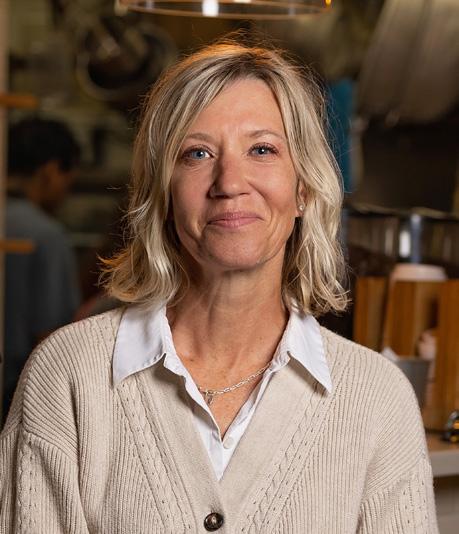

Coulter said. “If they succeed, the neighborhood succeeds.”
“Our hope is that it’s a nice palace to come visit and get lunch, coffee, breakfast and pastries if they’re inside the library or they just happen to be downtown and want good, quick, healthy food,” Basham added.
Rowland said the renovation will keep up with what libraries need to be in the modern day, just like the first renovations during the late 1990s did for that time period.
“We dove into what a library is today and what it will look like in the next 25 years,” he said.
Coulter added that the renovation will help the library remain a hub in the River Market district.
“There is a lot of confidence that people want to have a thriving downtown, and to do that, you have to give people things that they are excited and enthusiastic about,” he said.
The library and Boulevard Bread Co. will open Sept. 20. The library team will host festive activities from 10 a.m. to 4 p.m. opening day.
Christina Basham
Amanda Sturgell
The reimagined library will reflect CALS leadership’s understanding that the role of libraries has changed. (CALS)


CARING FOR THE CAREGIVERS:
Alzheimer’s Arkansas is a pillar of support for caregivers around the Natural State

While caregiving is a calling for some, it is an inevitability for many. Access to a wealth of guidance, resources and simple compassion can make all the difference for families as they care for loved ones with dementia, chronic illness or debilitating disease. Alzheimer’s Arkansas has been that community support — of, by and for caregivers — serving families across the state since 1984. The independent nonprofit offers free educational and respite programs, personalized support, printed resources, in-person and online support groups, and even financial assistance to family caregivers.
“Family caregiving is a difficult — but also fulfilling — journey through an emotional and vulnerable time during someone’s life,” said Stephenie A. Cooke, executive director. “It is our greatest calling to create the space where Arkansas caregivers can find what they need in order to best care for themselves and their family members.”
At Alzheimer’s Arkansas, families are supported, empowered and comforted through access to valuable relationships with the nonprofit’s well-trained team and fellow caregivers. Being able to not only provide those connections but offer them for free is a vital part of the Alzheimer’s Arkansas vision. From workshops and forums to senior expos and wellness fairs, from grant funding to brunch-and-learns, from over-thephone support to in-person meetings, everything Alzheimer’s Arkansas does is made possible by the generous support of donors and volunteers.
“We are caregiver focused, trying to offer support and resources to those caring for loved ones statewide,” Cooke said. “In addition, we always need financial support to help us fulfill our mission. Your contributions help us help others right here in the state of Arkansas.”
In addition to donating one’s time or skills, there are several ways to monetarily support the comprehensive range of programs, services and assistance Alzheimer’s Arkansas offers. Individuals can make one-time and recurring donations, families can set up private donations and bequests, and businesses and other organizations can sign up to sponsor the nonprofit’s events throughout the year.
WAYS TO GIVE:
• Scan QR Code
• Text ALZARK to 44321
• Visit alzARK.org


SCAN ME
In 2024, donors and sponsors helped Alzheimer’s Arkansas provide:
25,000 Caregiver touches
22 Monthly support groups
377 Programs and activities
276 Hours of community speaking engagements
Alzheimer’s Arkansas 201 Markham Center Drive, Little Rock 501-224-0021 | info@alzark.org | alzARK.org
UPCOMING EVENTS AND SPONSORSHIP OPPORTUNITIES:
PICKLEBALL PALOOZA
SEPT. 21
Little Rock Athletic Club
Noon to 4 p.m.
Pick up a paddle, and get ready to leave it all on the court — pickleballers of all skill levels are invited to this event, and all proceeds will benefit Alzheimer’s Arkansas. Registration is $35 per individual or $60 per team.
THIRD ANNUAL TERESA RENEA WRIGHT MEMORIAL GOLF TOURNAMENT
SEPT. 29
Conway Country Club
Four-man scramble with 1 p.m. tee time
Get on the green for a good cause at the Conway Country Club in late September. Registration is $125 for singles and $500 for a team of four. Fees include golf cart, goodie bag and T-shirt. Registration starts at 11:30 a.m. with lunch at noon.
(V)AMP OUT ALZ
OCT. 25
The Hall, Little Rock
Doors open 6:30 p.m., music starts at 7 p.m.
Put the “boo” in boogie with this Halloweenthemed version of the nonprofit’s concertbased fundraiser. Alzheimer’s Arkansas will celebrate Halloween early and in style with a night of live music, dancing, drinks, a costume contest and silent auction.
BEEF, BEAUTY QUEENS AND BUCKS ARKANSAS STATE FAIR AN ECONOMIC FORCE
By AMP Staff
The Arkansas State Fair returns to Little Rock Oct. 10 through 19, and organizers are preparing to once again welcome hundreds of thousands of visitors to the fairgrounds. Like its predecessors, the autumnal event is not only a source of great entertainment value but a major economic driver.
“Last year was really good,” said Tiffany Wilkerson, general manager. “We didn’t break a record, but we got close with a little over 550,000 guests. Compared to 2023, which was a record year, we were only about 9,000 people short, so overall, it was a great fair, a perfect 10 days of weather, which we’re praying for again.”
Across the country, the news is almost universal — state fairs are back and in a big way. After many fairs stood on wobbly knees during and right after COVID-19, the lure of the corn dog and the funnel cake are proving powerful indeed. The Minnesota State Fair, the nation’s secondlargest, set a postpandemic attendance record this year, welcoming nearly 2 million guests for its fifth-highest total ever.
Iowa’s 2025 event missed an all-time record, but attendance was up year over year to 1.16 million guests for its third-largest mark. Major events in North Carolina and the nation’s largest fair in Texas, yet to kick off in late September and October respectively, hold similar promise.
Wilkinson said the surging popularity of the Arkansas State Fair has created some logistical challenges which have
pushed the boundaries of the event beyond its official 10-day window.
“Last year, we had more exhibitors than we had the previous year to where we’re running out of barn space to accommodate the [livestock] shows,” she said. “The last few years, we’ve been showing the Wednesday prior, so just a couple days early, but this year, we’ll start a whole week earlier, showing on Oct. 2.”
Also up was participation in the annual Miss Arkansas State Fair and Junior Miss Arkansas State Fair pageants, which were held at Barton Coliseum last year for the first time in recent memory. The new venue, plus renewed efforts at the county level, resulted in 110 participants from 55 counties in 2024.
“From what we can tell, we’re going to have representation from 63 of the counties here in Arkansas, and so our numbers are going to be up compared to last year,” Wilkerson said. “The girls are really excited to be in the coliseum on the big stage. It was just a whole big production, and I think the things they saw on social media made more contestants want to participate.”
With all of the excitement comes additional dollars spent during the fair’s run. Wilkerson said while the organization has not done an economic impact analysis in several years, an influx of that many people over that many days means dollars for the local economy.
“We have averaged, the last couple

years, over 550,000 attendees, and they’re here for, some of them, almost two weeks,” she said. “Some are staying here on the grounds, but we can’t accommodate everyone as far as vendors, concessioners, the livestock exhibitors, the carnival workers. We’re talking over 500 people that are here just working with the carnival, so with that, we have people staying at hotels. We have people dining out at restaurants here in the local area. They’re here spending locally.”
Wilkerson said while a new economic study is imminent, just looking at the State Fair’s budget growth gives some indication of the increased spending in recent years. In 2013, the fair had a budget of $4.5 million, and today, that figure is just shy of $6 million. She said the impact on gas purchases alone is substantial with 3,000 exhibitors from all corners of the state traveling an average of 300 miles round trip.

“People think when folks come to the State Fair that they’re here [on the grounds] the whole time and that’s it,” she said. “That’s not true. They’re getting out. They’re buying groceries. They’re shopping. They’re doing other things while they’re here. I’ve even heard people have had time to get out and go to the casinos. Those two weeks, counting setup and teardown, definitely have an impact on our local restaurants, hotels and other attractions in the area.”
Get all the details about the 85th Arkansas State Fair at arkansasstatefair.com.
FAIR HIGHLIGHTS
2025 CONCERT SERIES (TICKETED)
Barton Coliseum
Trey Songz — 7 p.m. Friday, Oct. 10
Lonestar & David Lee Murphy — 7 p.m. Saturday, Oct. 11
38 Special — 6 p.m. Sunday, Oct. 12
2025 PAGEANTS & TALENT COMPETITIONS
Jr. Miss Pageant — 6 p.m Friday, Oct. 3 —
Barton Coliseum
Miss Pageant — 6 p.m. Saturday, Oct. 4 —
Barton Coliseum
Rodeo Queen Competition — Oct. 4-5 —
Arkansas Building
Talent Showdown — Friday, Oct. 10 —
Arkansas Building
Youth Pageant & Kids Talent — Saturday, Oct. 11 —
Arkansas Building
Elite Ms., Ms., and Sr. Ms. Pageants — Sunday, Oct. 12 — Arkansas Building
2025 Sale of Champions (livestock)
Noon Friday, Oct. 17 — Barton Coliseum
2025 SPECIALTY CONTESTS
Creative Arts Building
Adult Open Bake — Saturday, Oct. 11
Petit Jean Meats Cooking Contest/Tim Clement
Memorial Pound Cake — Monday, Oct. 13
Hiland Dairy Cooking Contest/Matthew’s Sweet Potato Cooking Contest — Tuesday, Oct. 14
Arkansas State Fair Cherry Pie Contest/Skippy
Peanut Butter Cooking — Wednesday, Oct. 15
Arkansas Cattlemen’s Steak Competition/ Arkansas Cattlewomen’s Chili Cook-Off — Thursday, Oct. 16
People’s Choice Chili Contest — Friday, Oct. 17
Youth Baking Competition — Saturday, Oct. 18
2025 ADMISSION/PARKING PRICES
Adults: Advance Price $10 / Gate Price $15
Seniors (Age 60+): Advance Price $6 / Gate Price $10
Children (Ages 6-12): Advance Price $6 / Gate Price $10
Ride Bands: Advance Price $30 / Gate Price $37
Parking: $10
The Golden Touch
Todd Gold paves the way for future culinary pros in Arkansas — again
By Dwain Hebda

In August, some of the best chefs in Arkansas gathered for the preliminary round of the second Delta Diamond Chef competition. The event showcased professional culinary talent from Hot Springs to Pine Bluff and Little Rock to Petit Jean Mountain.
The competition — which advanced Saracen Casino Resort in Pine Bluff’s Chef Matías de Matthaeis, the event’s reigning runner-up, and chefs Jill McDonald and Wendy Schay of The Croissanterie in Little Rock — impressed guest judges and shined a bright light on the high culinary arts being practiced in the Natural State. The contestants advance to face defending Delta Diamond Chef champion Chef Payne Harding, owner and executive chef at Cache Restaurant in Little Rock, in February.
Todd Gold, senior director of hospitality at Saracen Casino Resort and president of the American Culinary Federation Arkansas Delta Chefs Association, was happy to see the quality of dishes put forth by the competitors, if not altogether surprised by them.
Gold, a 38-year veteran of the hospitality industry, has long been a vocal advocate for Arkansas food and the talented people who prepare it.
He, along with fellow board member Heather Baker, president and publisher at AY Media Group, is a primary mover and shaker behind the competition itself. Gold boasts more than a decade of experience in organizing and hosting such competitions, which he sees as revelatory of the talent and skill at work in Arkansas’ finer restaurants. He should know, having held just about every position one can hold in the food business during an illustrious career.
Starting his life in food as a dishwasher at age 15, Gold earned a culinary degree from the La Maison Meridien
Q:Delta Diamond Chef is now in its second iteration. What were your takeaways from the inaugural event that culminated last year?
A:You know, I think it was really well received. We were a little tight on space at Pine Bluff Country Club, but I was excited to have the finals in the Delta. That was kind of the point, right? It was well attended. We had about 250 people come, and everybody was excited to have something in the Delta like this and to have a focus on hospitality and culinary. All in all, it was a great event, and it was a lot of fun. The biggest takeaway for me was just some little changes I’m going to make to make the competition run even better this year. With all my years with Diamond Chef Arkansas, 13 of them, I tweaked things every year. Probably the biggest thing, of course, is [the 2025 finals] are coming to Saracen, which is going to be a bigger venue with all the bells and whistles. We’re definitely looking forward to that.
Memphis Culinary Academy, as well as associate degrees of applied science in hospitality management and culinary arts from Pulaski Technical College and a bachelor’s degree in hospitality and tourism from the University of Arkansas System.
He incorporated and served as president of the Arkansas Culinary School from 1995 to 2006 — the school merged with Pulaski Technical College in November 2006 — while also serving as general manager of dining services and corporate executive chef at Acxiom from 1998 to 2007.
From 2007 to 2012, Gold was co-owner of Tappan & Gold LLC, through which he owned three Purple Cow Restaurants while at the same time working as dean and south site director at the University of Arkansas-Pulaski Technical College Culinary Arts and Hospitality Management Institute in Little Rock from 2006 to 2020. He joined Saracen in early 2020.
Throughout his illustrious career, Gold has been highly active in professional organizations such as the American Culinary Federation, the National Restaurant Association, the American Hotel & Lodging Association, Skål International, and the Chaîne des Rôtisseurs. He was the first Arkansas chef to win the Chef of the Year Award three times from the central Arkansas chapter of the American Culinary Federation and the fifth Arkansan ever inducted as a fellow into the American Academy of Chefs.
Additionally, Gold received the American Culinary Federation President’s Medallion in 2013, 2016 and 2021, making him one of only two individuals to ever receive three ACF National President’s Medallions in history.
Arkansas Money & Politics sat down with Gold to discuss Delta Diamond Chef and its hoped-for impact on the state of the culinary union in Arkansas.
Q:The competition is just one part of that evening’s itinerary, correct? There are also a number of awards to be handed out, right?
A:
Right. This is a combination of the American Culinary Federation’s central Arkansas chapter and the Arkansas Delta chapter, and the awards portion is something else that’s been tweaked. Heather [Baker, emcee] and I talked about this last year, how spreading out those awards throughout the night was difficult because the further you get into the event, the more folks are having fun and the harder it is to get their attention, so one of the big changes we’re going to do is Heather and I are going to come up in the beginning, we’re going to introduce all the chefs, and then we’re going to take care of both chapters’ awards right at the beginning. While we’re doing that, the competition will be going on behind us on the stage, so that’ll be really cool.
Then we’re going to leave everybody alone until the end of the night, when we’ll come back up to announce the winner of the Delta Diamond Chef and also the Delta Diamond Chef Mixology Competition, which is the first ever, so we’re excited about both those pieces.
Q:This year’s Delta Diamond Chef event saw a high number of new faces participating. How were the chefs invited to participate in the first place?
A:Last year, I had a committee and the field was selected totally by the committee. I sat down with them and said we need to find some chefs who want to compete and the committee, which included Heather, went out and helped recruit the chefs. That’s how the group came together last year.
Following the event, there were a couple of chefs who reached out to me and said, ‘Hey, next year, I want to get in there,’ so I knew there was interest. When we selected Chef Donnie and Meaghan Ferneau as our chairs, I asked Donnie to work on getting the preliminary field of chefs, and man, he really wrapped his hands around that.
Q:The purpose of the event, of course, is to highlight and support a greater mission of advancing the culinary arts and hospitality industry in Arkansas. How does the mission of the American Culinary Federation support that goal?
A:The American Culinary Federation was established in 1929 and is the premier professional chefs organization in North America, with more than 14,000 members and over 170 chapters nationwide. Our Delta chapter has been around since 1978, and the central Arkansas chapter has been around a long time, as well. I’ve been involved with both of them.
hospitality community and trying to establish a place for people to learn and grow and not just — I hate to use this term — but not just be clock punchers, you know?
Q:How has the organization evolved after being around for nearly a century?
A:The other thing that the American Culinary Federation does is it’s an accrediting body, so it accredits everything that Pulaski Technical College’s culinary school does now, all the degree programs, etc., from certified culinary all the way up to certified master chef. They have their hands in so much. At the chapter level, we’ve really worked to be recognized as a professional trade group and to grow our membership, which we’ve done in leaps and bounds over the decades.
Q:Getting back to the competition, one of the things we’ve heard again and again from the competitors is yes, they are there to win, but they also value the networking and relationships that form among them. Is that a secondary dividend that the competition delivers to the field?
There are graduates of the culinary school who are working in the industry, serving as sous chefs for our Delta Diamond Chef competitors or learning the finer points of pastry on the job.
A:I absolutely think that it is, and that kind of collegiality goes back a long way. For years and years and years, those of us who were in central Arkansas could pick up the phone and say, “Hey, I’ve got a big event,” and everyone would jump in and help. That kind of cooperative attitude is what it’s all about, and it sets the kind of foundation we want the culinary and hospitality and baking community in Arkansas to be built on. We’re excited to see that continue through our competition.
Locally, we stay involved with culinary and hospitality — we help each other, work with each other, do fundraising events, educational things. If you go back to the beginning of the culinary school that I incorporated in 1995, we were an apprenticeship program. I decided to incorporate it as the Arkansas Culinary School, and later, I sold it to Pulaski Technical College in 2006, which is what formed the basis of their culinary program today.
The types of things we do are educational and developmental in nature, investing in students’ futures through continuing education. Back in the day, back in 1995, when I first got involved with it, it was all about growing the culinary and
The other thing that is gratifying to see is how this ties in with preparing the future of our industry. There are graduates of the culinary school who are working in the industry, serving as sous chefs for our Delta Diamond Chef competitors or learning the finer points of pastry on the job. To see these chefs get current students and past students involved, all of a sudden, you’re seeing that tie-in where those future chefs, those sous chefs could be the future competitors in three, five, 10 years from now. That’s the kind of stuff that gets my juices flowing.
And yes, everyone wants to win, but I do see the chefs talk to each other outside of the actual competition, bounce stuff off of each other, asking questions. It’s nice to see them in those collaborative moments. That’s the good stuff.

The familiar hustle and bustle is back as families across the country recently embraced the backto-school ritual of the frenzied shopping spree. Parents combed supply lists that seemed longer than years previous — “Do third graders really need graphing calculators?” — and kids lobbied hard for new sneakers, clothes and backpacks that now seem to cost more than a month’s worth of groceries. Behind the scenes, there are quiet heroes who are not parents or teachers; they are the ships, trucks and trains hauling mountains of backpacks, laptops, pencils, paper and lunch boxes across the globe.
This years-long logistical drama is a coordinated worldwide effort, and it is anything but simple. Long before families were debating the shopping tradeoffs of new pens, paper and bags at the kitchen table, retailers were forecasting demand, manufacturers were ramping up production, and cargo ships were being loaded with everything from notebooks to tablets. The transportation sector is the backbone of the entire process, moving goods across oceans and continents so they can appear, neatly stacked, in store aisles or dropped on the porch by a delivery driver who is juggling 200 more stops before dinner.
This year’s back-to-school season arrived with some global wrinkles. Tariffs
FROM ROADS TO RAILS AND INTO THE CLASSROOM: THE NEVER-ENDING BACK-TO-SCHOOL SUPPLY CHAIN
and shifting trade policies are driving up prices on everyday items, meaning a pack of pens is suddenly caught in the same geopolitical tug-of-war as steel and semiconductors. Add in congested ports, tight warehouse availability in key cities, and the ongoing labor shortages in trucking and distribution, and the supply chain starts to feel less like a conveyor belt and more like a tightrope act. Uncertainty about the tertiary costs of products has ripple effects that are bound to show up in family budgets.
Here is the kicker: While families are finally settling into one new school year, the next season has already begun. Forecasts are being written, procurement orders placed and production lines scheduled. Back-to-school shopping may feel like a short-lived frenzy, but for the supply chain, it never really ends. The marathon has already started again, running full speed into next year.
At the University of Arkansas in Fayetteville, where I am proud to work, students in the supply chain department juggle their own frenzied back-to-campus shopping with the added benefit of studying the very forces that make it all so complicated. They might grumble about the higher price of textbooks or a delayed dorm room desk, but in class, they are learning why it happened and, more importantly, how to fix it. For them, the backto-school scramble doubles as a living case
study in forecasting, transportation strategy and global trade policy. It is one thing to feel the stress at checkout; it is another to dissect it in a lecture hall and imagine smarter systems for the future.
This year’s back-to-school rush was a reminder that supply chains are not just about moving boxes. They are about households, classrooms and the systems shaping the next generation of problemsolvers. At the University of Arkansas, the J.B. Hunt Transport Department of Supply Chain Management is showing that education is every bit as critical as logistics — because without people who understand the system, the system does not work.
Shannon Bedore is the founder and board chairman of Sightline Retail in Bentonville, having previously served as CEO of Sightline Retail and Blue Elephant Food Group USA. Bedore recently joined the University of Arkansas in Fayetteville as a professor of practice in the Sam M. Walton College of Business J.B. Hunt Transport Department of Supply Chain Management.
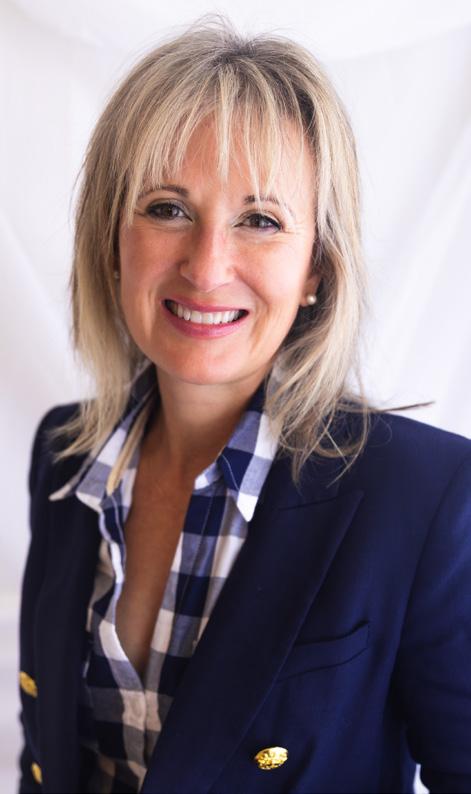
Shannon Bedore
Leading by EXAMPLE

Jacksonville mayor buys bistro to safeguard community staple
By Sarah DeClerk
When Jacksonville Mayor
Jeff Elmore and his family purchased the former Keith & Co. Artisan Sandwich Shop, it was not something they had planned for. However, the venture has provided Elmore with the ideal way to practice what he preaches when it comes to community investment.
“Us keeping the restaurant here was just one more little part of the quality of life that we’re offering for people that are here,” he said. “There’s a lot going on.”
Keith & Co. had been a staple in the city. When the restaurant that took its place shut down after just a few months, it came as a surprise to Elmore, who visited the owner to say goodbye.
During that discussion, the owner asked if Elmore wanted to buy the restaurant. He went home and talked it over with his wife, Michelle, and sons
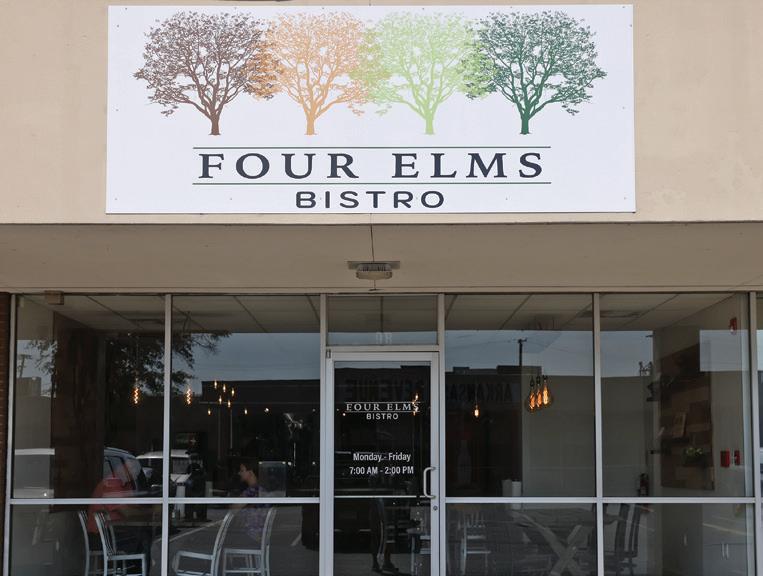

Wyatt, 19, and Carter, 17. The family was on board.
“I literally woke up that morning with owning a restaurant not even on the bingo card, and we went to bed that night with basically a hand-shake agreement that we were going to own a restaurant,” Elmore said.
That is not to say that the family had never discussed buying a restaurant before; it had just been more of an idle dream than an actual plan.
Elmore, who has a background in ministry and owns a title company in Jacksonville, entered the competitive barbecue circuit with a friend about 20 years ago while living in Georgia but stopped competing after moving to Arkansas. Although his smoked briskets and pork butts were in demand for parties and church functions, Elmore never worked as a professional caterer,
Photos by DeWaine Duncan
Jacksonville Mayor Jeff Elmore, right, with his wife, Michelle, and sons Wyatte, left, 19, and Carter, 17
and he had no restaurant experience prior to opening Four Elms Bistro in May.
“The hardest thing with opening the restaurant was figuring out a name,” he said. “It was three days we were wrestling, fighting at the house. ‘What’s it going to be?’ ‘No, I don’t like that.’ ‘No, I don’t like that.’ Three would like it, and one wouldn’t or whatever, and just it was hard. I mean, it really was. We picked names for our children easier than we picked names for the restaurant.”
Then, finally, Michelle came up with a name all four Elmores could get behind: Four Elms Bistro. A play on the family’s name and number, the moniker also provided an easy branding opportunity in incorporating an elm tree into the logo.
Elmore credited the bistro’s success so far to longstanding employees who worked at the previous restaurants. For the most part, the menu is the same as the one offered at Keith & Co. with a few additions.
“We’ve added some and tried to make it our own but kind of brought back all the favorites that everybody missed, and the response has been just unreal, more
The bistro is open for breakfast and lunch on weekdays, and Elmore said he would eventually like to open on the weekends, as well. The chicken bacon ranch and club sandwiches are the most popular lunch items, along with the pimento and bacon sandwich; the nachos, which are made with wontons instead of tortillas; and a peanut butter and jelly sandwich with bacon.
“People are like, ‘Really?’ and then they’ll try it, and they’re like, ‘Holy cow, where has this been all my life?’” Elmore said. “We’ve got a couple customers that come in here, and that’s all they ever get. They’re getting a PB&J and bacon, so it’s kind of unique. I like it. I’m not going to order it with my meal, but to me, it’s like, man, it’s the perfect late-night [snack].”
Breakfast options include an omelet of the day, the chorizo hashbrown bowl, and the “knife and a fork” chicken biscuit, which is a biscuit with fried chicken and a fried egg topped with sausage gravy. There is also the off-the-menu “mayor’s special,” which Elmore popularized prior to buying the restaurant: a bowl of cheese grits topped with chorizo.

gratitude than anything,” he said. “They’re like, ‘Thank you for giving us this spot and having this type of restaurant in town because we don’t have anything like this.’ It’s unique.”
Elmore said he is still learning the rhythm of the restaurant industry. When business slowed in July, he said he was concerned at first but heard from other restaurant owners that it is normal to experience a lull as customers go out of town on vacation. Sure enough, business picked back up in August, and now he is eager to see what changes the holiday season might bring.
Although Elmore is not involved in the dayto-day operations of the business, Wyatt, who is studying at Ouachita Baptist University in Arkadelphia, had a chance to work at the restaurant this summer.
“It’s cool to have something of our own that we’re getting to do and a new family project, pretty much, that we really hadn’t planned on doing until right when we opened it,” Wyatt said. “We knew about a week ahead of time that we were doing
it, and then all of a sudden, we owned a restaurant, but I mean, it’s really fun getting to do all this with all them and figuring it out as we go.”
Elmore said unlike the title company, where his wife is now president, his sons get to have a say in the running of the restaurant.
“The boys weren’t involved in that. You know, she’d come home, or I’d come home, and we’d talk about it. They were like, ‘Please, can y’all stop talking business? We’re home now,’” he said. “This is something that we can all talk about, and so I guess in that regard, it’s been good in bringing us together because it is something in common that we all four have and can share and feel that personal ownership with.”
Although he said he might consider franchising the restaurant in the future, which he believes is the only way the family could actually profit from the venture, the point of buying the restaurant was not to make money; it was to support the community.
“We opened it to keep the restaurant here and to provide quality of life for the city and to keep the employees who were here employed,” he said. “I’m not making a dime on this place. It’s paying for itself, which is all that I ask, you know?”
With revitalization in progress in all areas of the city, international companies such as Sig Sauer bringing jobs to town, a thriving new school district and new housing developments underway, the future looks bright for Jacksonville.
Elmore said he hopes his family’s investment shows the value of small businesses.
“I’m looking at it through multiple lenses, and I see what it does for the city in keeping this here, so it was one of those things — ‘OK, I’m the mayor, but I’m going to lead by example, and I’m going to put my money where my mouth is,’” he said. “I want people to come invest in our town. If I’m not willing to do it myself, why should I ask someone else to? So we did.”
Four Elms Bistro
9 Crestview Drive, Jacksonville
501-596-9700
Open 7 a.m. to 2 p.m. Monday-Friday

IT’S KIND OF A PIG DEAL
Meet the competitive barbecuer behind Rub Me Raw spices
By Dwain Hebda / Photos provided by Josh Dillon
The phrase, “What you see is what you get,” was made for a guy like Josh Dillon. By day, the former welder is safety director for a local construction company. On weekends, he is a force in competitive barbecue and a lifelong fan of the ‘cue.
In fact, Dillon has smoked quite a few briskets and ribs into protein candy during his day. As part of his tasty hobby, he found himself endlessly tinkering with spices and rubs to get just the right blend for competitions or cooking for friends and family. Finally, his wife, Angel, offered a suggestion so obvious it stopped the Elkins native in his tracks.
“I was using some other manufacturer’s seasonings and combining this brand with this brand and then adding in a little bit of pizazz myself,” he said. “My
wife was like, ‘Why don’t you create your own?’ I was like, ‘OK, you know, I’ll give it a go.’ It worked out really well, and I found I actually liked making my own flavors.
“Then my wife was like, ‘Well, I guess it’s time that you start sharing this.’ That’s kind of how it spawned from there. She’s the one who made me get off my butt and start doing something about it.”
In fact, Angel was about as all in as a spouse could get. Not only did she come up with the prod-
Josh Dillon hit the road to get his product onto local shelves, a process he called a crash course education in marketing.
uct’s eye-catching name, Rub Me Raw, but she was also the primary taste tester for the company’s blends and even designed the label.
“Honestly, she is the driving force behind it,” Dillon said. “I have an idea, and I create the flavor, and she helps me improve everything. She’s the force and the rock behind it.”
Like many fledgling small businesses, Rub Me Raw literally started out on the kitchen table, where the couple would produce and package spices for local farmers markets. Josh also hit the road to see about getting the product onto local shelves, a process he called a crash course education in marketing.
“I went to a lady who sells all the big barbecue rubs and everything like that, all name-brand stuff, and I wanted to see if she just wanted to buy a case and put it on her shelf, right?” he said. “She all but laughed me out of the store, but on the way out, she did give me some advice, and it was really tough criticism, but I took it very well. She told me, for one, come back and see me when you have 500,000 followers on social media.
“The second piece of advice was, ‘Arkansas isn’t known for barbecue,’ and

I was like, ‘I understand that, and that’s what I’m trying to fix,’ and she said, “Well, it’s only going to work for the loyalists in Arkansas because nobody in Texas is going to want your label.’ We were trying to give tribute to Arkansas on there, you know? I’m a massive Razorback fan, and I’m proud to be from Arkansas, but having [a Razorback hog] on the label kind of came back to bite me in the heinie.”
Dillon took the feedback home, and Angel whipped up a hog portrait that has quickly given the 2-year-old company a recognizable brand icon. For Dillon, the new logo hits close to home in more ways than one.
“I told her, ‘Here’s what I need, sweetheart,’” he said. “I said the label needs to have a mascot, something that identifies us as us. Well, she came up with it, and I looked at it and noticed it had a beard, and I have a beard, and when I eat, I’m a little bit of a pig, right? So again, still a little bit of an homage to Arkansas but without it being so direct. The bearded hog can be anybody’s favorite in any state.”
Since then, Rub Me Raw has made into several local Harps grocery stores and can be found in select other retailers in the western and northwest portions of the state, as well as on the company website. Wherever people find it, once they give it a try they are quickly hooked on the four flavors —Kickin’ Cajun, Red Meat Revival, Boar’s Reserve and the unique Crushed Orange Pepper — and there are more varieties in development.
The mere mention of the orange variety gets Dillon the salesman into gear, since it was one of the bigger flavor gambles in the short history of the company.
“I grew up with my mom making lemon pepper chicken and it always being dry. In fact, I don’t associate lemon pepper really with much of anything good,” he said. “I wanted something that was refreshing, and I was working on this thing in spring and wanted it out come summer. That was my goal, so the whole gambit of everything was I really like or-
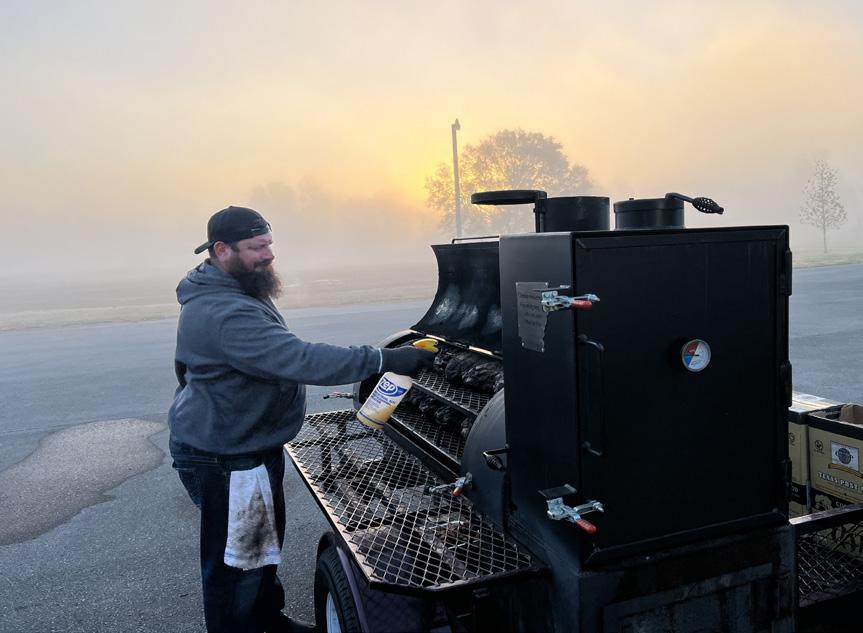

ange. The problem was a lot of people don’t use orange because they’re sitting there, going, ‘I don’t know what to do with that.’ I knew that was going to be a hurdle to get over.
“Well, here’s what I found with the orange variety. What do you like for breakfast? Put the orange on it. What do you like for lunch? Put the orange on it. Do you like cheeseburgers? Next time you make a cheeseburger at the house, put the orange pepper in the hamburger meat. I promise you won’t regret it. I’ll tell you this: We don’t use salt and pepper in my house anymore, and it’s not because we’re biased, but it’s because that orange can go on just about everything. It’s become the universal seasoning in our lineup.”
Also giving the line a lift is the “Made in Arkansas” tag, which Dillon said is a powerful draw for both locals looking to support their own and tourists seeking something to take home as a souvenir. He has also reinforced his brand awareness through his competitive barbecuing, as
“My wife was like, ‘Why don’t you create your own?’ I was like, ‘OK, you know, I’ll give it a go.’ It worked out really well, and I found I actually liked making my own flavors.”
well as various charity cooks he does for local fundraisers and as a thank you to emergency responders.
“Here locally, we cook for the Elkins Police Department, and we do those things for free,” he said. “We support their children’s fund and donate our time to Shop With a Cop or whatever we can do to help underprivileged children in the area. We like it when we get the opportunity to cook for whatever the fundraiser is. These people have tried to pay us, and we don’t take any money because that depletes away from the children’s fund.
“We want everybody to know that, hey, we are about barbecue, but ultimately, we’re a seasoning company that’s trying to just give back to the community, and we’re hoping that that pays off for us. My wife and I, we’ve got five kids, so we care about the kids in the community. We’re a small, family-owned company, you know, and it’s less about greed and more about enjoying what we’re doing. It’s all for good.”

INVESTMENT THAT
outdoor recreation GROWS
State parks director talks funding sources for
By Sarah DeClerk
Arkansas’ reputation as a haven for mountain biking and other outdoor pursuits generates significant revenue for the state. According to the Department of Parks, Heritage and Tourism, outdoor recreation has grown 33 percent since 2019 and now accounts for 2.5 percent of the state’s total gross domestic product.
In 2023, the outdoor recreation economy contributed $7.3 billion to the state’s GDP, supported more than 68,000 jobs and generated nearly 8 percent of all state tax revenue.
The impact of outdoor recreation in Arkansas is not lost on Gov. Sarah Huckabee Sanders, who in 2023 established the Natural State Initiative, chaired by first gentleman Bryan Sanders, to promote the state’s outdoor economy.
What drives the budgets of state agencies tasked with building and maintaining the pristine trails and state-of-the-art facilities that draw tourists from across the country and around the world?
Arkansas Money & Politics spoke with Shea Lewis, director of Arkansas State Parks and cabinet secretary at the Department of Parks, Heritage and Tourism, to find out how his agencies are managing costs while delivering an enhanced outdoor experience and whether current funding sources are sufficient to meet the needs of the growing outdoor economy.
Arkansas Money & Politics: What are the primary sources of funding for Arkansas State Parks and the Department of Parks, Heritage and Tourism, and how does that funding compare to other states?
Shea Lewis: Often, states compare themselves to each other, and we compare ourselves to other states, especially departments like state parks or divisions of tourism, things like that, just to see how other departments are set up. Arkansas is really positioned so well through the tax revenues that support us.
We are so fortunate to have Amendment 75, which is the conservation tax that supports our department. Since 1997, it has provided funds for our department and has really helped take care of the state parks system, the division
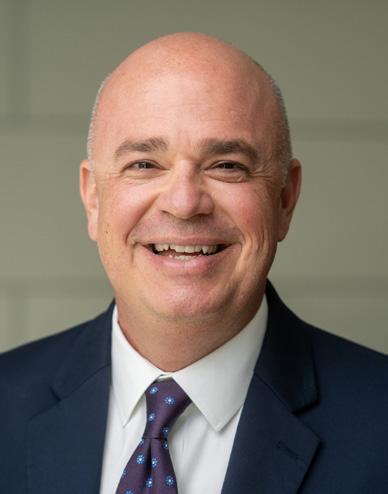
/ Photos provided by the Arkansas Department of Parks, Heritage and Tourism
The Delta Heritage Trail at Yancopin in Desha County.
Shea Lewis
of heritage and their programs, as well as Keep Arkansas Beautiful.
On the tourism side, we’re really fortunate to have the 2 percent tourism tax that collects a 2 percent tax on every hotel or overnight stay in the state of Arkansas. That money was created for the purpose of promotion of our state, so we take those dollars and then reinvest those in promotion and advertising of the state of Arkansas to bring more people in and generate more tax revenue.
We also have really consistent funding sources such as the ANCRC, the Arkansas Natural and Cultural Resources Council. For instance, this year, we received $30 million from them to support the care and management and operation of the division of state parks and the division of heritage.
We’re so fortunate to have all these funding sources, not to mention the cash resources that we receive. … Every dollar that we make from camping or gift shop
AMP: How has your budget been affected by the Grocery Tax Relief Act and other tax cuts?
Lewis: We will see a reduction in Amendment 75 collections there, but you know, when you’re looking at the big picture of what the governor is trying to accomplish, when you look at what inflation has done to us personally — and we also see it professionally in the things we buy in the department and for projects — I understand what she’s trying to accomplish here, and we certainly support the goals of tax reduction, especially a grocery tax that really creates the opportunity for more tax dollars to go back into the pockets of Arkansans.
What I would say is that we’re able to absorb any loss there, and the reason I’m able to do that is because over the last two years, we’ve seen those tax collections just continue to grow, and we’ve seen things come on board. A few years ago, Amazon internet purchases were not being taxed
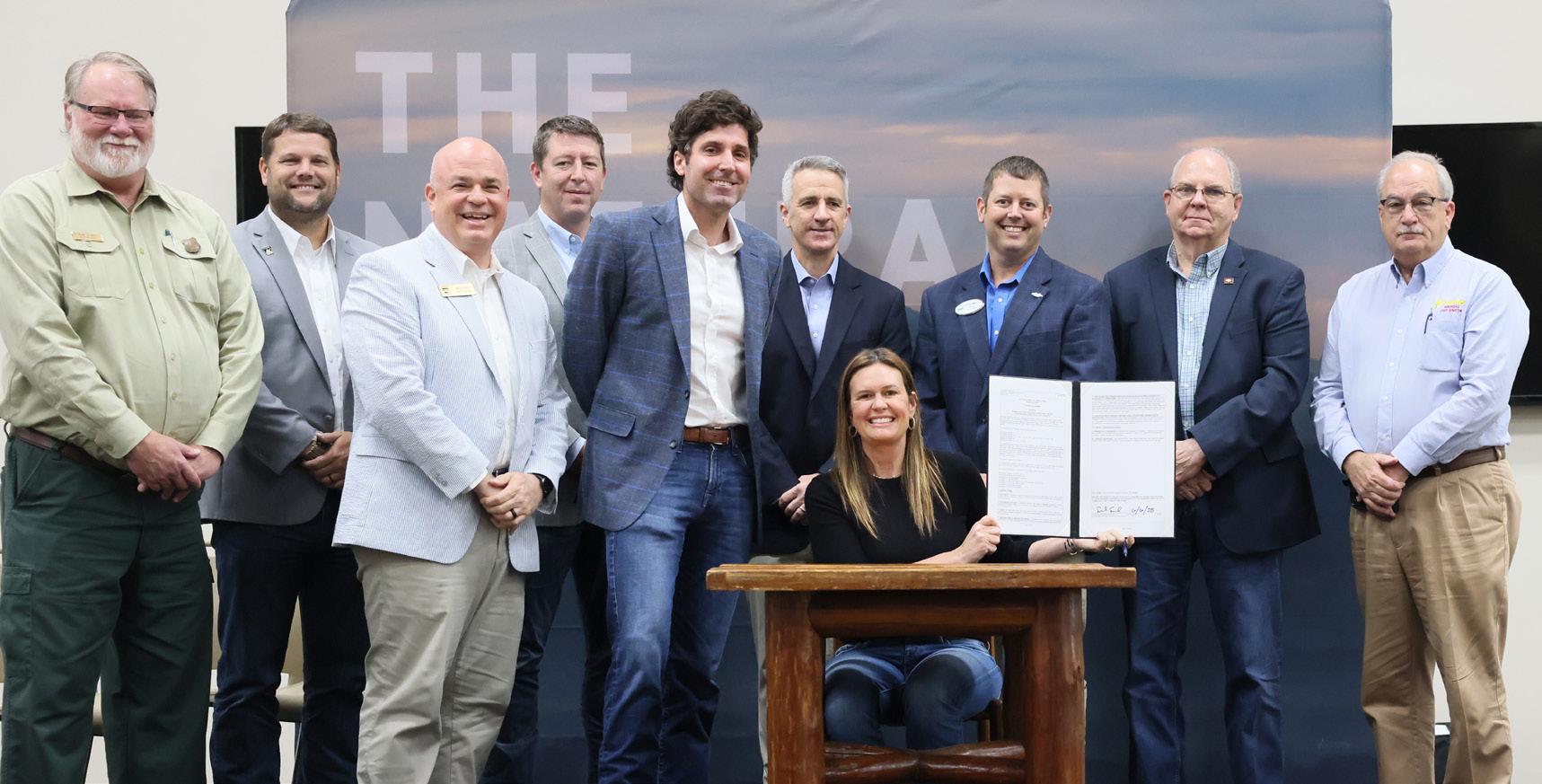
sales goes back into our state parks system to support it, so we’ve built new facilities and added new things. Our revenue has increased over time, and that makes a big difference. We do receive some general revenue, also, from the state of Arkansas.
in-state. Now they are, and that gave us a big boost a few years ago, so lots of these things kind of balance out over time.
AMP: How else have your funding sources changed over time?
Lewis: We adjust our rates according to the market that revolves around our facilities. We want to be competitive, but we want to be fair with our pricing, if that makes sense, so we have that adjustability to generate revenue.
Another factor that impacts tax revenue is the economy in general. The ANCRC funds that we receive come to us through the real estate transfer tax, so let’s say interest rates go up. Then homes don’t sell as much or as quickly, so we see lower tax collections in that area, and then we have to adjust the number of projects we can do in that time of year, so we see some fluctuations with the economy, and we just have to pay attention to those as we move through the fiscal year and adjust our budgets according to them.
It’s really not that much different from your own household budget. If something pops up, and you have to make a repair that costs a lot of money, then you reduce, perhaps, in another area to make sure you have the funds to cover that.
The other thing for our department that is really, really important is that we see a lot of fluctuation in projects specifically, and so we may have a big project at one time, but how that money gets spent through that project may span over a couple of fiscal years, so it could be that we have a very intense capital improvement budget one year. The next year, the load is a little bit lighter, the tax revenues build up, and then the next year, we can approach more projects at that time.
AMP: What kind of an impact have Arkansas State Parks and the Arkansas Department of Parks, Heritage and Tourism seen from inflation?
Lewis: We’ve seen costs increase just the same way you have. We’ve seen food costs in our restaurants go up. The cost of doing business has been higher, whether that’s maintenance and operation or capital improvement.
AMP: What are you doing to offset the rising costs?
Lewis: We’re being more mindful of how
With local and state officials in tow, Gov. Sarah Huckabee Sanders signed the permit for 65 Trails at Mena. (Photo by Nelson Chenault)
we’re spending our budgets and even our approach to budgeting. We’re working closely with our design consultants and architects and engineers for what we call “value engineering.” It’s spending the money on a project that really gets the most return on investment. We’re also placing a value in our facilities that are popular and are rented, that generate revenue for us.
AMP: What major projects are in the works currently?
Lewis: Delta Heritage Trail is a rails-totrails park in eastern Arkansas, 86-mile park, that is nearing completion. We have two areas under construction right now, and then one more will actually complete that project. We know that’s an investment
Ouachita National Forest at Mena and Queen Wilhelmina State Park for the largest downhill mountain bike park in the United States. It will have a lift structure where you put your bike on the back of the lift or on the lift with you and then ride it up to the top of the mountain and then follow gravity-flow trails, so that’s a pretty exciting project.
It’s being funded by Amendment 75, but we’re also looking for some other possible grant and funding sources to help fund that project, as well.
We’re going through a lodge renovation at Petit Jean State Park [in Morrilton] for Mather Lodge, so that’s a big investment there to bring that lodge up to modern standards, and it’s a well-loved facility and historic facility.

in eastern Arkansas. It’s an investment in our outdoor recreation economy that we’re really leaning into a lot, and it’s going to be a great resource in eastern Arkansas.
A lot of it has been funded through a grant with the Walton Family Foundation and with the federal Department of Transportation, so it’s very exciting. We hope to see it complete in the next 18 months or so.
The Trails at Mena project, you may have heard of it. We just assigned a specialuse permit with the U.S. Forest Service at
AMP: How do you expect first gentleman Bryan Sanders’ work to grow the state’s outdoor economy to impact your funding needs?
Lewis: The governor created the Natural State Initiative, which he chairs, and really, what that has helped us do is find partners in the way we work, so working closely with the Department of Commerce in growing the outdoor economy, working with the Arkansas Game and Fish Commission on partnership-type projects and things like that. I’m trying to work with public and
nonprofits in partnership, as well.
It has really brought us together to have one vision and one mindset for the outdoor recreation economy in the state of Arkansas, and if you think about it, it provides opportunities for us to really own that area in what people have really learned what Arkansas is all about.
AMP: With the heightened focus on outdoor recreation, do you expect your funding needs to increase?
Lewis: I don’t necessarily feel that. If we do our jobs correctly, the funding will increase. If we promote the state in the best way possible, if we continue to elevate the image of Arkansas across the nation and around the world, we’ll see more tourists and visitors come to the state of Arkansas, and then that’s going to generate more revenue for us and tax dollars associated with that.
Same thing in the state park system — if we continue to promote the state parks system well, we take care of the facilities that we have, we provide unique entrylevel outdoor recreation experiences, we’ll generate more revenue, more visitation, more use, again, that we can put back into our system, so I don’t feel that way.
At the same time, I want us to use tax dollars the best way possible and seek return on investment. We will also seek out any other partnerships or grants to help the department be successful.
AMP: Do you expect the conservation tax as it exists today will be sufficient to meet your needs?
Lewis: Yes, I feel like we’re in a good position with it, and you know, as I mentioned earlier, we may see a shift in some of those funds more toward maintenance and operation and less capital improvement as we continue, but we’ll still need those funds, you know, with all the facilities that we have in the system to take care of, the museums in the Division of Arkansas Heritage. We’ll still need those funds, but at this point in time, I feel that we are in a very good place on a solid foundation for the future.
Mather Lodge, Petit Jean State Park
ENDLESS POSSIBILITIES
529 PLAN PROVIDES PATH TO EDUCATION AT ANY AGE
By Chris Scott
One of the best parts about being a dad but also one of the toughest is watching your kids grow up. That bittersweet thought especially comes up during back-to-school season. My kids, Aili and Chance, have big dreams that are ever changing. My daughter is becoming a preteen firecracker. She is fiercely talented with a passion for music and art. My son has different dreams. He wants to be an astrophysicist, unlocking the secrets of the universe while making time for video games too.
As parents watch their children grow, questions start to creep in: “Am I doing a good job?” “Will their future careers be sustainable?” “Am I preparing them well?”
September is College Savings Month, and there is no better time for families to start putting their financial future into focus. The cost of education is not getting any cheaper. On average, Arkansans could pay as little as $5,000 to pursue a trade career or more than $10,000 per year for a traditional four-year degree, according to the Education Data Initiative.
My dreams, like my kids’, have changed over time. A younger version of myself would have been surprised to learn I am in public finance. Now I am thrilled to manage the Arkansas Brighter Future 529 Plan in the Arkansas treasurer of state’s office and educate our community about the importance of saving for their loved ones’ futures. I personally know how important it is to take advantage of this program as both a parent and an account holder for my children. Every time I contribute to my children’s 529 accounts, I make another promise that their future matters to me today.
The Brighter Future 529 Plan gives flexibility to choose your path, change your mind and reinvent your future. This taxadvantaged savings and investment account helps you plan and prepare for whatever career is chosen, whether it is a child’s or your own. Whether you are pursuing a

traditional degree or going the trade, technical or vocational route, the account funds can be used for many things, such as tuition, books, housing, equipment, registered apprenticeship programs and even student loan debt repayment. For any qualified withdrawals, earnings and withdrawals could be tax free, which can mean more money for you or your children’s educational pursuits. Personal financial wellness can and should be the foundation to a secure future. Having financial wellness means being in control of your cash flow, being on track to meet your financial goals and having the flexibility to adjust your budget as needed. The possibilities are nearly endless; no matter whose dreams they are, you can make sure those dreams have everything they need to succeed.
Other benefits to an Arkansas Brighter Future 529 Plan include:
• Education options: Having a reliable way to finance you or your children’s education goals can make a big difference. Over just 10 years, a person could save hundreds if not thousands of dollars to use towards K-12 private school tuition, college, university, trade school, apprenticeship or student loan debt.
• Flexible spending: There is no minimum monthly contribution frequency or amount requirement for a 529 account unless payments are made through a recurring payroll process or automatic withdrawals from a personal bank account. A person may change, stop or pause contributions to the account at any time.
• Tax benefits: Arkansas taxpayers who contribute may be eligible to deduct up to $5,000 individually or up to $10,000 for married couples filing jointly each year from their adjusted gross state income on their state tax return. Arkansas taxpayers may choose to deduct more and have the option to carry the difference forward in subsequent years. Always check with a tax professional to see what option works best for you.
Friends and family can directly and securely contribute to a 529 account and help invest in their child’s future with Ugift, as well. Each account includes a unique Ugift link that can be easily shared via text message, social media or email, enabling loved ones to make secure onetime or recurring contributions. What is more, contributors in Arkansas may also take advantage of the state tax benefit.
There is an indescribable feeling of accomplishment and relief when you know that you or your loved ones will be prepared for whatever life throws at them. Personally, knowing that my contributions will make a difference for my children’s future is something I hope every parent experiences.
To learn more or open an account, visit brighterfuturedirect529.com or call 800-587-7301.
Chris Scott is manager of the Arkansas Brighter Future 529 Plan and financial education at the Arkansas treasurer of state’s office.
Chris Scott with his children, Aili and Chance. (Photo provided)
THE DEBATE RAGES ON
GROUPS, GOVERNMENT AT ODDS OVER CHILDHOOD VACCINATIONS
By Dwain Hebda
In America, childhood vaccinations have been as much a part of growing up as losing baby teeth for generations. Today, however, opposition to the onceconsidered-routine battery of inoculations is reaching a crescendo in Washington and in the process blurring the line between politics and medicine.
Of all the lingering effects of COVID-19, arguably the most vitriolic remains the fasttracked vaccine that has come to symbolize a constitutional issue as much as a matter of health for a large number of Americans. The issue has divided the nation into bitter disputes about not only that vaccine but has seeped into a wider discussion of the need for and safety of existing pediatric vaccines that some parents are starting to see as excessive.
The rise of the discussion is frustrating to medical professionals such as Dr. Robert Hopkins, for decades a professor of internal medicine and pediatrics at the University of Arkansas for Medical Sciences in Little Rock.
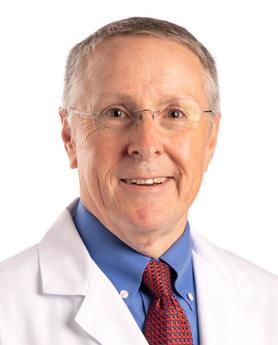
“I think if people have questions or doubts or need information, it’s healthy to have those discussions,” he said. “Clearly, we should not run roughshod over parents. If parents have questions about vaccines, we need to have that discussion about what their questions are, and we need to try to answer those questions to their satisfaction. That’s healthy.
“What is not healthy is leadership of the [U.S.] Department of Health and Human Services and certain media outlets bashing vaccines and getting information out that is truly false and not being willing to listen to the facts from the scientists, the facts from the studies … on the great enhancements we’ve had in our abilities to protect our children and adults.”
The current debate about vaccines may be new, but the substances themselves are not, the first ones having been developed shortly after the birth of the American republic. That first vaccine, developed against smallpox, appeared in 1796.
“Smallpox used to, in our days before vaccination, kill well over a million people a year in the world,” Hopkins said. “Smallpox was basically what wiped out a lot of the Native American population of what’s now the United States, and it was introduced by some of the early explorers. It was a devastating disease.”
The advancements that followed saved countless millions against the ravages of diseases that once decimated humanity. Unlike the smallpox vaccine, however, these other inoculations merely controlled diseases but have yet to eradicate them.
“We’ve had very good success with control of measles and polio, both of which were devastating diseases,” Hopkins said. “Measles hospitalized many thousands of children a year, killed thousands. Polio caused paralysis and death in hundreds of thousands of kids. The way that we control those is by continuing to vaccinate, continuing to get high levels of protection in our community because both of those diseases are not eradicated from the world.”
Hopkins noted that the vaccine development period can be a long one, starting in the lab and advancing through various medical and regulatory channels to finally arrive at a viable substance that has been deemed safe for use on humans. That process has made for remarkable improvements in reducing the instance of certain diseases down to nearly zero, often with childhood doses providing benefit over a person’s entire lifetime.
“Polio continues to circulate in some small areas, primarily in Africa and in the Middle East, but other than that, it’s pretty well controlled,” Hopkins said.
“The problem with polio is it’s a very difficult disease to eradicate. Our vaccines that we have in the United States right now for polio are very safe. They are nonlive vaccines that require a series of shots in childhood but that provide immunity that lasts essentially for a lifetime.
“Measles is the most infectious disease of humans that we know of, and again, we have a very safe and successful vaccine, the measles, mumps, rubella vaccine. The measles vaccine is so effective that if you get one dose, 93 percent of folks are going to be protected for life.”
Vaccines have always had their skeptics and detractors, but the efficacy over time of vaccines largely relegated them to the fringe. COVID-19, however, seemed to give such arguments new vigor as opponents pointed to the fast-tracked manner in which the vaccines were developed and what they see as lack of transparency about risks and subsequent health impacts among the vaccinated and boosted.
Asked if as a physician he would be leery of a new vaccine that was produced in mere months, Hopkins said the circumstances of COVID-19 brought unusual resources to bear for the development of the drugs, which explains their swift development and approval, plus subsequent tests have further validated their veracity.
“Well, the process was definitely compressed. A lot of those steps … are independent steps, and they did them in parallel instead of in series during the pandemic. We were having millions of people die, so we needed to get this out quickly,” he said.
“To date in the United States, over a billion doses of COVID vaccine have been administered. The [Centers for Disease Control and Prevention] and the [Food and Drug Administration] alone have done hundreds and hundreds of studies looking at the safety of these vaccines, and we know that a small number of primarily
Dr. Robert Hopkins
young men can develop some heart injury that tends to be mild and tends to go away. There have been no other side effects for this vaccine that tend to be persistent other than the fact we know this vaccine commonly causes fever, sore arm. Sometimes people can have an allergic reaction to this vaccine like you could to anything.”
Both sides of the political aisle weighed in on partisan grounds, and those at the highest level of either side did little to win over converts. In 2021, then-President Joe Biden overstated the benefit of the COVID-19 vaccine via a CNN town hall, offering absolute guarantees that even the mainstream media had to admit went too far and solidified opposing views.
“If you’re vaccinated, you’re not going to be hospitalized, you’re not going to be in the [intensive care] unit, and you’re not going to die,” Biden said at one point, adding, “You’re not going to get COVID if you have these vaccinations.”
Biden further widened the chasm between the two camps in fall of 2021, when he specifically chastised unvaccinated Americans in a televised address, saying, “We’ve been patient, but our patience is wearing thin, and your refusal has cost all of us.”
Not to be outdone, President Donald Trump has also waffled on the matter. While his political opponents are loathe to admit it, Trump’s Operation Warp Speed produced the COVID-19 vaccine with breathtaking speed, and as the BBC noted in 2021, his initial order of 500 million doses from Pfizer-BioNTech, Johnson & Johnson, and Moderna was enough to vaccinate every American older than 12. An additional advance order of 400 million doses of the then-forthcoming Novavax and AstraZeneca versions dwarfed subsequent orders by his successor.
Trump himself was vaccinated and boosted against COVID-19, a fact that was unpopular among many in his conservative base. During his second term, the president has preached drug company accountability, most recently on Aug. 31, when he demanded the companies that developed the vaccine to show definitive data supporting the vaccine’s safety and effectiveness.
“It is very important that the drug companies justify the success of their various COVID drugs,” he wrote on Truth Social.
“Many people think they are a miracle that saved millions of lives. Others disagree! With CDC being ripped apart over this question, I want the answer, and I want it NOW.”
Political ideologies are not the only wedge between Americans on the vaccination issue, although some are decidedly overblown. Many in the pro-vax crowd painted the other side as victims of religious fanaticism, brainwashed by the fundamentalist dictates of their church over science. In fact, none of the world’s major religions expressly forbid their congregations from getting vaccinated. A 2021 study by Vanderbilt University Medical Center in Tennessee identified only five obscure churches out of hundreds of faiths on the planet that do.
Vaccine skeptics, on the other hand, claim intrusion on their civil liberties to require vaccines for certain social activities, including their children being required to get a list of shots to attend public school. That is also exaggerated, since parents can seek exemption from such requirements. In Arkansas, the process entails a written application each year to be adjudicated by the state department of education. According to recent numbers, families are executing their option at an accelerated rate.
According to the ADE Data Center, 6,600 students were exempted from immunization requirements in 2019-2020 under Act 676 of 2019, a number that dipped slightly in 2020-2021 before stair-stepping the past four years to 7,100 in 2021-2022; 8,300 in 2022-2023; 9,900 in 2023-2024; and 11,500 last school year. Arkansas is not an outlier; a 2025 Johns Hopkins study found MMR vaccination rates have declined in 78 percent of U.S. counties since 2019, and only 11 states last year achieved the 95 percent vaccination rate needed in kindergartens to achieve herd immunity, the Centers for Disease Control and Prevention states.
Most recently, the debate about the current slate of vaccines has come to a head due to Health and Human Services Secretary Robert F. Kennedy Jr.’s questioning of the need for and long-term effects of vaccines and for his founding the Children’s Health Defense, a nonprofit dedicated to addressing “childhood chronic disease and toxic exposures.”
Kennedy is on record insisting he not anti-vaccine but that there is room for discussion and examination of protocols for new vaccines, as well looking at the need and safety of existing ones. In August, Kennedy reestablished the Task Force on Safer Childhood Vaccines for that purpose. The panel had operated from the mid-1980s through the late 1990s. The purpose of the panel is to “improve the safety, quality and oversight of vaccines administered to American children” according to an HHS statement.
One issue behind this move was the growth in the number of vaccinations children receive. According to the Children’s Health Defense, children received five doses of vaccine addressing three categories of disease in 1962. By 1989, that had grown to 24 doses across five disease categories. In 2024, the number sits at 77 doses plus 8 more recommended during pregnancy for a total of 85 doses between in utero and 17 years of age, including multiple influenza and COVID-19 inoculations.
Hopkins said the rise in required shots is a simple case of science developing serums to prevent or lessen more diseases. He said the bigger threat lies in misinformation given to parents that open their children up to diseases once under control, such as a recent measles outbreak in the U.S. that has reached at least 1,300 cases, giving such conditions a new foothold in society.
“We have developed better mouse traps, but we’ve also developed more mouse traps. We catch the red mice, the green mice, the blue mice, the purple mice, and also some of the rats and some of the fleas,” he said. “We’re able to protect our children against so many more diseases than we could before. The norm is still vaccination, but we have a number of communities where there is hesitancy, and there are high proportions of people in that community that are not vaccinating their children.
“Part of the challenge is we have increasing hesitancy, and a lot of it boils down to people who have never seen a case of measles. Well, the absence of seeing something means it doesn’t exist, right, and that’s obviously being facetious, but a lot of people perceive things that way. I’ve never seen this, so it must not be a problem.”
A HigH BencH m A rk
The surprisingly steep cost of running for judicial office in Arkansas

By Dwain Hebda
The cost of running for elected office has spiraled skyward over the past few election cycles. In 2000, congressional and presidential candidates combined spent what was then thought the princely sum of $4.6 billion, according to The Conversation. Little could anyone imagine that by 2024, that figure would grow to between $11 billion and $16 billion, depending on the reporting source.
Other than governor’s races, local and state campaigns generally do not require seven-figure budgets, but the cost of running for office is higher than many people probably think. That includes various races in the Arkansas judiciary, such as those currently being undertaken by Arkansas Circuit judges Hugh Finkelstein and Lucas Rowan.
“I think the minimum amount one needs to run a serious campaign at the circuit judge level is around $100,000,” said Finkelstein, who is running for Division 2 of the 6th Judicial Circuit. “That’s within this judicial district. There are some judicial districts that are one county and they’re smaller, and they don’t require as much coverage, but with Pulaski and Perry counties, it’s a pretty big amount that you have to raise.”
One element of cost for candidates is the filing fee, which can run into five figures depending on the office sought. In Arkansas, judiciary filing fees are determined by the salary earned by that elected officeholder, the 2024 edition of Running for Public Office guidelines published by the state board of election commissioners states. Supreme Court justices and the chief justice, for example, pay 6 percent of their annual salary as a filing fee; Court of Appeals judges and Circuit Court judges pay 5 percent and 4 percent, respectively; and state and local district judges pay 3 percent of the office’s annual salary to file.
Based on 2022-2023 fiscal year annual salary figures published by the state board of election commissioners, that translates to $13,200 for the chief justice of the Arkansas Supreme Court; $12,200 for Supreme Court associate justices; $9,880 for Court of Appeals judges; $7,720 for Circuit Court judges; and between $5,070 and $4,680 for state district judges, on down to Prosecuting Attorney Division A and B.
“Each state has a different model about the judiciary,” said Judge Tim Fox of Division 6 of the 6th Judicial Circuit. “Some states elect their judges at all levels, which includes Arkansas. We’ve always done that. Some states pretty much
appoint their judges at all levels. Some states elect their trial judges, but their appellate judges are by appointment, and then sometimes the governor gets to pick them in some states, and sometimes it’s an independent commission.”
Having changed from partisan to nonpartisan races due to passage of Amendment 80 in 2000, judicial candidates cannot have their campaign coffers bolstered by political parties the way partisan candidates can. However, judicial candidates have another option besides the filing fee, which is to gain a prescribed number of petition signatures.
That process, referred to as “alternative ballot access,” requires Supreme Court candidates to gather at least 3 percent of qualified electors statewide. Court of Appeals and Circuit judge candidates are required to gather a minimum of 3 percent of qualified electors within their respective jurisdictions. District judge candidates must gather at least 1 percent of qualified elector signatures within their district.
Both Rowan and Finkelstein are pursuing the alternate ballot access route, which is in and of itself a complicated procedure that is not without its own built-in expenses.
“Getting 2,000 signatures is a very difficult task. As a matter of fact, two candidates that I know of in Pulaski County during the last election cycle attempted to get signatures but did not reach 2,000,” Rowan said “I’m doing kind of a dual track. I am gathering petitions, although I’m also prepared to pay the money if that’s what ends up needing to happen. It is a significant investment but one that I’m prepared to make.”
Rowan said while the cost of running is not unsubstantial, it does serve a purpose that helps keep elections from getting bogged down like they would if the barrier to entry was very low.
“You know, you hear about some people who run for president or something who have no real chance to do it. They’re just doing it for whatever reason,” he said. “Having the fees in place does make sure that if you are doing it, you have to be at least somewhat serious about running. That is one benefit.”
The election process is full of other lesser-known idiosyncrasies. Rowan and Finkelstein, for example, were both appointed to their posts by Gov. Sarah Huckabee Sanders. By state law, they are prohibited from running for reelection in those offices, but because both were appointed at the same time, their offices are up for grabs simultaneously, so they are running for each other’s current post.
Campaigning carries its own battery of guidelines and restrictions to help ensure candidates are not swayed by the size of donations from any given party.
“With judicial elections, the oddity is that the candidate cannot ask for money from anybody. The committee to elect is the entity that has to do that,” Finkelstein said. “It’s just an oddity. You go to a fundraiser as a judge, you meet everyone, you talk for a few minutes, you tell them about yourself, and then you have a surrogate come up. When that happens, you leave the room. You are not in the room when the surrogate does the ask and talks about money.”
Fox said partisan offices have their own vagaries when it comes to candidates. For example, the difference in filing fees depending on the party’s relative strength of representation.
“It used to be that if you wanted to be on the Democratic ticket [in Arkansas],
those filing fees were really high, and the Republican ones were pretty low because they pretty much wanted anybody who wanted to run,” he said. “You want to talk about a 180-degree turnaround? It’s completely flipped now.”
To wit, Conduit News reported this summer that the state GOP is cashing in on its dominance in recent election cycles, noting the Republican Party of Arkansas Executive Committee approved major spikes in the fee that allows a candidate to appear on the Republican ballot. The filing fee for candidates for U.S. Senate ($40,000), lieutenant governor ($25,000) and state attorney general ($25,000) all doubled over previous amounts, while those running for governor now pay a $40,000 filing fee, representing a staggering 167 percent increase.
Democrat candidates, which have been in the super minority in the legislature and hold none of Arkansas’ state executive offices or Congressional seats, are charged a mere $5,000 to run for governor, $5,200 to run for U.S. Senate, $1,750 to run for the U.S. House of Representatives and a paltry $700 to run for the Statehouse.
“What I’ve always found interesting is the monies from the nonpartisan candidates are to go to the state treasury to help offset part of the costs of the nonpartisan elections,” Fox said. “Political parties get to set their own fees for partisan candidates to pay, and I believe this is a true statement that the parties get to keep every single penny of that for their legitimate purposes, such as funding party outreach and public relations and staff and everything. Meanwhile, nonpartisan
“i TH ink TH e minimum A moun T one needs To run A serious c A mpA ign AT
e circui T judge level is A round $100,000.” — Judge Hugh Finkelstein
candidates have the petition option that partisan candidates don’t have.
“I mean, I’m not a legislator, and I’m not in charge of public policy and I’m glad for the folks that do that. This is me being a political science nerd from my college days back at Hendrix [College in Conway] when I say that I always found that interesting.”
Neither Finkelstein nor Rowan claimed to be enamored with the campaigning part of their jobs but regarded it as simply a necessary means of gaining the right to serve the public from the bench. They both credited their volunteers and especially their spouses for allowing them to devote the kind of time and resources it takes to earn that privilege.
“I’ve always considered it the pinnacle for a trial lawyer to be a judge,” Rowan said, “but now that I’ve been in it for six or seven months, it is also highly rewarding knowing I’m giving lawyers their chance to do their job well and for people to get a resolution in their case so they can move on. It has been a lot more rewarding than I even thought it was going to be before I got into it.”
“My whole career has been public service, and I look at this job as the capstone of serving the state of Arkansas,” Finkelstein said. “I can tell you that — I’m not going to use the word trauma — but the disappointment from losing in 2020 was still lingering when I got this appointment, and my wife and I almost immediately talked about what would come after it — that is, running for reelection even though it is a long road that takes a lot of time and resources. I just really want to do this job.”

CAUGHT in the CROSSFIRE
Uncertainty clouds the future of Razorback football in Little Rock
By Doug Crise

In welcoming a newfangled Southeastern Conference football schedule, Hunter Yurachek, athletics director at the University of Arkansas in Fayetteville, seemingly fired a shot across the bow of those hoping to keep the Razorbacks at Little Rock’s War Memorial Stadium, even if just for one game a season.
When SEC Commissioner Greg Sankey announced on Aug. 21 that the conference would tack an additional conference game onto each team’s schedule starting in 2026, Yurachek quickly followed up with a written statement applauding the move and welcoming “five Power 4 games every season at Razorback Stadium.”
Therein lies the message. Take nine

SEC games — four or five home SEC games, depending on the year, and up to three nonconference games in Fayetteville, and it is clear that the math does not add up for Little Rock. The Hogs’ lone scheduled game at War Memorial as of press time was a Sept. 6 matchup with Arkansas State. The university was in an agreement with the Arkansas Department of Parks, Heritage and Tourism — which operates the stadium — to maintain a football presence through 2025, and there has thus far been no indication the contract will be renewed.
Asked about the future of Little Rock games, Yurachek appeared to walk back his earlier statement and was noncommittal about the Razorbacks’ future in


Little Rock. War Memorial has not been sold out for the Razorbacks in many years, and recent years have seen games against weaker nonconference opponents struggle to draw 40,000 fans.
“We’ve kind of put on hold what the future of games in Little Rock looks like until we’re able to solidify our SEC schedule,” he said. “The fact that we don’t have any future games on the schedule right now doesn’t mean that there’ll never be another game played over there. We just need to make really smart decisions with our football schedules moving forward.”
The scheduling of Arkansas State in Little Rock galvanized some considering the state’s largest Division I institutions had never played each other in football’s modern era, but an uneasy silence looms over the game, neither the UA nor the stewards of War Memorial Stadium saying much about any future agreement.
If the future of Little Rock Razorback games is left to wither in uncertainty, it would represent an ignominious end to a relationship that stretches back to 1948. The stadium itself lost a bargaining chip when it was unable to meet new requirements for hosting SEC games, creating the current relationship in which War Memorial has hosted a single nonconference game per year.
“The decision will not be made by an athletic director,” said Rex Nelson, Arkansas Democrat-Gazette columnist and Little Rock Touchdown Club co-founder, who serves unofficially as the state’s sports historian. “Athletic directors are always going to go in the area where they can make the most money, and that is obviously going to be Fayetteville. Any decision now will be made by the [UA] board of trustees. We know what Hunter Yura-
An old clipping from the Hogs’ first game at War Memorial in 1948, top, and an aerial view of the stadium from the milestone LSU game in 2010. (Photos provided by War Memorial Stadium)
at Little Rock Parkview and Little Rock Catholic; the Little Rock Rangers USL 2 soccer team; and it hosts the occasional major concert such as Guns ‘N Roses. (Photos provided)


chek thinks, but he’s not going to be the one to make the decision.”
The stadium has taken hits outside of the Razorback realm, as well. In March, the Benton and Bryant school districts announced the annual “Salt Bowl,” pitting the Saline County rivals, would be moved to school campuses and no longer be played at War Memorial, where the game annually drew close to 30,000 fans. Unofficially, concerns over security may have driven the issue.
“I think they’re going to find that those stadiums in Saline County are totally inadequate for the number of people that want to see that game,” Nelson said. “I think that was a huge strategic mistake that was driven by things that just aren’t true. That, I think, will be back on the table.”
It all prompts questions about what the future holds for the venerable Little Rock landmark.
“We see it continuing to be an important part of central Arkansas,” said Shea Lewis, director of Arkansas Parks, Heritage and Tourism.
Lewis said he feels the stadium has


kept pace with technology, as well as the expectations of patrons, noting recent improvements to security systems, the scoreboard and video board plus deals with David’s Burgers and Ol’ Bart Southern Eats to bolster concessions.
“We’ll continue to work with the university in any way possible,” Lewis said. “We’re an open door, and we’re ready to have discussions at any time.”
Other stadium tenants are considering their long-term options. The University of Arkansas at Pine Bluff last played at War Memorial a year ago, a 70-0 loss to the Razorbacks before an official crowd of 40,127. The Golden Lions faced the Hogs in Little Rock in 2021, as well, losing 45-3 before 42,576. UAPB also hosted conference rival Grambling at the stadium during the early 2000s, an event that attracted fans from both schools, but the last of those came in 2010.
UAPB did not return emails asking for comment on their relationship with the stadium. Division III Hendrix College in Conway began playing a single conference game per season at War Memorial
but has not scheduled any game there for 2025, although the Southern Collegiate Athletic Conference, of which Hendrix is a member, will hold its championship game in Little Rock Nov. 15.
Another resident of War Memorial, the Little Rock Rangers Soccer Club, is stuck between a rock and a hard place. The organization has called the stadium home since its inception in 2016 and has a small but loyal following throughout the central Arkansas area.
Jonathan Wardlaw, president and general manager of the Rangers, said his club is happy at War Memorial, but the future is uncertain. The Rangers currently play in USL League Two, which calls for strictly amateur players.
“Our league wants Little Rock to move up to the professional side of things very badly,” Wardlaw said.
Wardlaw said a move up to the professional tier would lead to more games and more fan support, but it requires an ownership group of 35 percent or more that is willing to provide $25 million in financing. Finding investors would not be too
Today, the stadium serves as the home field for, clockwise from top left, the football teams
difficult, Wardlaw said, but the move up means stricter requirements for field dimensions and host-site amenities.
“As crazy as it sounds, there is no place in Little Rock or North Little Rock that meets the field dimension requirements,” Wardlaw said. “War Memorial Stadium is the closest, but they just don’t meet the field requirement.”
Wardlaw said that at the beginning, the club paid $500 to reserve the field and $300 for stadium lights. He estimated that the total cost per match came to about $3,000.
That cost, Wardlaw said, is now closer to $4,000 per match. He does not blame stadium management, saying the rising costs are reflective of current economic conditions, but with the path to an upper division shut unless a new facility is built, Wardlaw said the Rangers are trying to
“We see it continuing to be an important part of central Arkansas.”
— Shea Lewis, director of Arkansas Parks, Heritage and Tourism
hang onto War Memorial as the price of doing business goes up.
“It’s not like it’s gone up every year crazy high,” Wardlaw said, “but what we pay has gone up every year. It’s not crazy, but I’m still running a minor league soccer team in Little Rock, Arkansas, so fans are not necessarily growing as rapidly as the rent is.”
The stadium’s more traditional relationships appear solidified. Steve Straessle, head of school at Catholic High School for Boys in Little Rock, said the school is happy to continue playing football games at War Memorial, calling the stadium part of the fabric of the school itself.
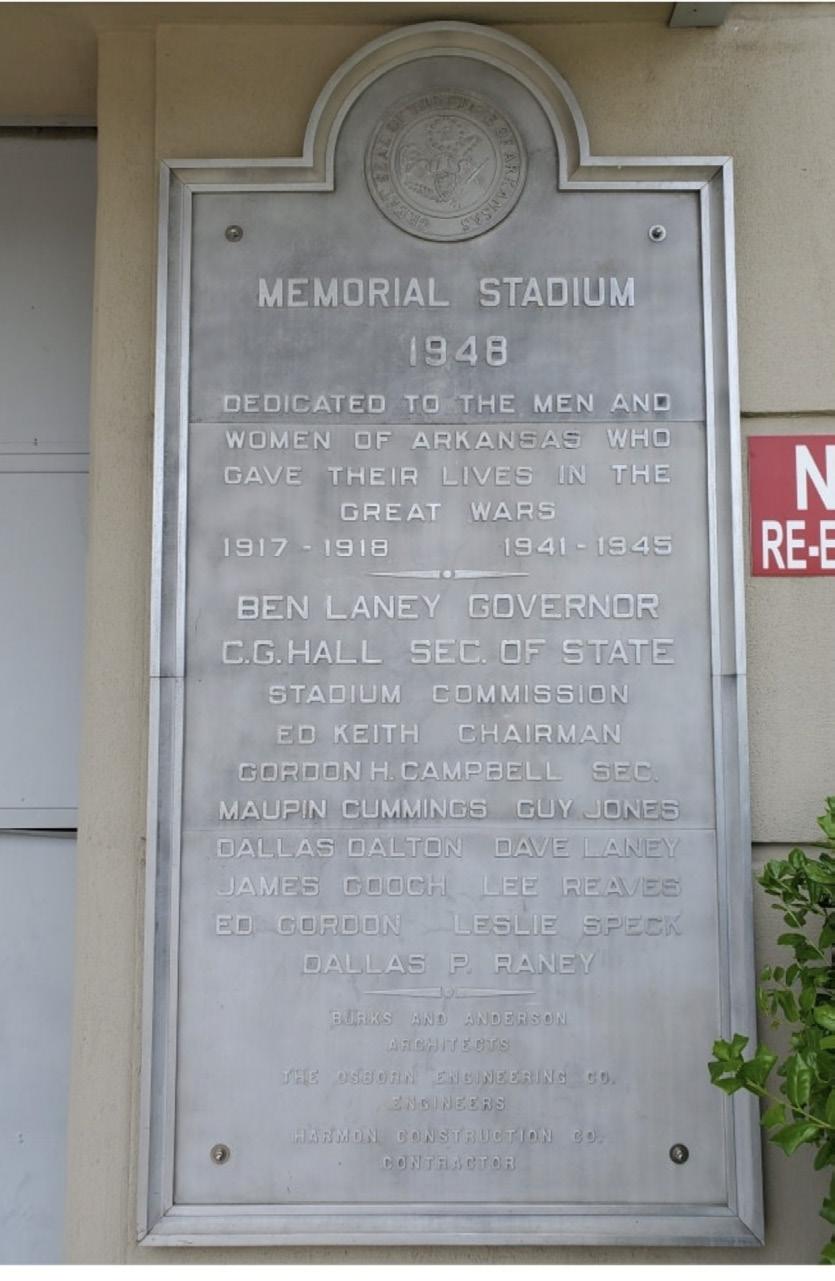
“It’s business as usual for us,” Strassle said. “We’ve had a long relationship with the stadium, and it’s been positive throughout that time. Their staff to this day is just extraordinary and very kind in all respects, and they’ve treated us very well.”
The Arkansas Activities Association is also a happy tenant, according to assistant stadium manager John Latch. The AAA has traditionally used the stadium for all seven of its high school football championships, and Latch said the coming years will bring new turf and new LED lights to further enhance the experience.
“We have a long-term contract with them,” Latch said. “We love hosting those games. When those players walk onto the field for the first time to play a state championship game, their faces just light up.”
As for the future of Razorbacks football, Nelson said the fallout from ending the relationship would
go beyond economics and impact the state’s culture as a whole.
“To be a statewide program in football, I think giving those people from east Arkansas and south Arkansas who can’t afford to go to Fayetteville is important,” Nelson said. “I think the passion in those areas of the state that you used to see for Razorback football has diminished considerably the past few decades.”
Nelson said it will not be the fault of the stadium’s controlling interests if a deal with the university does not get done.
“You have an athletic director and a head coach [Sam Pittman] that don’t want it to succeed and be an annual thing in Arkansas,” Nelson said.
Yurachek said he holds no such animosity and understands “how important War Memorial Stadium has been throughout the years.”
Yet college football is in the midst of warp-speed change. The players are now able to cut themselves a slice of the game’s ever-growing profits thanks to name, image and likeness legislation, and a June settlement from the House vs. NCAA lawsuit opened the door to schools sharing revenue with their athletes.
The stakes have gone up in an already high-stakes game, and until a decision comes from the university, War Memorial Stadium remains caught in the middle.
“It’s not all about dollars and cents,” Yurachek said, “but when you’re in this era of sharing 20 1/2 million dollars of revenue with student athletes and providing 2 1/2 dollars of new scholarships to student athletes, you really have to look at the bottom line and what venue gives you the best opportunity to maximize your revenue for a specific game.”
The stadium was dedicated to the memories of the men and women who lost their lives serving the country in World Wars I and II.(Photos provided)
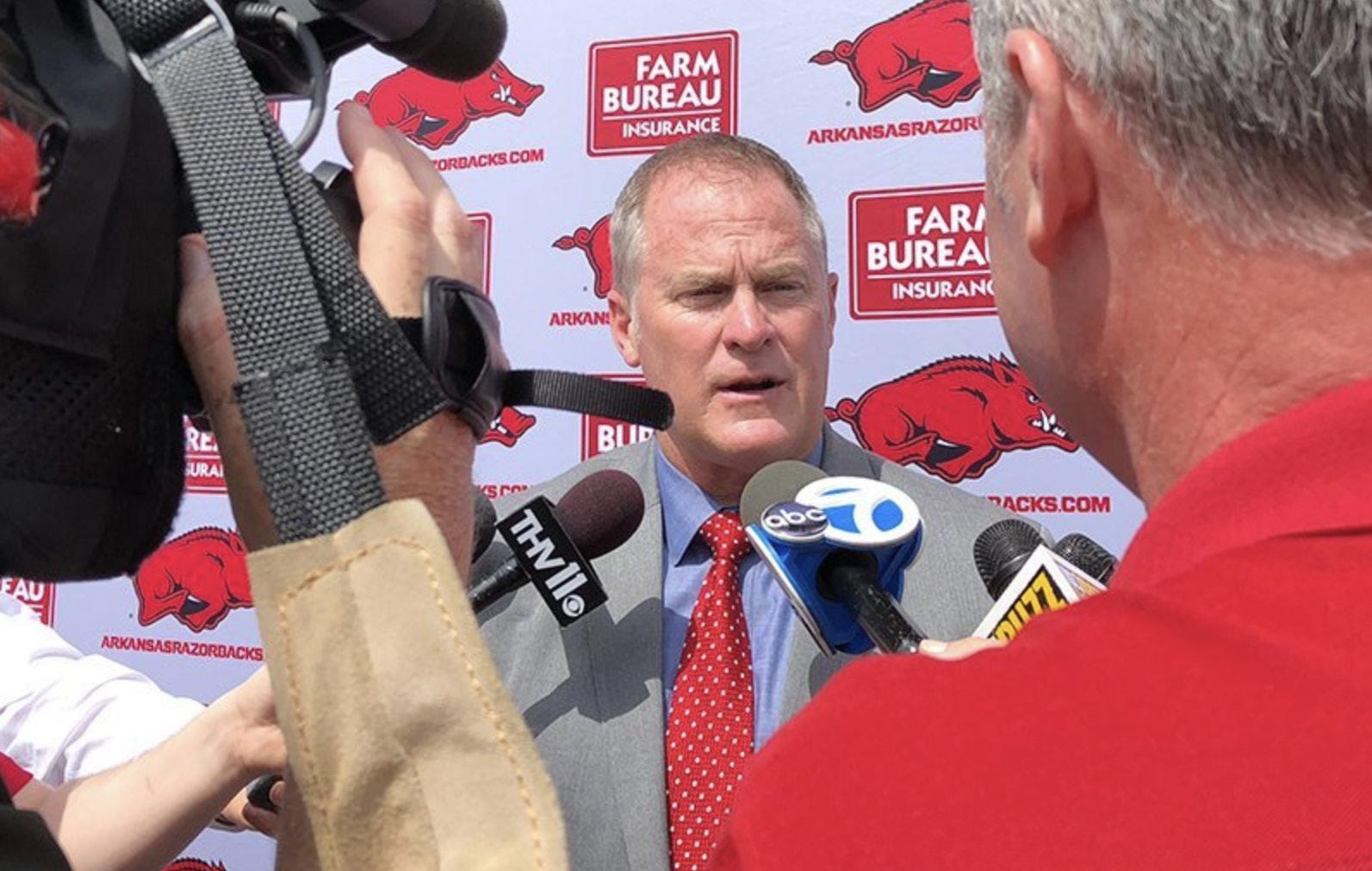
By Dwain Hebda
Over eight years leading the athletic department at the University of Arkansas in Fayetteville, Vice Chancellor and Director of Athletics Hunter Yurachek has amassed a record any university would be proud of, from championships and grade point averages to navigating the increasingly treacherous waters of collegiate athletics.
Last school year alone, six Arkansas teams made deep runs in the NCAA postseason, men’s basketball reaching the Sweet 16 for the fourth time in five years during Coach John Calipari’s first season with the Hogs. Baseball and softball hosted NCAA Regional and Super Regional rounds with Dave Van Horn leading the baseball team back to the College World Series for the eighth time during his tenure and finishing ranked No. 3 in the season’s final poll.
The Hogs claimed three SEC titles, the men’s cross-country team securing their fourth SEC crown in five years. The men’s and women’s track programs delivered SEC titles, the men claiming their fifth consecutive outdoor trophy and the women winning the program’s 13th straight SEC indoor track and field championship.
In addition, Arkansas student-athletes have excelled in the classroom under Yurachek’s watch, recording the highest GPA on record at 3.32 and the department’s 32nd consecutive semester with at least a 3.0 GPA. A total of 102 Razorback student-athletes earned their degrees with the program, once again achieving a 100 percent Razorback graduation rate.
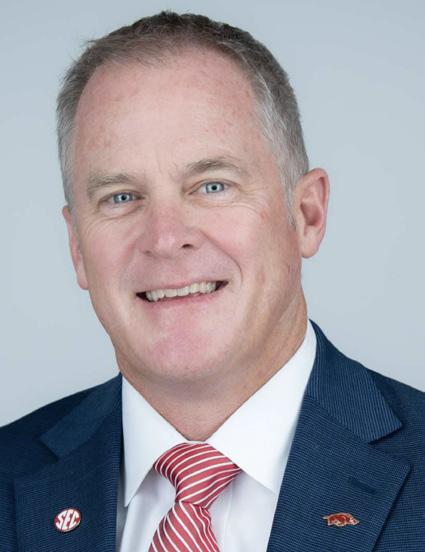
Nine Arkansas student-athletes were named player of the year in their respective sports, including baseball’s Golden Spikes Award winner Wehiwa Aloy; softball’s national player of the year Bri Ellis; and women’s track’s national indoor track athlete of the year Isabella Whittaker.
Yurachek, a native of Virginia, also holds the esteem of his peers both in Arkansas and abroad. In 2024, he was appointed to a three-season term on the College Football Playoff Committee, and, in 2020, then-Gov. Asa Hutchinson drafted him as part of the Governor’s Economic Recovery Task Force.
Arkansas Money & Politics sat down with Yurachek in advance of his annual appearance before the Little Rock Touchdown Club to discuss the successes thus far, the challenges ahead, and his insights about bringing the Razorback football team into the upper echelon of the SEC and nation.
Arkansas Money & Politics: Welcome back to the Little Rock Touchdown Club, of which AY Media Group is a major sponsor. Let’s start by giving our readers a taste of what you will address while you are there.
Hunter Yurachek: Well, it’s three weeks into the 2025 football season, so obviously, I’ll talk some about the games we played to
Hunter Yurachek


date. From here, we have the game against Memphis on the road and then, of course, our big home game versus Notre Dame to wrap up the month of September.
I always like to brag on our entire department and the success of all of our teams because we have a number of teams that have been incredibly successful this past year, and we anticipate we’ll have some great success again as the 2025-2026 season ramps up.
I think [the Little Rock Touchdown Club] is a great opportunity for me to give an overview of the landscape of college athletics and the new era that officially rung in on July 1 with the opportunity for schools to share revenue directly with student athletes through the settlement of the House case.
AMP: As athletic director, you have seen a lot of important firsts, not the least of which was the Little Rock game that pitted Arkansas against Jonesboro’s Arkansas State University. What does that represent for the state of Arkansas?
Yurachek: When former ASU athletic director, Terry Mohajir, and I sat down and started to talk about the opportunity to play this game, I think we both thought it made sense. We had created opportunities for playing in-state in other sports, starting with baseball and then soccer, men’s basketball and women’s basketball, and other sports have followed suit. I think the game made sense for us to finally break that wall down in football and play this game.
Obviously it’s the first time we have played Arkansas State, and that’s the thing that jumps out. We’re [did] it there at War Memorial Stadium, that historic venue that is not quite in the middle of our two campuses but pretty doggone close. I think it was a pretty special opportunity for us.

AMP: I’m not looking for a wins prediction here, but having spent a lot of time around this football team and the coaches, what do you think fans will come away with, watching this team play?
Yurachek: I’m impressed by how Coach [Sam] Pittman and his staff work really hard during the offseason to build a culture where people generally care about the logo that they’re wearing on their chest and not the name on the back of their jersey. That’s really
Yurachek, who spoke to LRTDC last year, was presented a Razorback T-shirt for his grandson by club founder David Bazzel. (Photos by DeWaine Duncan)
Yurachek posed on the field in Arlington with former Hog basketball greats Dusty Hannahs, from left, Bobby Portis and Isaiah Joe. (Photo courtesy of Arkansas Athletics)
been unique to see that culture take shape, which is really, really difficult to build right now in this transfer-portal-heavy era of college athletics. I love the energy and enthusiasm that this group comes to practice with each and every day.
Having a quarterback like Taylen Green back for a second year under Offensive Coordinator Bobby Petrino, who’s got one of the most brilliant minds on the offensive side of the ball, I think Taylen will benefit from that. He’s healthy again. I think most people don’t realize how hurt he was after the Tennessee game, and he still came out, game after game, and tried to give us the best chance to win.
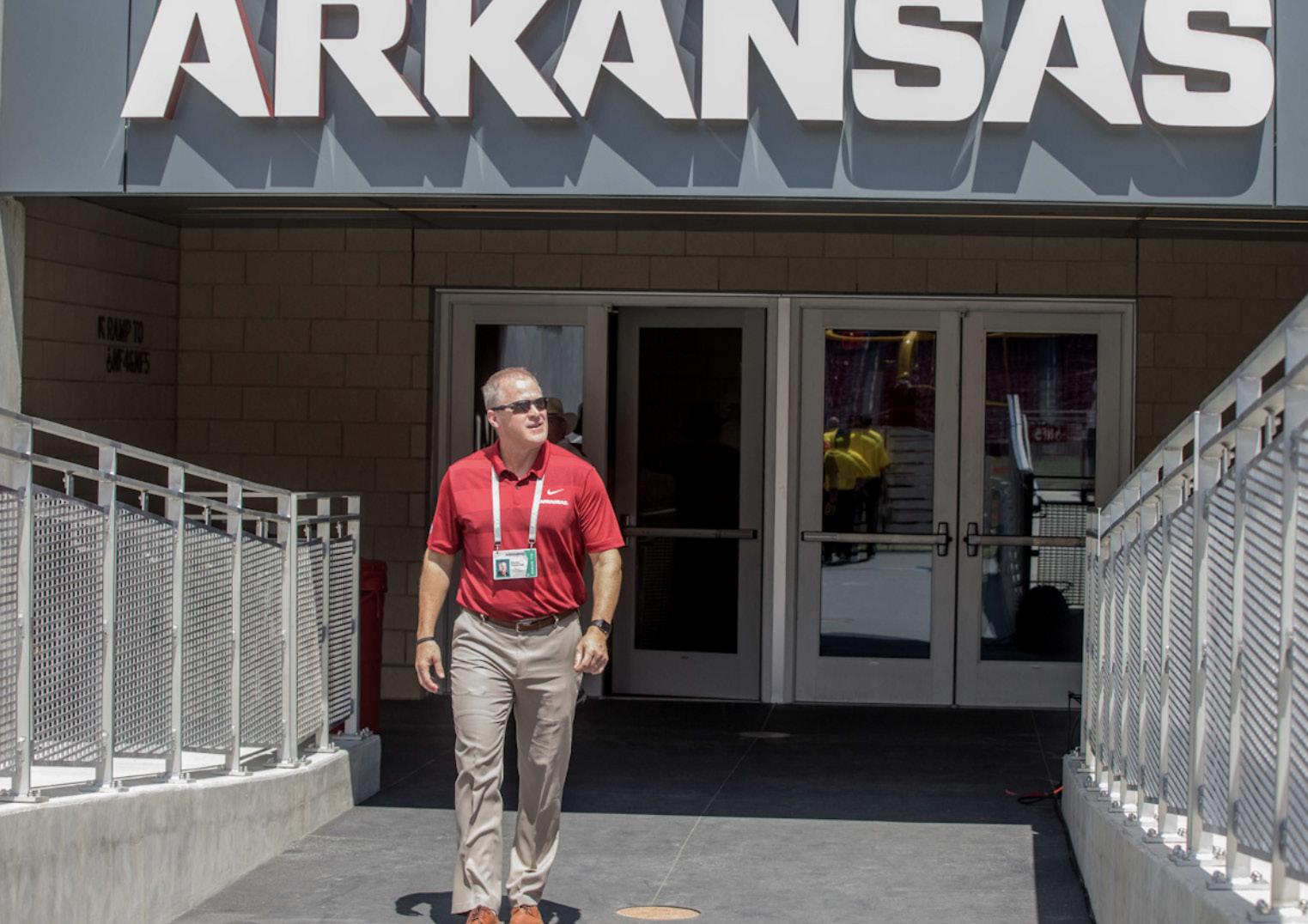
Yurachek said it is time for the ball to start bouncing Arkansas’ way on the football field. (CollegeAD.com)
Our game operations staff continues to do a great job each and every offseason looking for innovative ways to enhance the fan experience from the moment our fans pull into a parking lot.
I think you look at the leadership we have on both sides of the ball with Taylen behind center and then Cam Ball and Xavian Sorey on the defensive side, and there’s a lot to be excited about.
AMP: One thing that always comes up when discussing the Hogs is a schedule that can only charitably be called “challenging.” In fact, it is one of the toughest in the nation.
Yurachek: We have a challenging schedule. We do, but I would point out that if you go back and look at Sam Pittman’s tenure, he’s coached in 61 games as our head coach at Arkansas, and 29 of those games have been against ranked teams. The next closest SEC team to that figure is 22 games during the same time period, and Penn State and Indiana collectively didn’t play 29 ranked teams during that same fiveyear window. I say that merely to say Sam has had a hard schedule every year he’s been our head coach.
In spite of all that, we’ve gone to three bowl games and won all three, and we were invited to a fourth that didn’t happen because of COVID[-19]. We’ve had 17 games that we’ve lost that have been decided by one score, so in spite of everything, Sam has had our players positioned and ready
to win. We have been competitive in the majority of games during his tenure, and I think we will see a very competitive team again this year.
Our fans don’t want their athletic director to say this, but it’s really hard to win football games in this league and to win football games period. Not only do you have to be competitive and play hard; you have to have some significant breaks during the course of games. The ball has to bounce your way, to use a cliche, to get ahead and win some of those one-score games.
AMP: The rich traditions of football in the SEC carry forward generation to generation, but overall, sporting events have become more of an entertainment experience than at any other time. What sort of amenities can people expect coming to a game in Fayetteville?
Yurachek: Our game operations staff continues to do a great job each and every offseason looking for innovative ways to enhance the fan experience from the moment our fans pull into a parking lot. I think they’ve done a really good job, especially in the past couple of years.
If fans follow the instructions of what gate is most advantageous with the ticket they have, the new scanners that we have are really just walk-through unless you have a bag. You may get to a gate 25 or 30 minutes prior to kickoff, and it may seem like it’s backed up, but we really do move people through very quickly.
We’ve really put a concerted effort and focus on what happens outside of the stadium prior to the game right there above the Broyles Center. We have our Fan Fest there. We have our Hog Walk that comes through there, led by the band and the cheerleaders when our team arrives. Things of that nature really make the college football game-day experience. I don’t think there’s anything more special than a Saturday football game in Fayetteville, Arkansas.
AMP: Something that you and everybody in your capacity are dealing with is the continuing challenges of name, image and likeness, which has been described by some as the Wild, Wild West. Do you see some guardrails coming into play on this, or is that genie completely out of the bottle?
Yurachek: Yeah, that’s a really great question and one that’s difficult to answer because there are guardrails in place; there’s just no entity right now that can enforce the guardrails. That’s why you have what you have right now.
There’s two lanes we all should be operating in as of July 1. The first is the revenue-sharing lane, where each school that opts in has the opportunity to share up to $20.5 million dollars of athleticdepartment-generated revenue directly with student athletes. At the University of Arkansas, we’ve made some significant changes in our budget, both expenses and revenue, and we will fully participate at that level moving forward.
Another piece of this, by the way, is they removed scholarship limits in favor of roster caps, so you no longer have scholarship limits that used to exist in many of your sports. We’ve added another 76 new scholarships this year, most of those across many of our women’s sports, and that’s to the tune of about $2.5 million dollars.
The second lane is legitimate name, image and likeness opportunities for student athletes where if a student athlete has built a brand, companies can use student athletes to endorse their business, product or service. If [colleges] would operate within those two lanes, revenue sharing and legitimate NIL, college athletics would be in a really good spot because we’ve created some incredible opportunities for student athletes.
What is happening in our industry is many have started to explore if there’s this third lane that’s a gray area, and that’s the one that gets schools in trouble and causes this to be the Wild, Wild West. That’s the one where people never want to lose the competitive advantage they have because of the resources they have to spend. Until we figure out a way in our industry to put some significant penalties within that third lane, we’re going to continue to struggle in college athletics.
AMP: Have we heard the last of the situation where former Arkansas recruit Madden Iamaleava accepted NIL money then transferred without playing a down?
Yurachek: What I can tell you is that our university counsel and the counsel for the family have worked together to settle all of our differences amicably, so that has been

resolved, and we feel really good about where we are.
AMP: What is your assessment of last year’s expanded playoff field, and where do you think it goes from here?
Yurachek: I thought that the first year of the 12-team playoff was great. I think the major flaw was the seeding where the top four conference champions got seeded one through four. I think that negatively impacted the playoff last year. That’s been fixed where the teams will be seeded now one through 12, and it won’t matter if you’re a conference champion or not. A conference championship will get you into the field if you are not in the top 12, but it will not improve your seeding beyond the 11th or 12th spot. The management committee fixed that. That wasn’t by the selection committee which I’m on, but that recommendation came from the selection committee.
Other than that, we’re one year into the 12-team playoff, and there’s already talk about 14, 16, 28 teams. I think we need to let it breathe a little bit before we worry about expanding it any further. I don’t officially have a vote, but I do have an opinion, and
At the University of Arkansas, we’ve made some significant changes in our budget, both expenses and revenue, and we will fully participate at that level moving forward.
I think we need to let it live at 12 and see where it goes from there.
AMP: College sports fans, particularly in football, are seeing the expansion of different conferences, and many are wondering where it ends. Where do you see all of this ultimately going?
Yurachek on the field in Little Rock with Gov. Sarah Huckabee Sanders, her husband, Bryan, and their younger son, George. (Photo courtesy of Arkansas Athletics)
Yurachek: I do think we’re going to have a settling over the next several years. There’s no reason for a lot of jockeying for position between conferences right now, especially at the Power Four level. This tends to occur when you have an opportunity for new television contracts, and most of those current contracts are out into the 2030s decade, so I’d be surprised if there’s any movement — doesn’t mean there won’t be, but that’s generally when it seems to happen.
AMP: Finally, something that really sets Arkansas apart is the success achieved across a number of different sports. How much more challenging and complicated has that become than when you took over at Arkansas?
Yurachek: I’m really proud of the success of all of our sports. At the University of Arkansas, we have 19 sports programs and 450 athletes this year, and I want all of them to have an opportunity to have success as a student athlete and compete for and win Southeastern Conference and national championships. We finished 11th in the Learfield Directors’ Cup standings this year, fifth in the SEC. It’s the third time in the last five years we’ve been in the top 11. For those who aren’t familiar, the Learfield
Directors’ Cup takes your top 20 sports, and there’s point value assigned to how those sports finish nationally. A school like Stanford or Texas might win the cup because they sponsor 30plus sports, so they can take their bottom 11 or 12 sports, and they don’t even have to count them. We only have 19 sports, and so we’re already missing one metric, and we still have finished three times in the last five years inside the top 11.
To further put that in perspective, our operating budget in the SEC is 12th out of 16 schools [$170.3 million last year, $190 millionplus this year due to revenue sharing]. That really demonstrates what a broad-based successful athletic program we have.
This past year, we had 13 of 19 programs ranked in the top 25. Six of those programs were ranked No. 1 for at least one week in women’s soccer, women’s golf, men’s indoor track, women’s indoor track, baseball and softball. We won a third consecutive bowl game, we had four individual national champions — three in track and field, one in women’s golf — and we had the national softball player of the year and the national baseball player of the year.
We’ve won 39 SEC championships in the last eight years among 12 different sports, and both of those numbers lead all of our SEC counterparts during that same time period — and I like to rub it in a little bit that our friends at Missouri have not won a single SEC championship during that same time period.
We will continue to field a broad-based, successful athletic program because I feel that you’re not genuinely supportive of your student athletes outside of football, men’s basketball and baseball if you don’t do that.
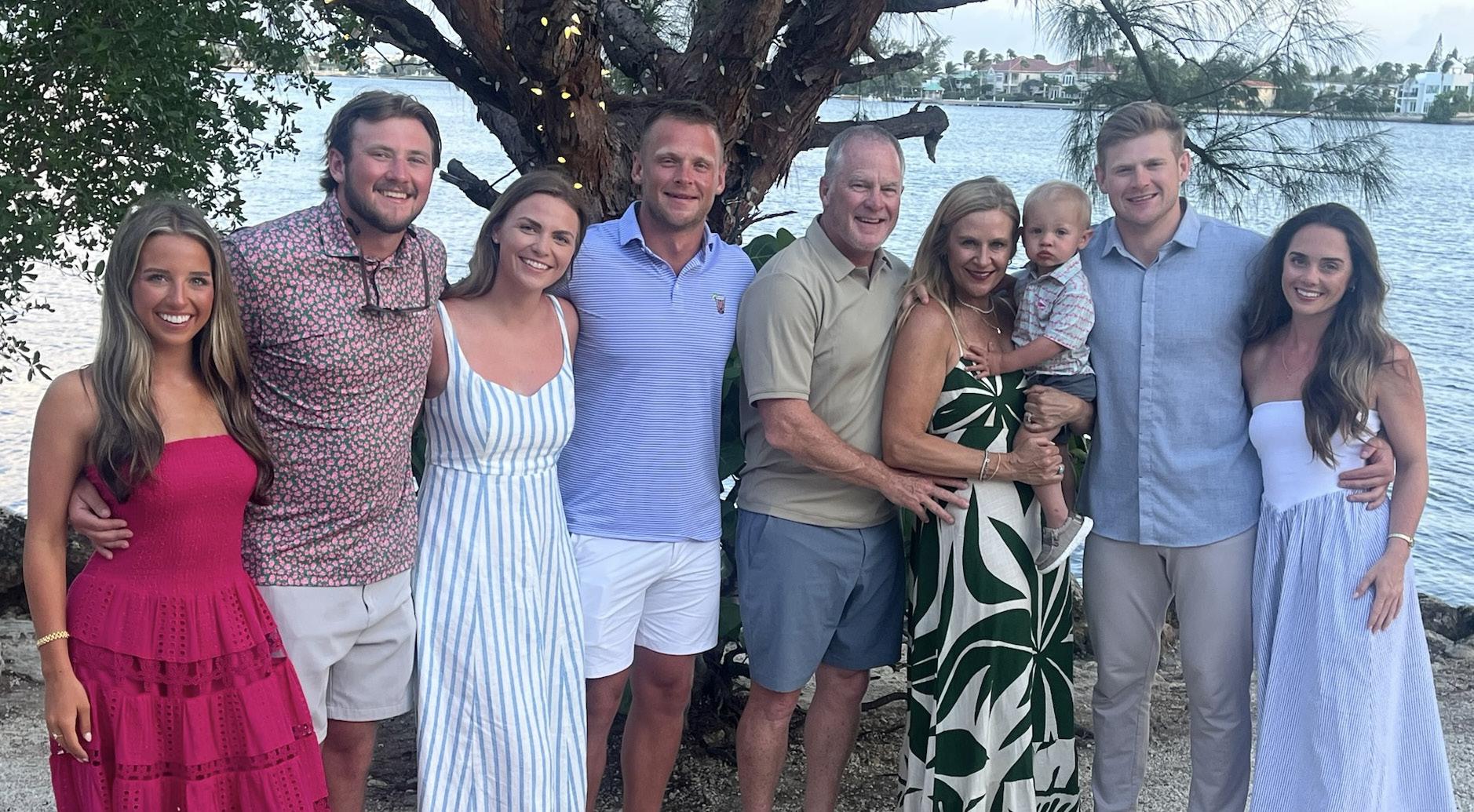
A Yurachek family portrait: Yurachek and his wife, Morgan, with their three sons — Ryan, Jake and Brooks — their wives and grandchild No. 1. (Photo courtesy of Arkansas Athletics)




APOKEY OF SOME IMPORTANCE

By Sarah DeClerk / Photos by Sarah DeClerk
Situated on the western edge of the state in the heart of the Ouachita National Forest and miles from anywhere that might be considered a tourist destination is Waldron, seat of Scott County and home to about 3,400.
Presiding over Main Street on the spot noted on the town’s original plat map as “public square” is the Scott County Museum of History, housed in the Old Scott County Courthouse and Jail. Inside, visitors can see the plat map, an 1869 recreation of an 1840s document that burned along with a predecessor courthouse during the Civil War.
According to the Encyclopedia of Arkansas, Reconstruction was marked by lawlessness and violence, but after a decade, the so-called “Waldron War” was quelled, and prosperity followed the railroad into town during the early 20th century.
After the county’s third courthouse, built in 1904, was destroyed by fire in 1933, the art deco structure now known as the Old Scott County Courthouse and Jail was built with help from the Works Progress Administration.
In 1996, the county opened its current facility, and the old courthouse sat vacant for about 20 years. Some grant money went toward renovating the first level in 2013 in hopes of attracting businesses, but tenants never materialized. By the time
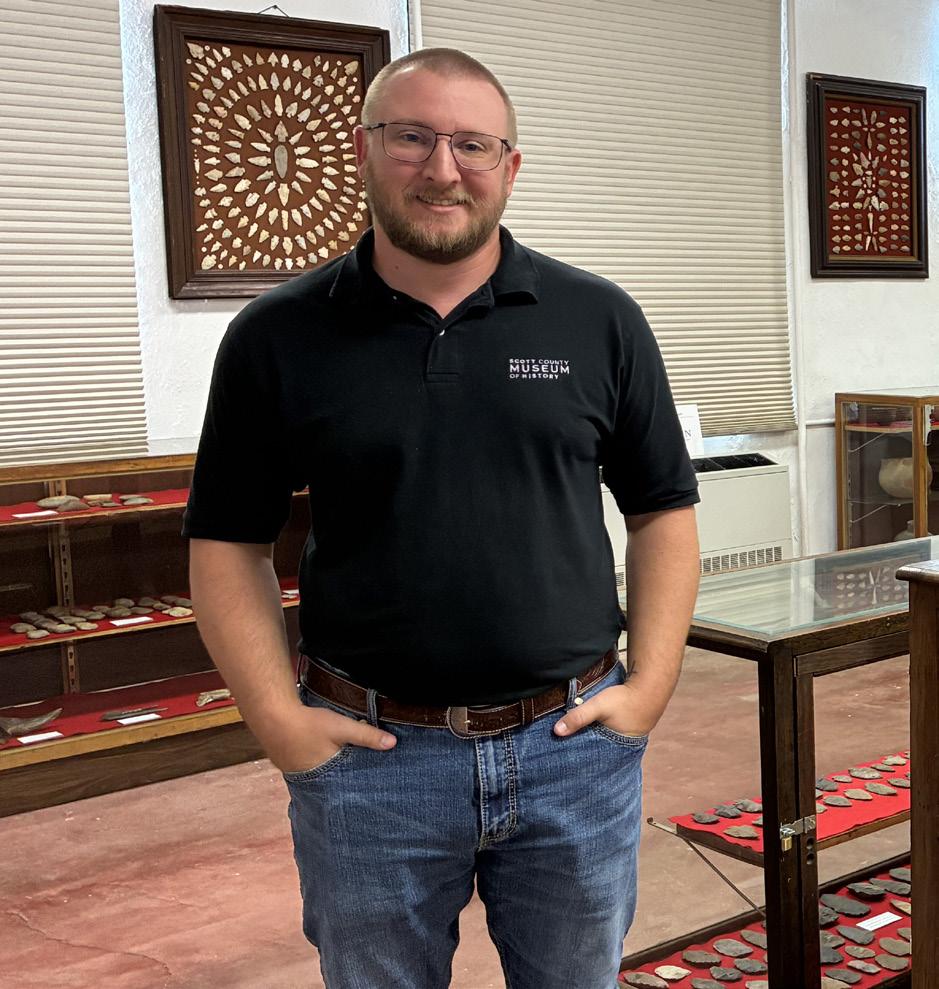
Museum director Ty Richardson returned to his hometown after studying historic preservation at Penn State.
the museum was established in 2021, time had regained its hold on the building.
“It sat here without the air conditioning on for years,” said Ty Richardson, director and president of the museum. “The paint was peeling off the walls and things, and so we definitely had to do some work downstairs.”
Richardson returned to his hometown of Waldron after earning his master’s degree in historic preservation from The Pennsylvania State University. He worked with Carolyn Hanna and other members of the Scott County Historical Society, along with then-County Judge James Forbes, to help bring the long-discussed museum to fruition.
Key to the museum was the incredible collection of local historian Gary Blythe, who donated his artifacts to the cause after becoming terminally ill.
“We have a lot of this just because of Gary,” Richardson said. “He made a conscious effort to go to estate sales and things. People would bring him stuff and donate stuff to him. He was real active in the community. He helped start the historical society here, I think in the 1980s. People really liked him and respected
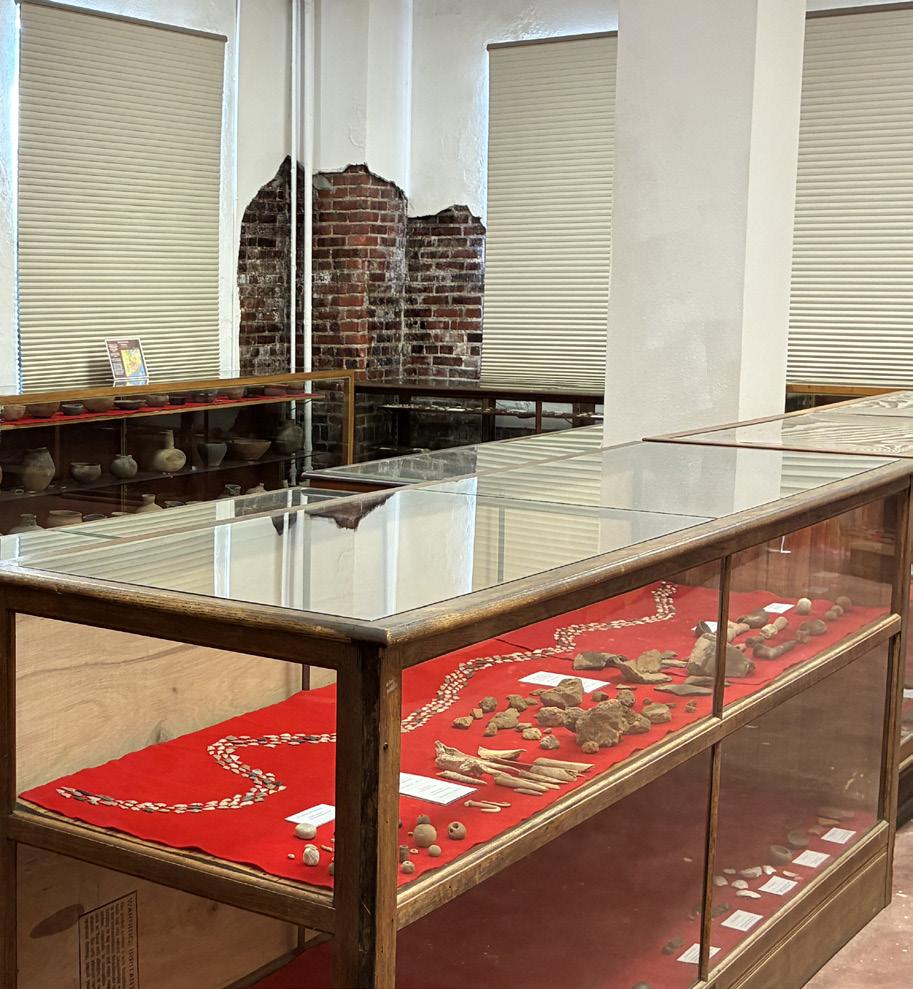
him, so they didn’t feel bad about bringing him anything.”
What exists now is a vast collection of artifacts ranging from prehistory to the early 20th century. The Native American room showcases pieces from 12,000 B.C. to 1600 A.D. from not only the local area but also Central America.
Firearms, uniforms, postcards and other items provide insight into what life was like during the Civil War and World Wars. The museum has doctors’ tools dating back to the 19th century, a collection of letters from a Civil War veteran who moved to the area after the war and carvings by the Ouachita Mountain Woodcarvers, among other treasures.
Of particular interest is a display about Forester, a boomtown that revolved around the local timber industry. At its height, the town had more residents than Waldron and a semiprofessional African American baseball team on which future Harlem Globetrotter Goose Tatum reportedly played. Restoration work has yet to continue upstairs, where a gutted courtroom presides over an empty second story. Fragments of carpet still cling to the seats in the jury and defendant boxes, and although the judge’s bench is long gone, its outline can be seen on the floor. Richardson said he would like to eventually open the second story up to the public, as well.

Perhaps the biggest draw of the building itself, however, can be found on the third floor.
The absence of air conditioning in the old jail today hints at the misery the incarcerated must have felt, jammed into tiny four-man cells during the heat of summer. Richardson said prisoners used to hang out the windows, asking passersby for cigarettes and other goods. Some of the oldest graffiti in the jail dates from the 1950s and ‘60s.
“This is one of the things we want to be able to restore the most is the old jail because it’s just neat,” Richardson said. “If we can ever get heating and air up here,
I’d love to have a few little displays up here and things, you know, and get rid of some of the graffiti that is R rated.”
The top priority for now, however, is the basement, which floods and has since at least the ‘60s. The museum recently received some grant money to remediate the space, but it remains to be seen whether it will ever be suitable for housing artifacts. Richardson said he would like to make use of the level in some way. First he has to get rid of what looks like at least 4 inches of water covering the floor.
“People used to work down here with it like that,” he said. “Their desks were on blocks, and they’d put on rubber boots and come down here.”
The museum project has become a cornerstone of the revitalization efforts downtown, which the big-box movement of the late 20th century left as desolate as most any in small-town Arkansas. Today, though, there is reasonable foot traffic on a Friday afternoon, and new shops nestle in between such gems as the Rock Cafe, established in 1938, and the Scott Theater, which opened as the Pines Theatre in 1930.
“It seems like there’s been a business or two that, every year, has popped up down here, so that’s really, really good,” Richardson said. “I think we’re doing really good for a town our size, as isolated as we are too.”
Waldron is isolated, and even bornand-bred Arkansans could be forgiven for not being able to point out the town on a map. The area is rich in Native American and Civil War history, however, and the national forest, along with three wilderness areas, make Scott County an attractive destination for outdoor pastimes.
Plus, there is the museum, the charming downtown area it has helped revive, and the promise of what the future holds for the Old Scott County Courthouse and Jail.
“You could spend an hour and a half in here, almost two hours just reading everything we have out information-wise,” Richardson said. “It’s a beautiful area. There’s stuff to do downtown. There’s a coffee shop and places to shop and things like that, so somebody could make a day out of it, for sure.”
Scott County Museum of History
Help! Ash Trees in Arkansas Need Someone
By Mark Carter
It isn’t exactly the wave that enveloped the United States in 1964, but 60 years later, beetles are still making a serious impact on American soil. Only these beetles ain’t The Beatles, and Norwegian wood is not on the menu.
As of February, their tunes were killing ash trees in 37 states, including Arkansas, and six Canadian provinces, according to the online EAB Network.
The emperor ash borer, a half-inch-long metallic green beetle, continues to run roughshod through U.S. forests, infesting ash trees of all types wherever they are unknowingly transported in firewood or shipping crates. They are actually capable of flying short distances up to a mile, as well.
State officials expect the ash, which state forester Kyle Cunningham called a valuable Arkansas hardwood, to be “all but eradicated” in the state.
He said females can mate multiple times.
“Egg laying begins a few days after the initial mating,” he said. “Females can lay at least 60 to 90 eggs during their lifetime. Eggs are deposited individually in bark crevices on the trunk or branches. Eggs hatch in seven to 10 days.”
exclusive menu of ash (though they have been found in the white fringetree, an ash cousin found in Ohio).
Like their British counterparts did, these beetles deliver an economic impact — just not a good one.
The University of Arkansas Division of Agriculture Cooperative Exchange Service states that the infestation has led to the loss of ash wood products from the marketplace. Ash, a woodworker favorite and popular ornamental tree, is known for its strong and flexible wood and is used to make furniture, tool handles, flooring, and sports equipment such as baseball bats, hockey sticks, tennis racquets and more.

EAB larvae then tunnel under the bark of ash trees, making it hard for them to transport water and nutrients, ultimately killing them. When larvae emerge from the trunk, they leave a D-shaped hole. Other tell-tale signs of EAB activity include increased attention from woodpeckers, diminished canopies, S-shaped tunnels under the bark and missing bark.
The Arkansas Department of Agriculture and state plant board declared a statewide quarantine of all items made from the ash tree in 2018. Regulated items made from ash can be transported within the state but cannot be moved out of state without complying with federal EAB regulations
The invasive pest from Asia was not introduced to America via Ed Sullivan but was likely shipped accidentally to the states in wooden shipping containers. It was first discovered in the U.S. in Detroit in 2002 and has since hitched a firewood ride across the continent.
The beetle was confirmed to have infested ash trees in Arkansas in 2014, and like a toddler fixated on dinosaur-shaped chicken nuggets, the buggers know what they like and stick to an
In addition to the dwindling of ash products in the marketplace, the Asian beetle infestation costs local governments money to remove dead trees, potentially leading to a rise in taxes where infestations are heavy; loss of shade, which could lead to a rise in energy costs; and the negative aesthetic component. Since the pests are notorious ride hitchers, Cunningham said Arkansans should not move firewood, look for and report any declining ash trees near them, honor quarantines, and treat any trees they wish to keep.
Pesticides designed to kill emperor ash borers are available in the marketplace.
In July, EAB were detected for the first time in five south Texas counties, their southern-most confirmed locations to date.
“EAB is one of the worst invasive insects to impact North American forests,” Texas A&M’s Allen Smith told AgriLife Today. “EAB does not typically fly far distances naturally. Their expansion across the state and the U.S. has been expedited due to human activity like moving infected firewood and ash tree products across state and county lines.”
It is not all gloom and doom.
Preventive treatments include early detection, professional assessment, tree removal and other biological control methods. Cunningham said treatment is not necessary unless the EAB has been confirmed within 15 miles of one’s location.
It is, however, more doom than gloom. Eradicating the EAB will be a long, drawn-out process. The state has said hello to the EAB but will likely have to wait a while to say goodbye.
Emperor ash borer

From the Bottom of Our Hearts — Thank You



On May 25th, our company was the victim of a devastating act of vandalism at the Southwest Trail construction site in Saline County — an incident that resulted in significant damage to our equipment, our project, and our peace of mind.
But from that moment on, something powerful happened.
Support poured in from near and far — not just from our own Arkansas community, but from colleagues and peers across the nation. Industry partners, friends, and even strangers reached out with words of encouragement, offers of help, and contributions that lifted our spirits and fueled hope.
Our deepest thanks go to the Saline County Sheriff’s Office, Cabot Police Department, and Arkansas State Police. Your swift and determined efforts, backed by a groundswell of community support, led to an arrest within days and reminded us why community matters.
We are also profoundly grateful to every news outlet and media partner whose coverage helped shine a light on what happened and extend our reach beyond Arkansas.
And to every individual, business partner, and neighbor who shared our story, contributed to the reward fund, or simply stood with us — your solidarity has been our greatest strength. This experience proved that while equipment can be destroyed, integrity and unity cannot.
We are stronger because of you.
— James A. Rogers Excavating

Not mass-produced health care. Curated care.
Conway Regional has a vision. For more than a century, our team has brought together key service lines, providers, and technologies to create patient experiences that are highly intentional and refreshingly personal. It’s about blending access and excellence. Familiarity – and erce commitment. Advocating for patients while providing the services our communities deserve. See what curated care looks like for you.


